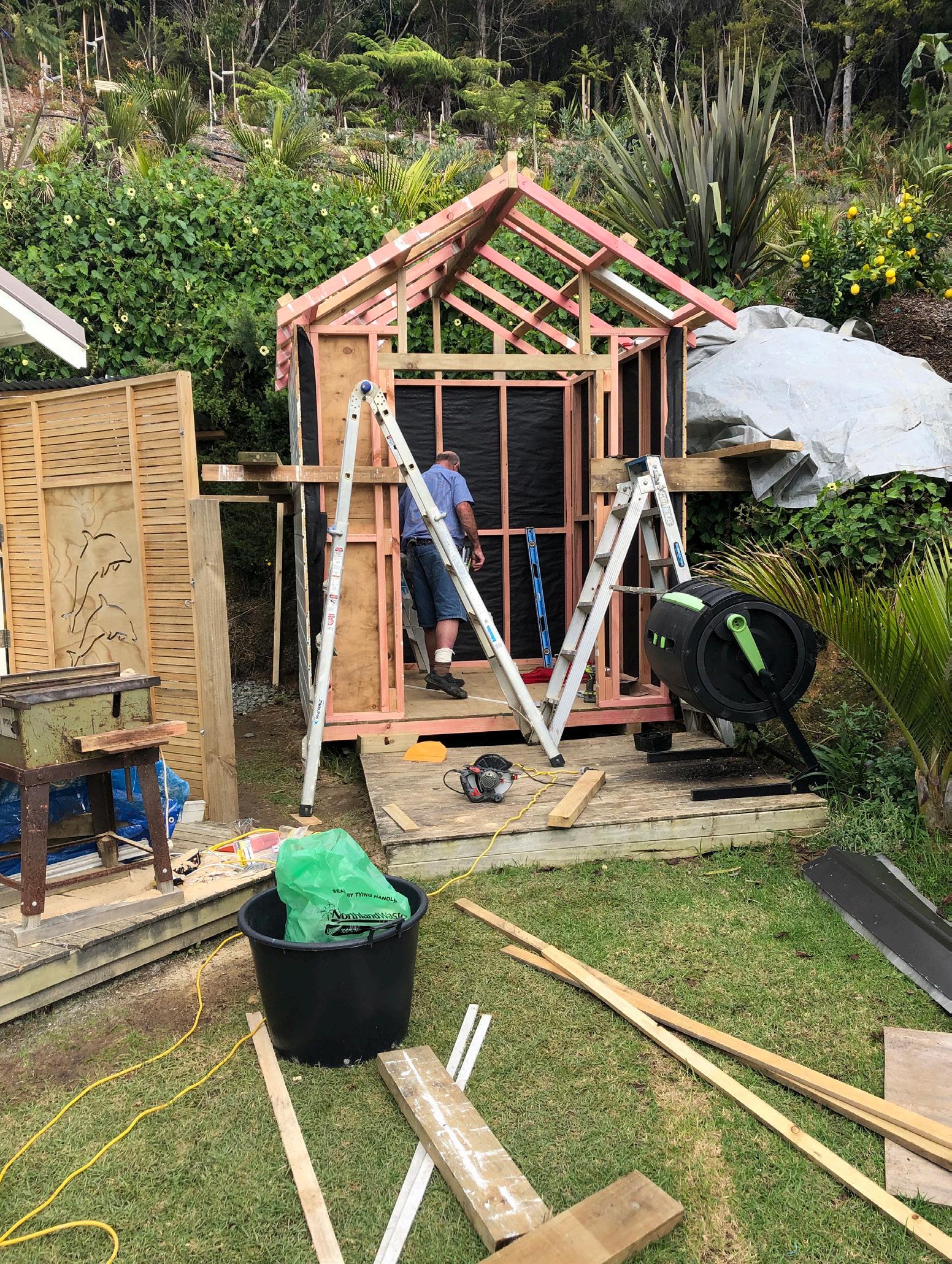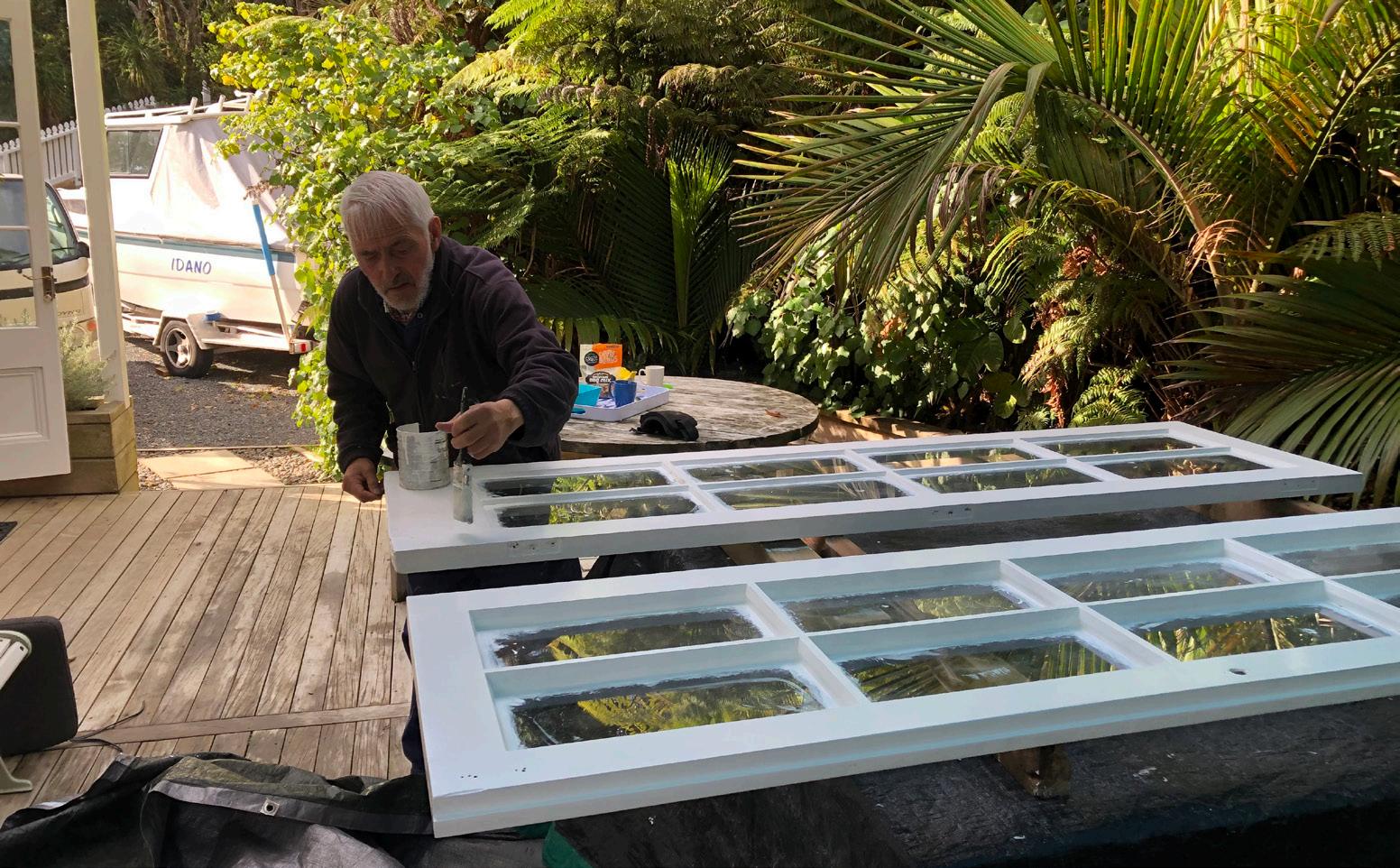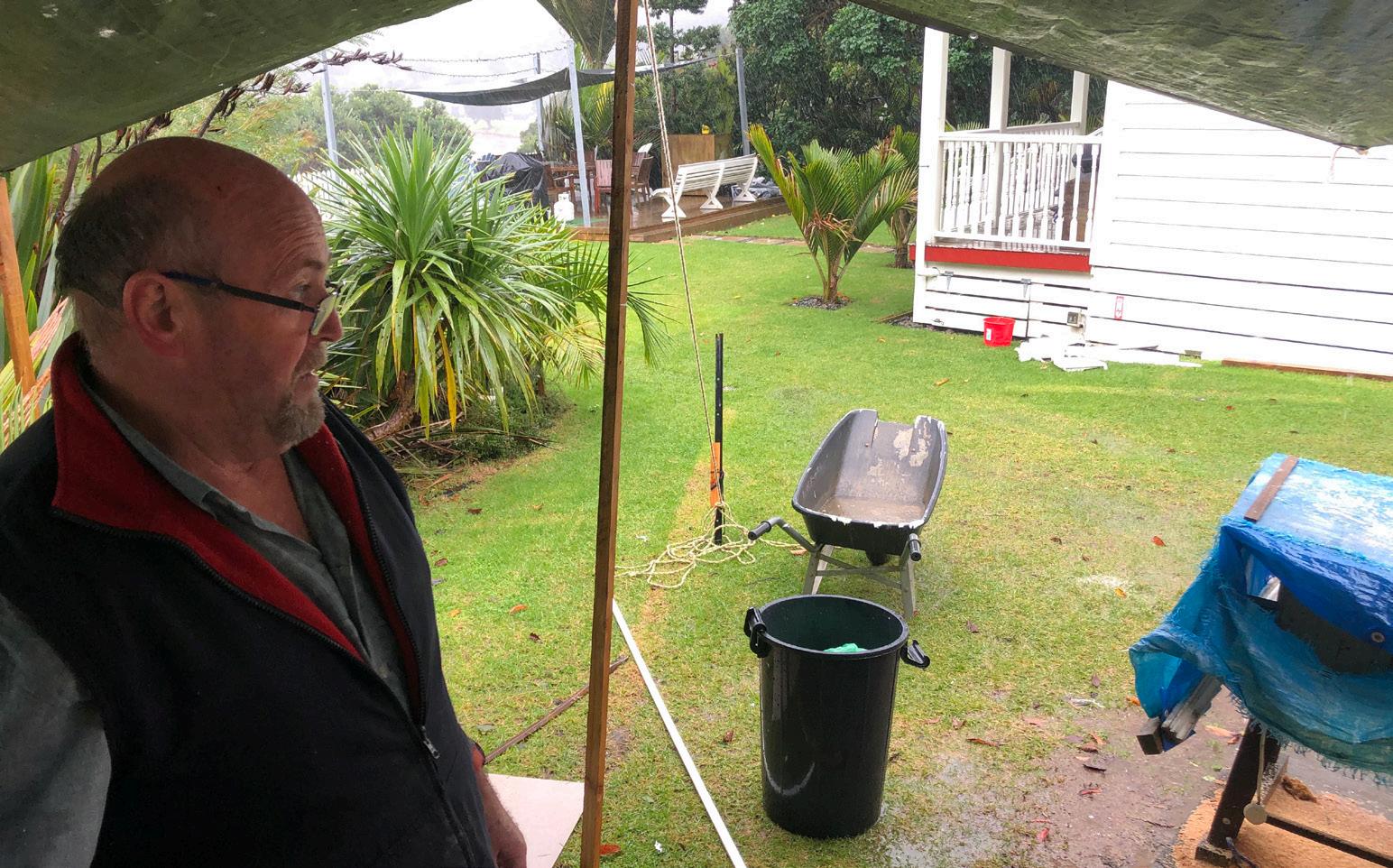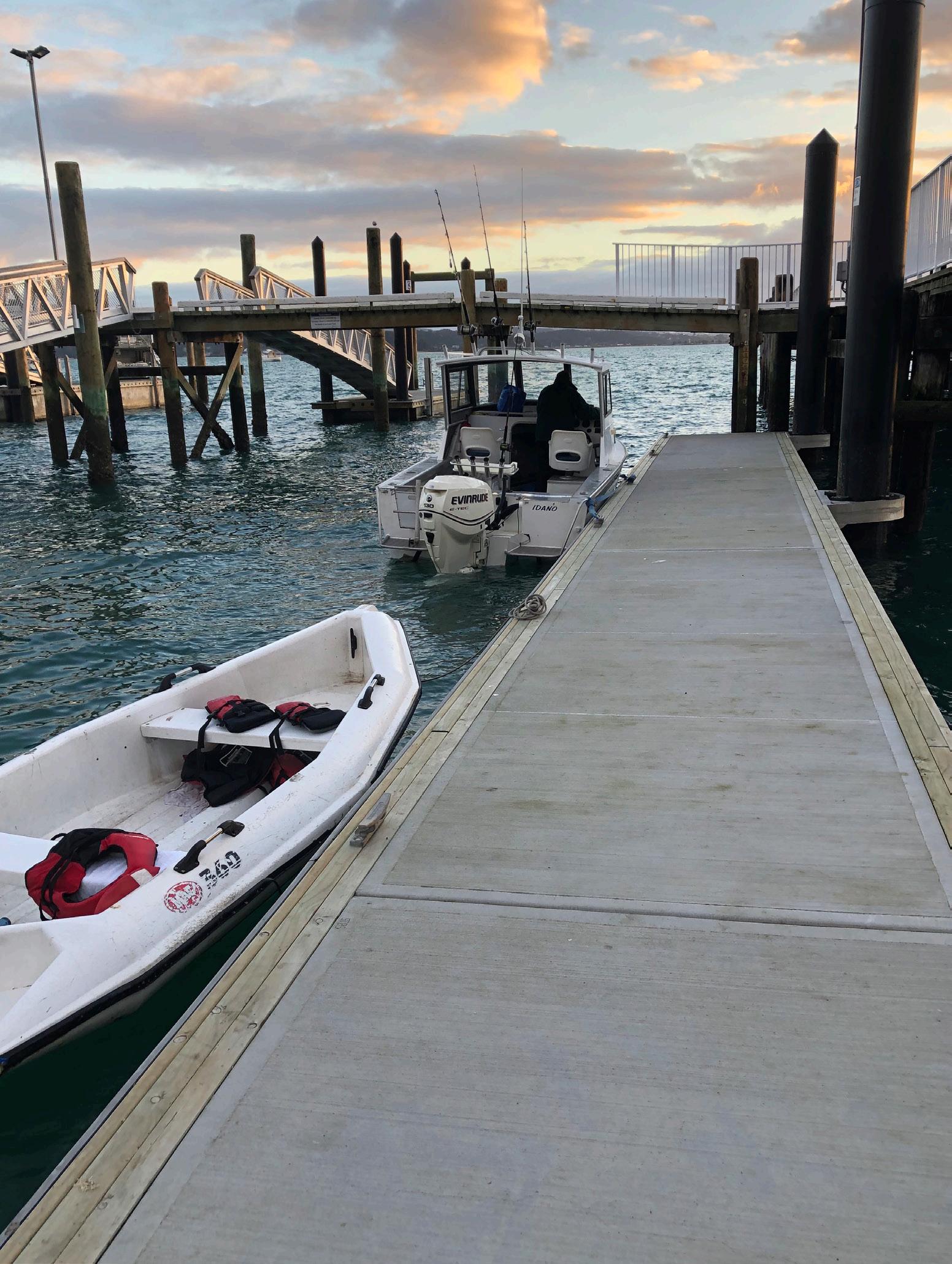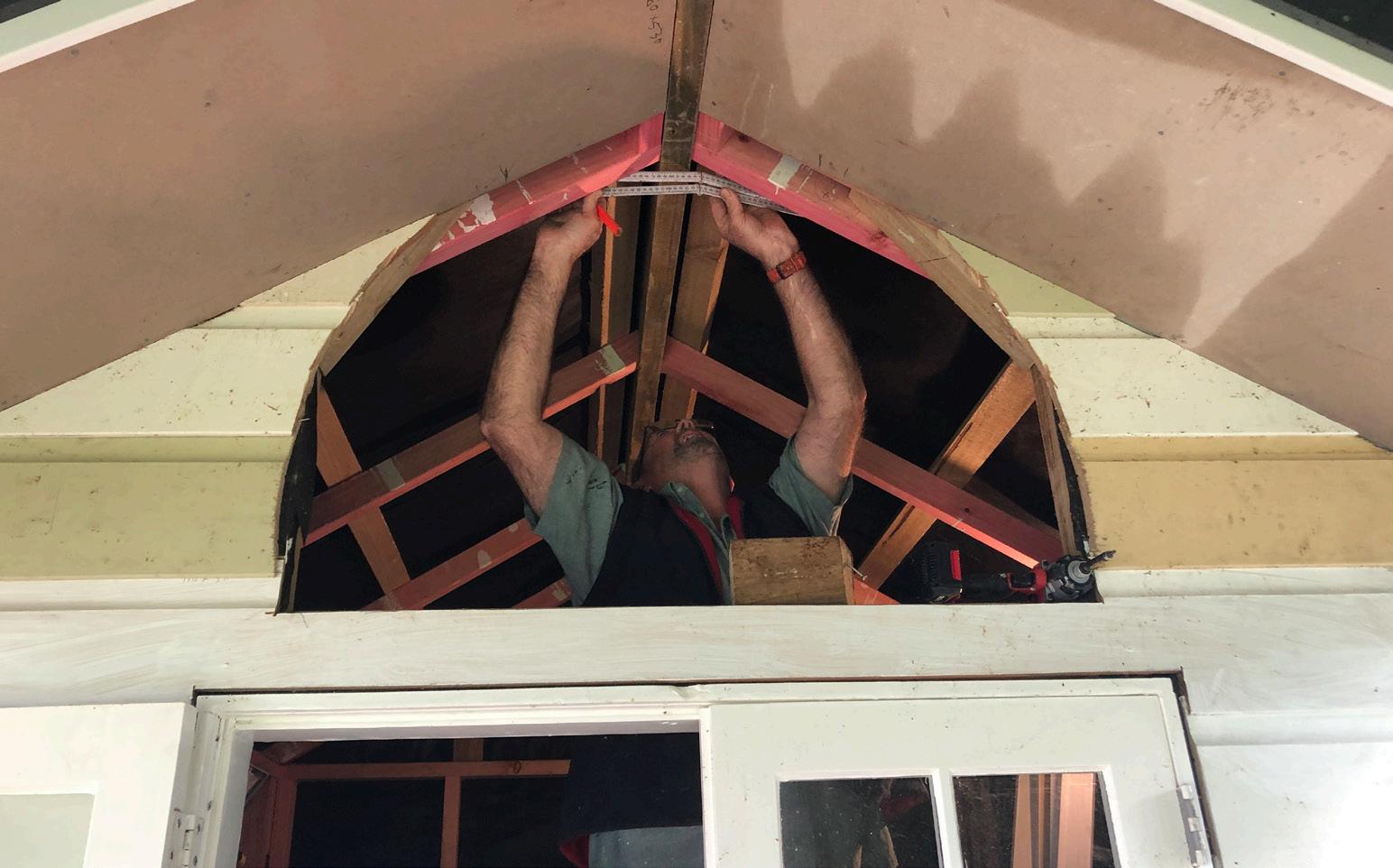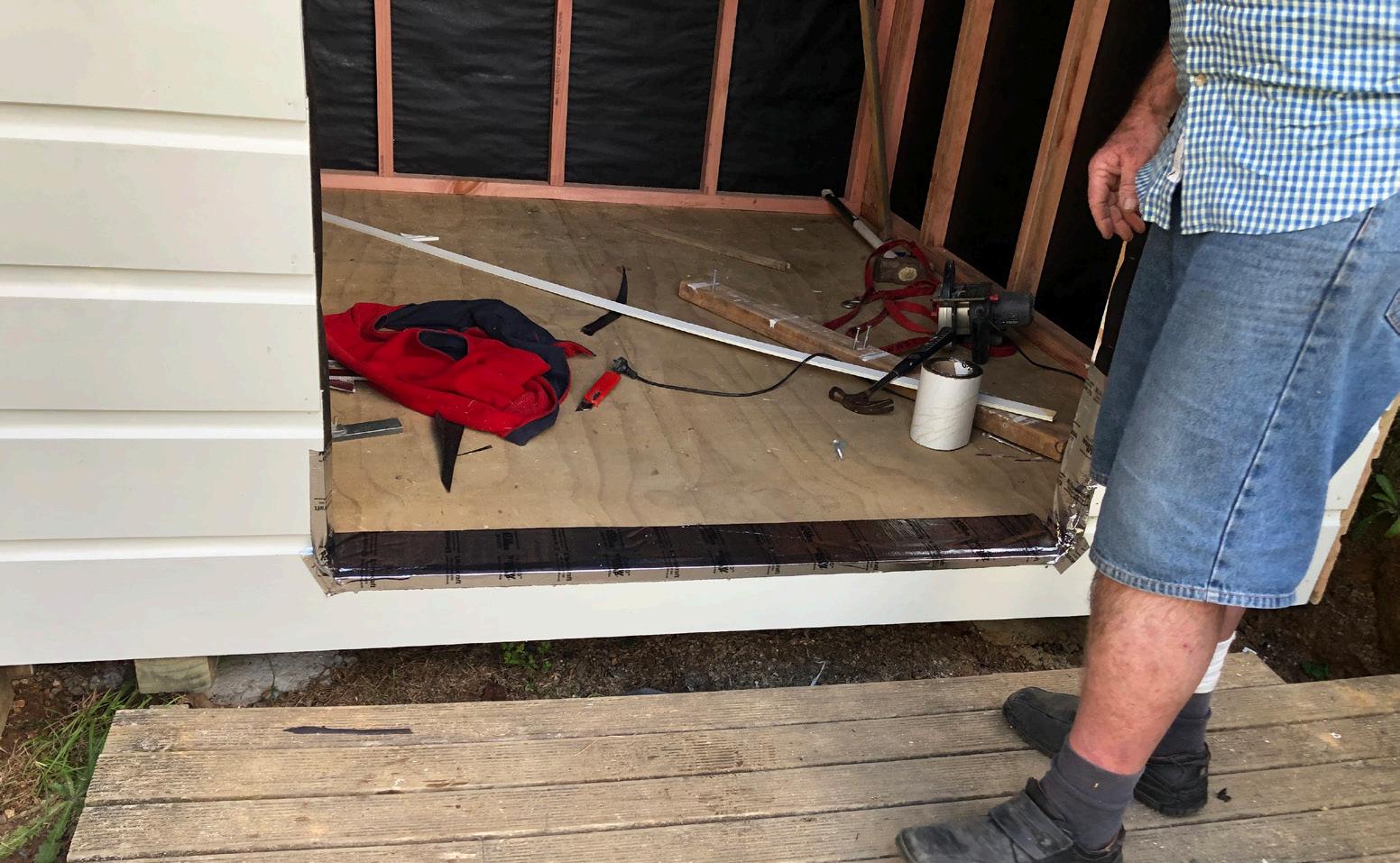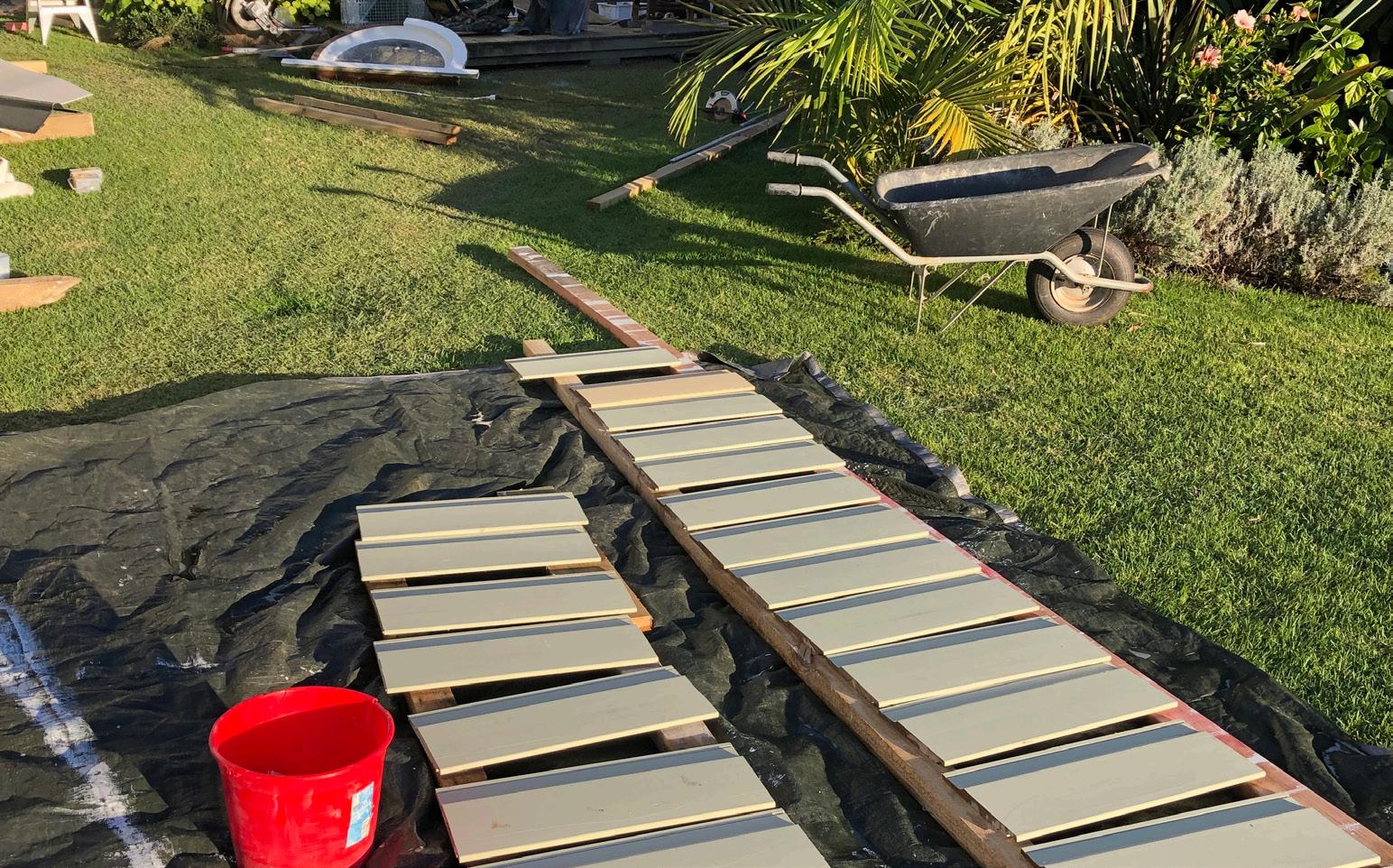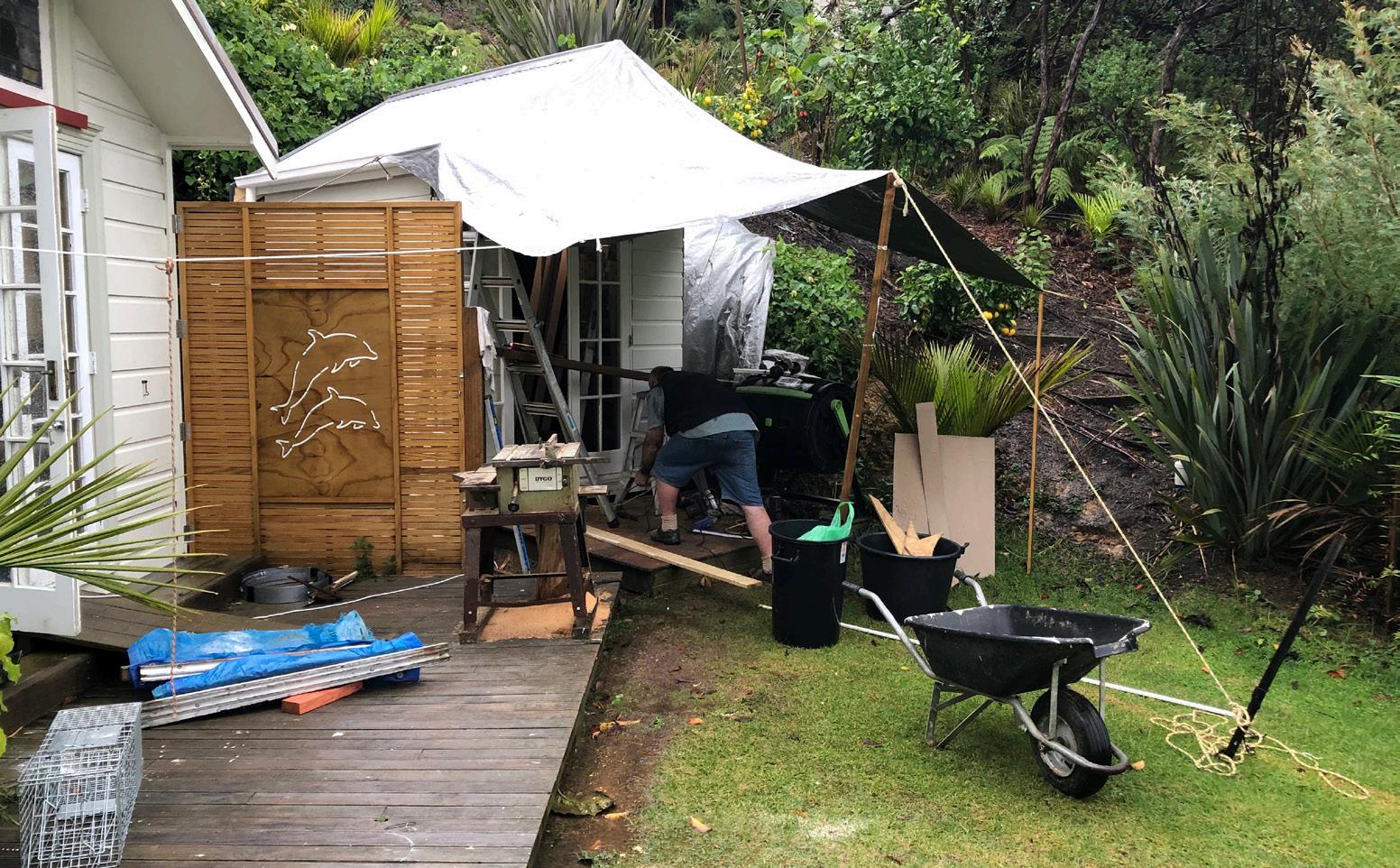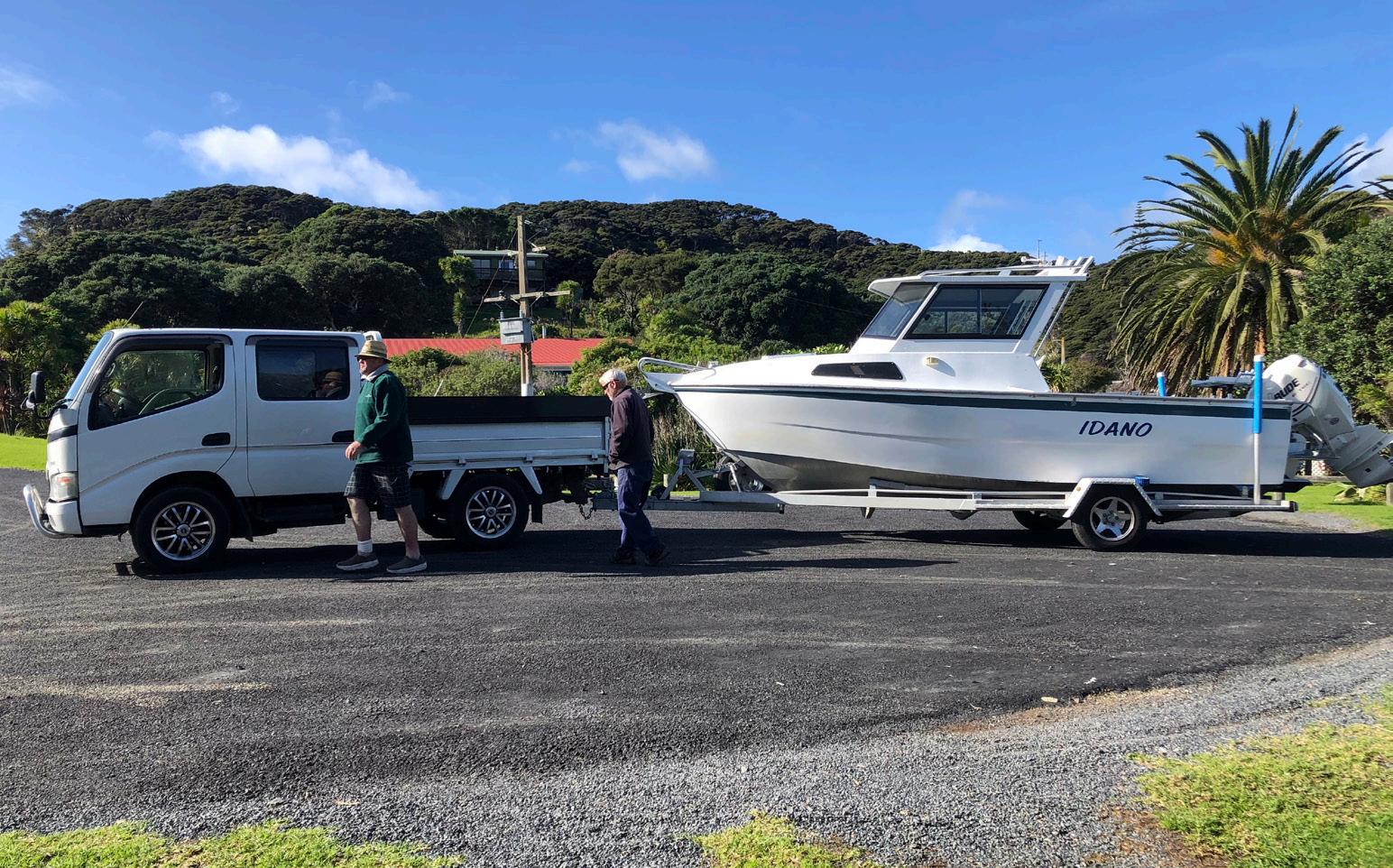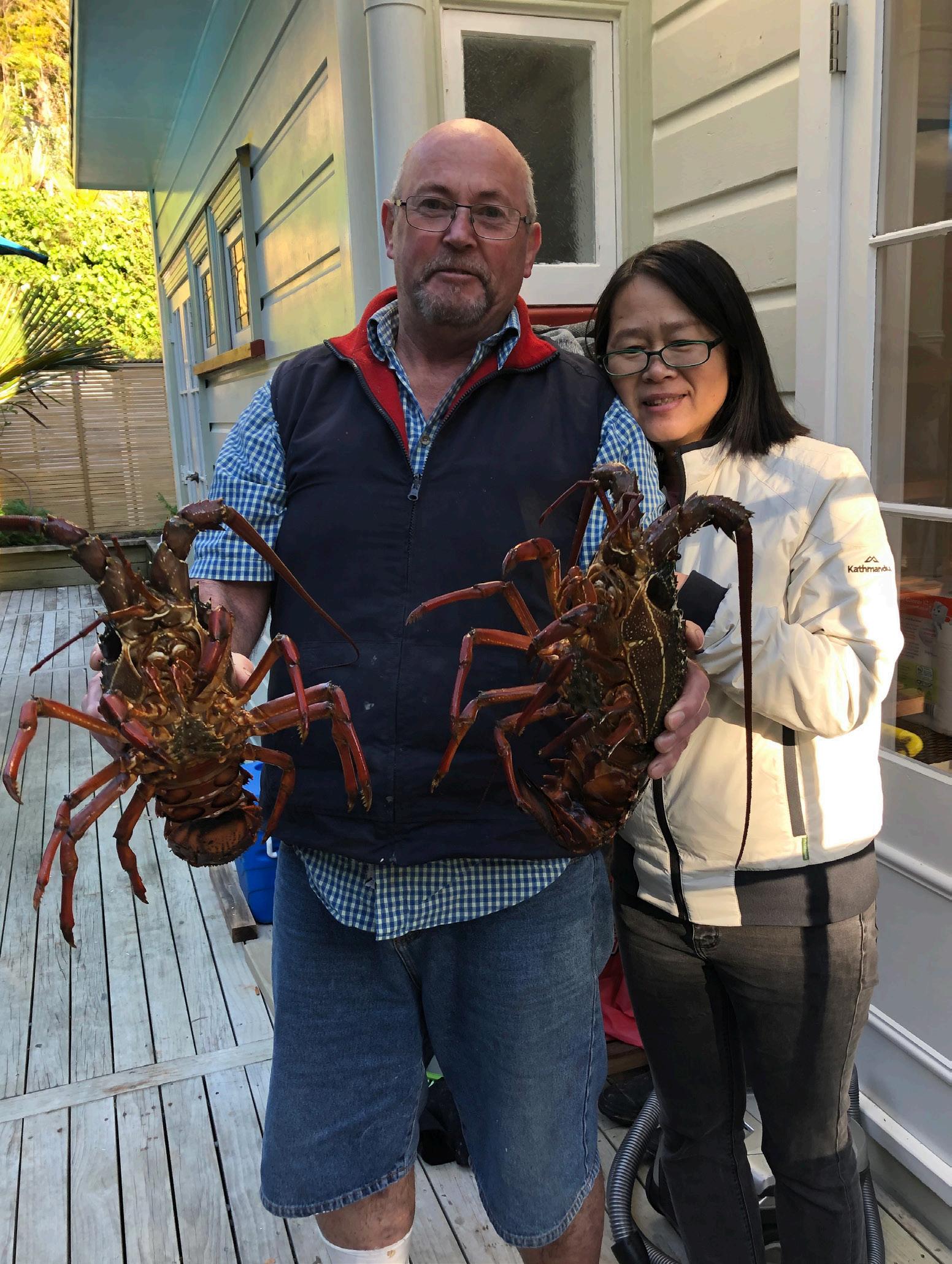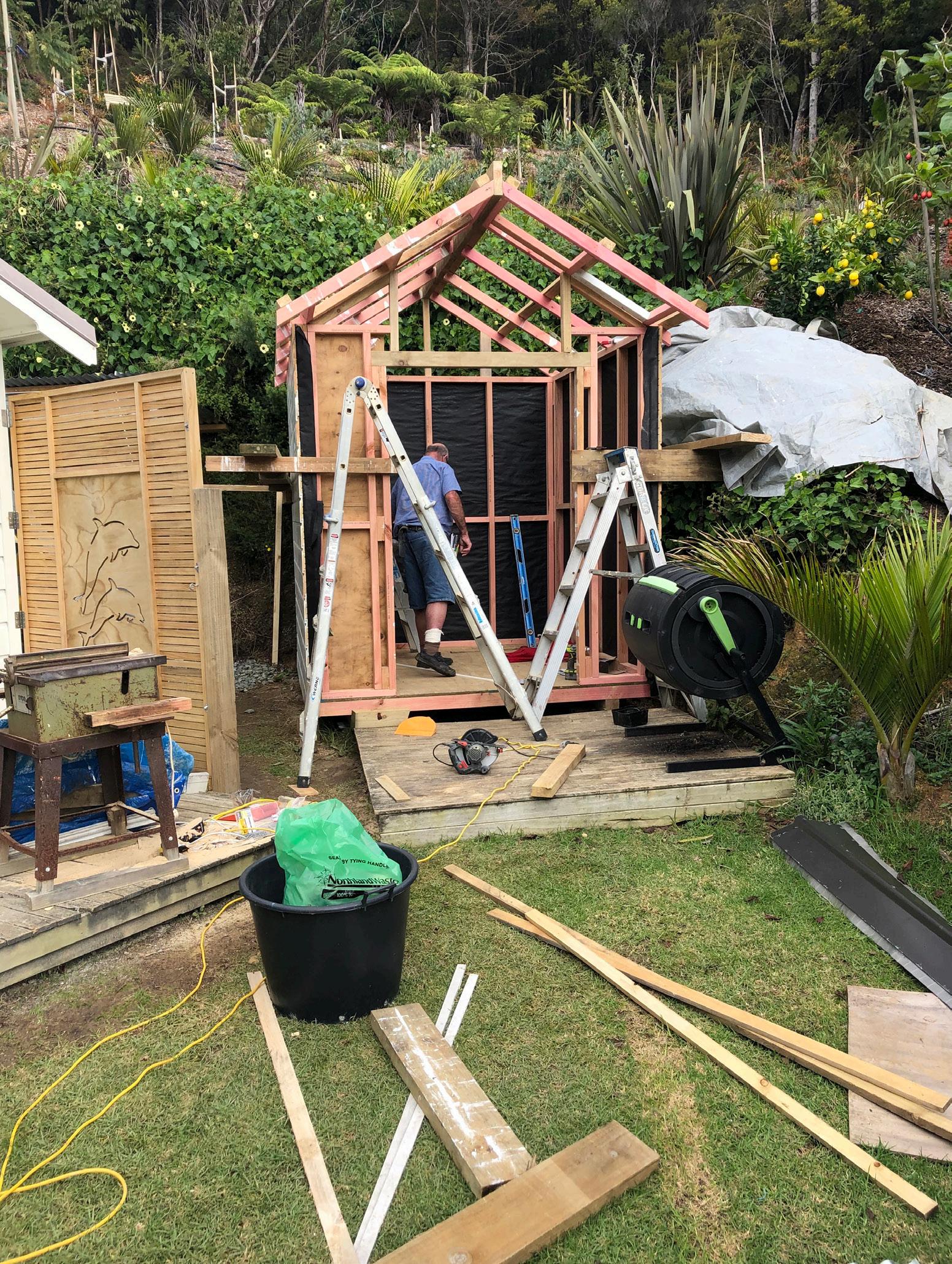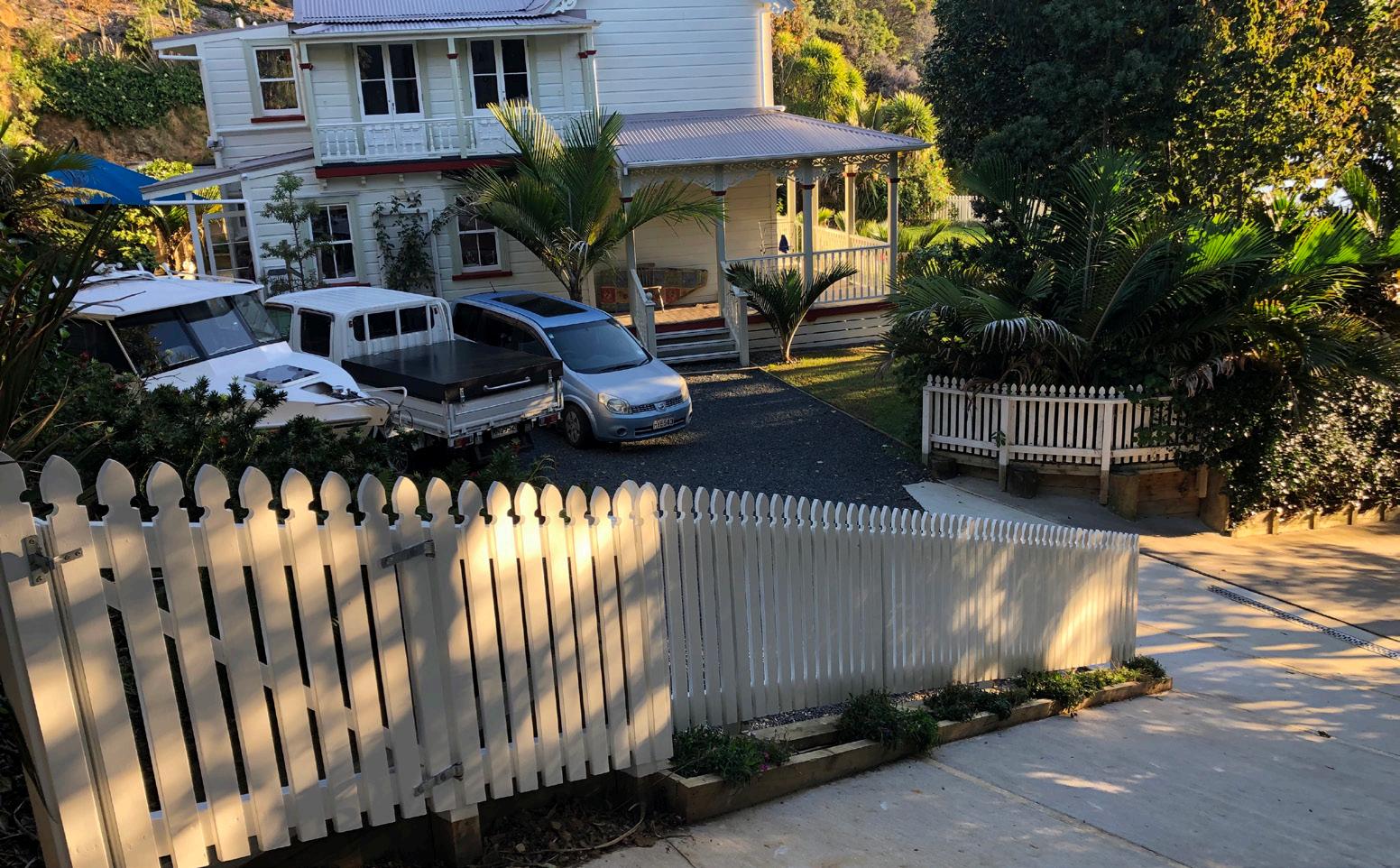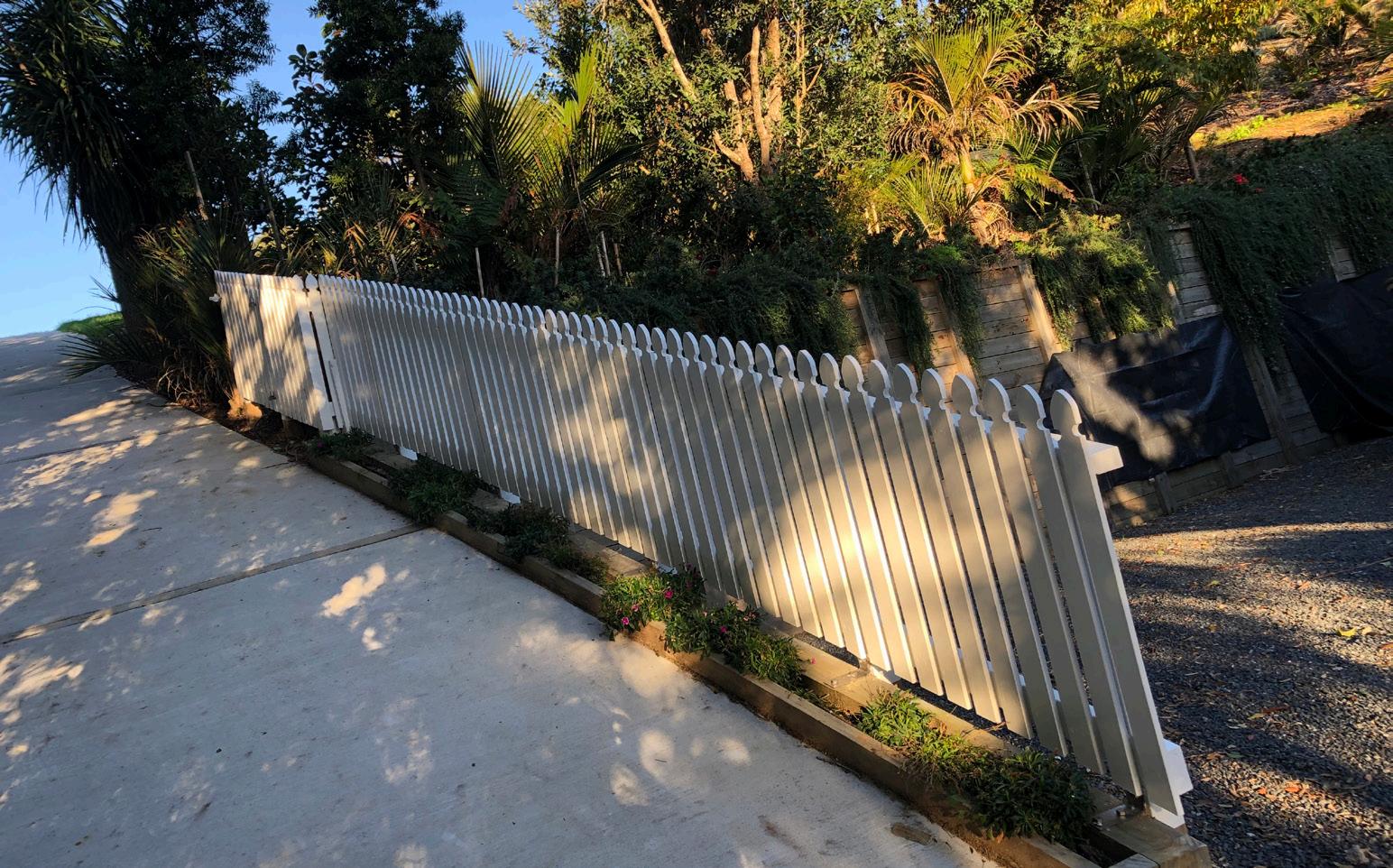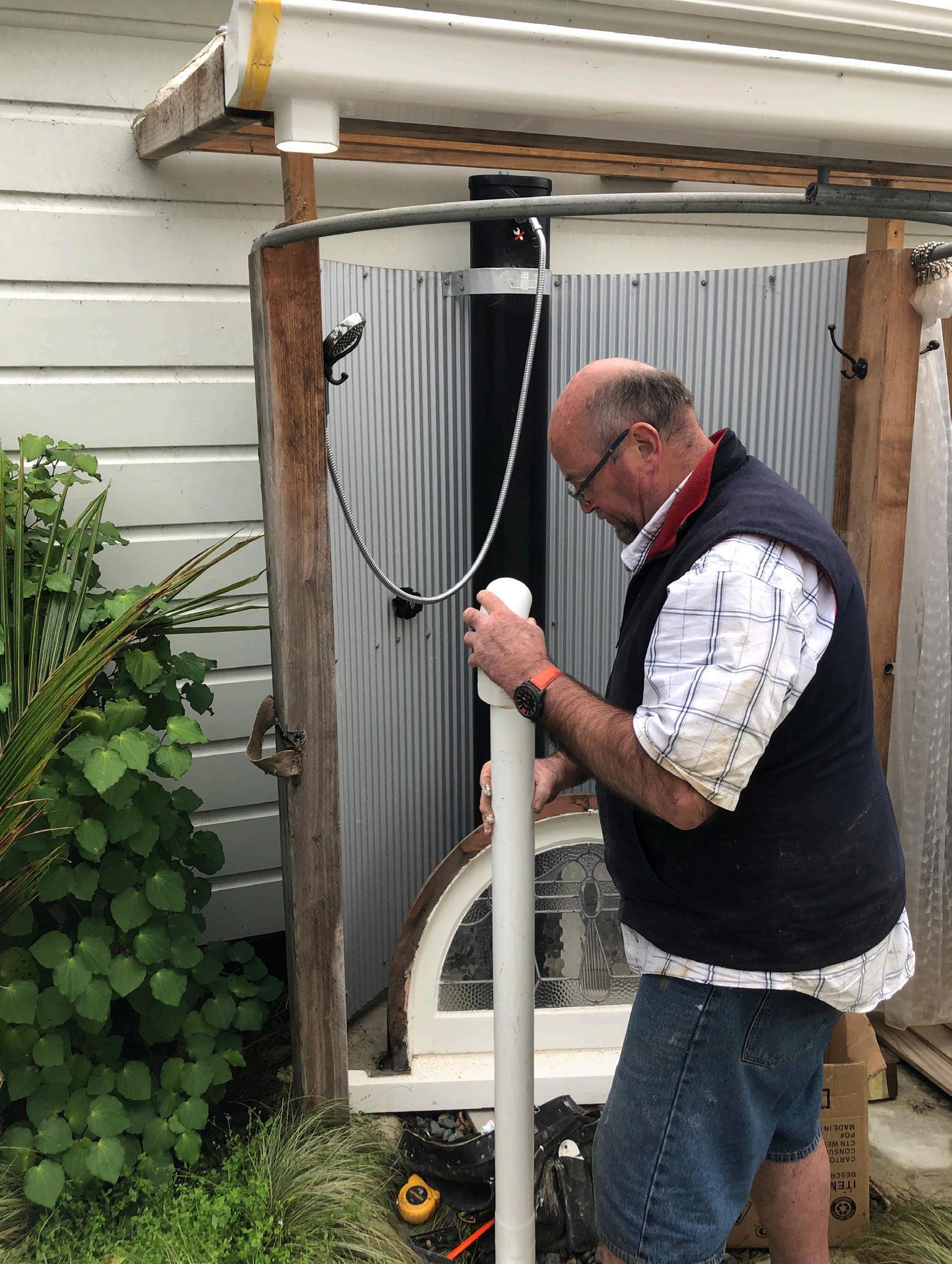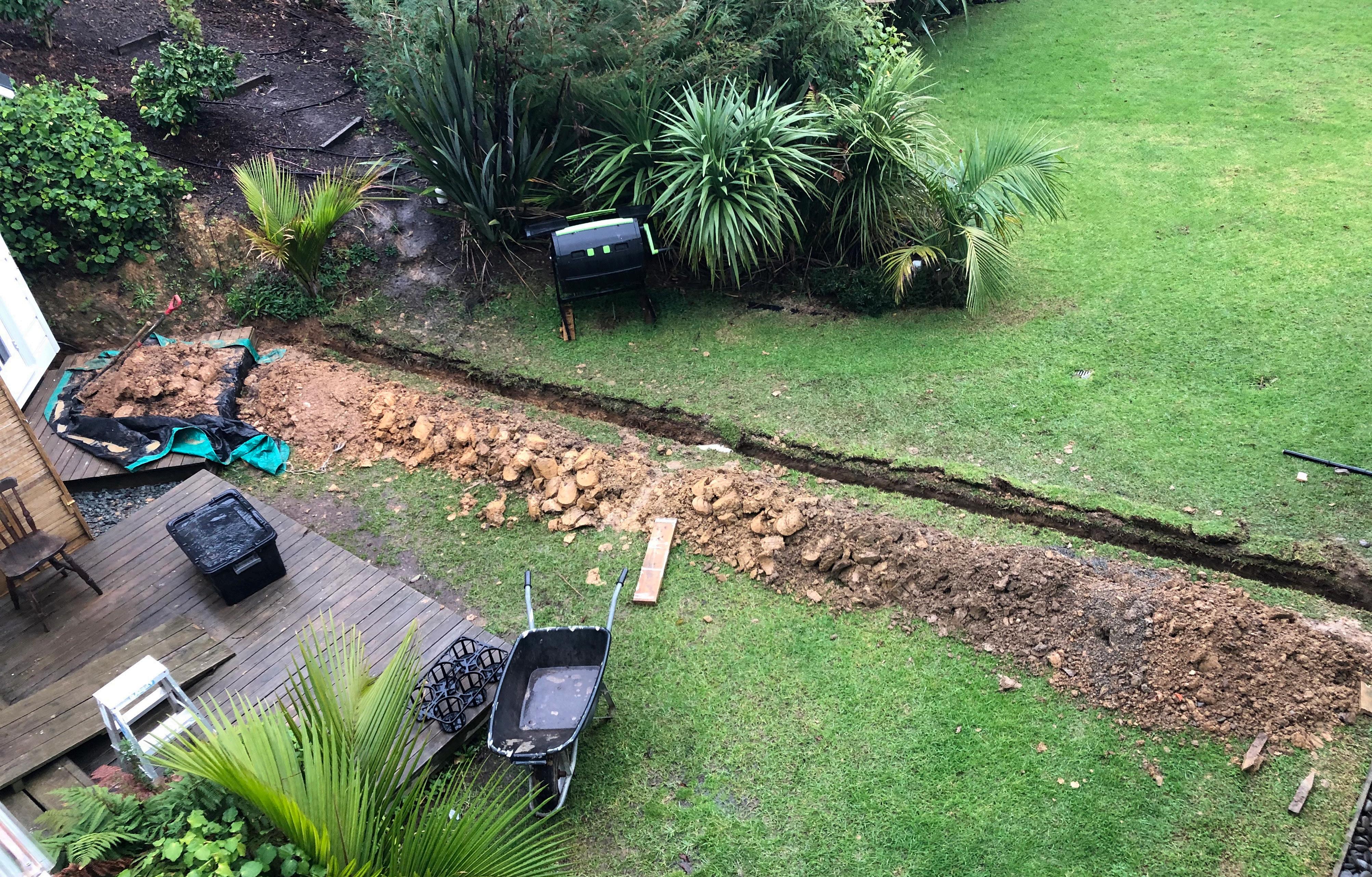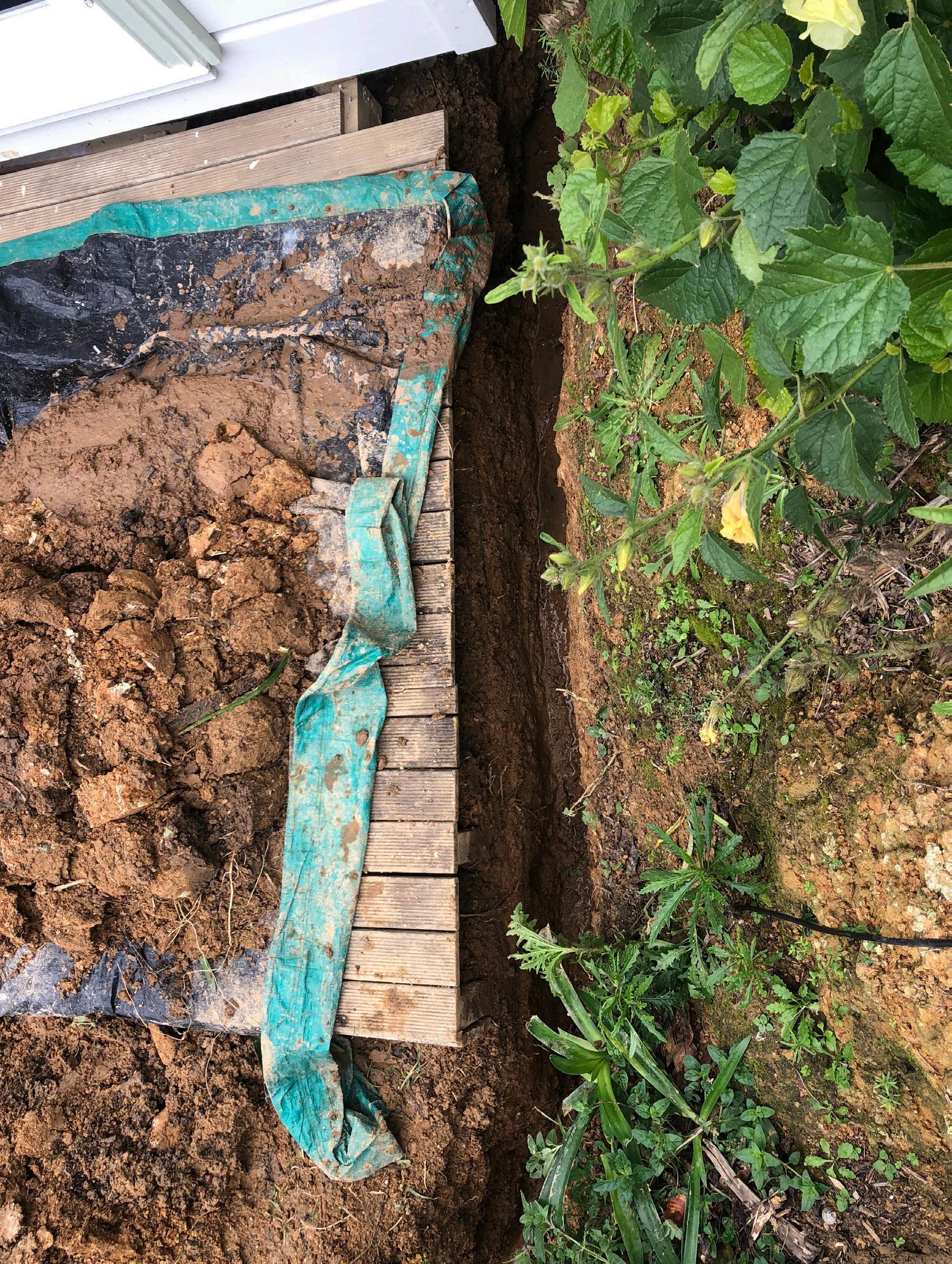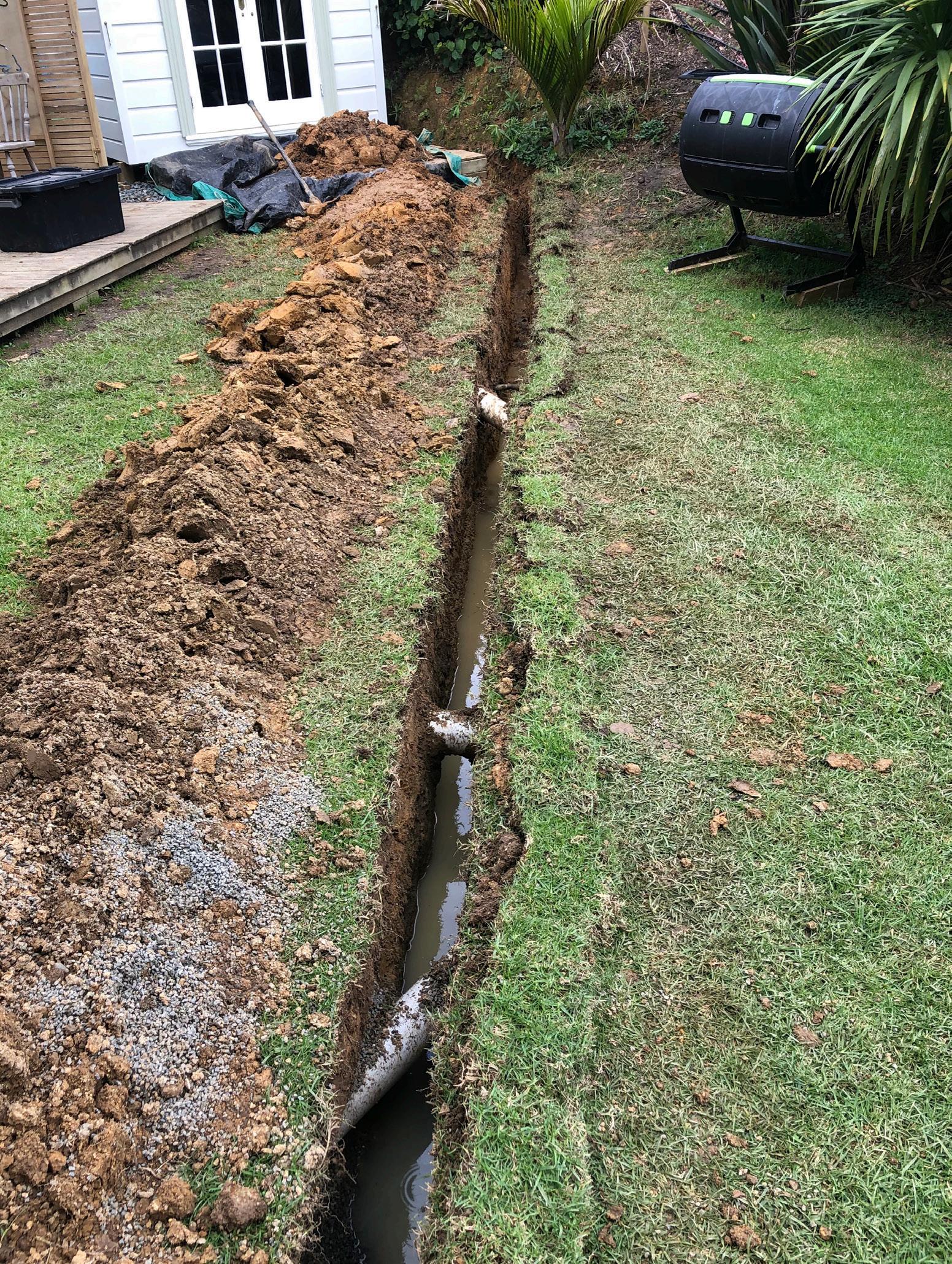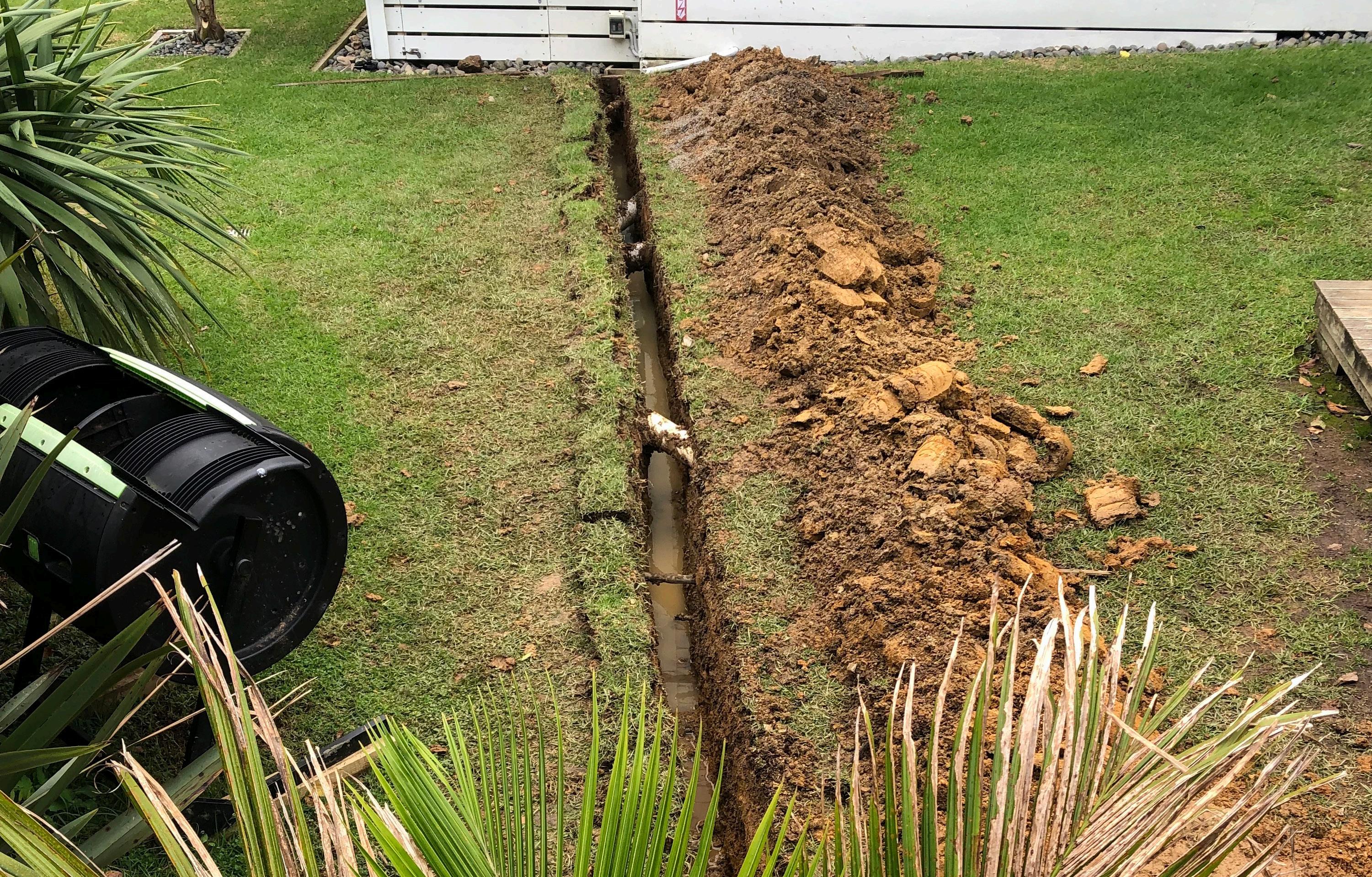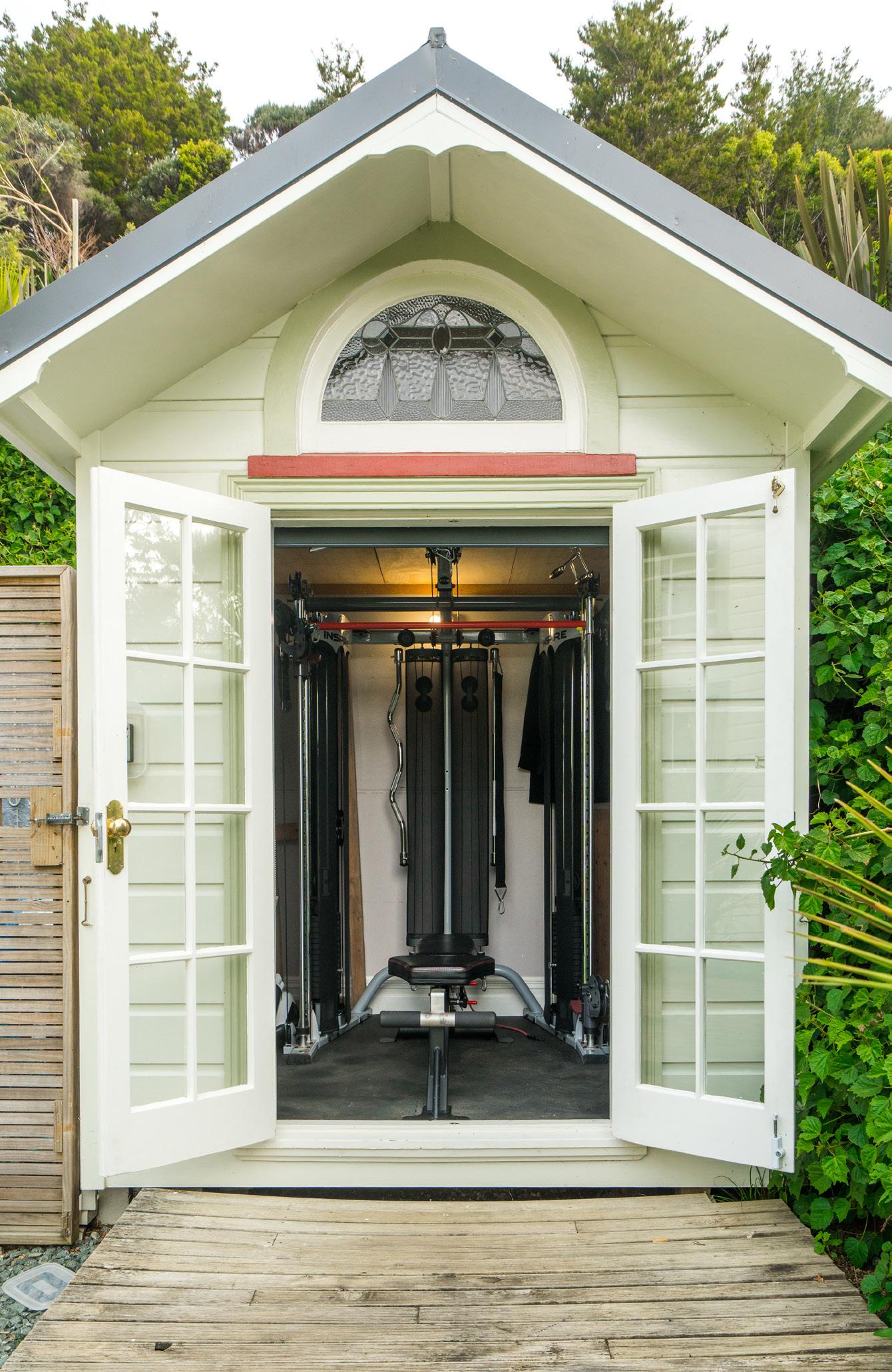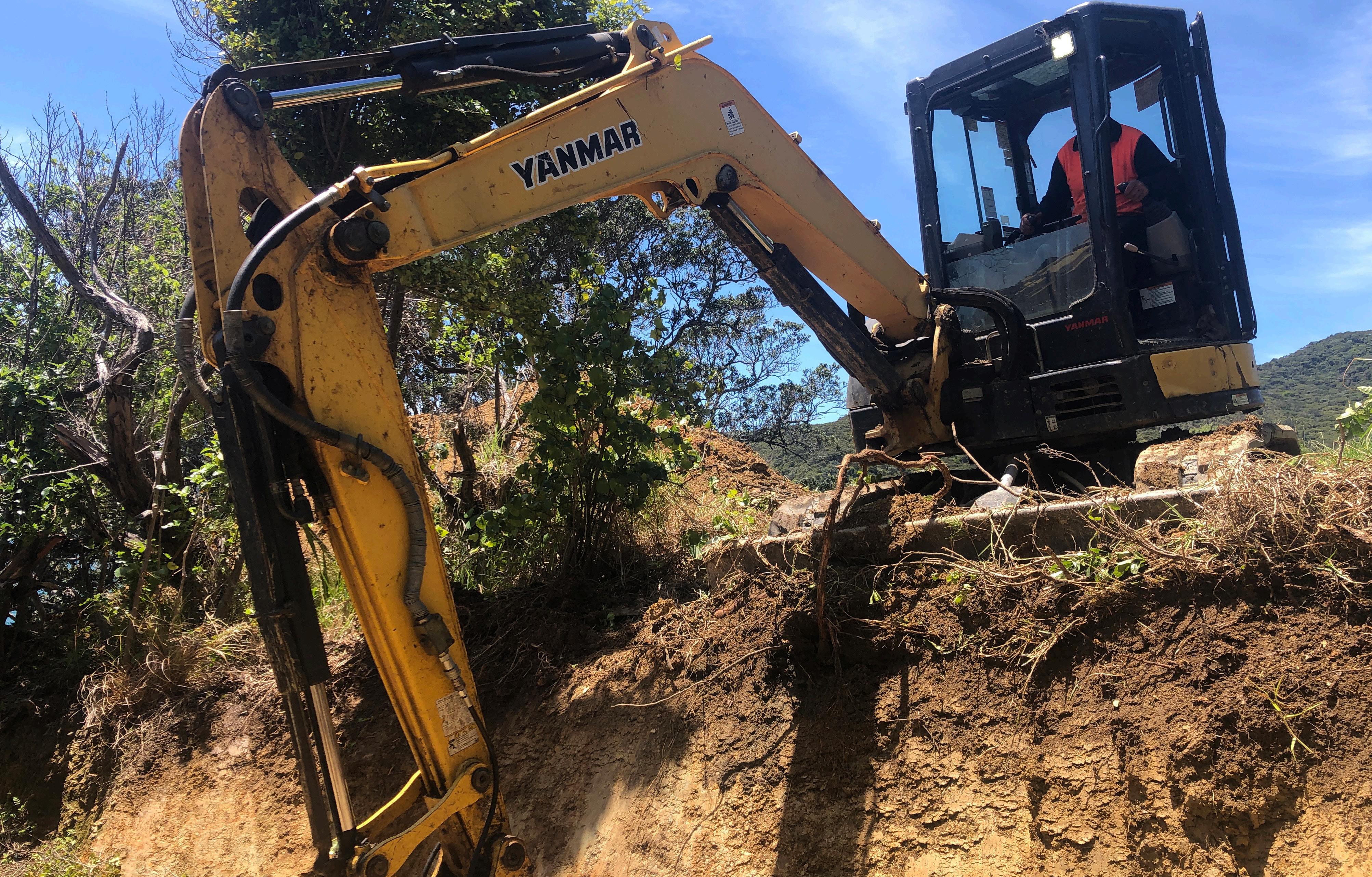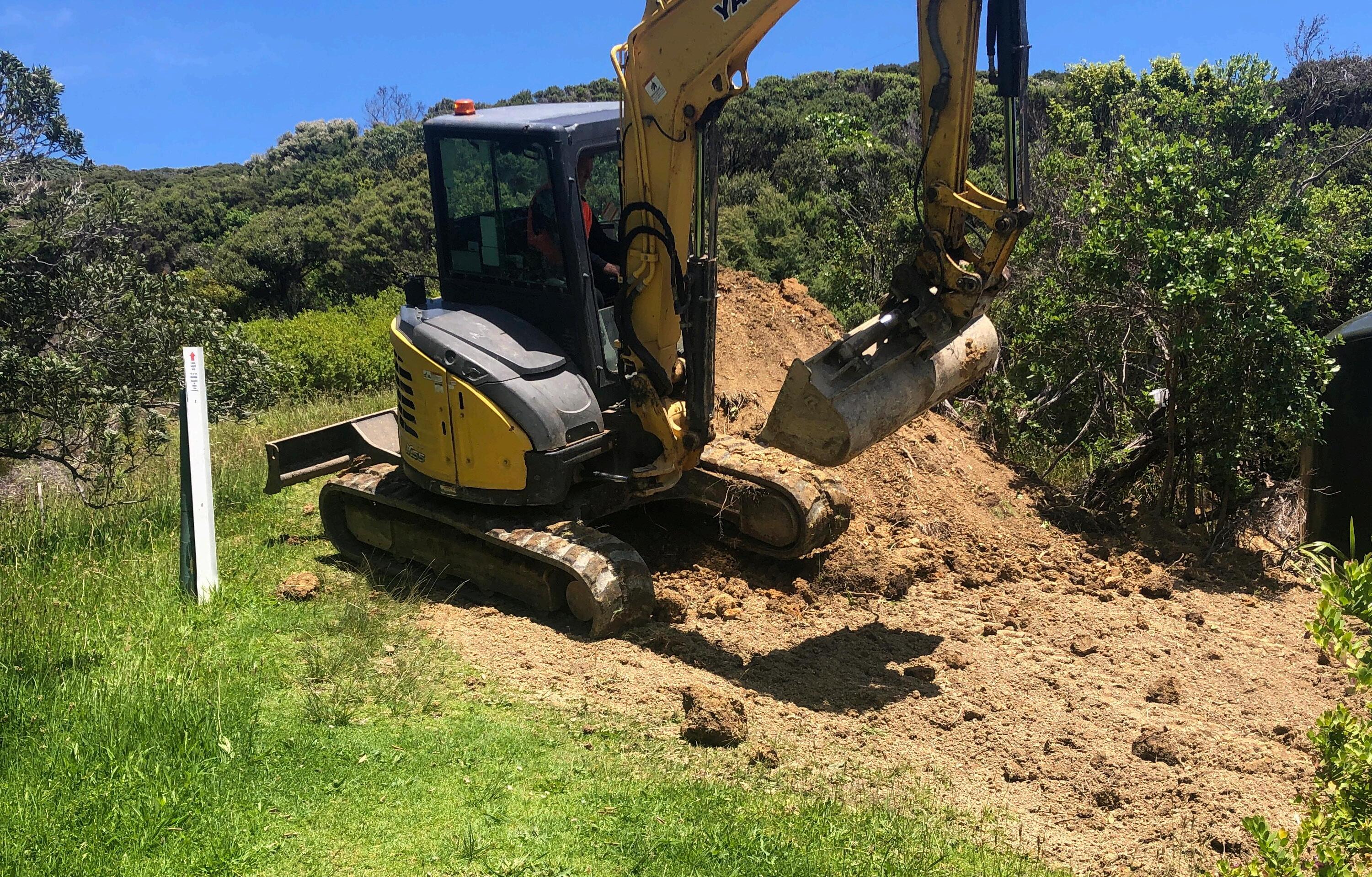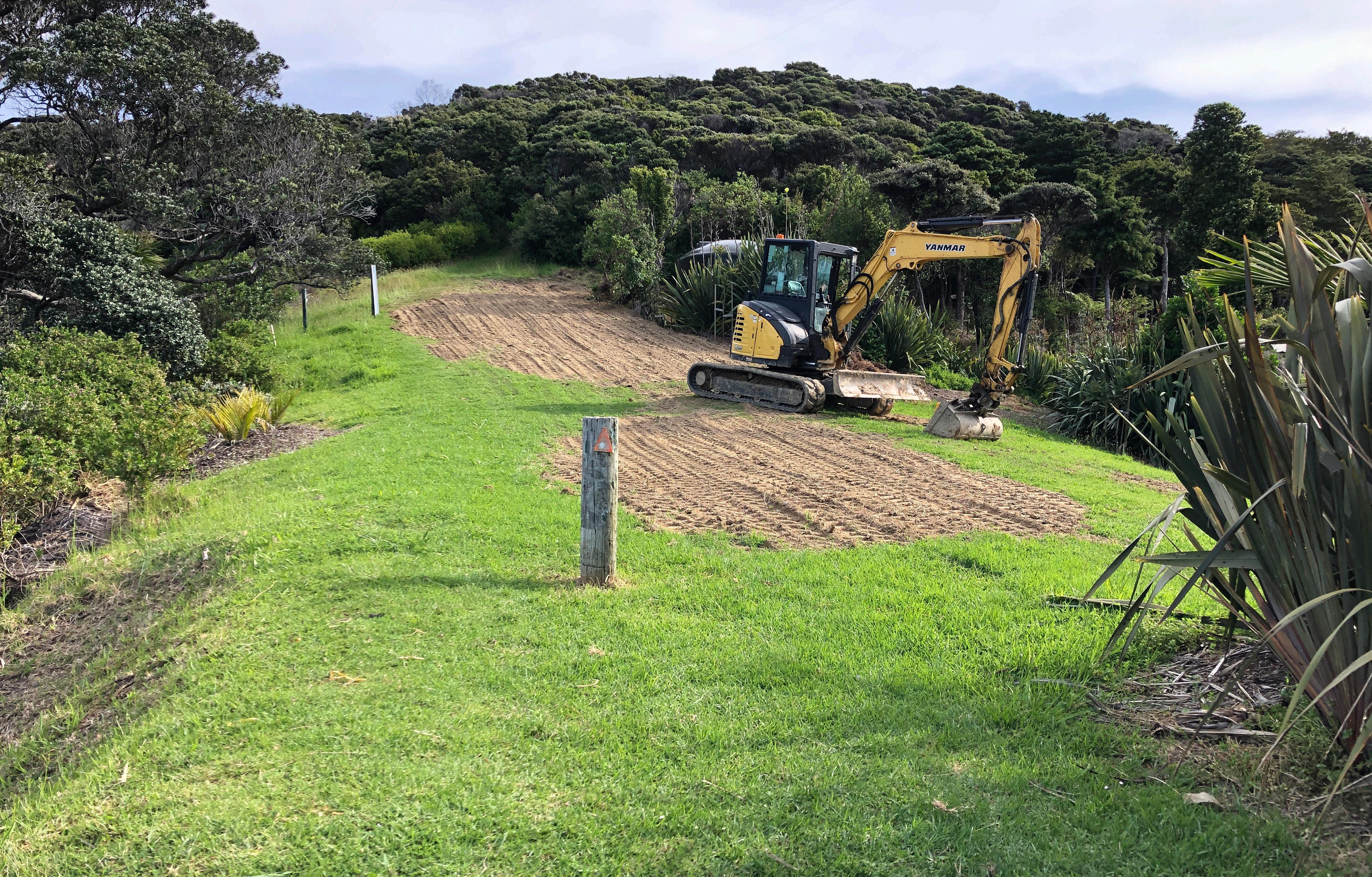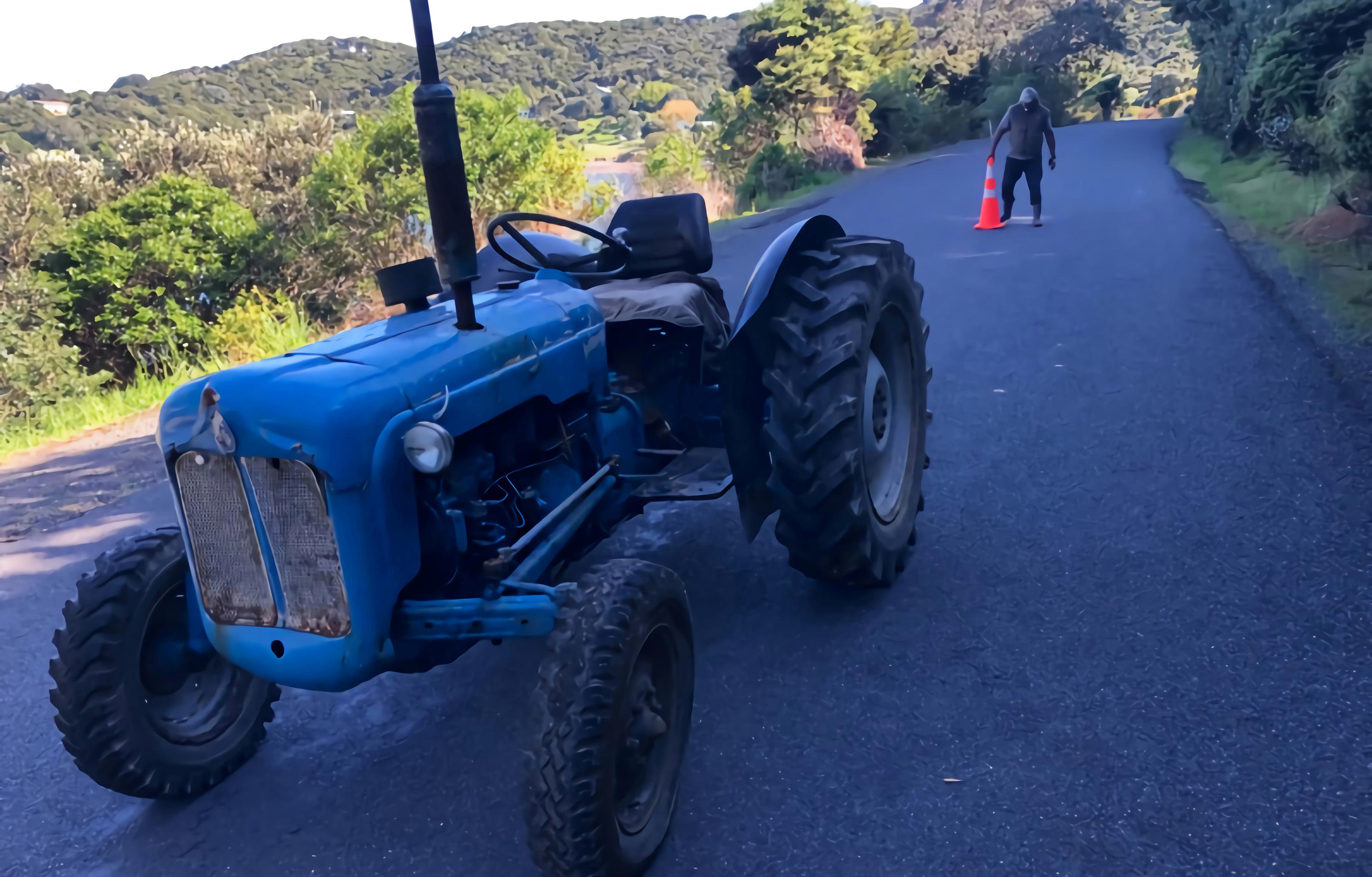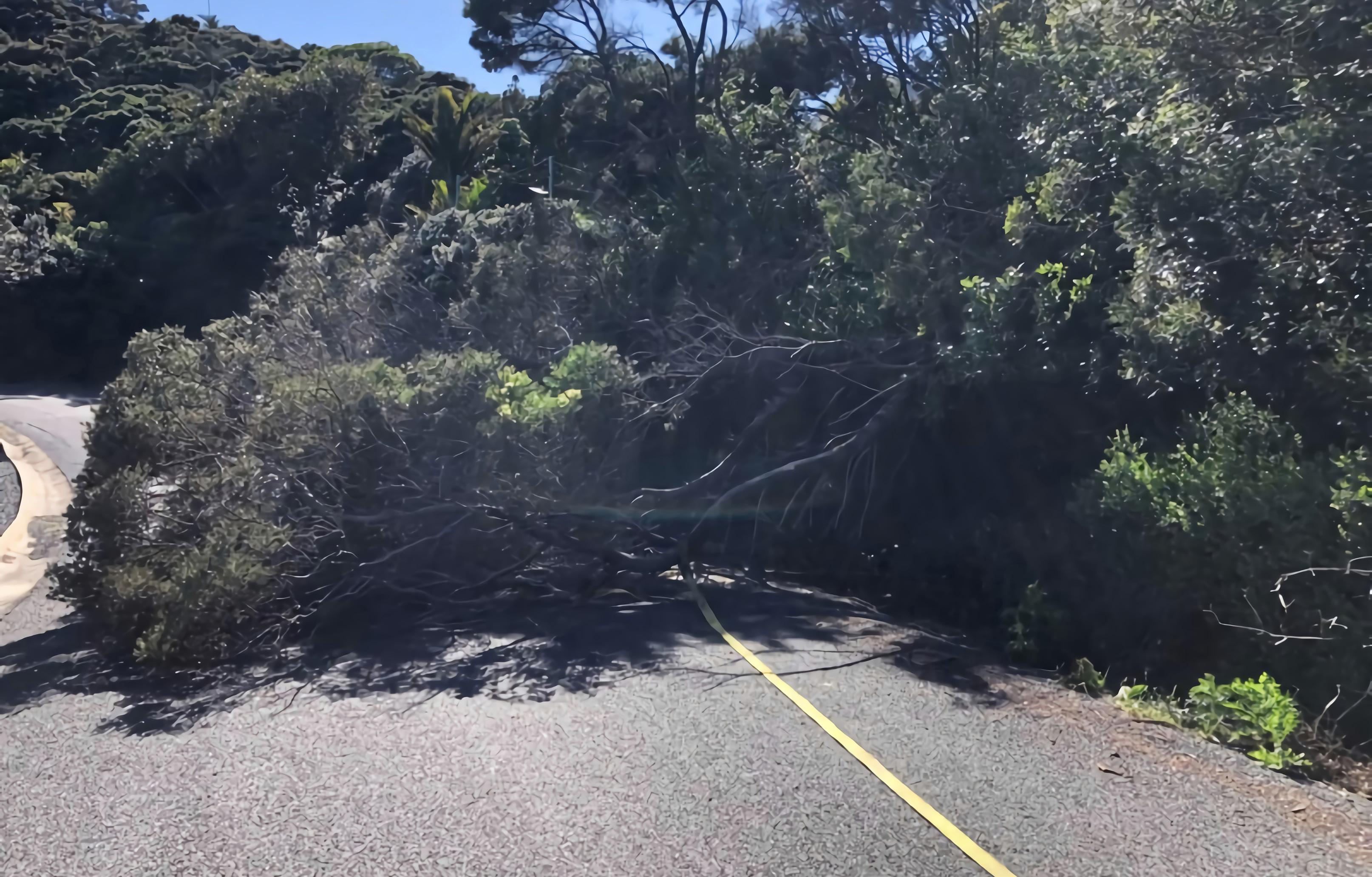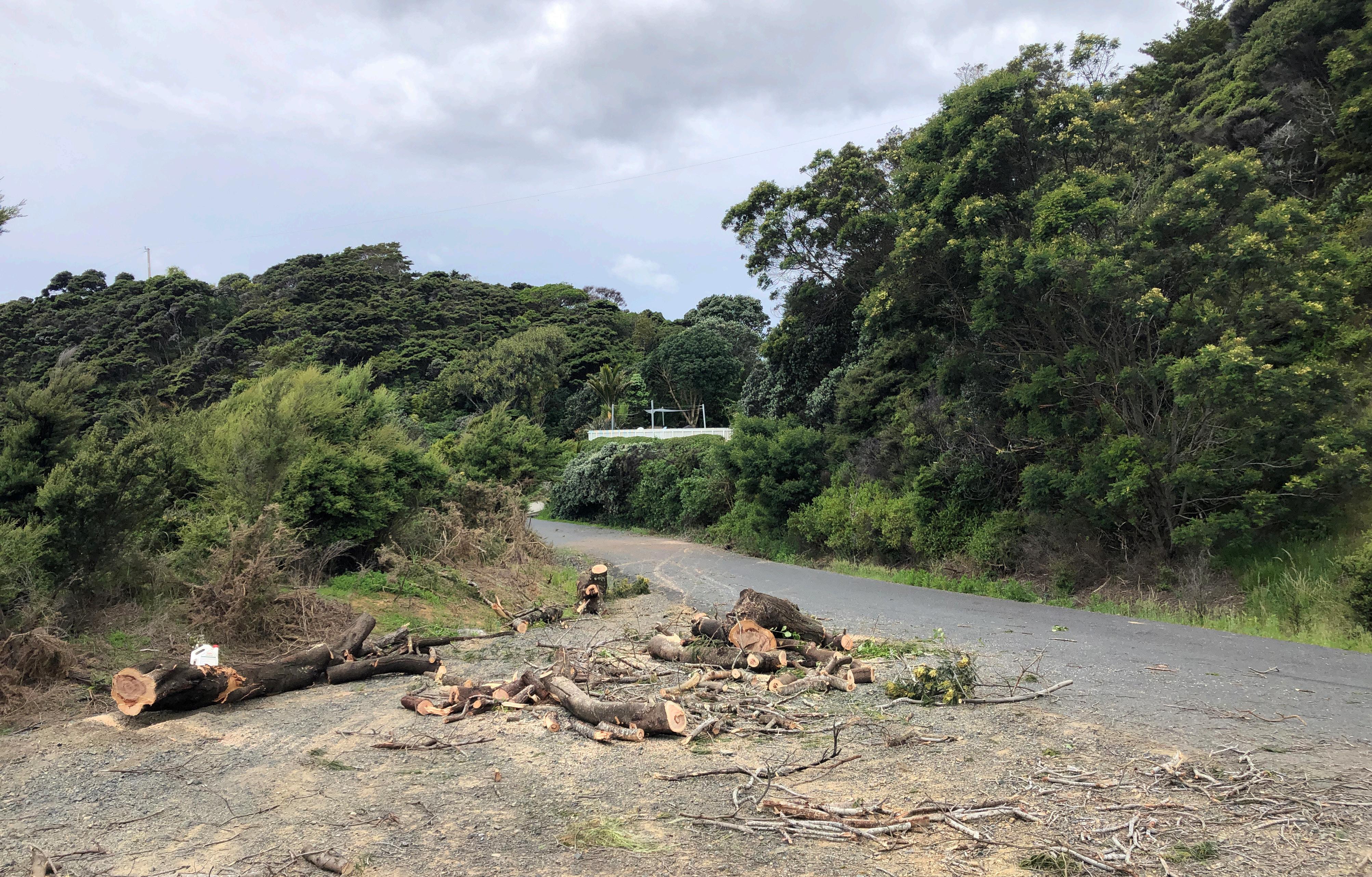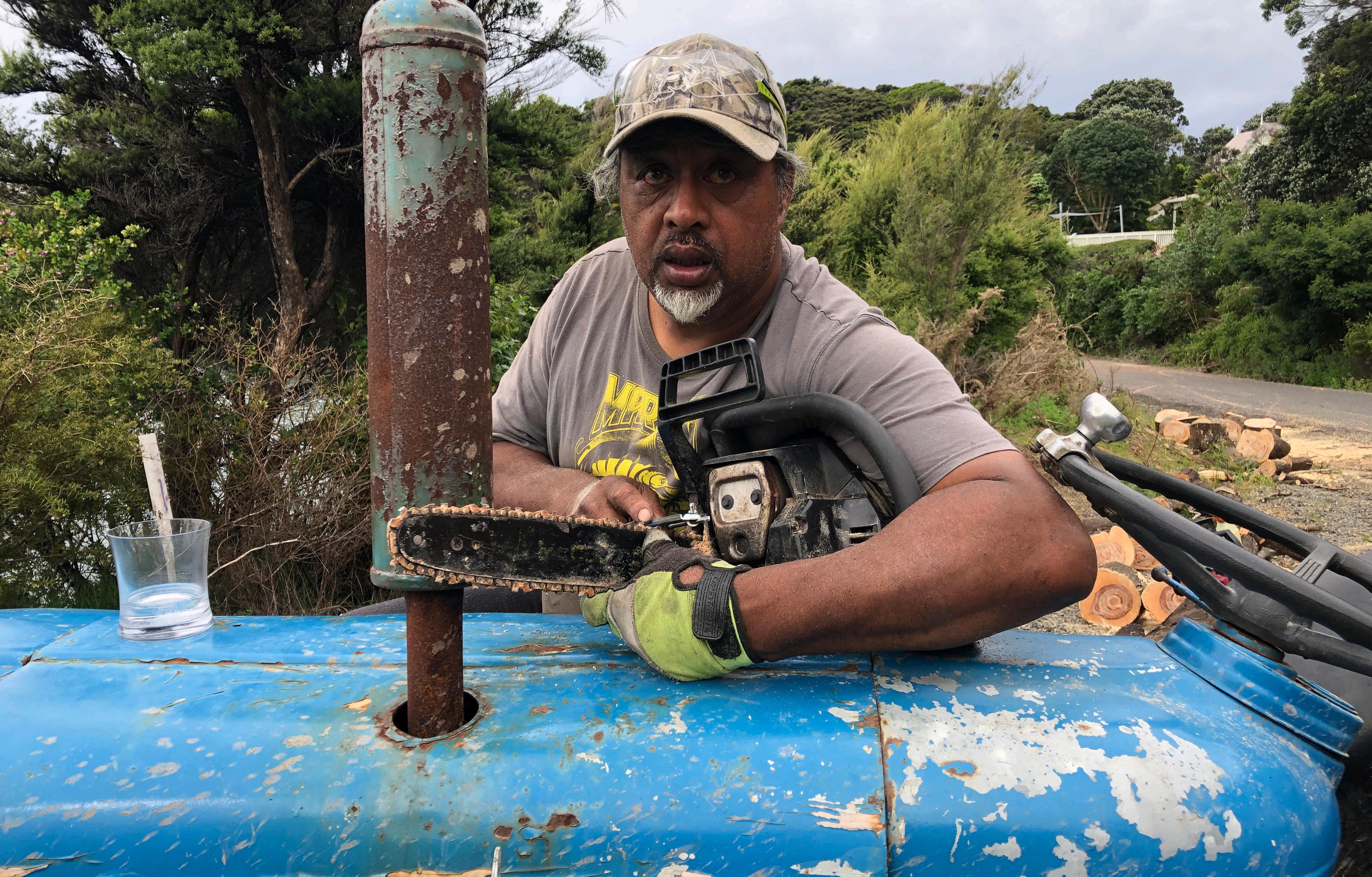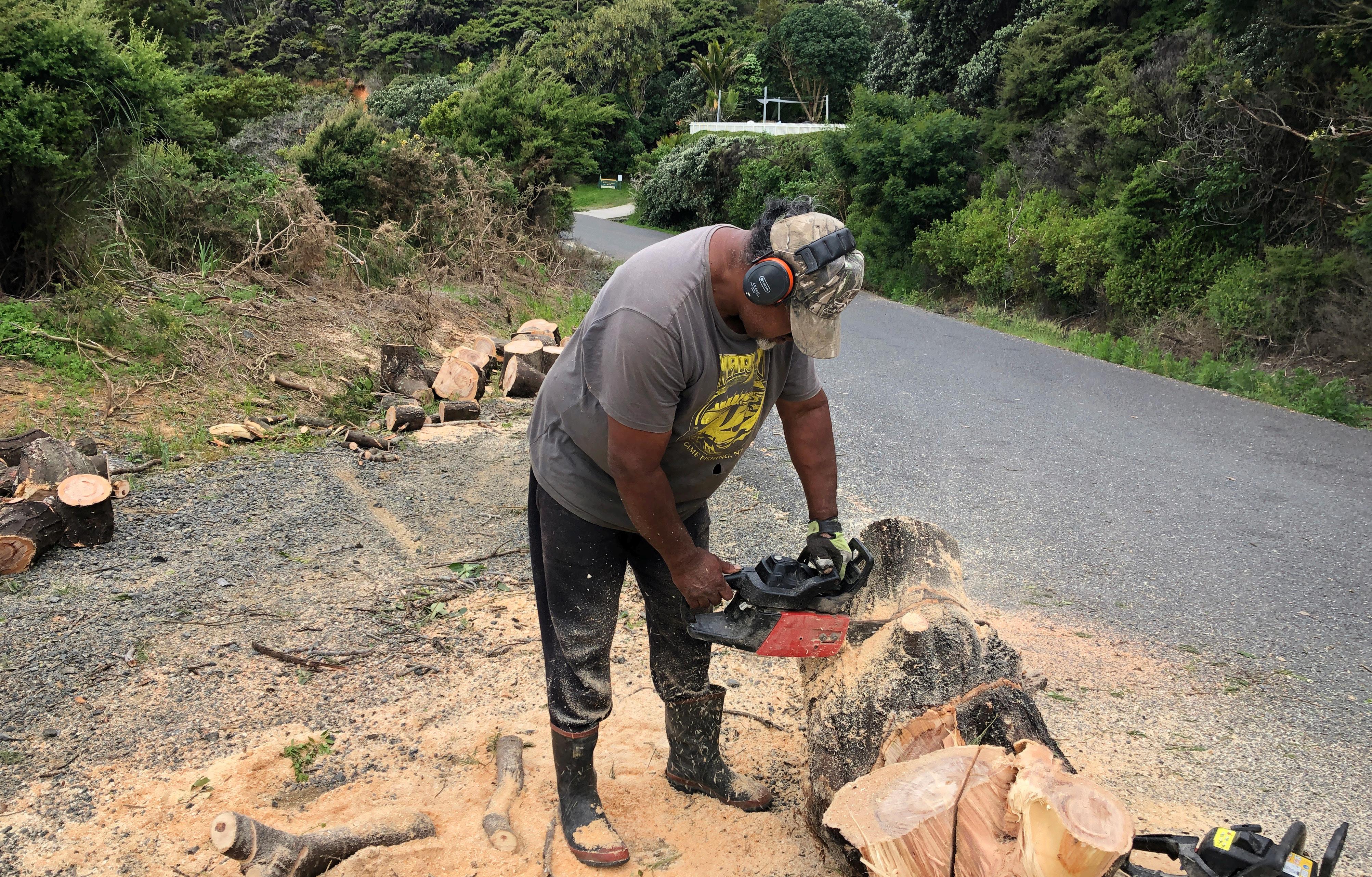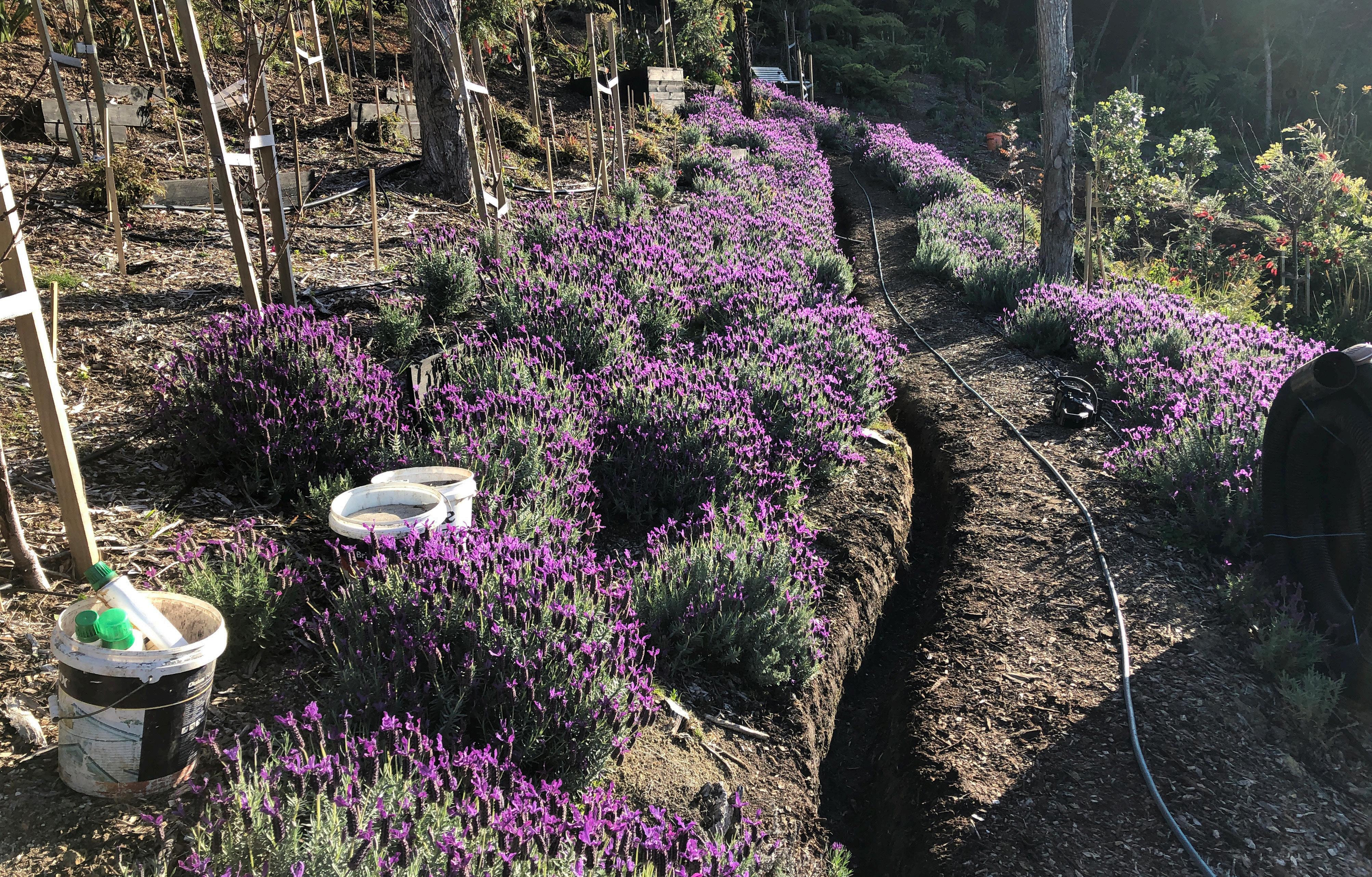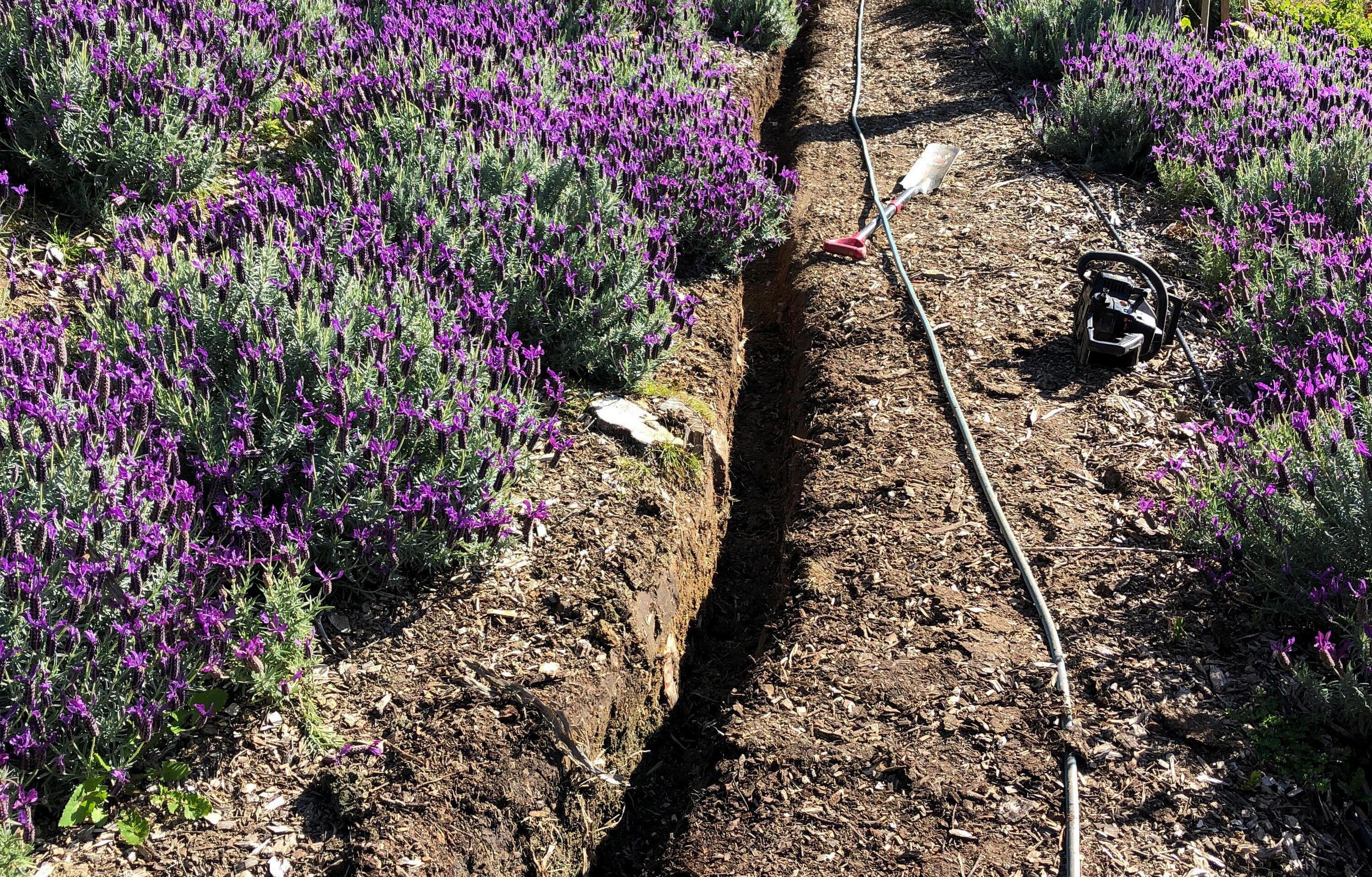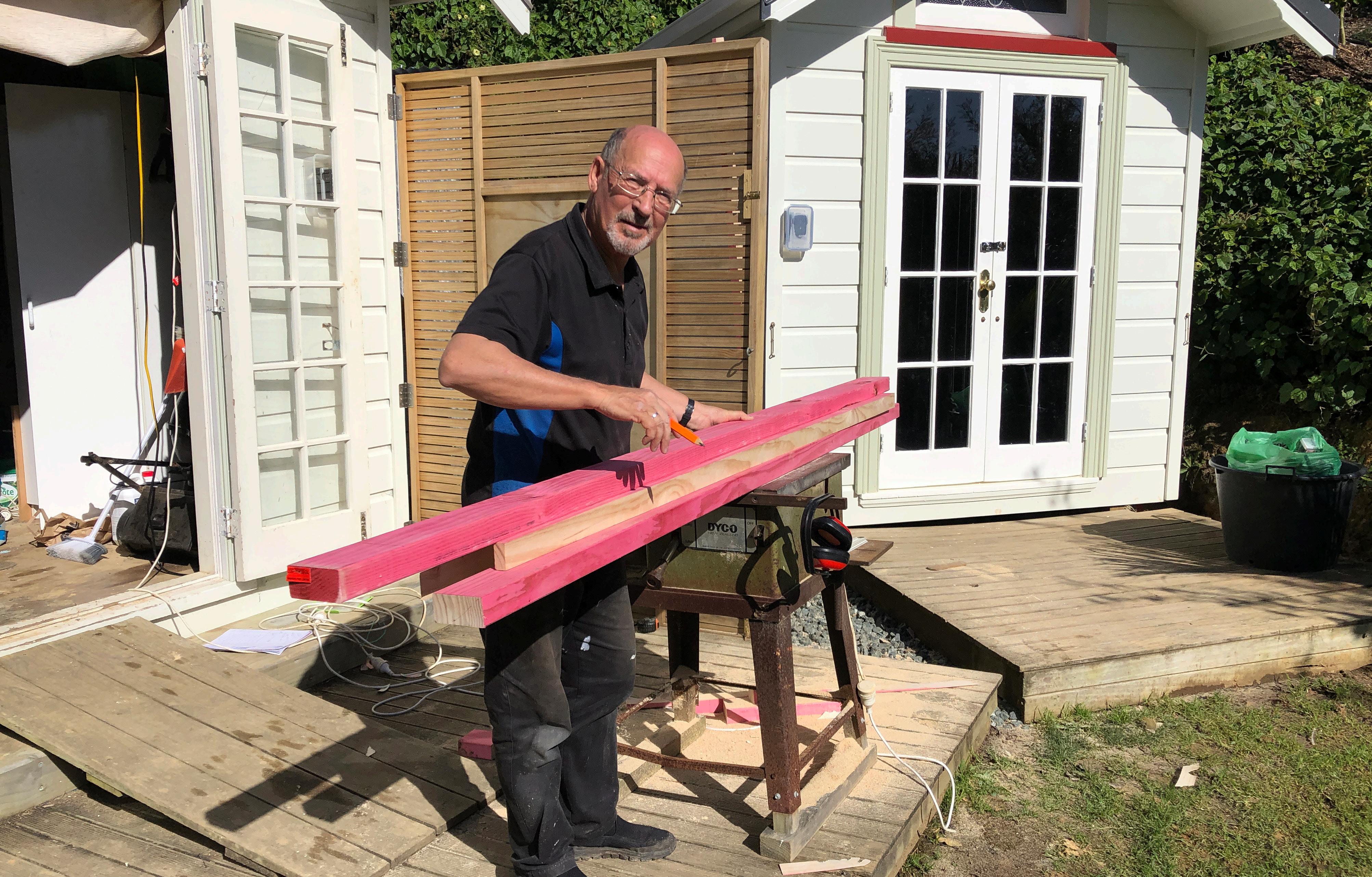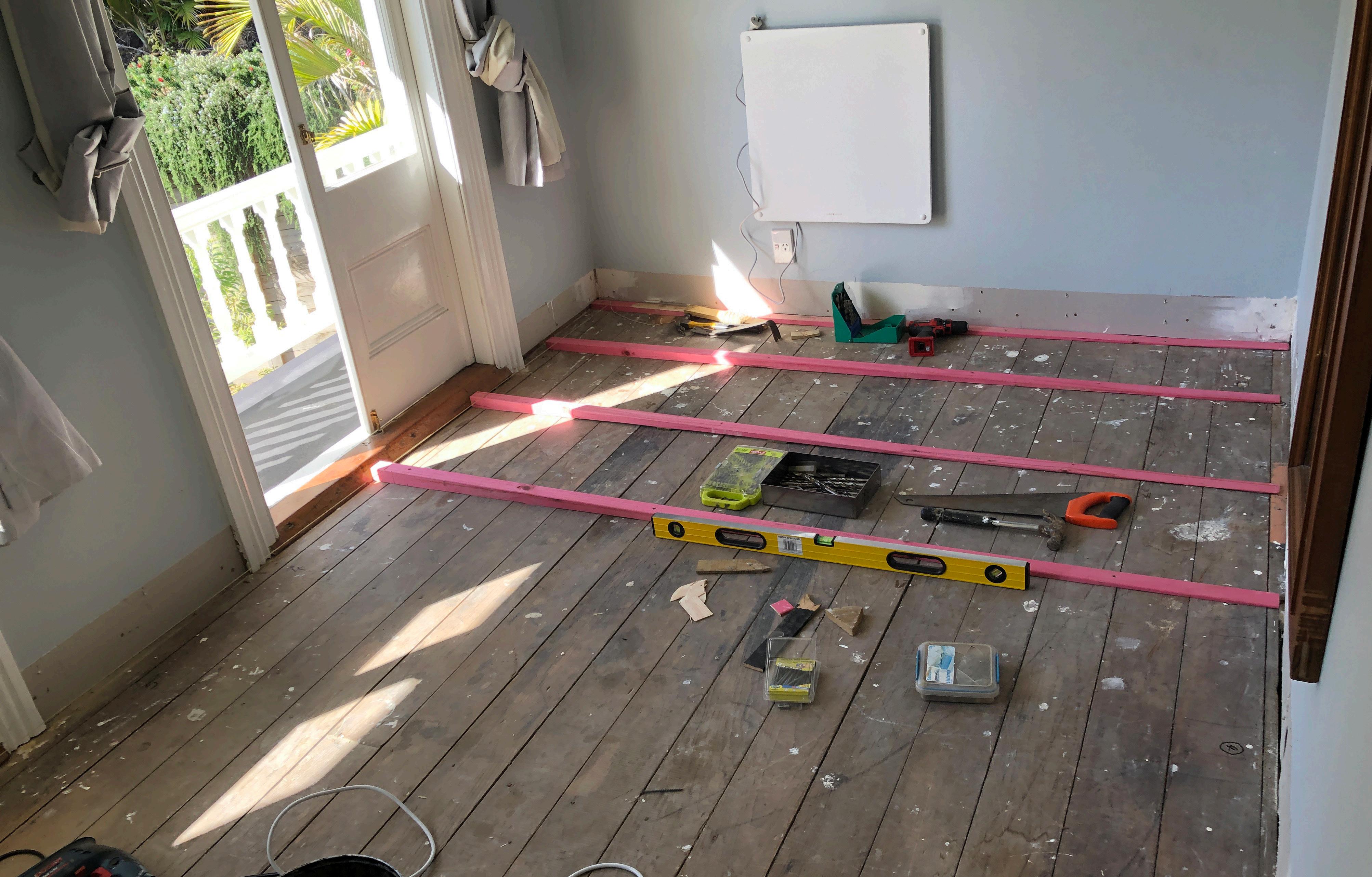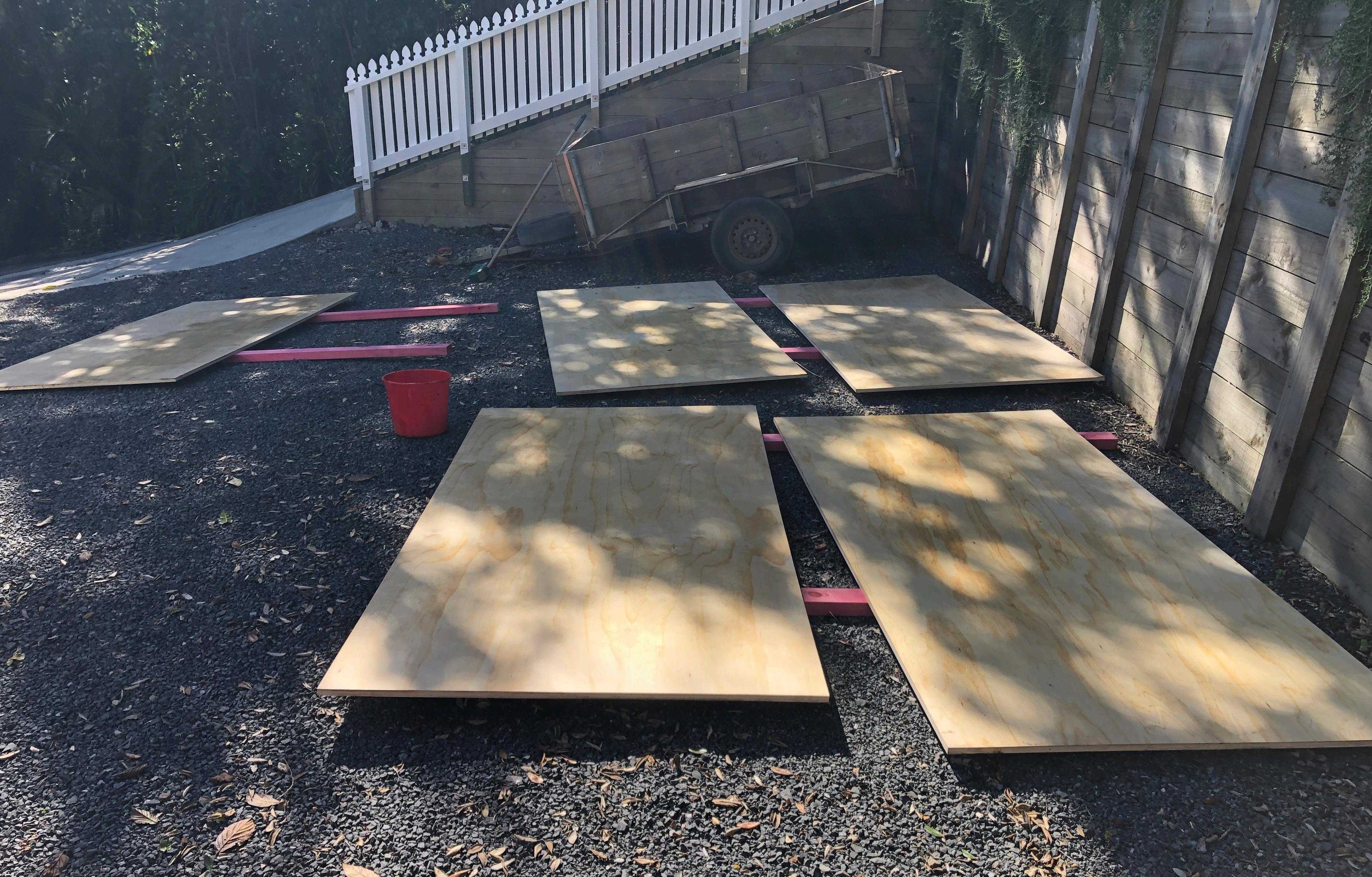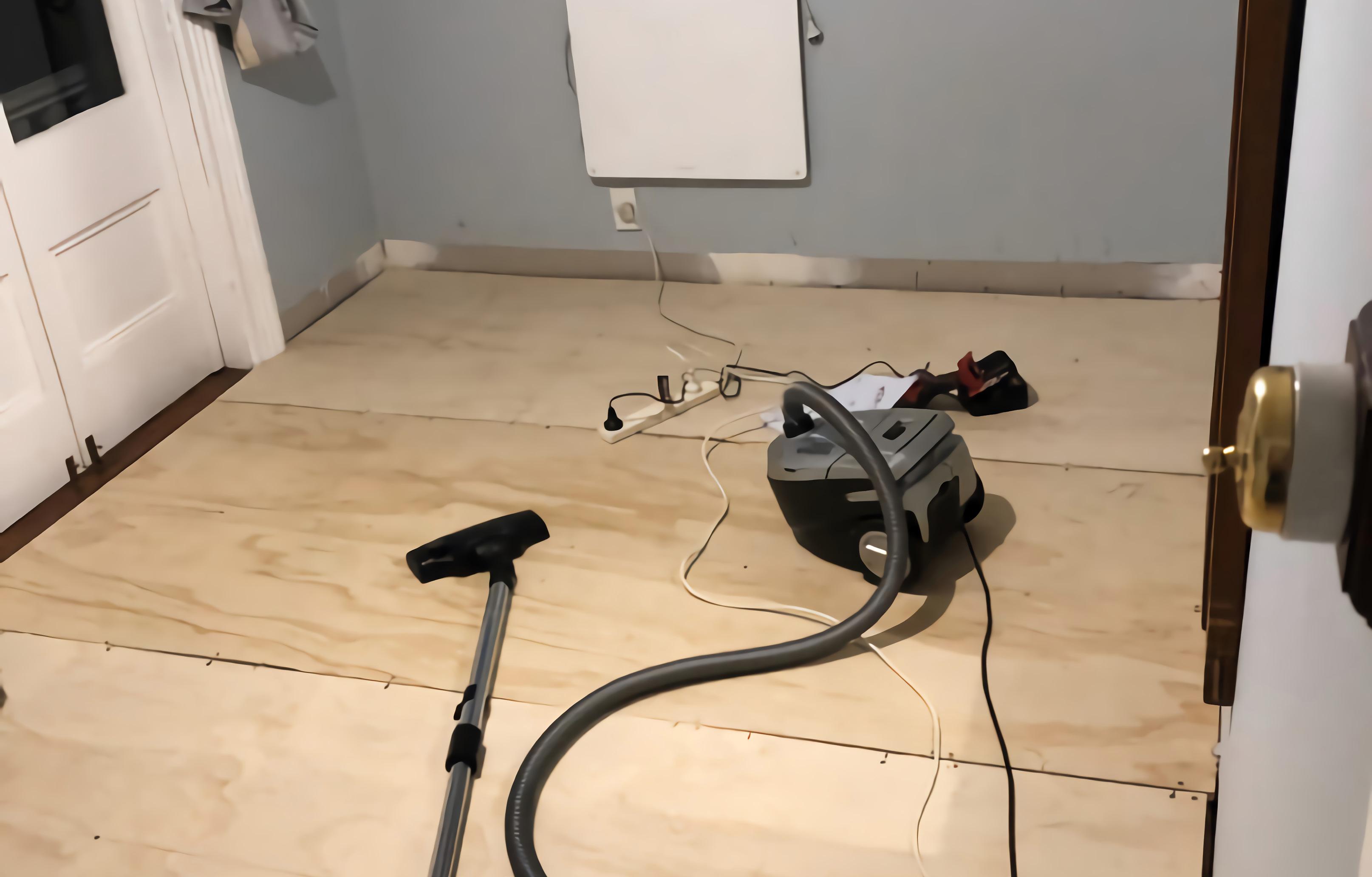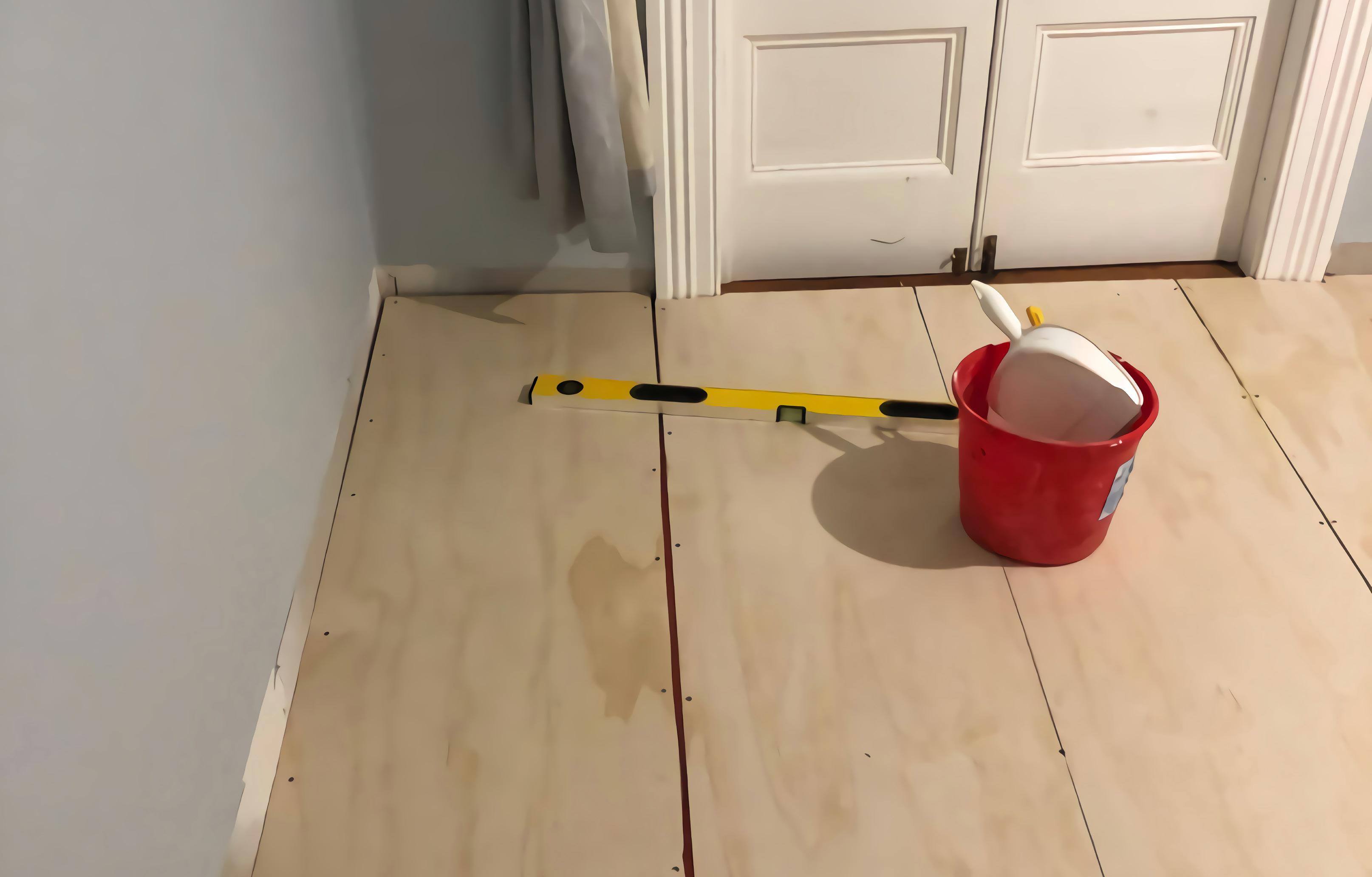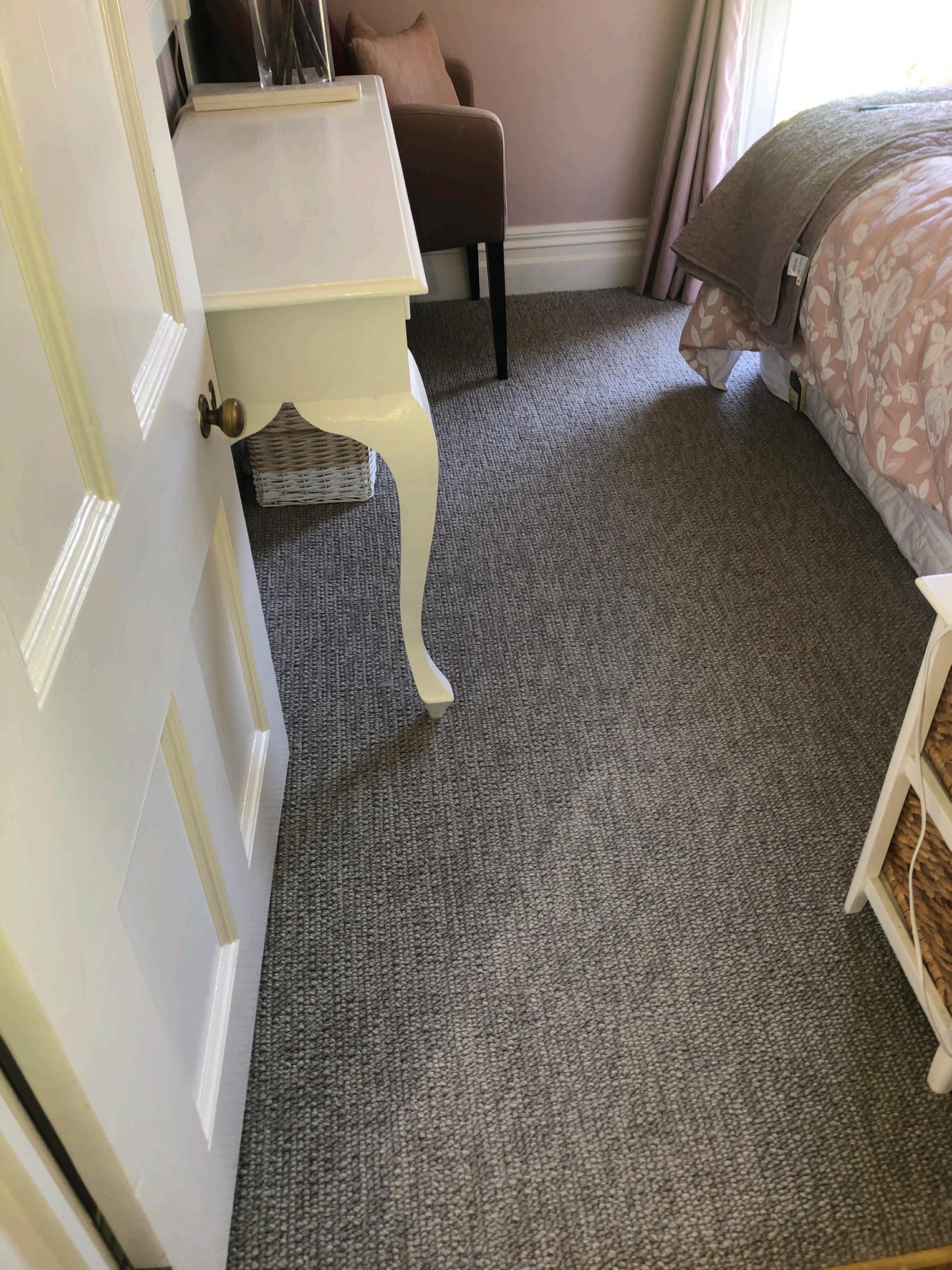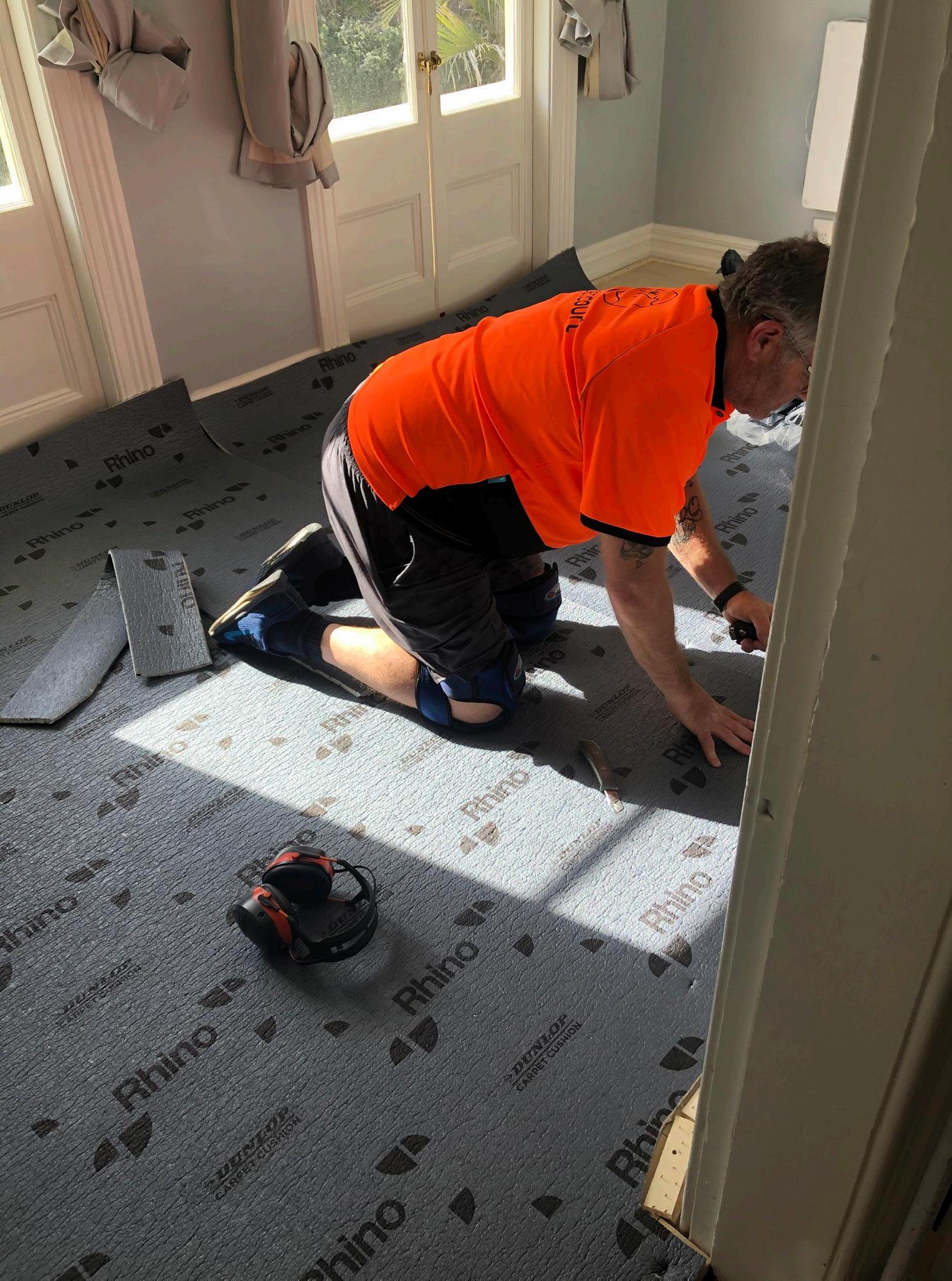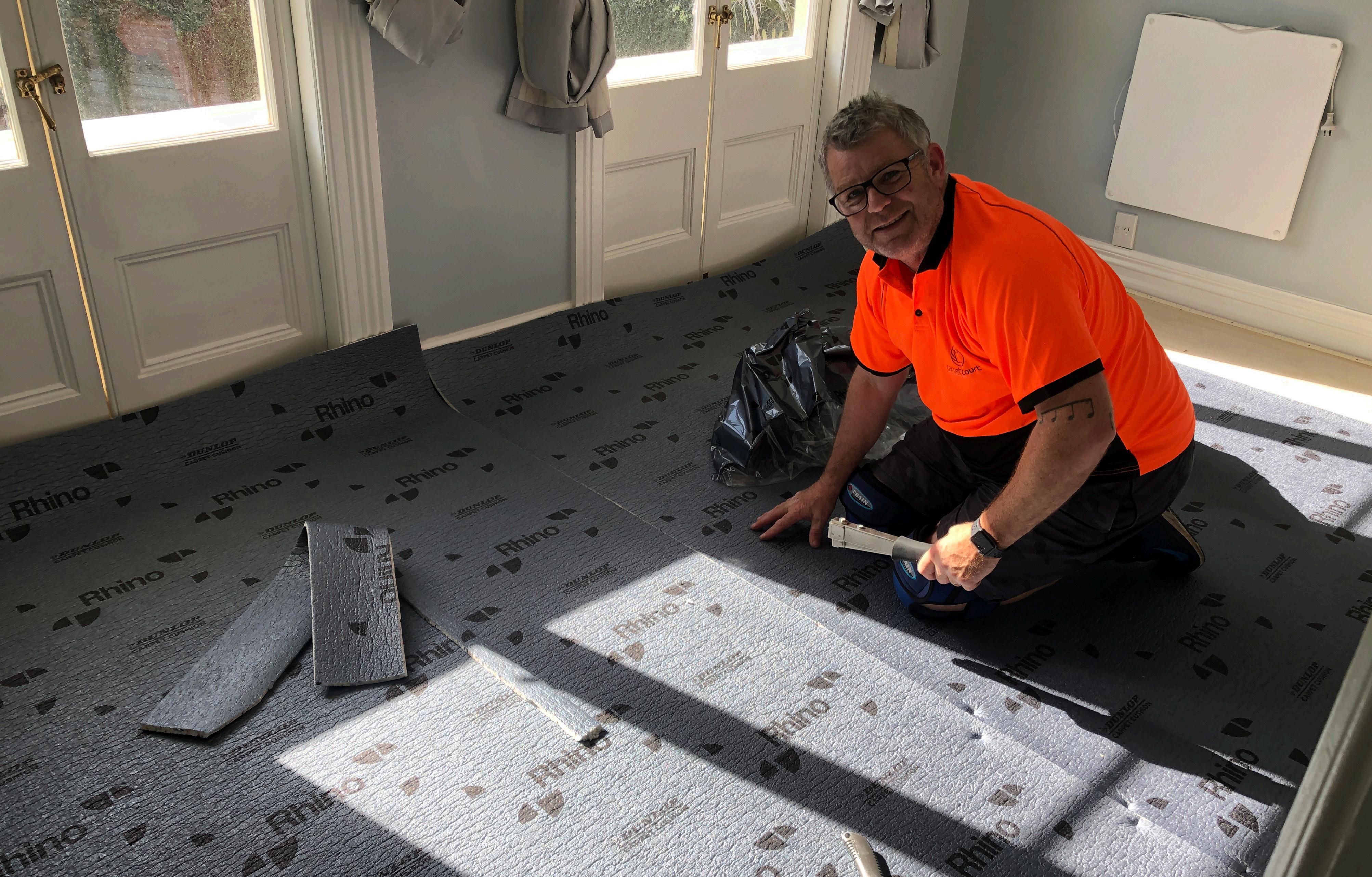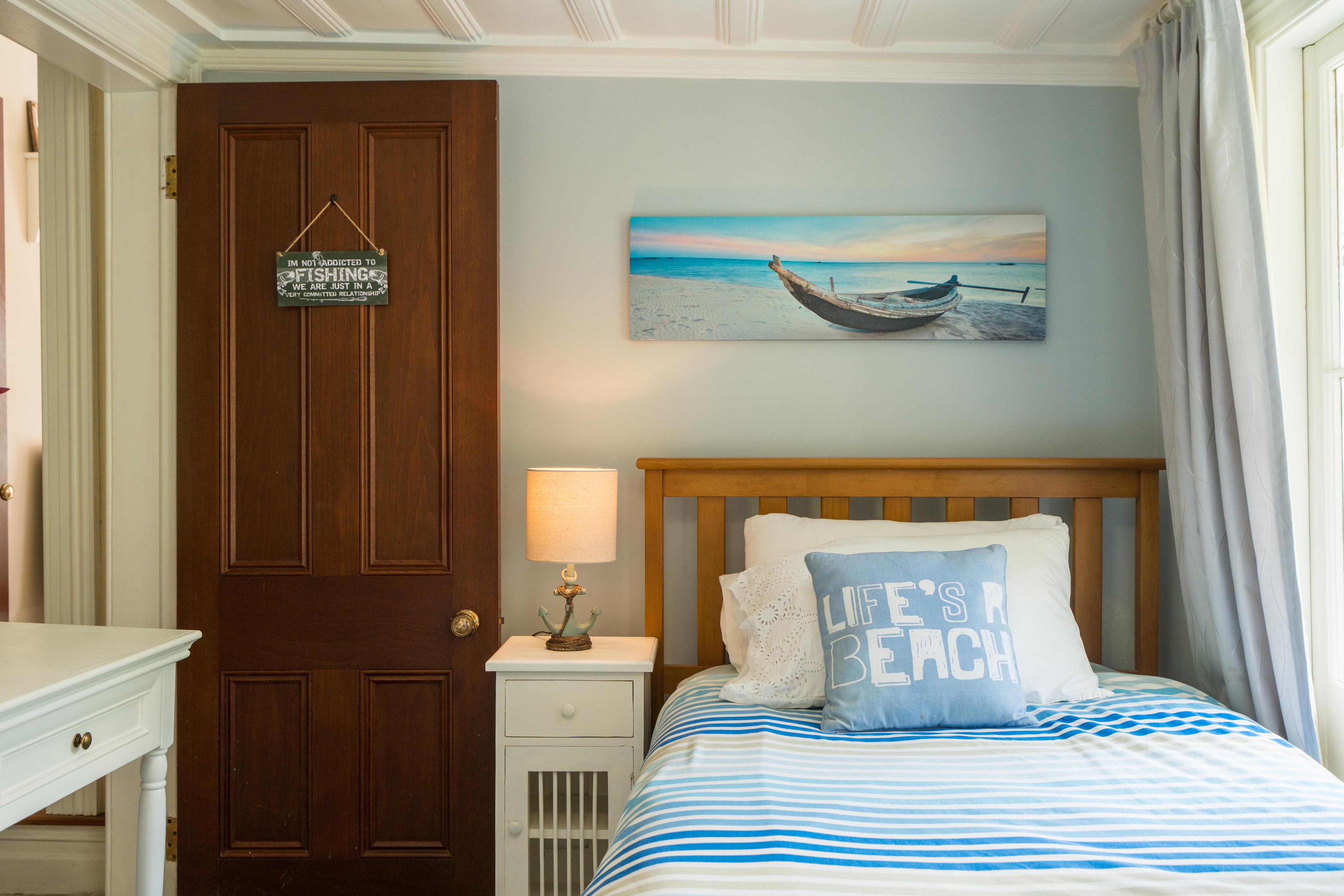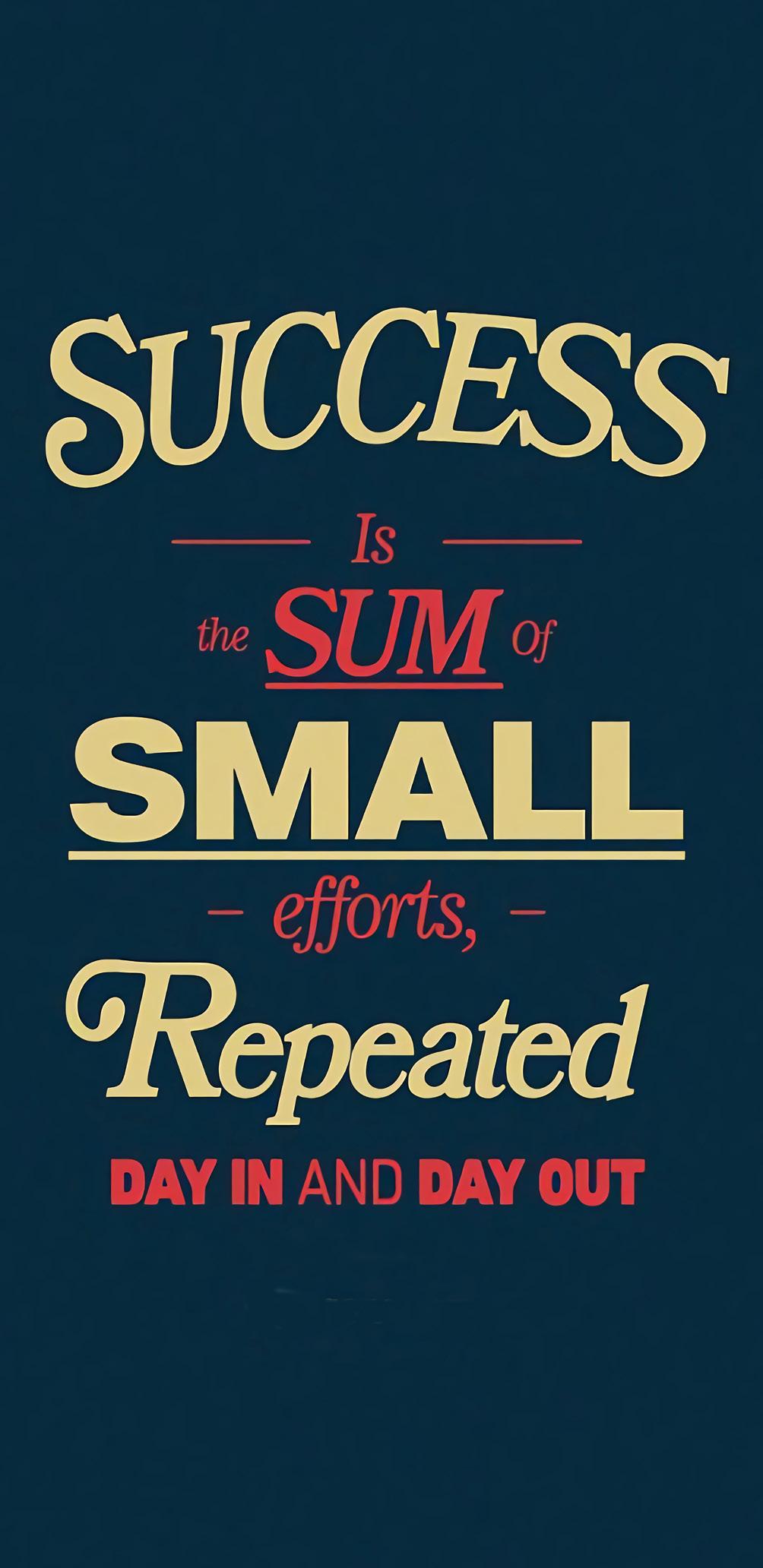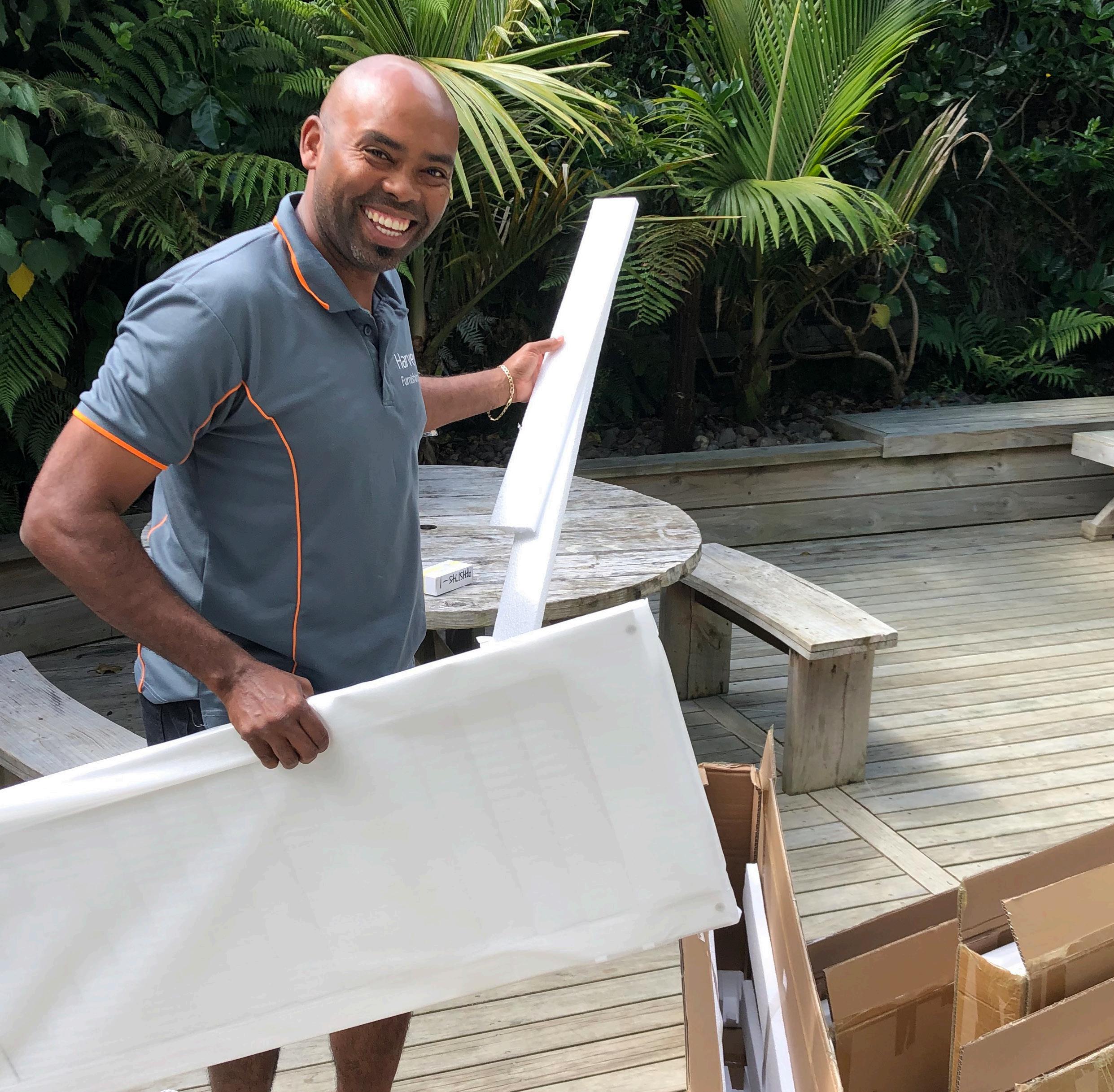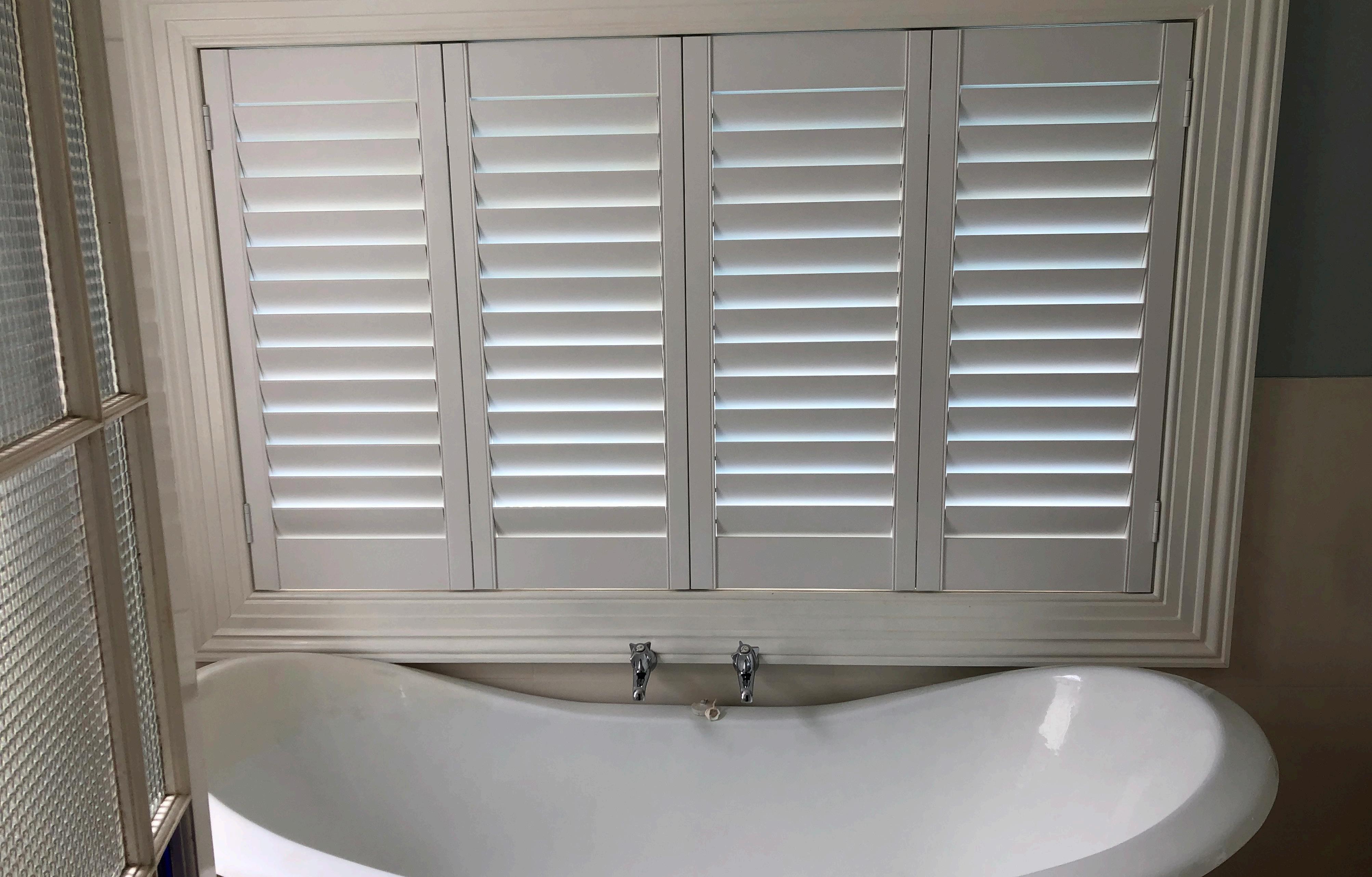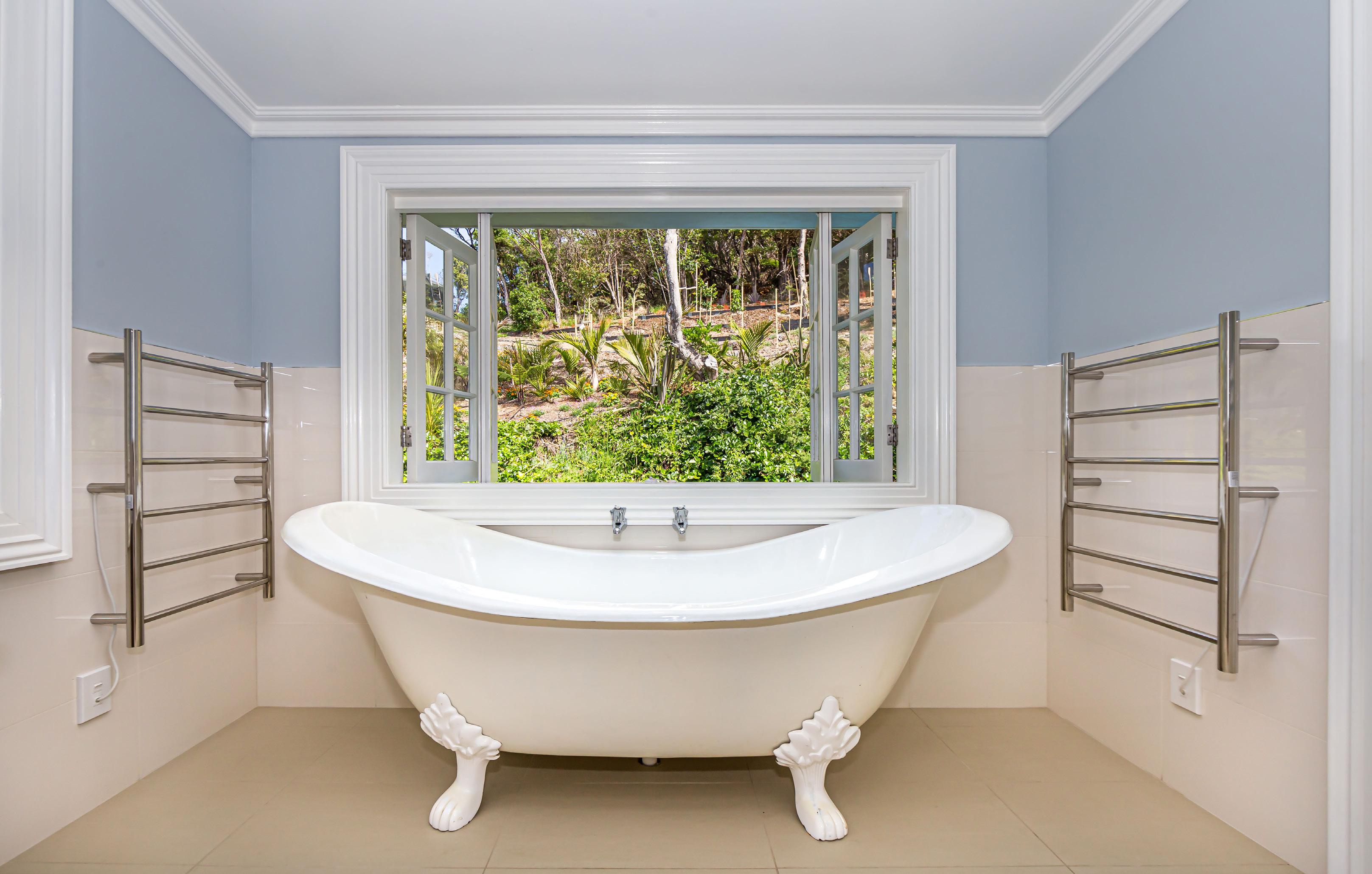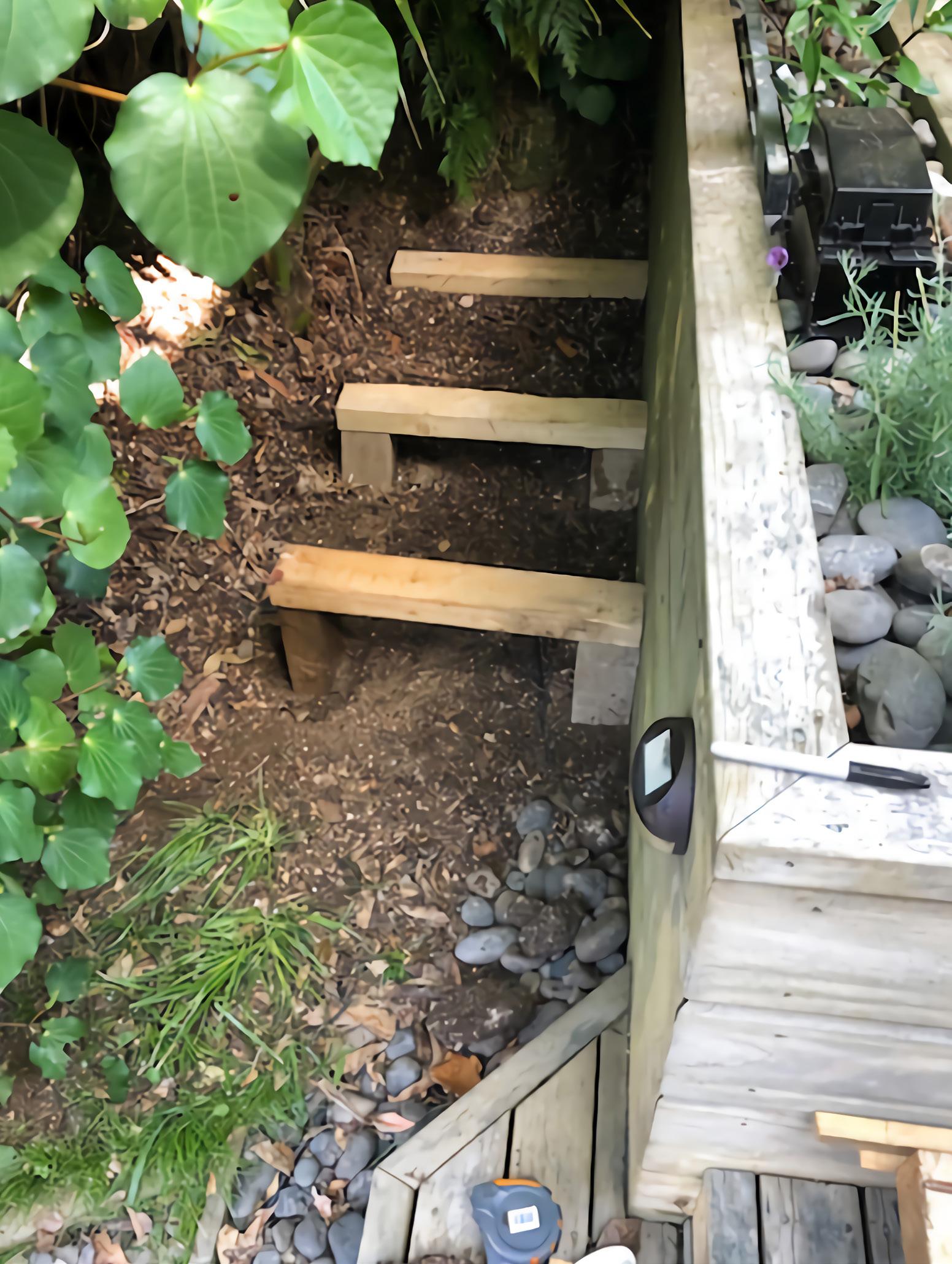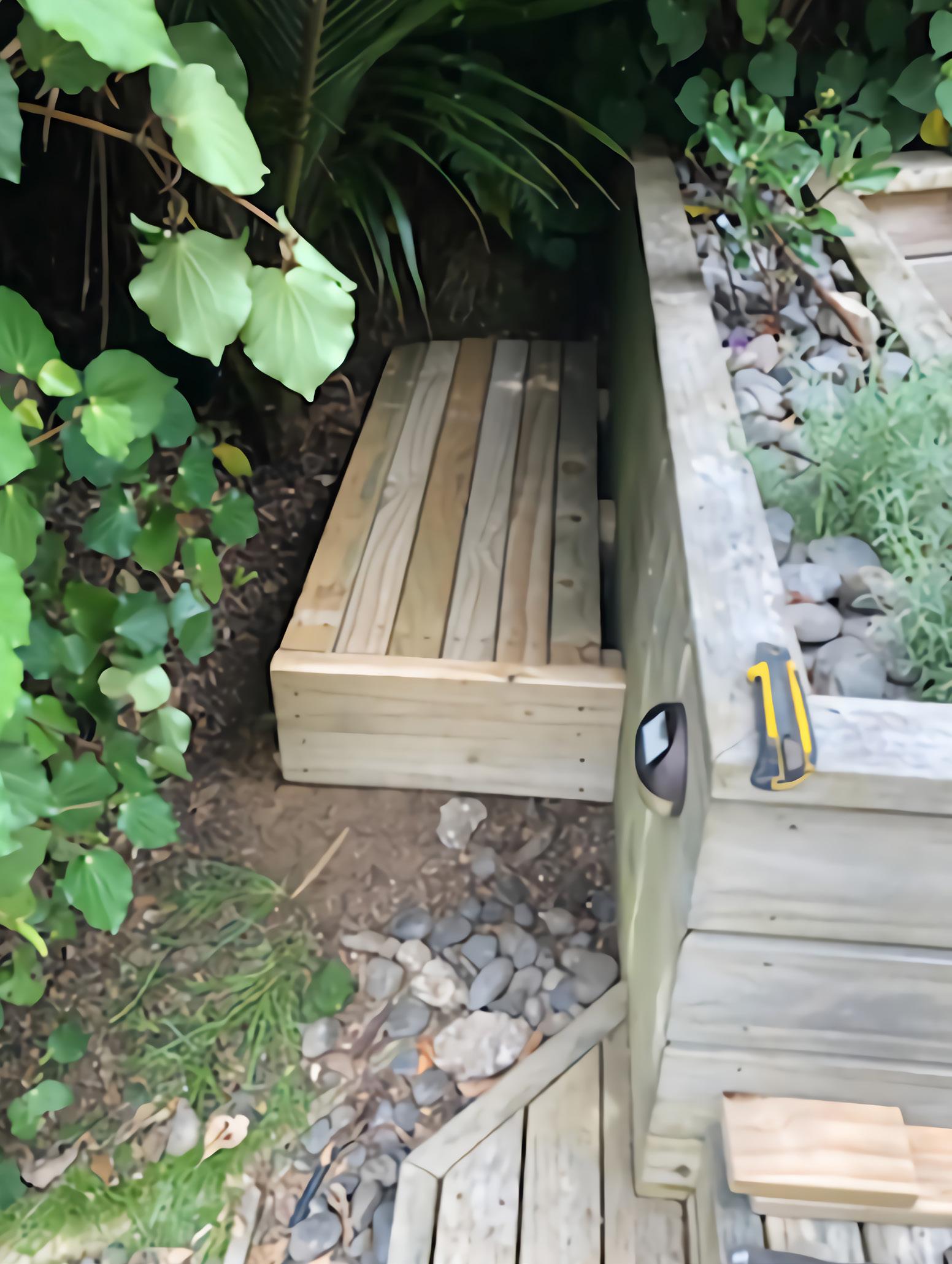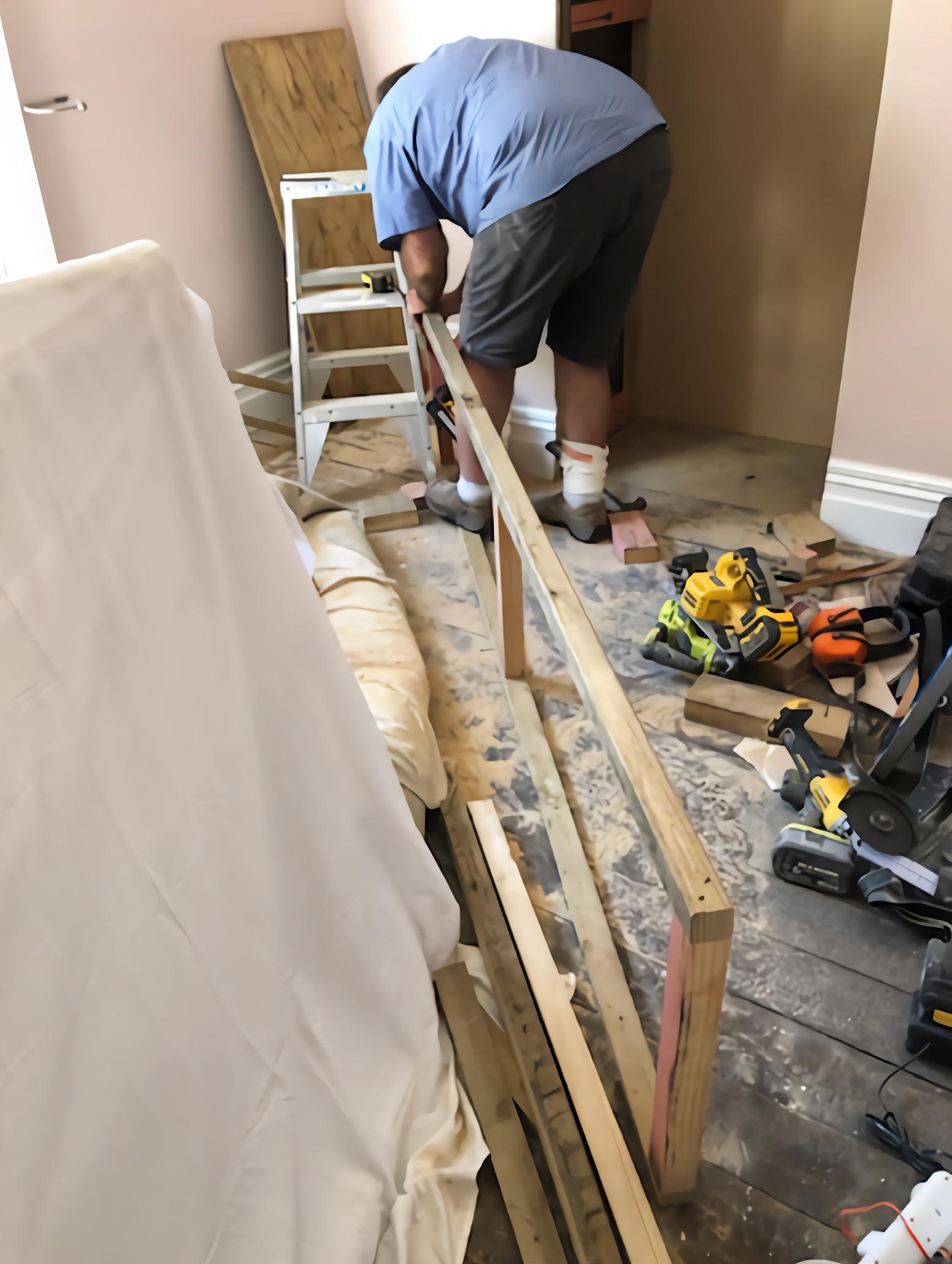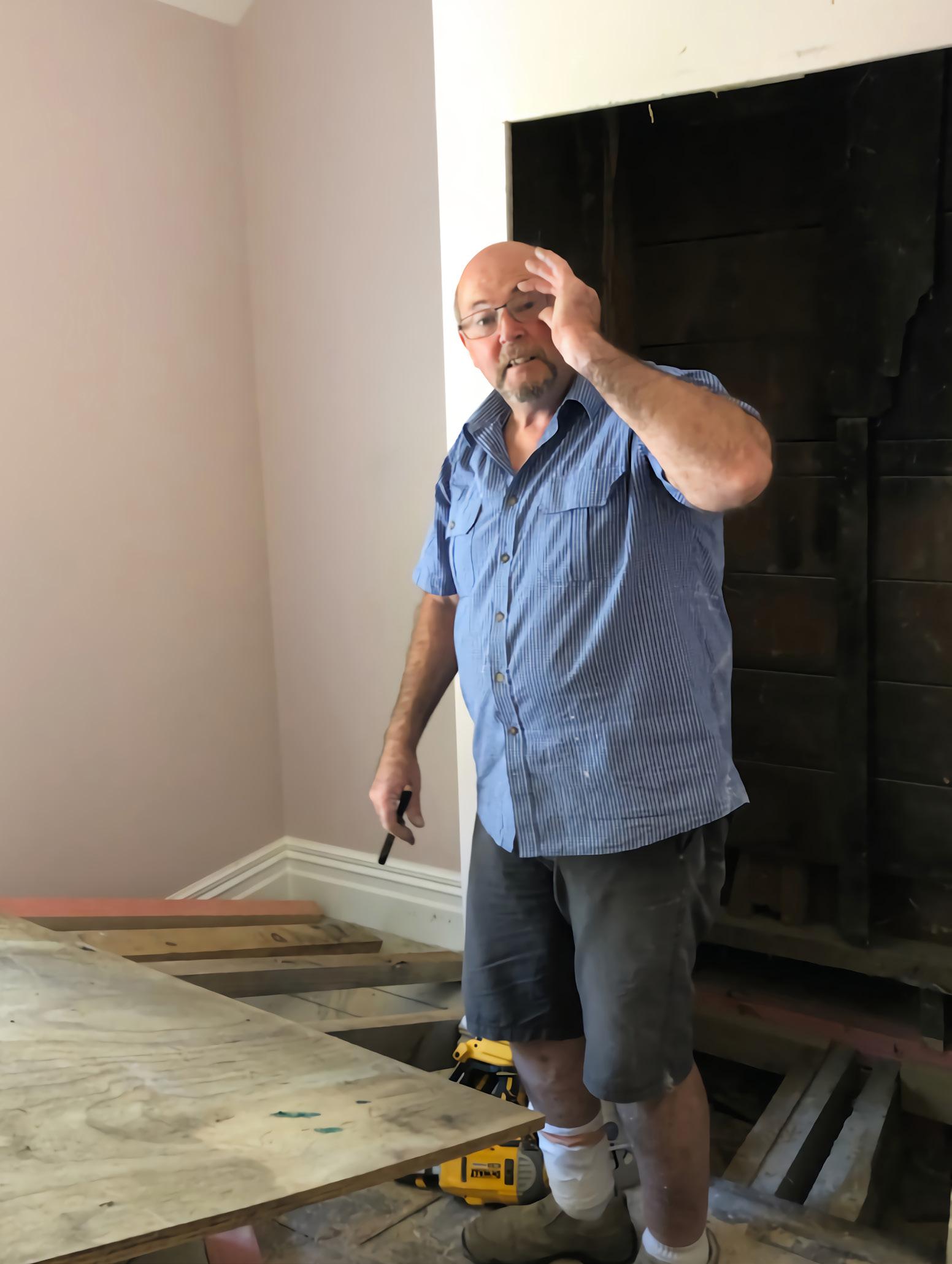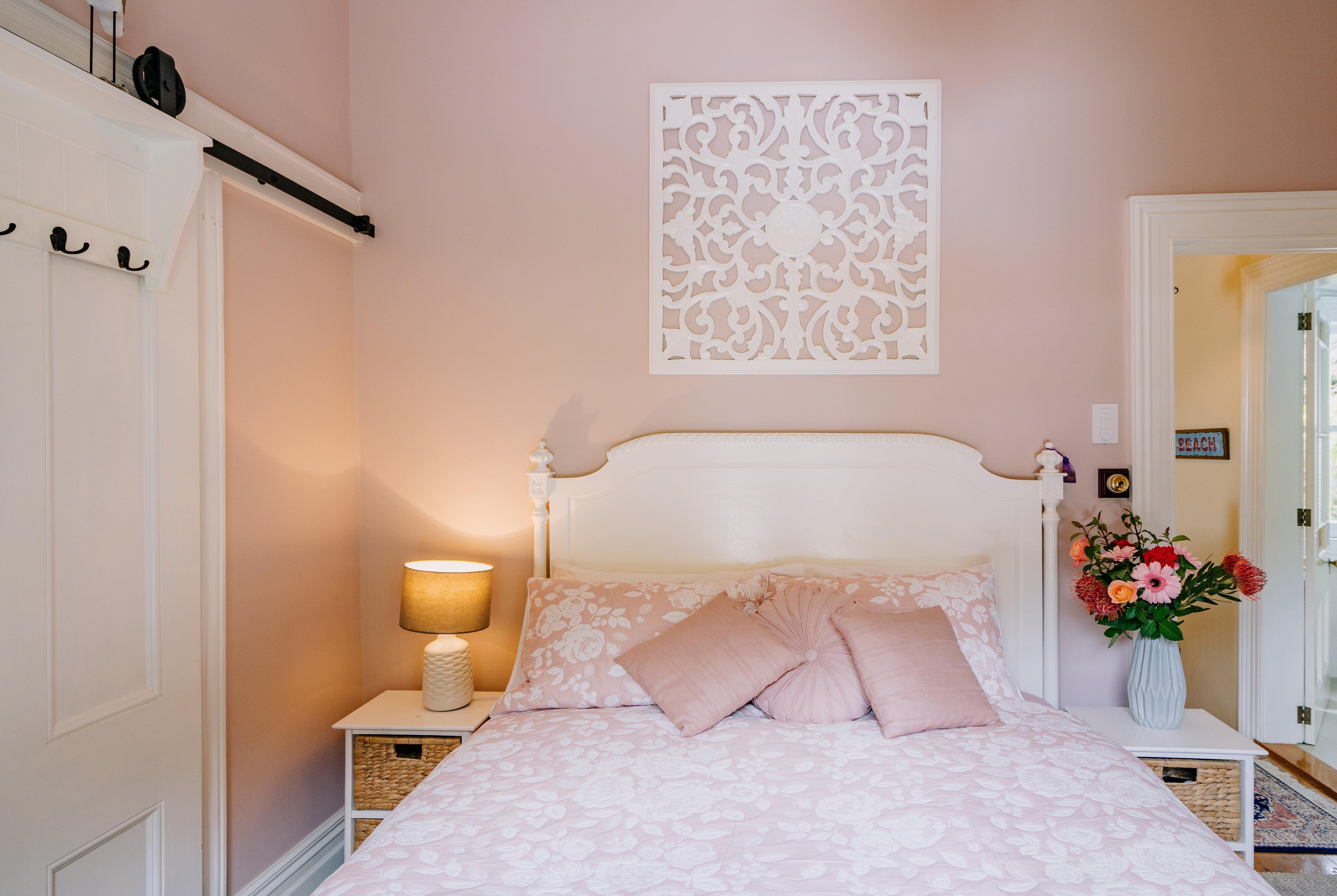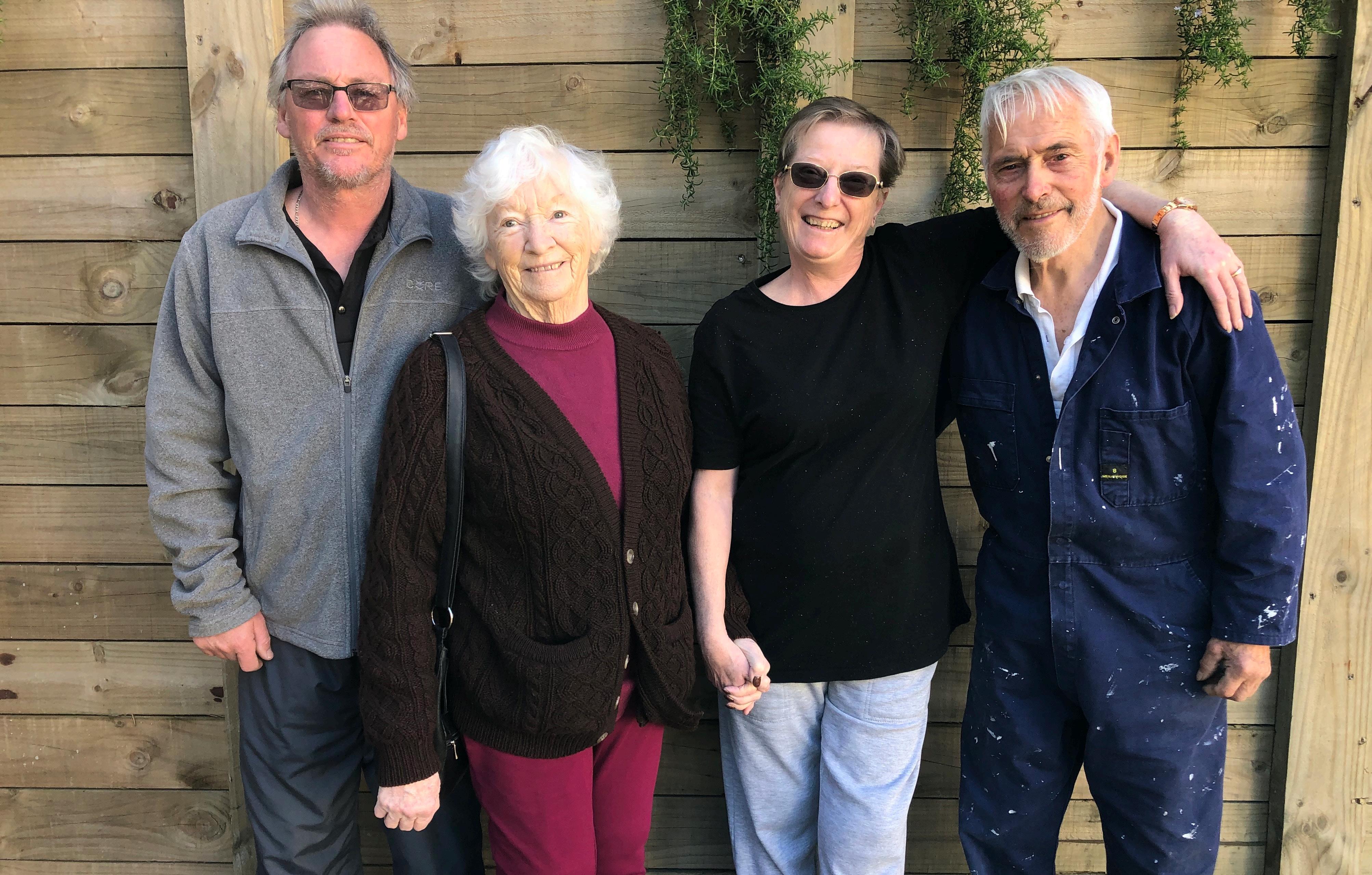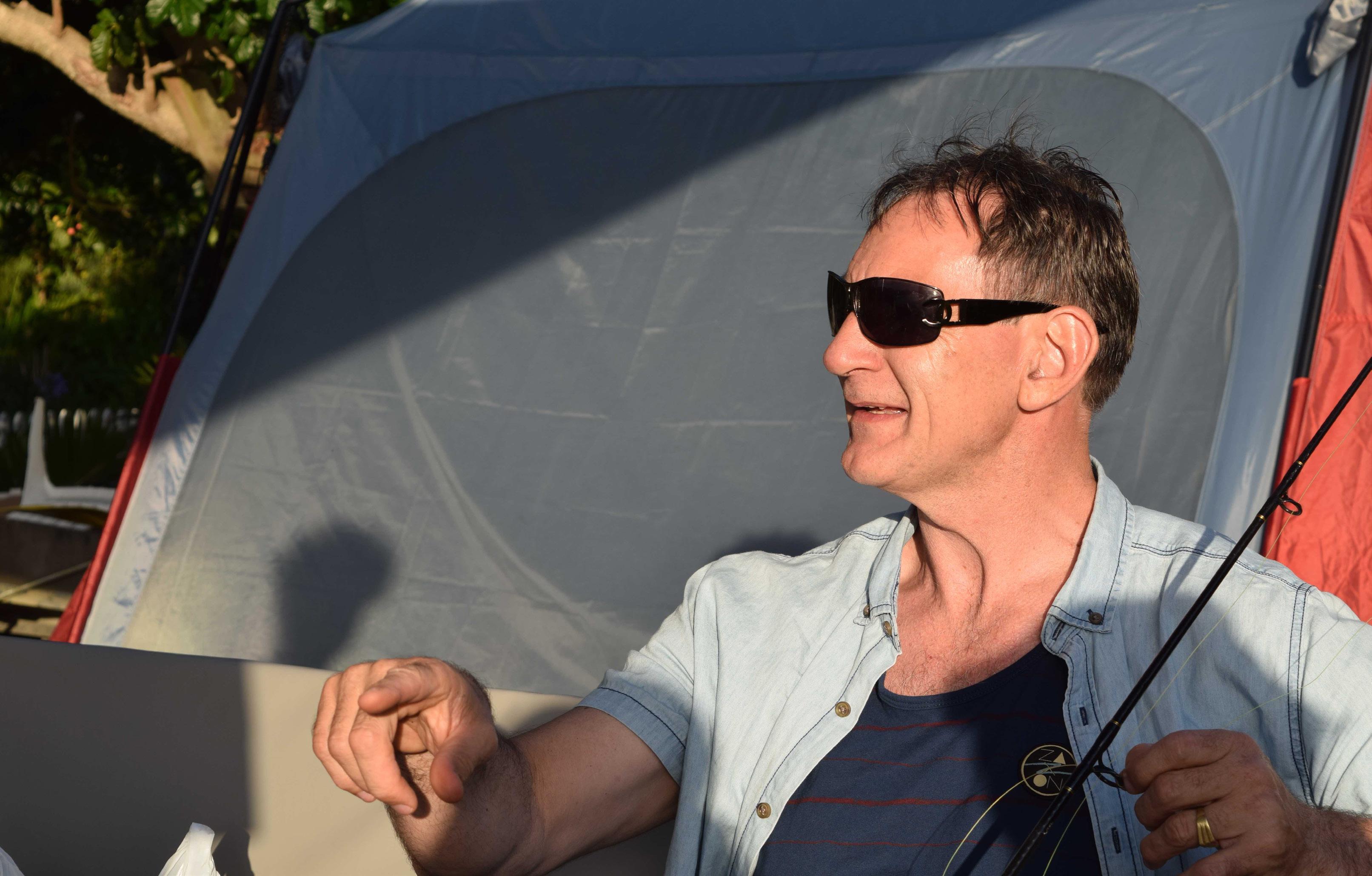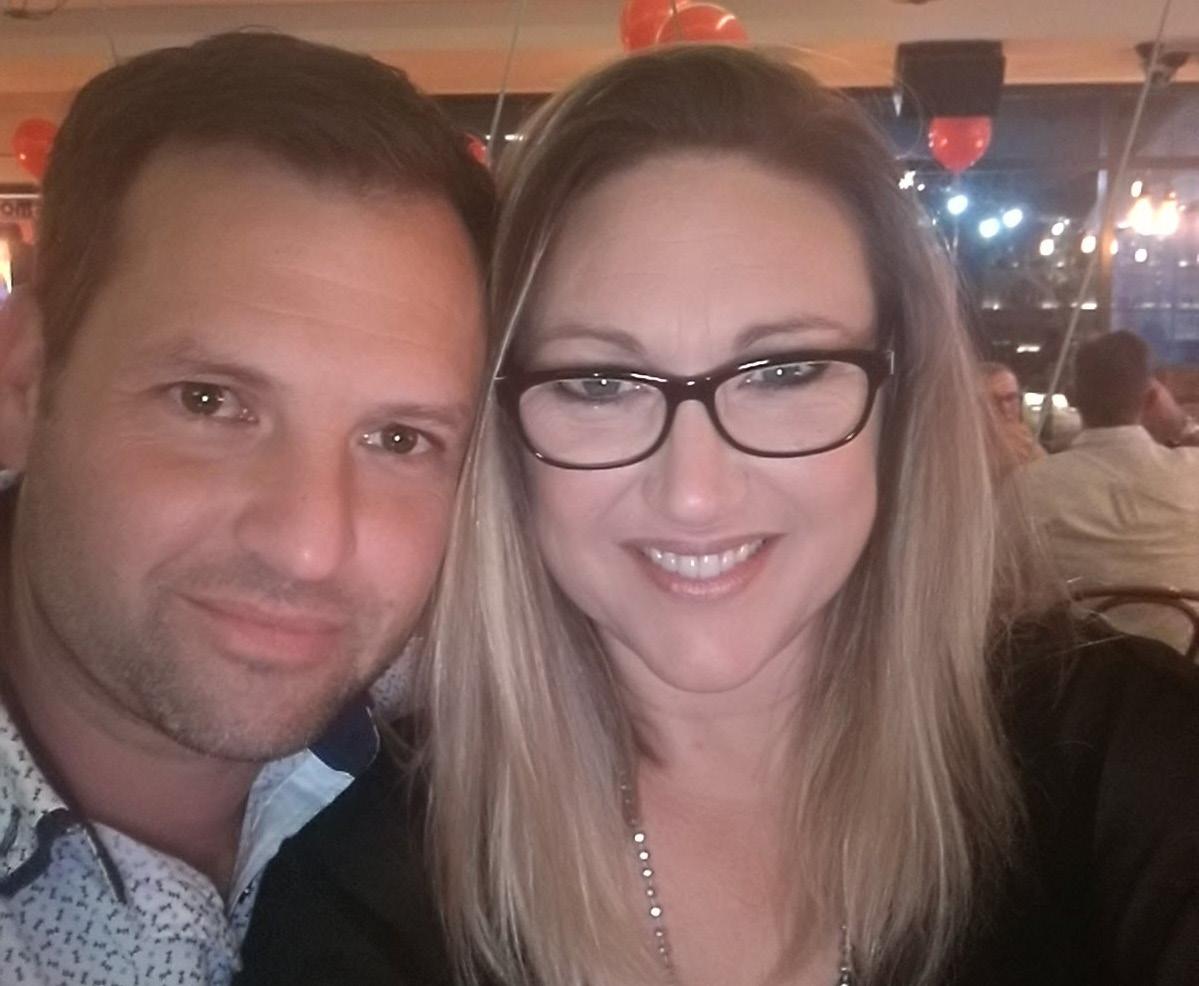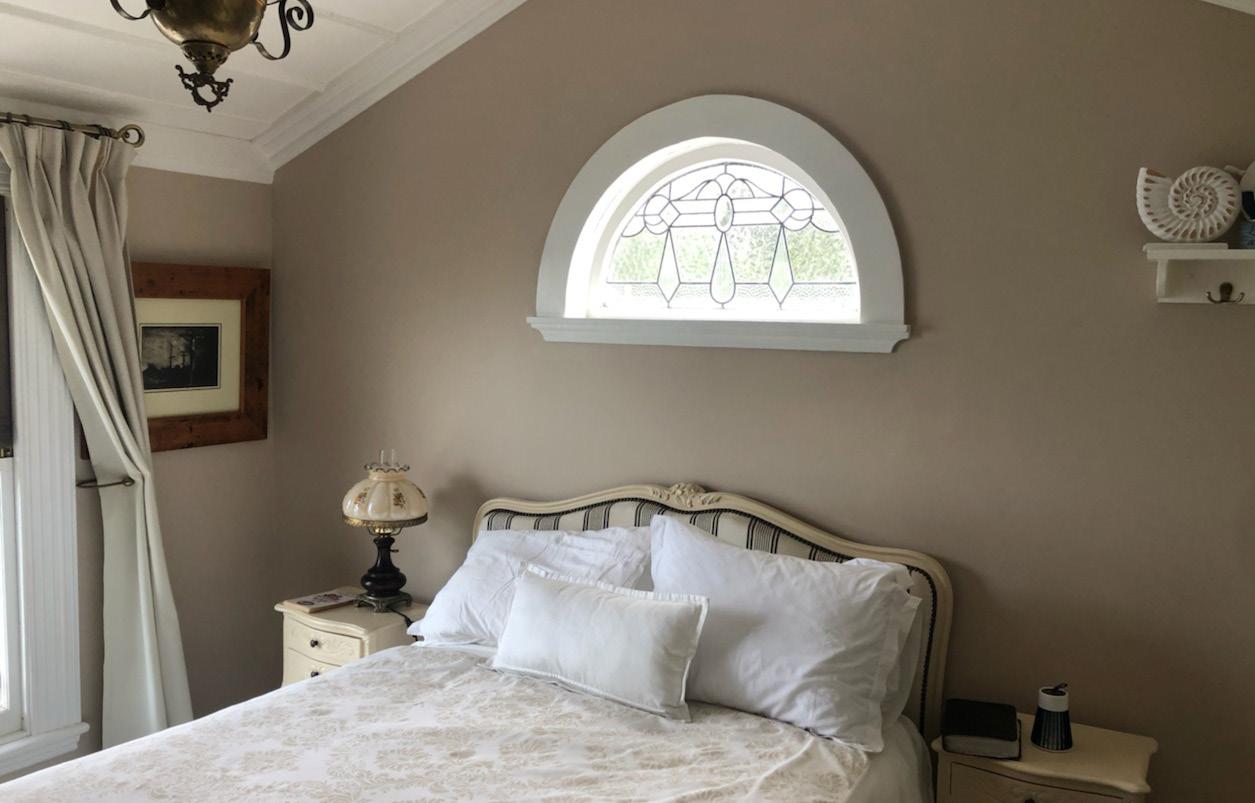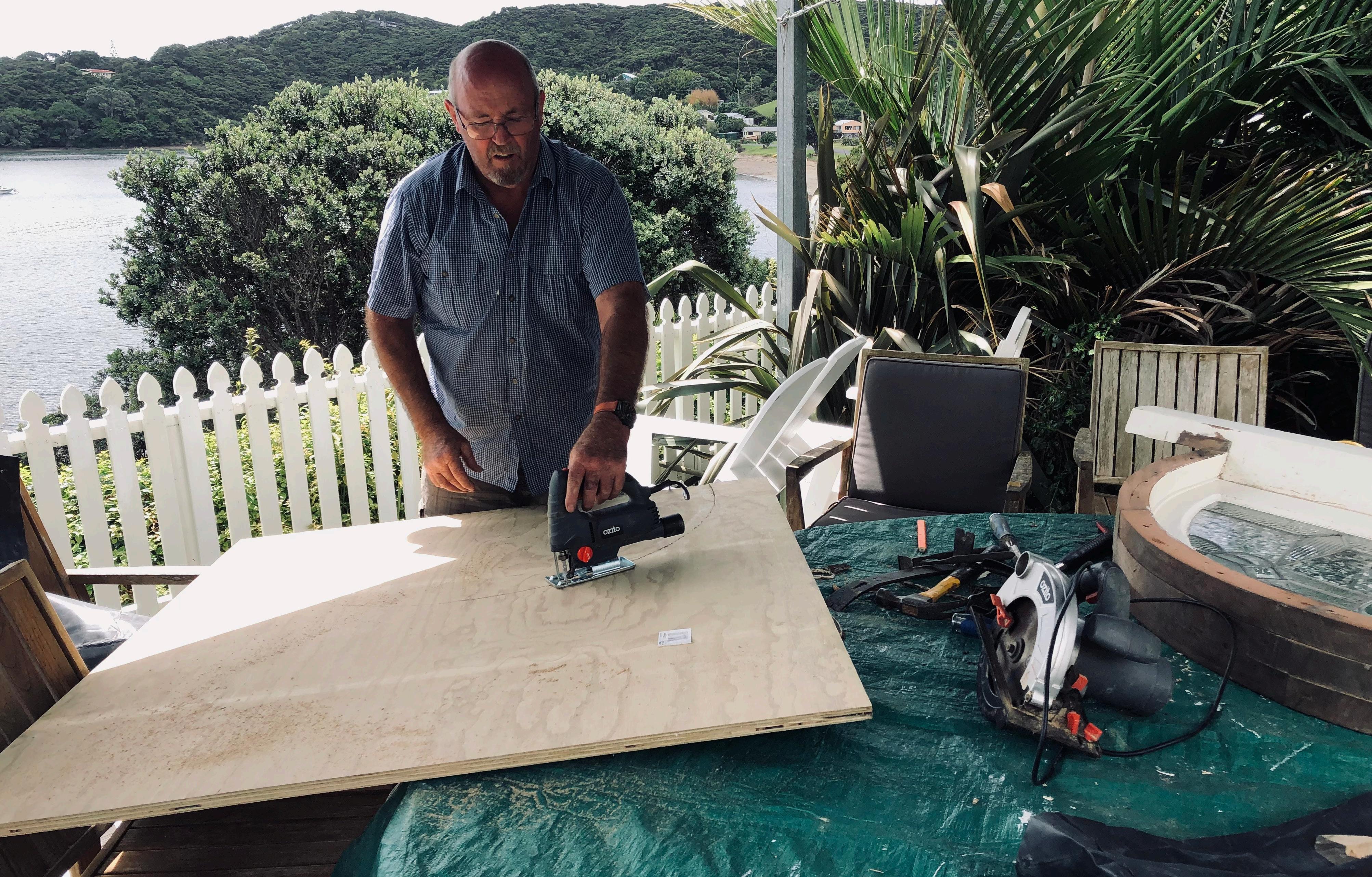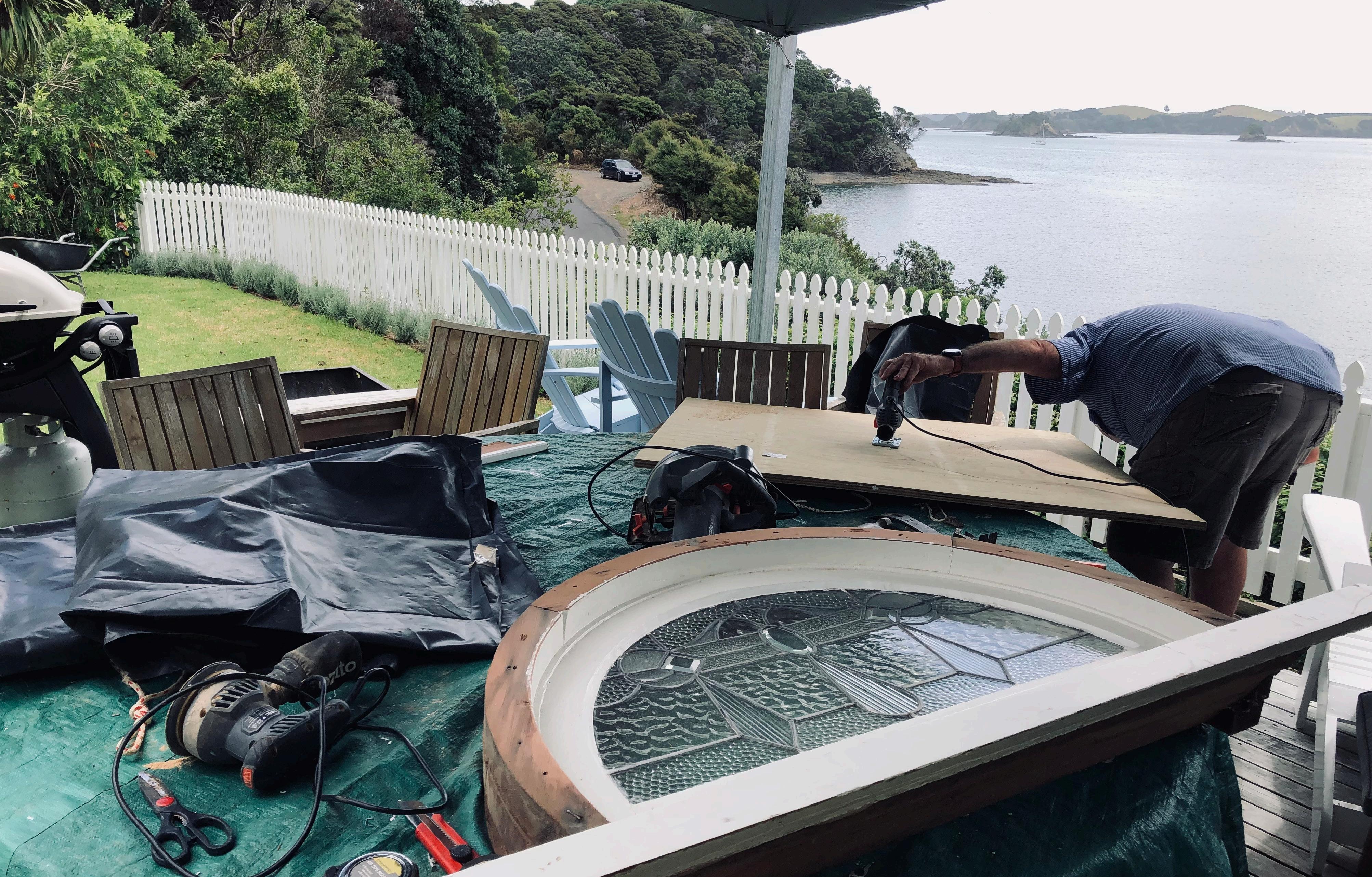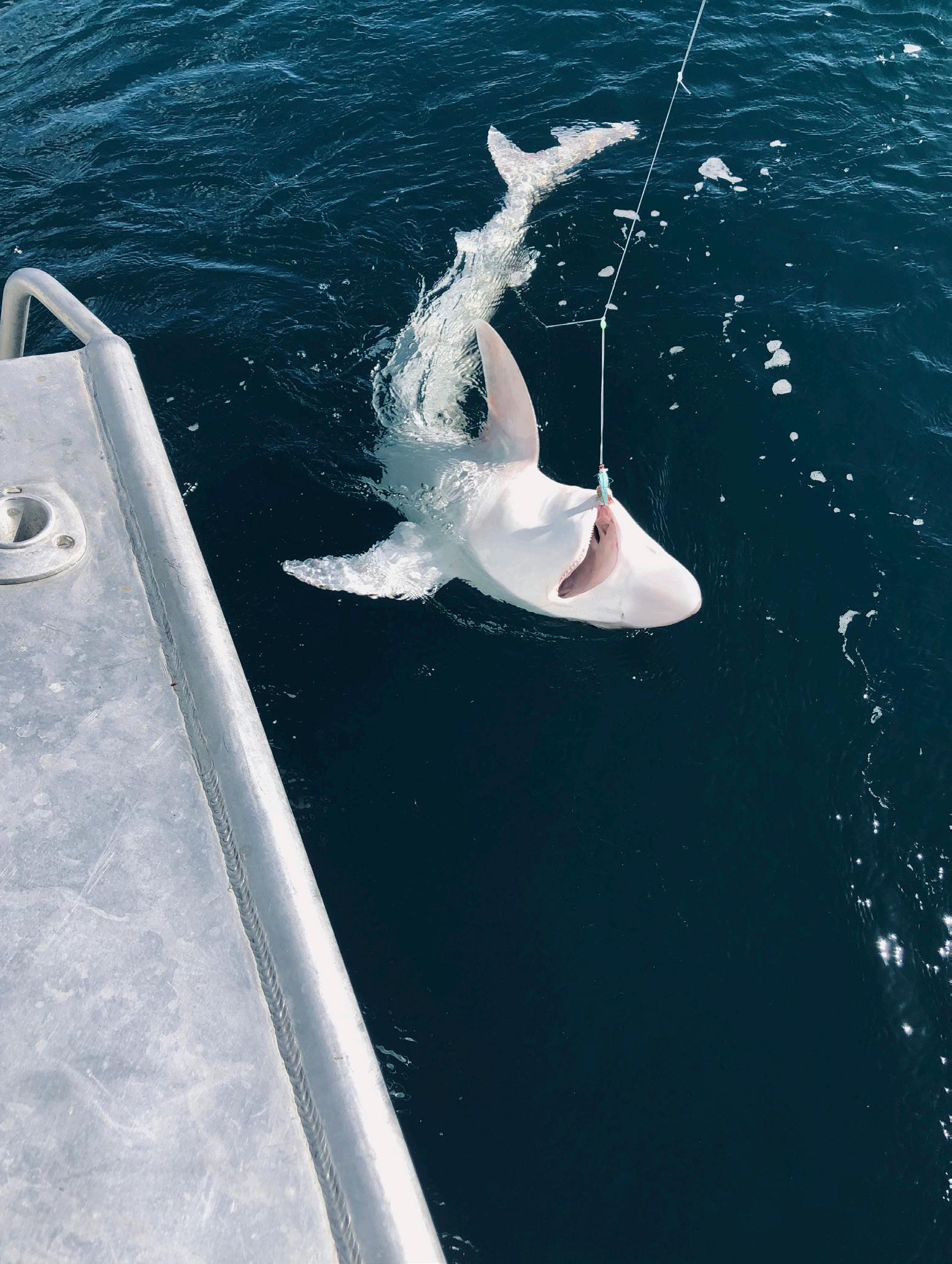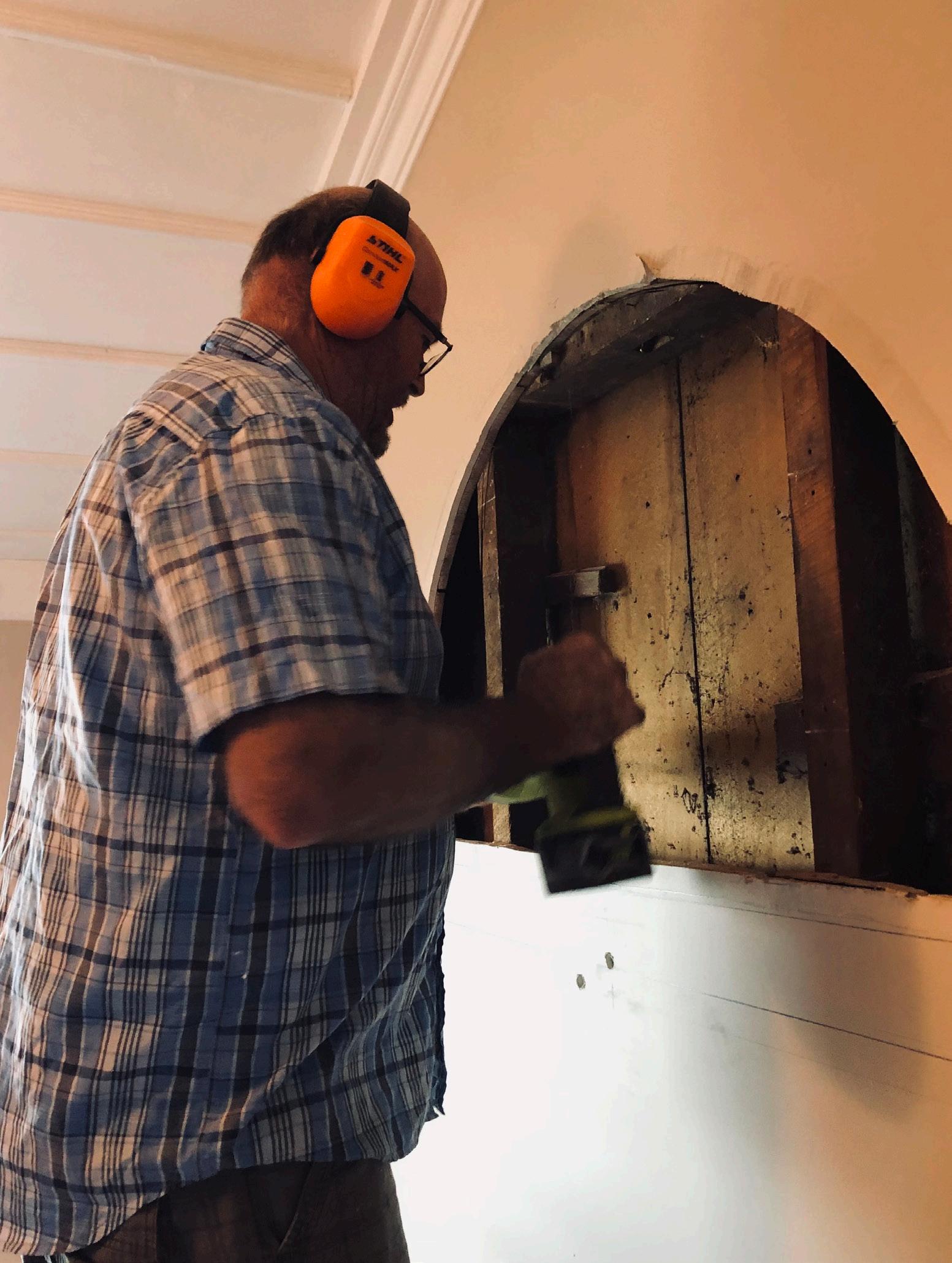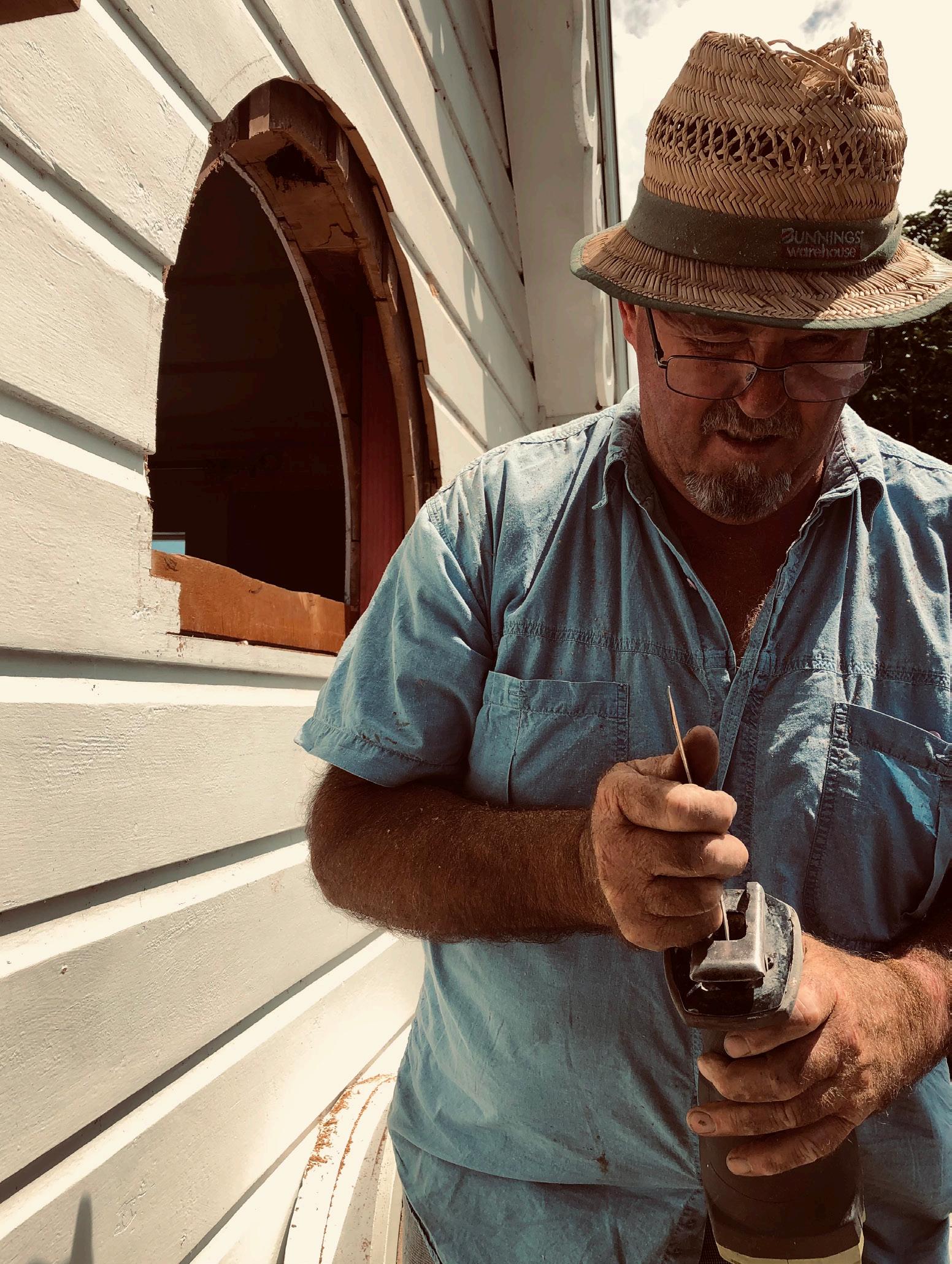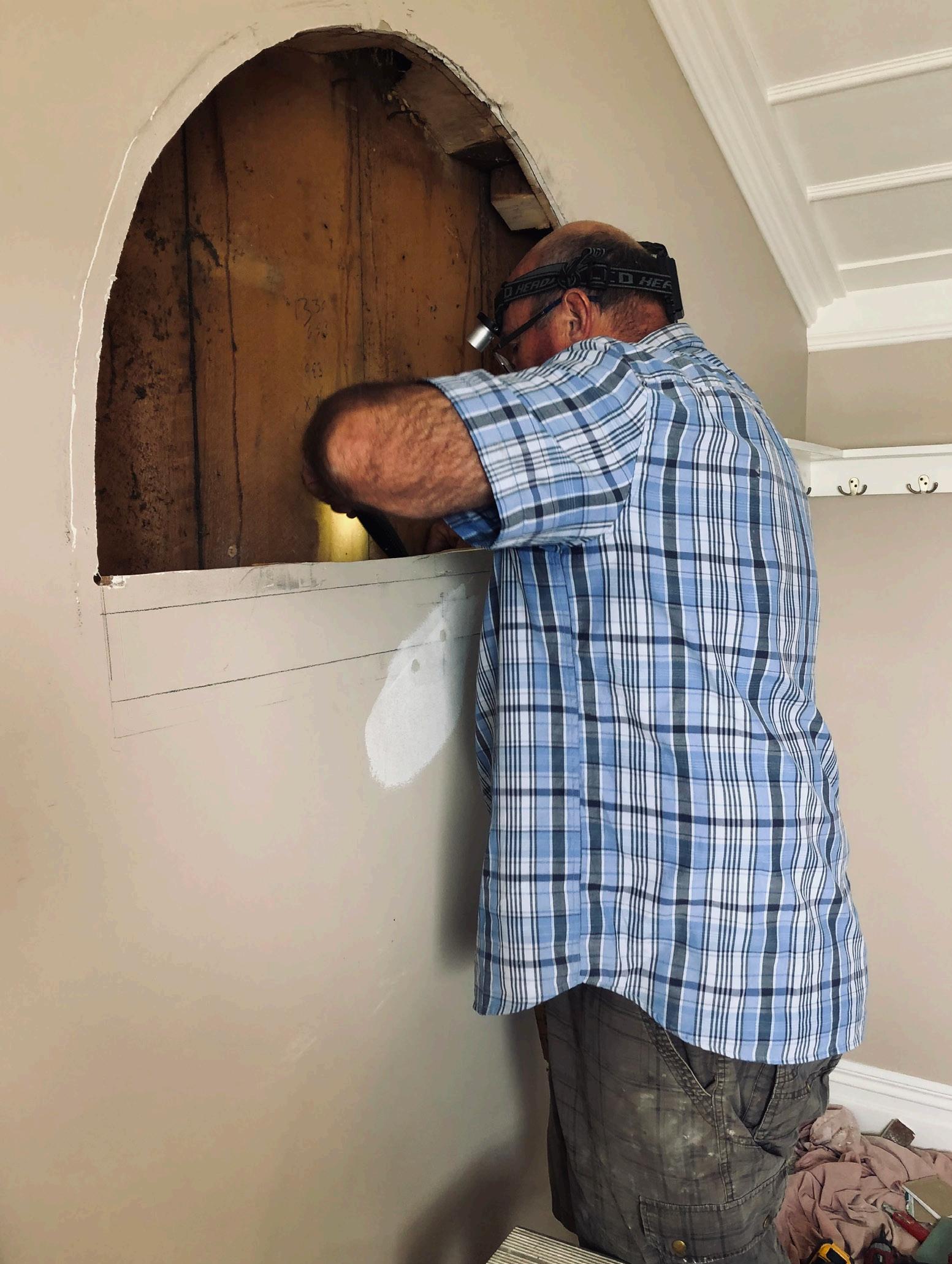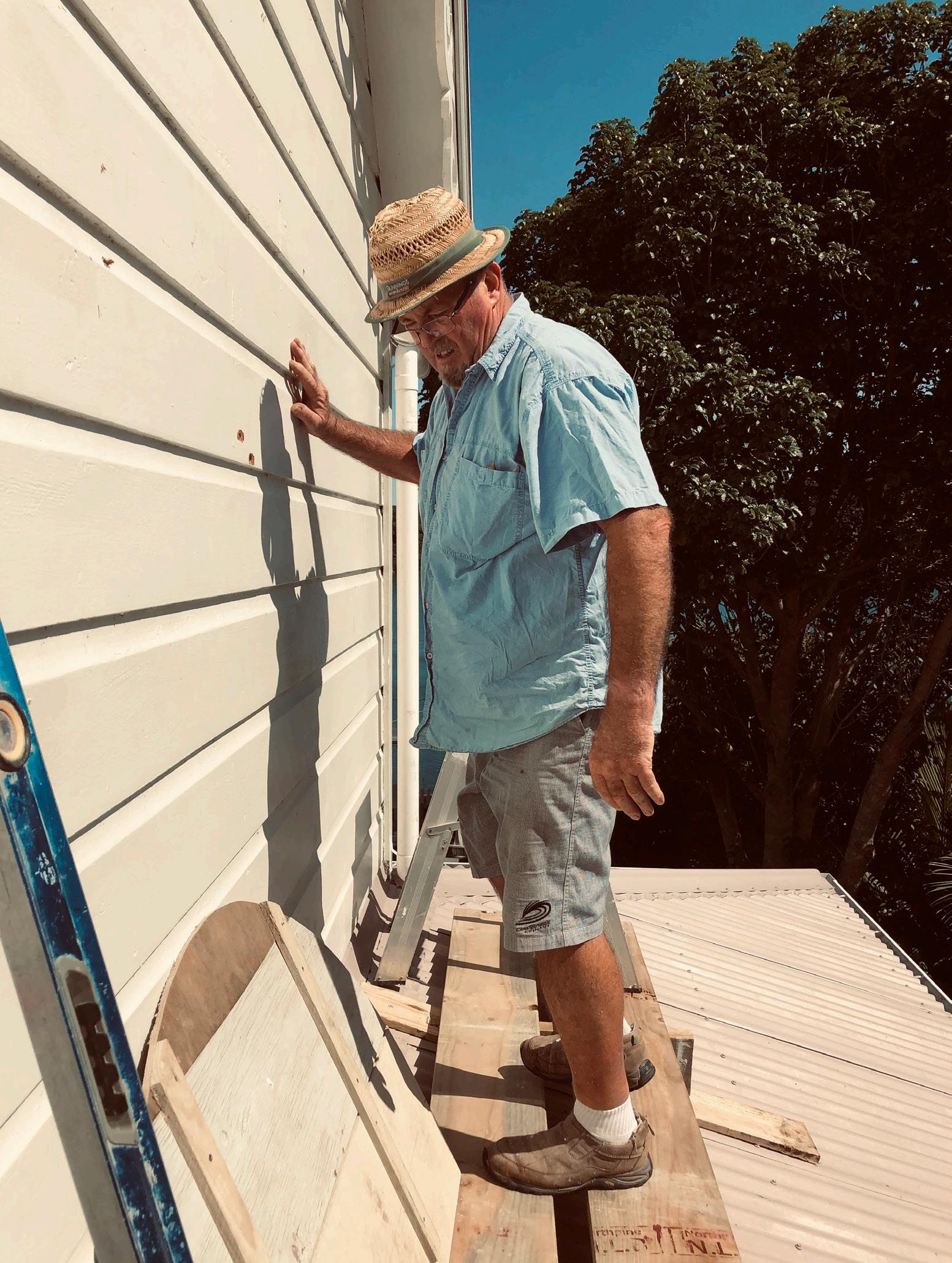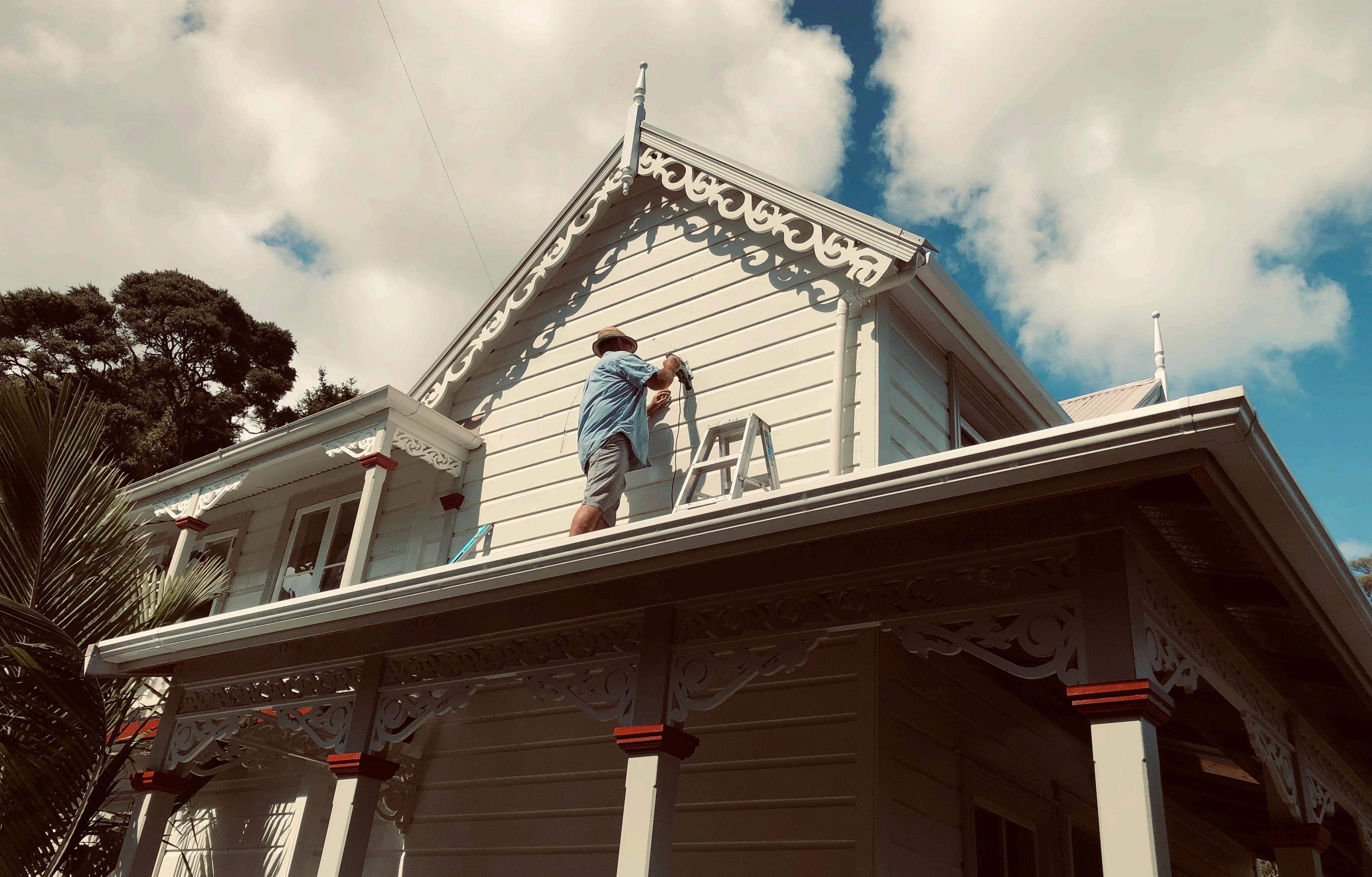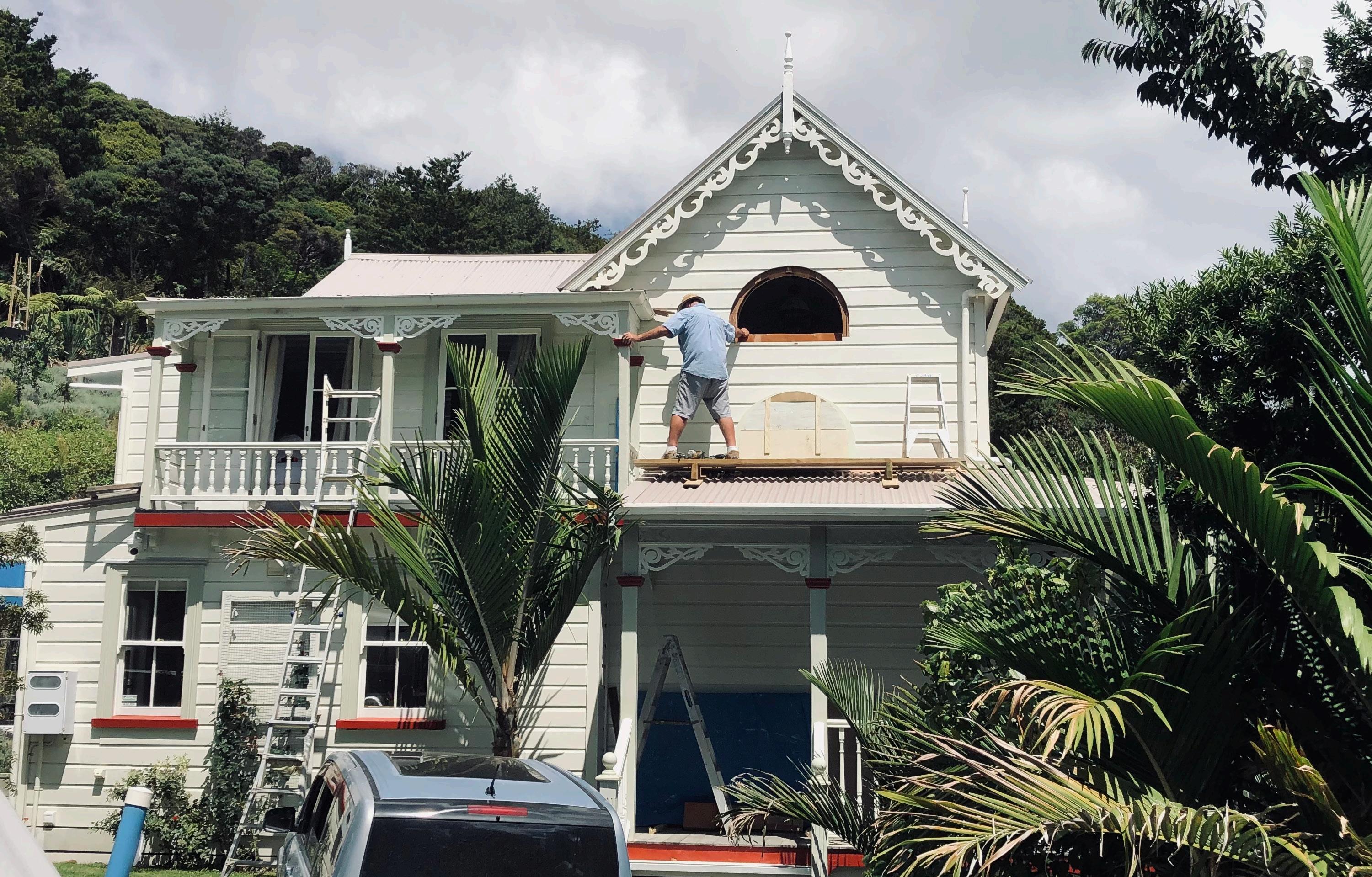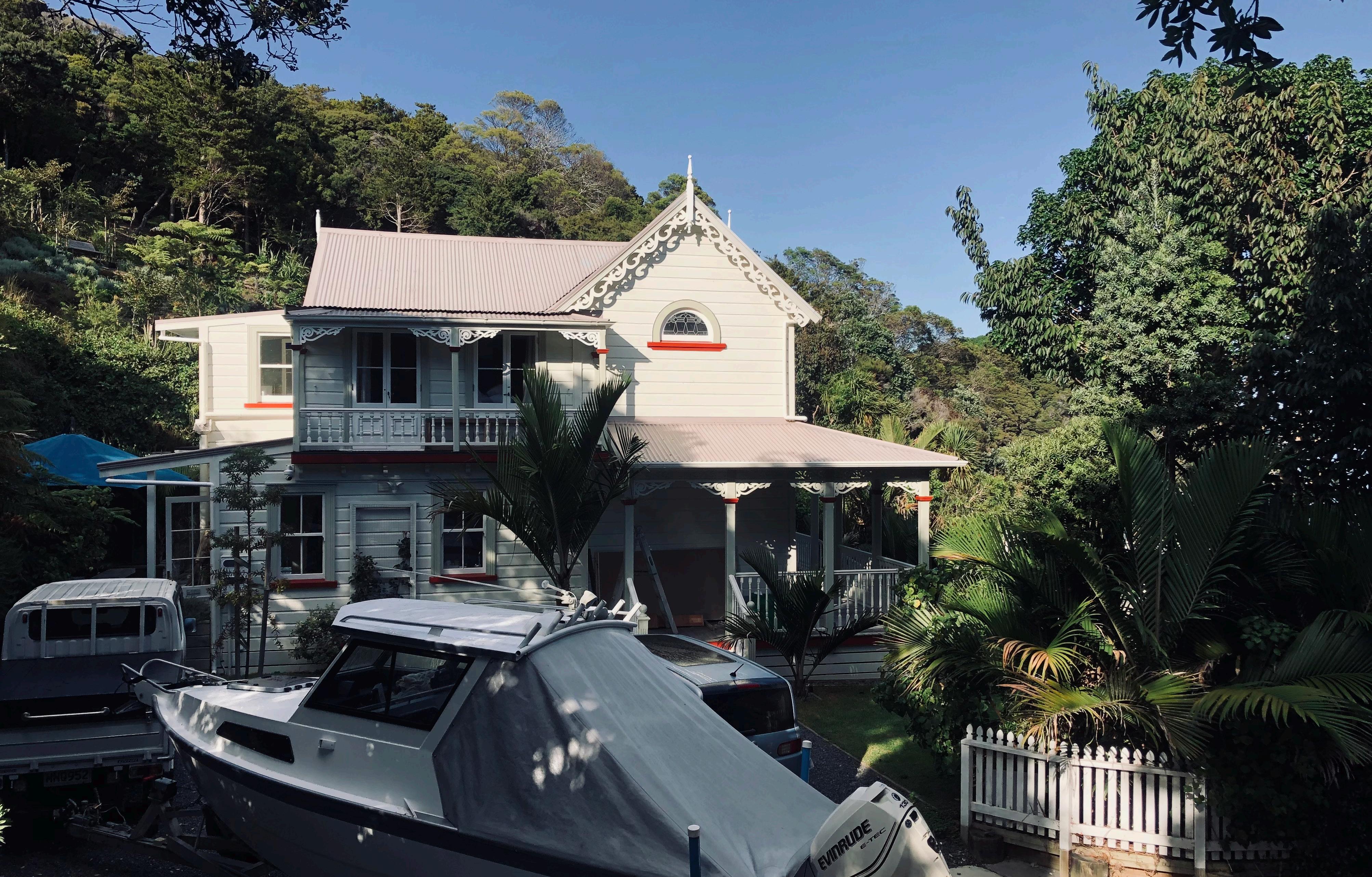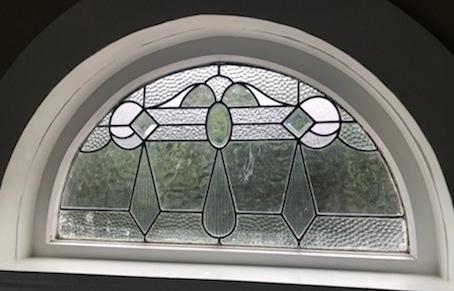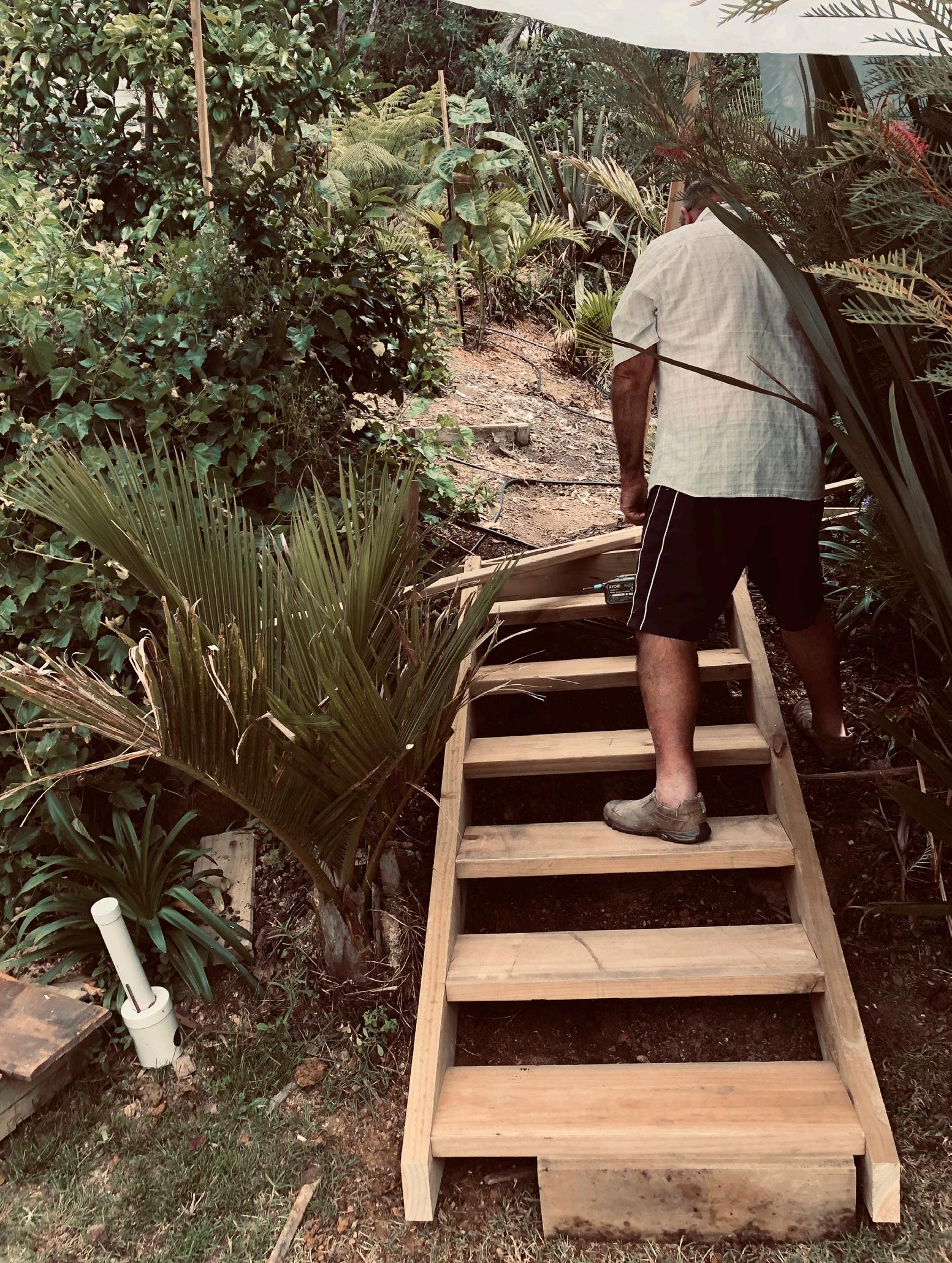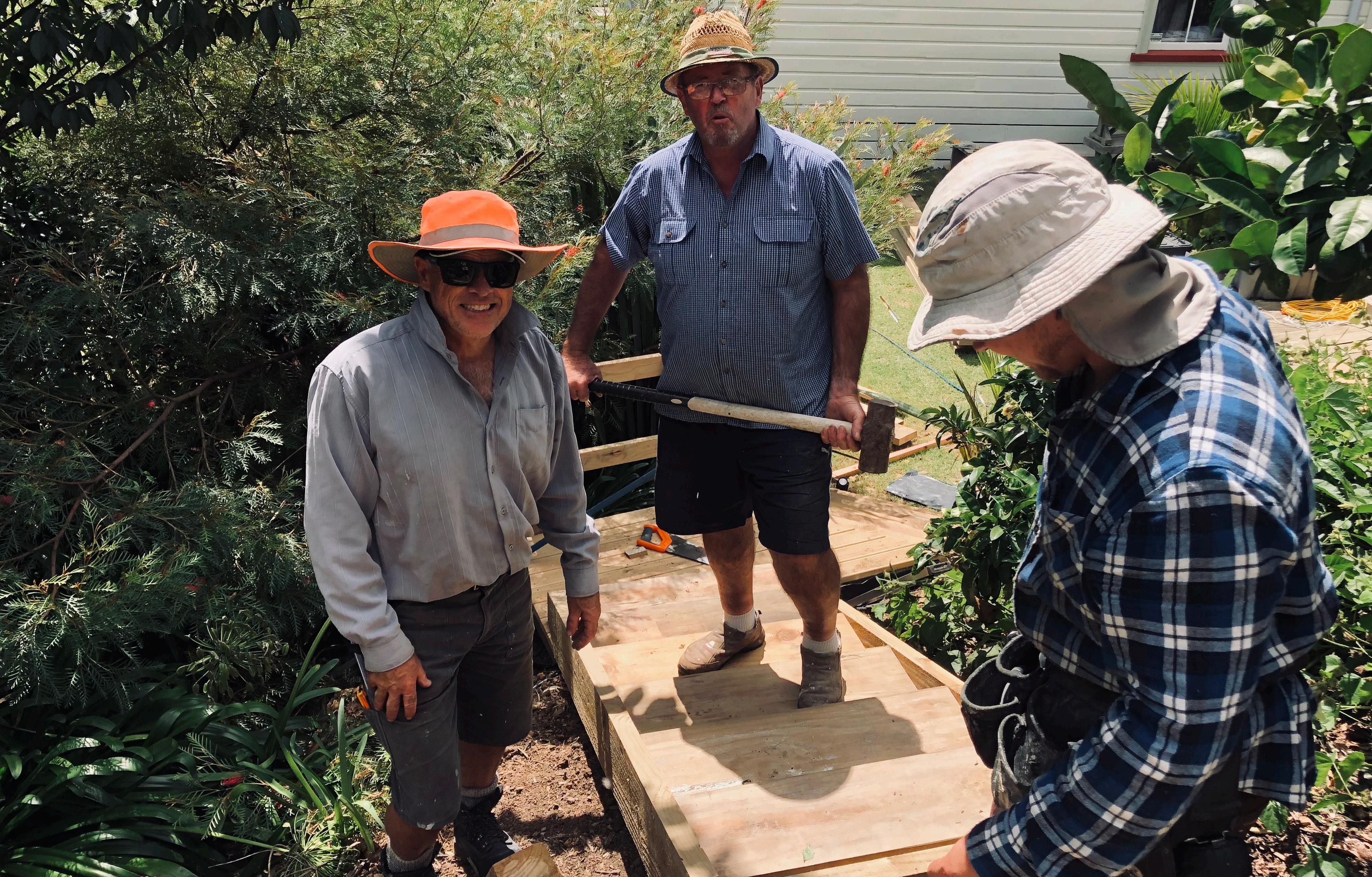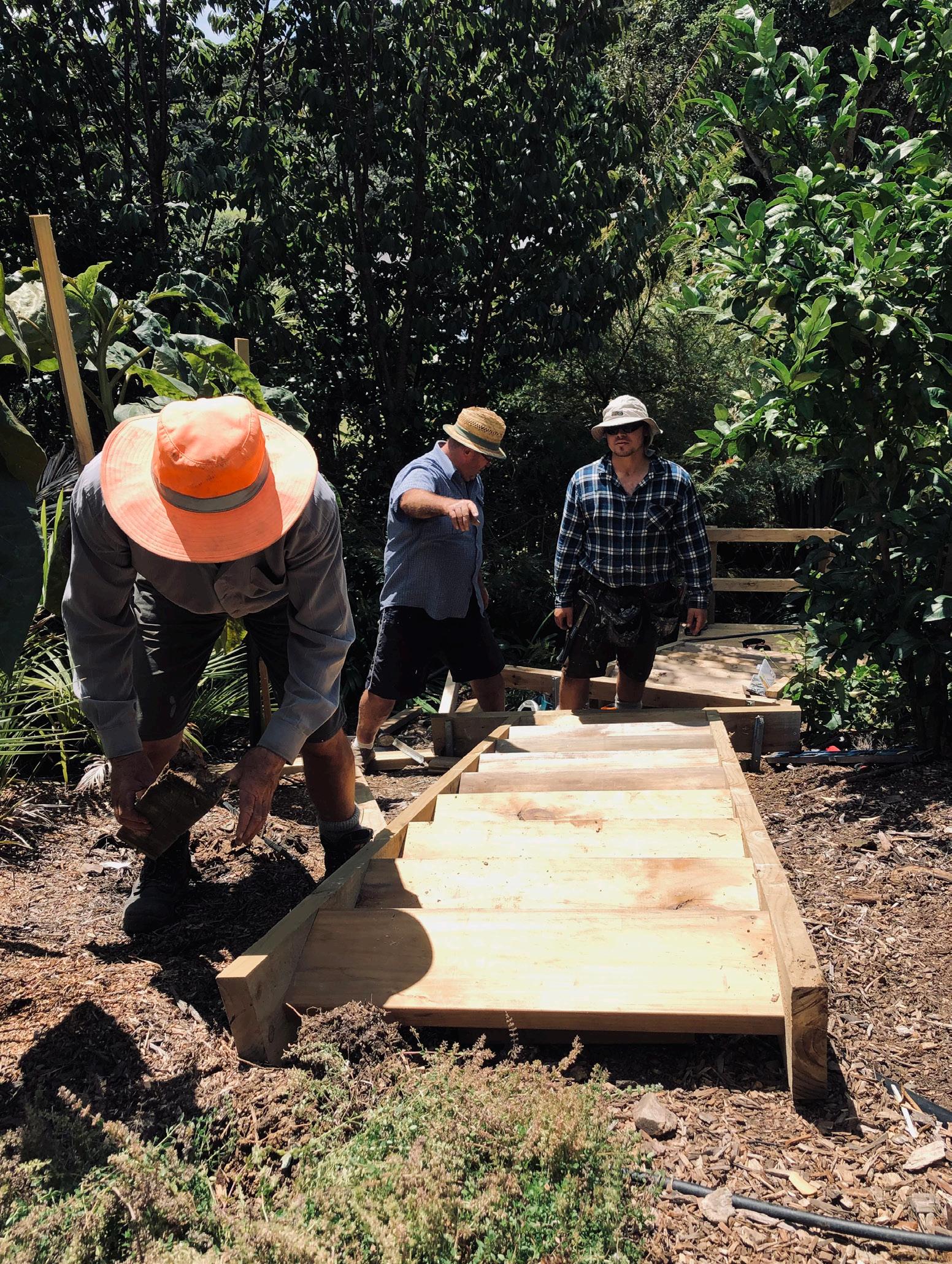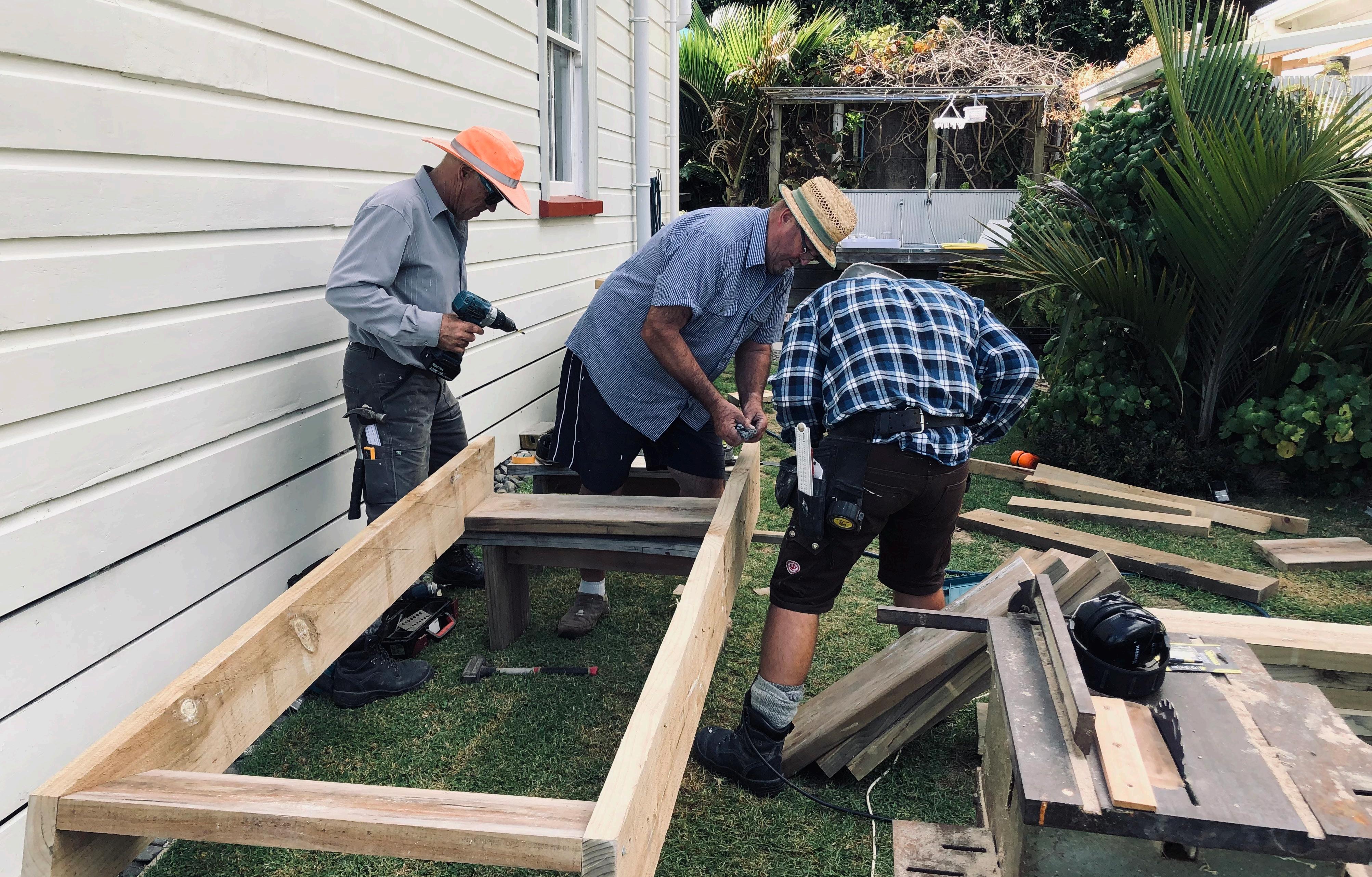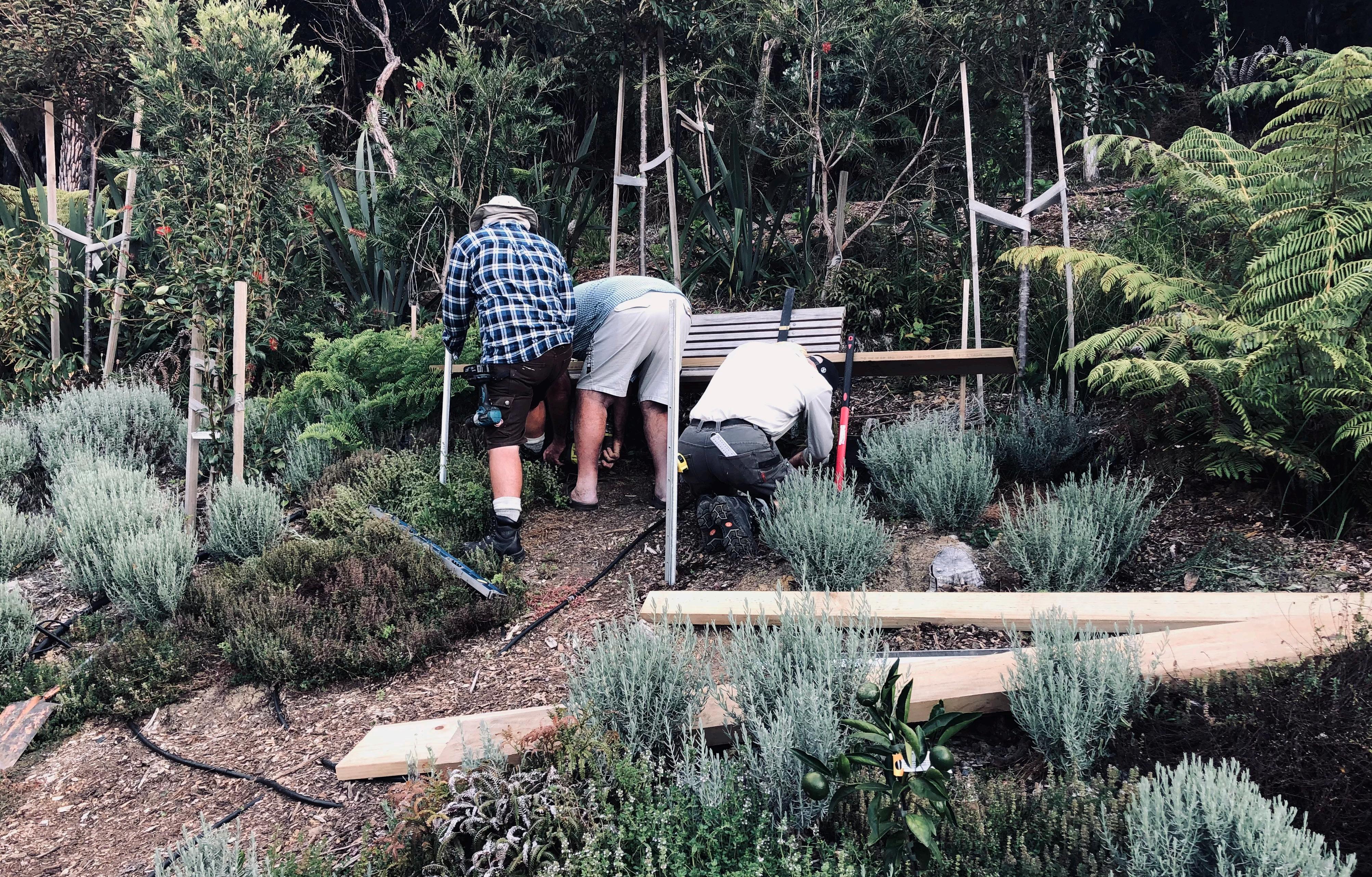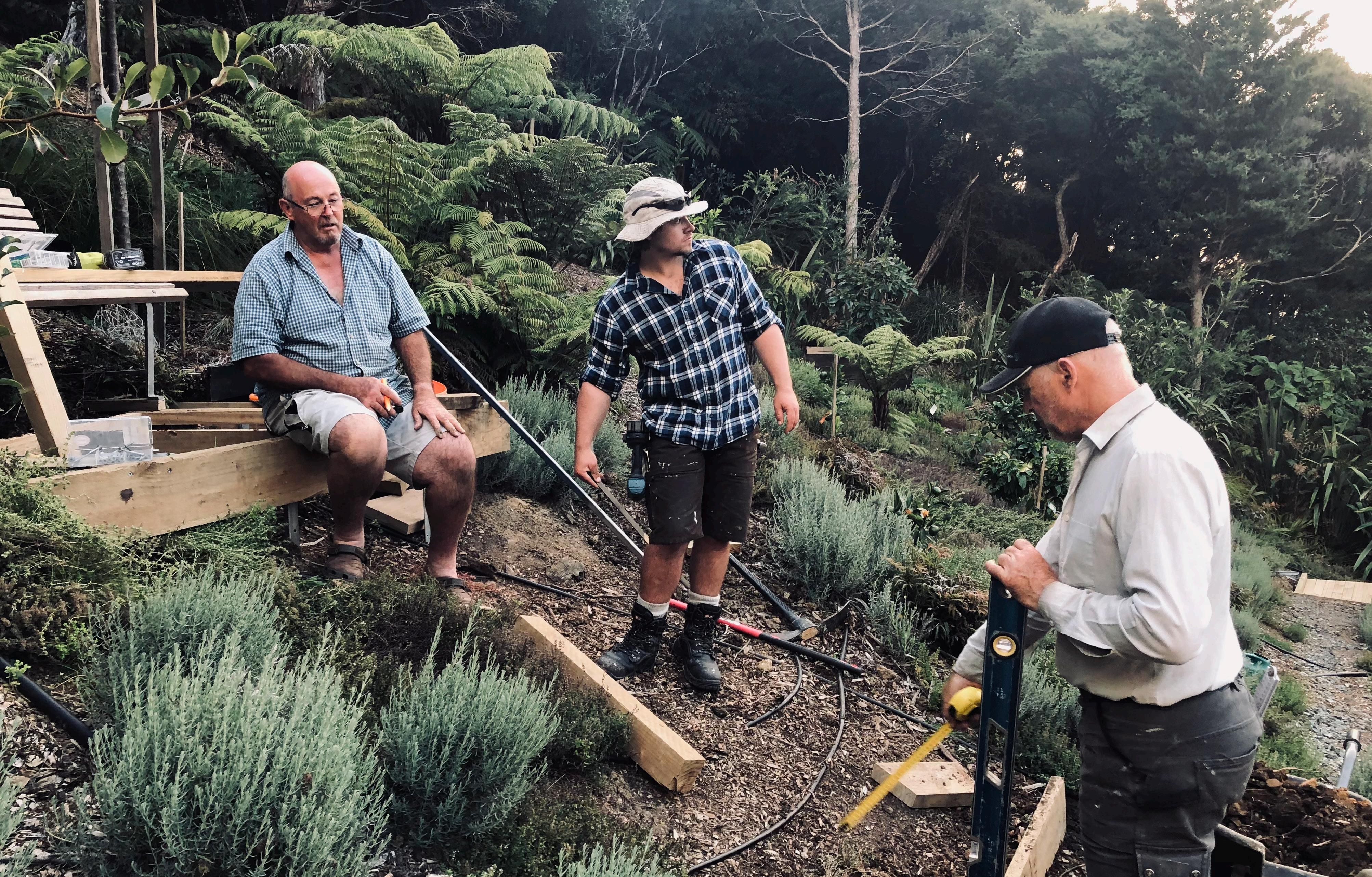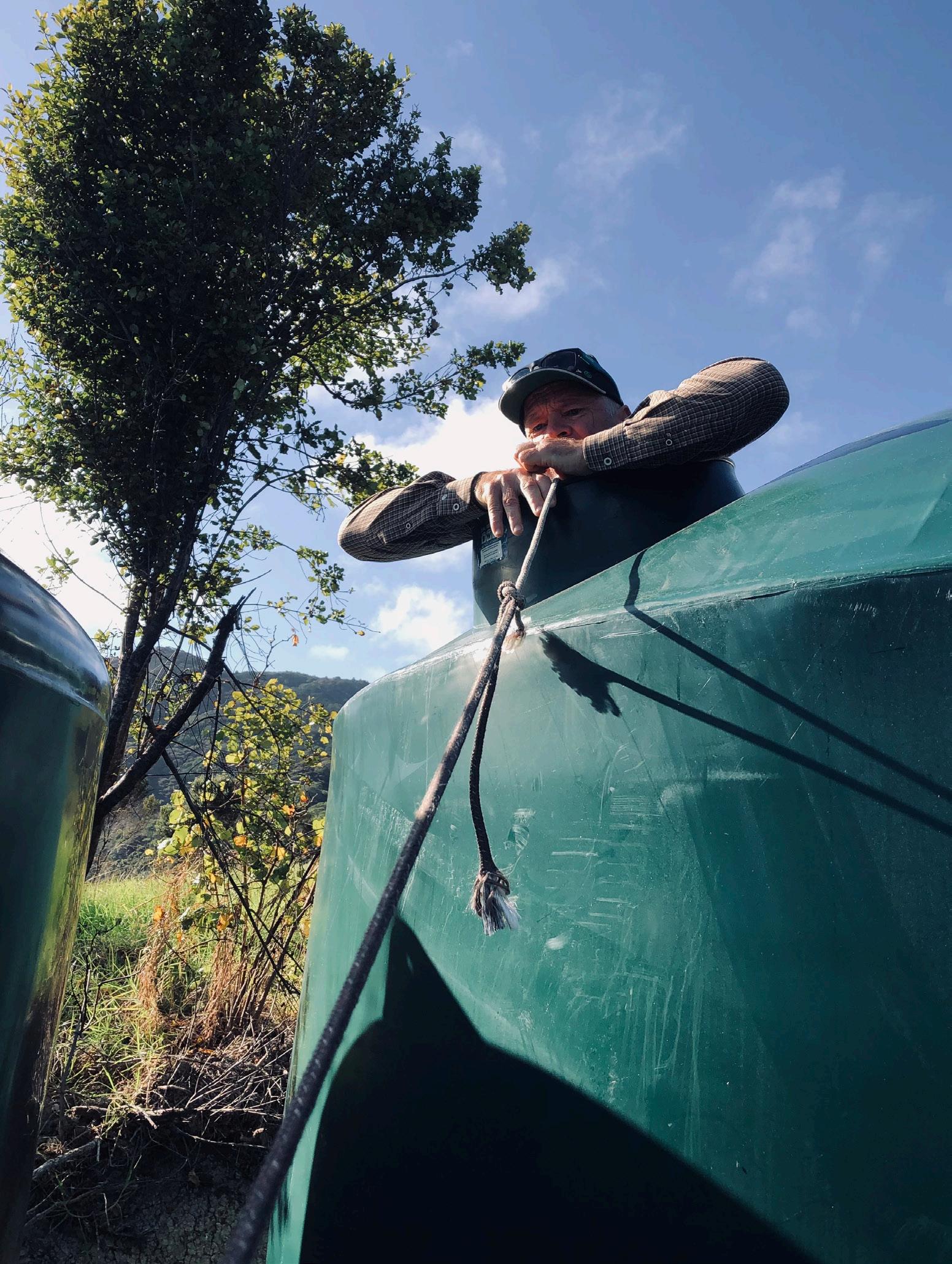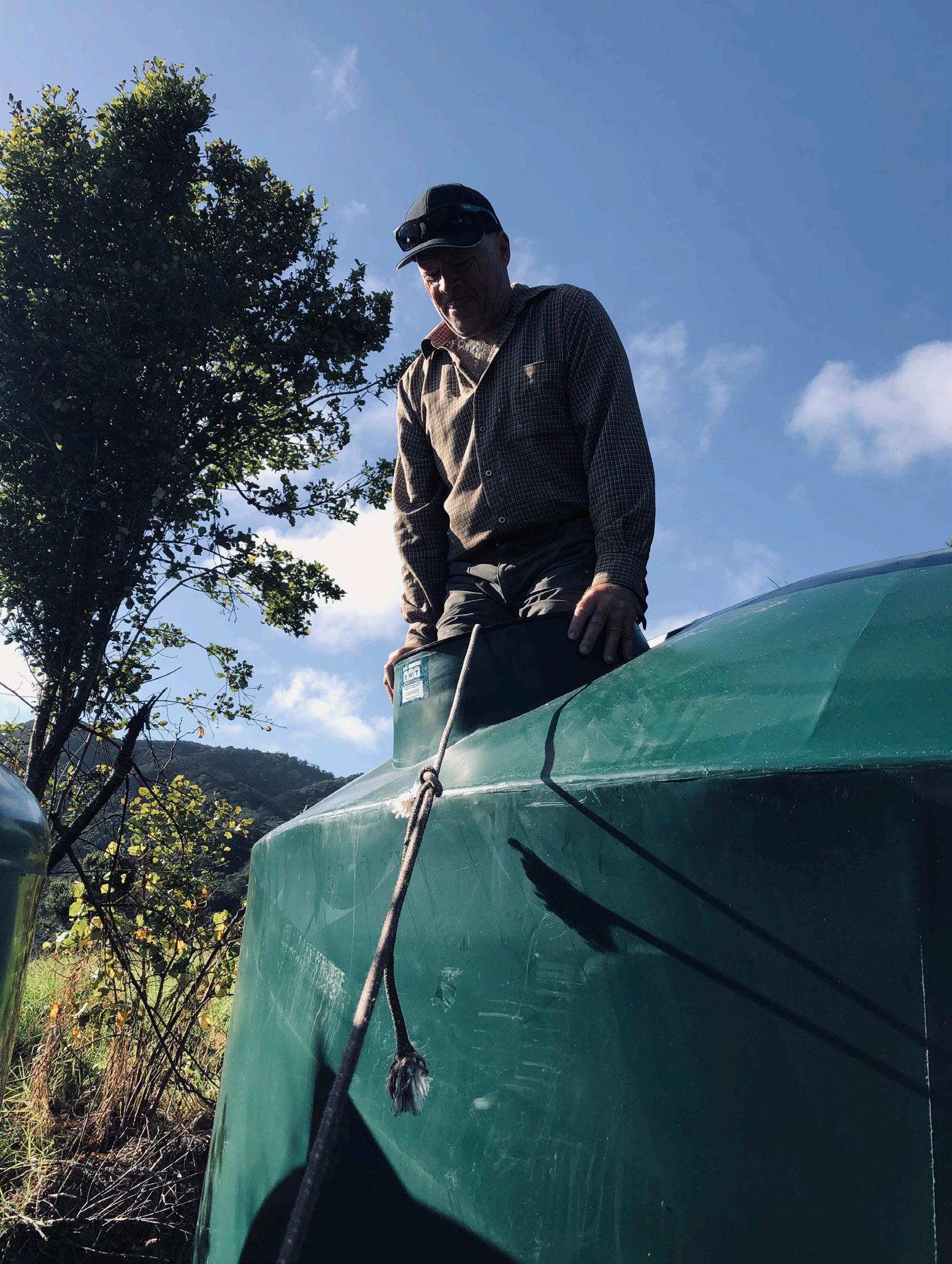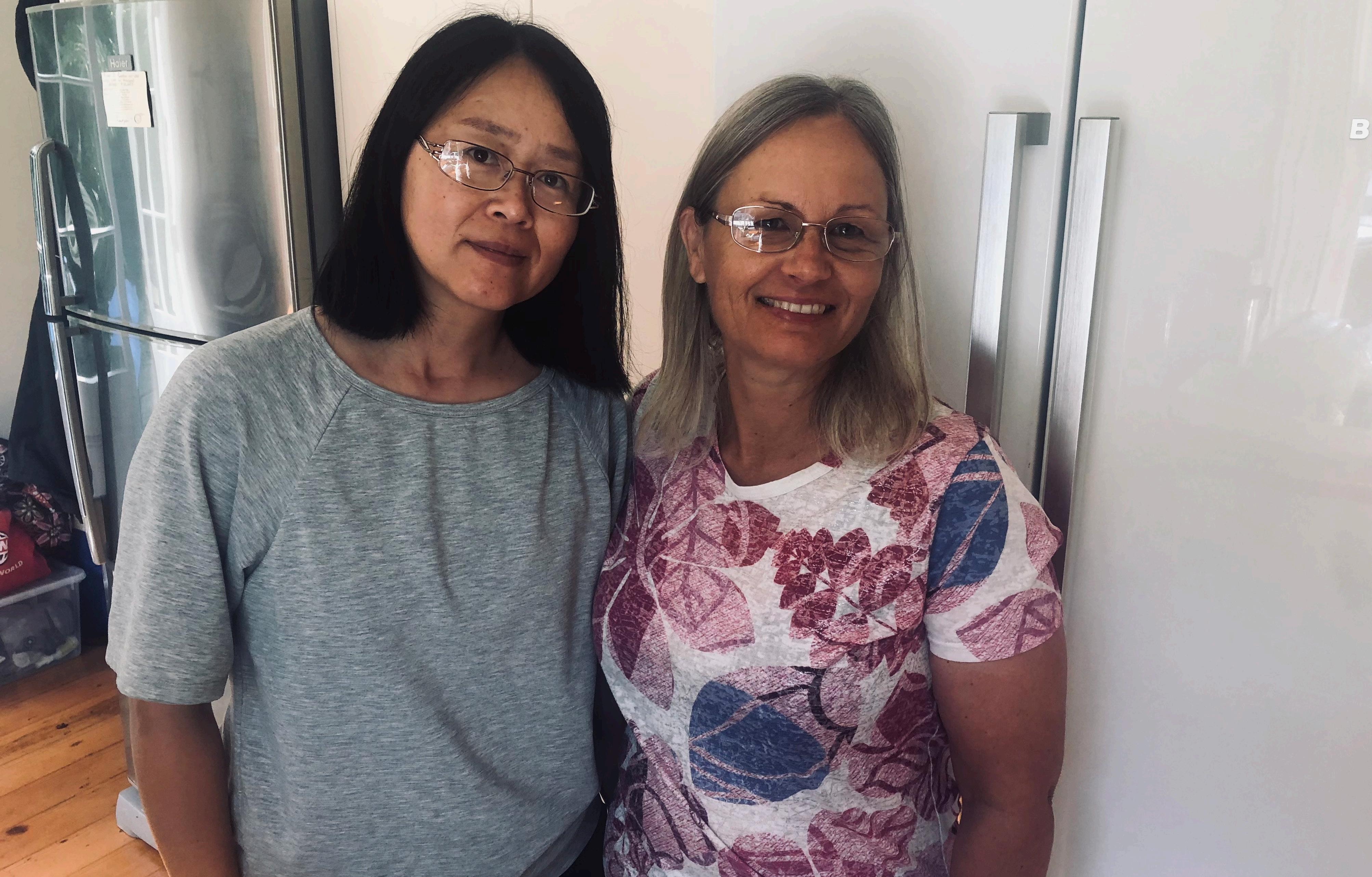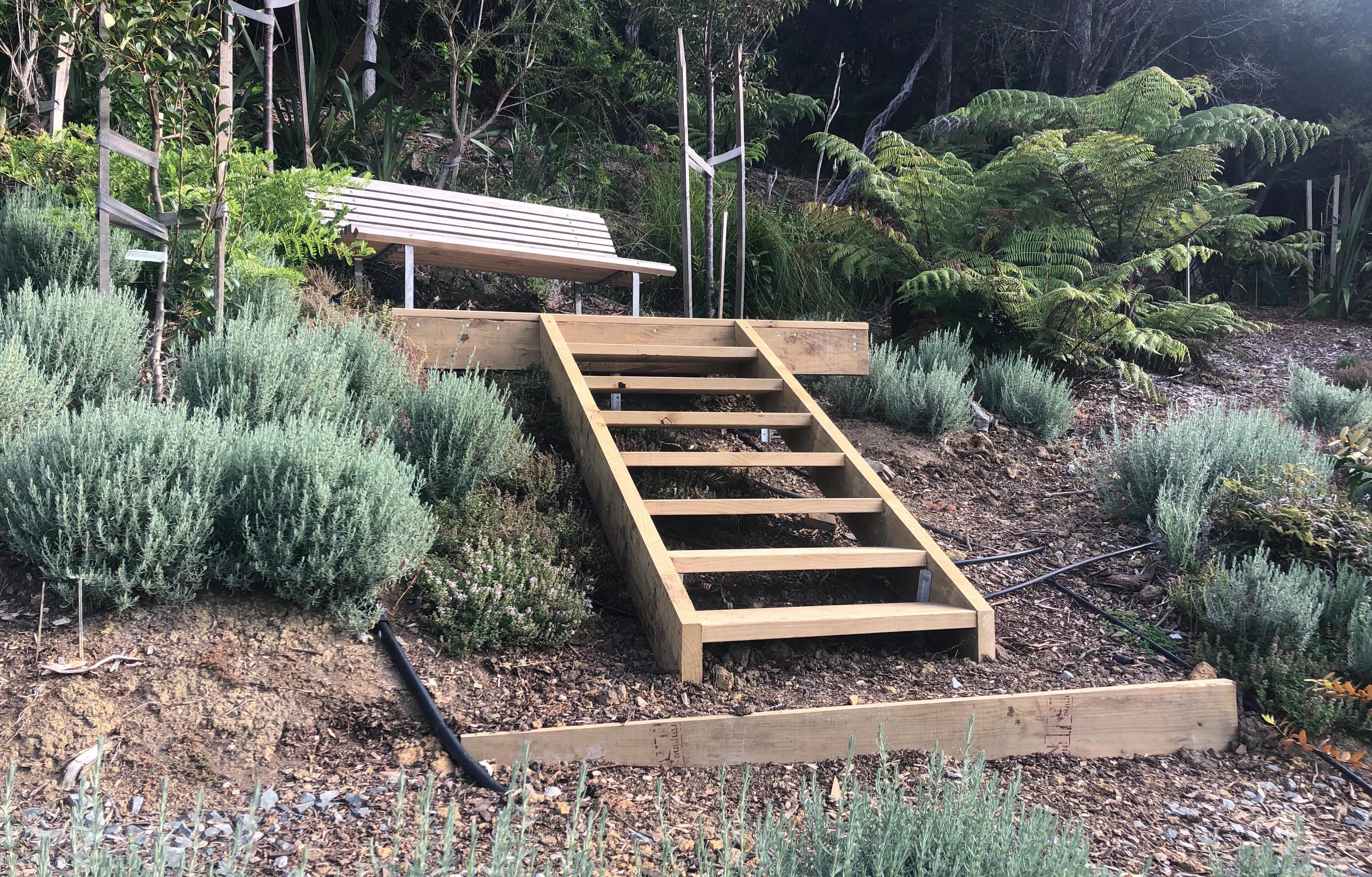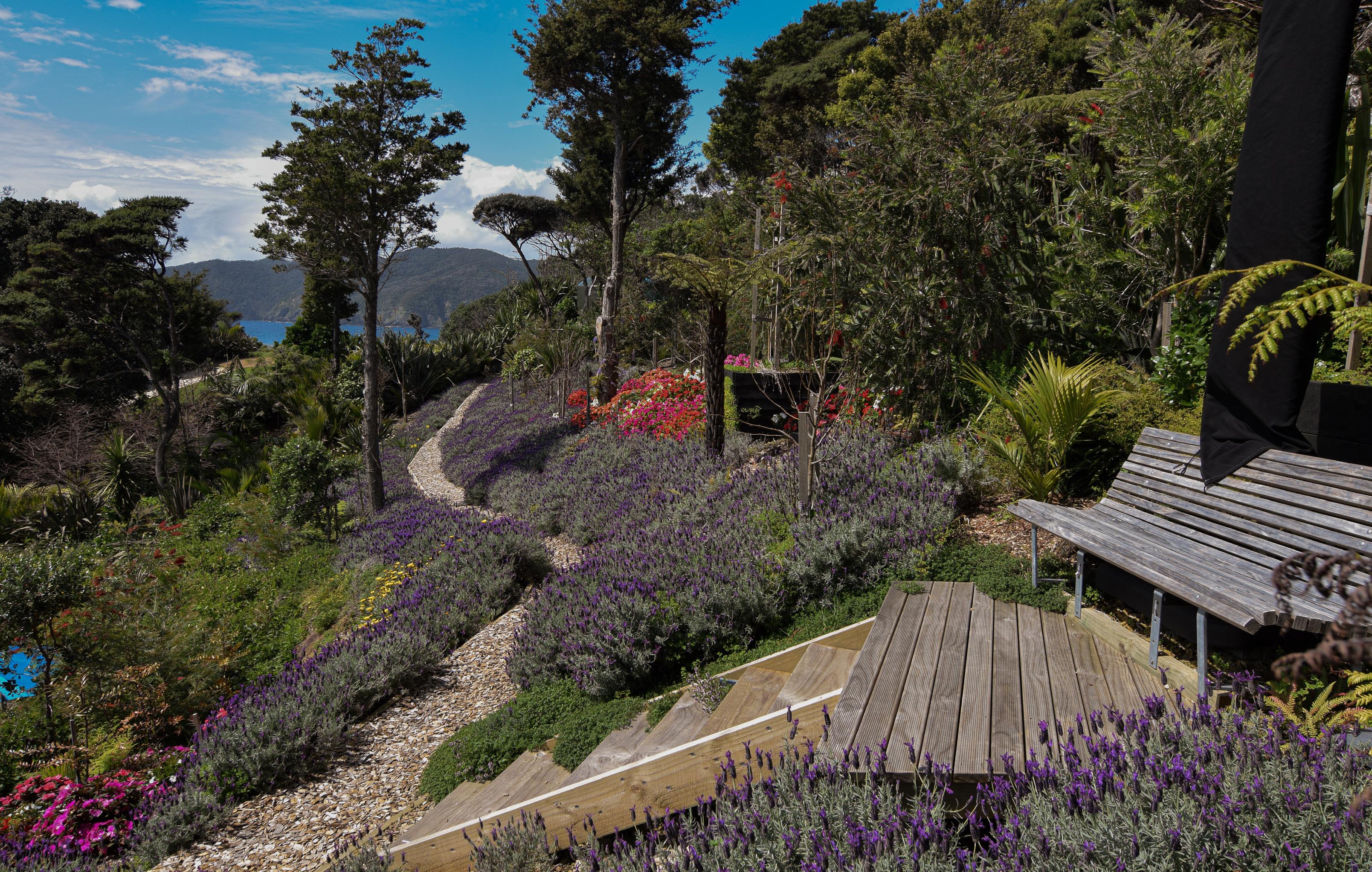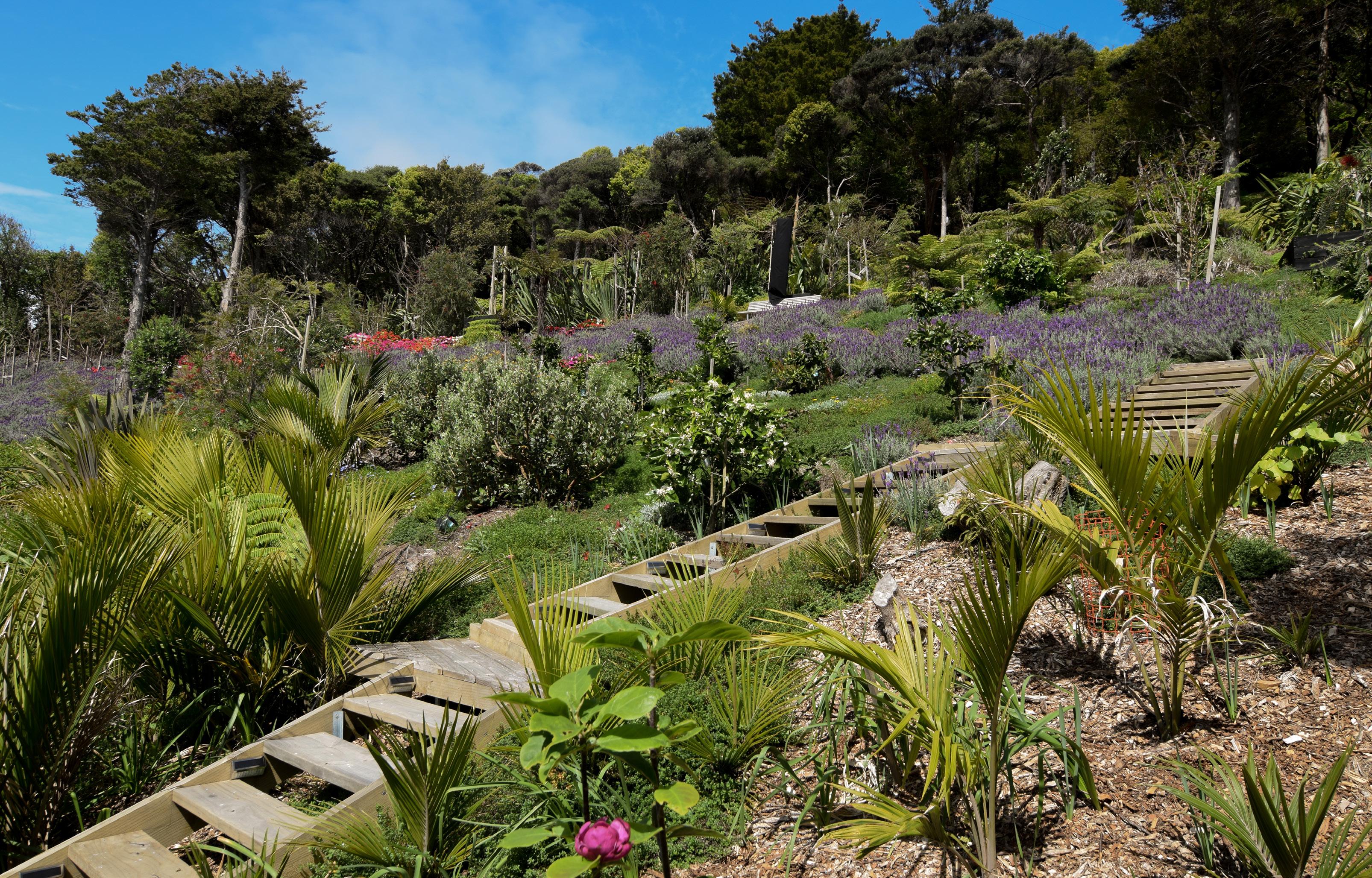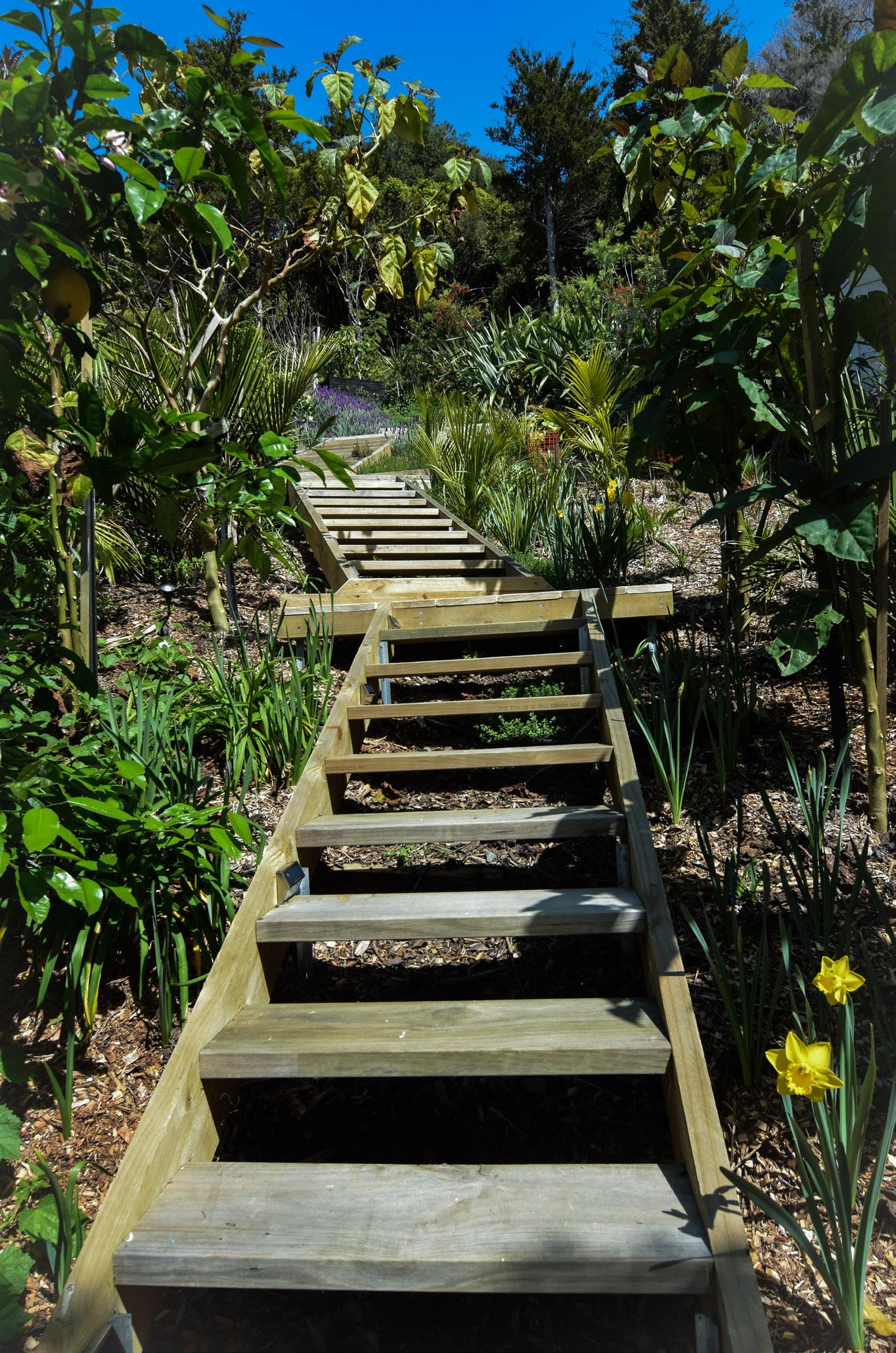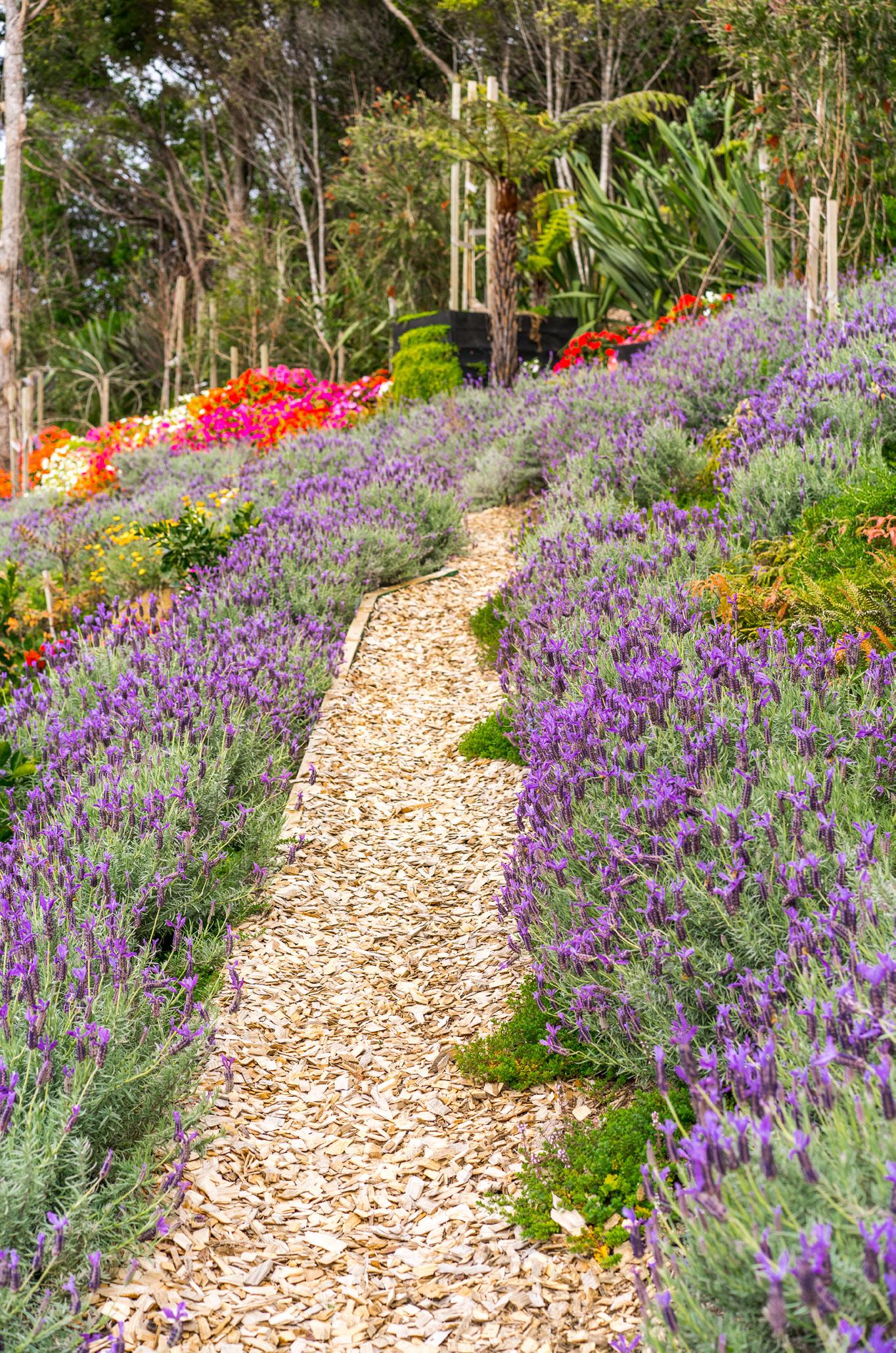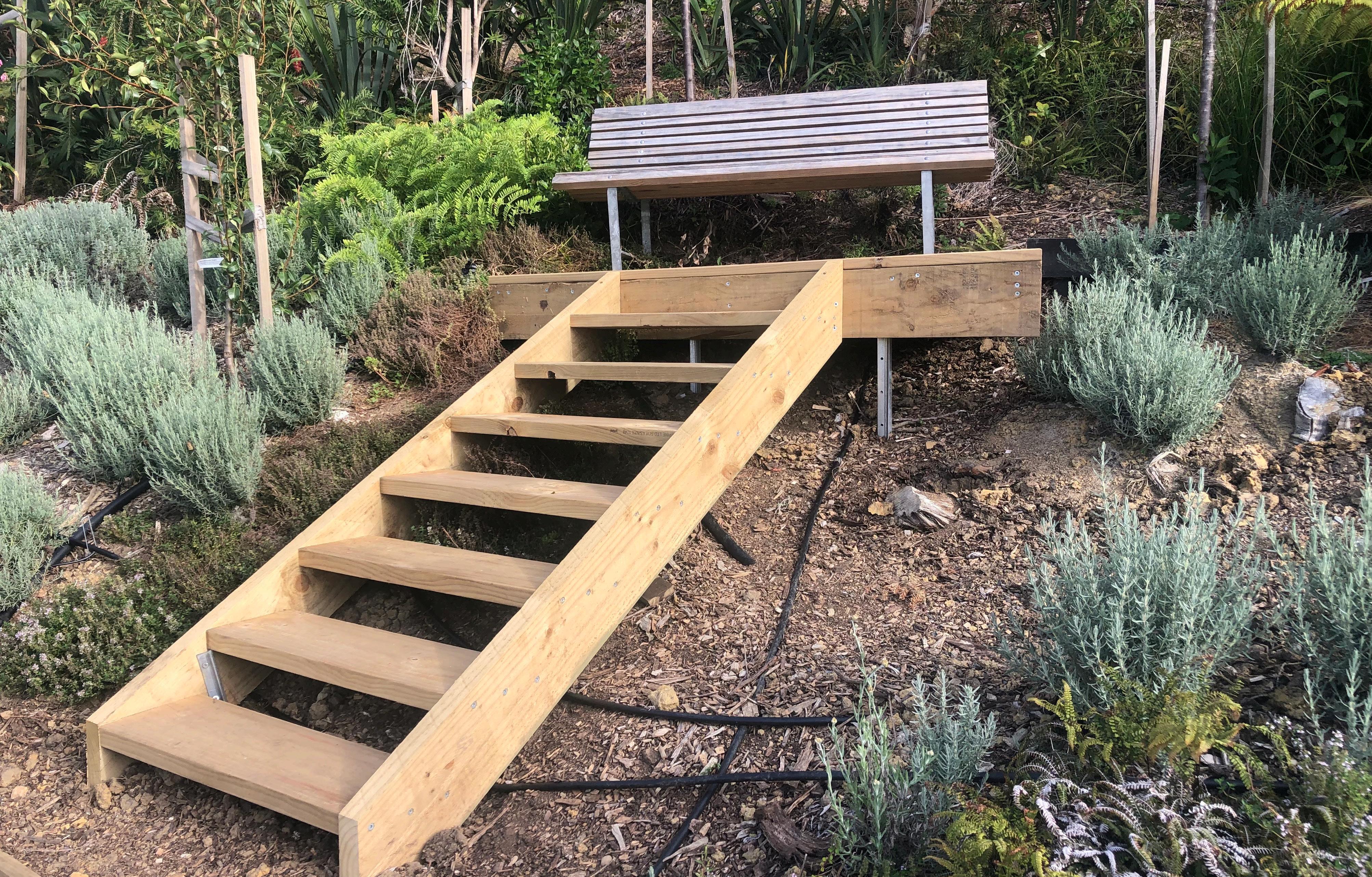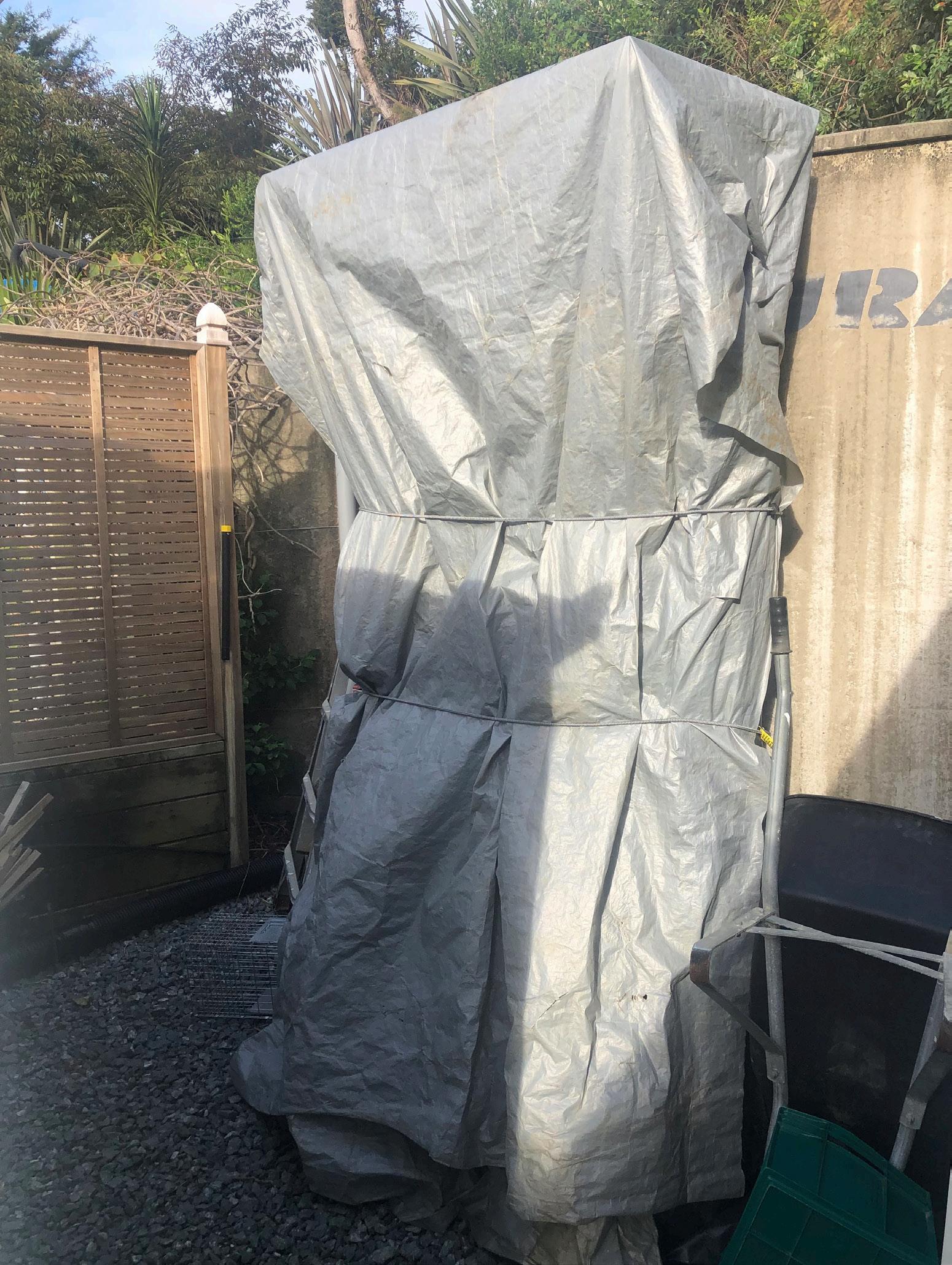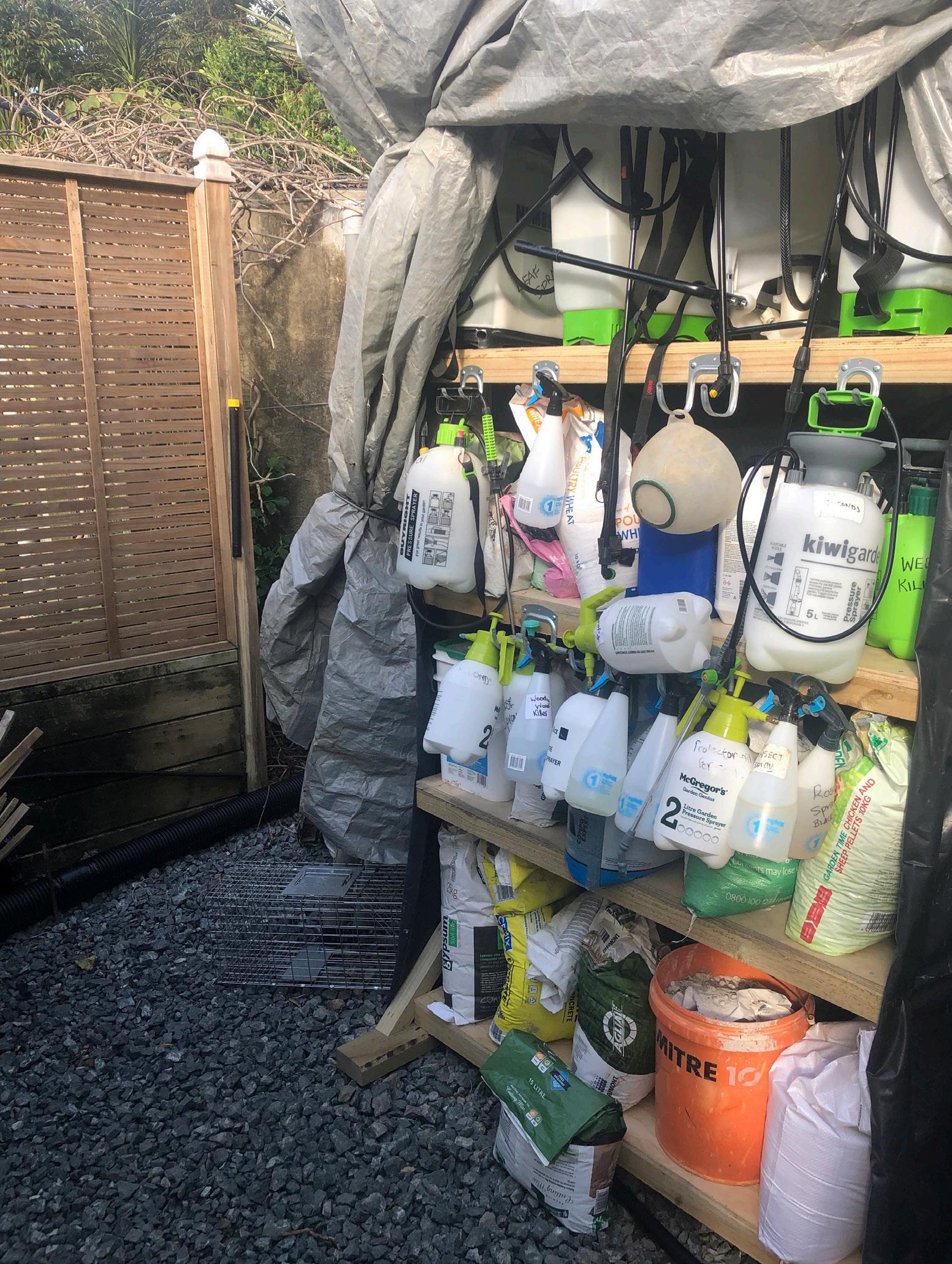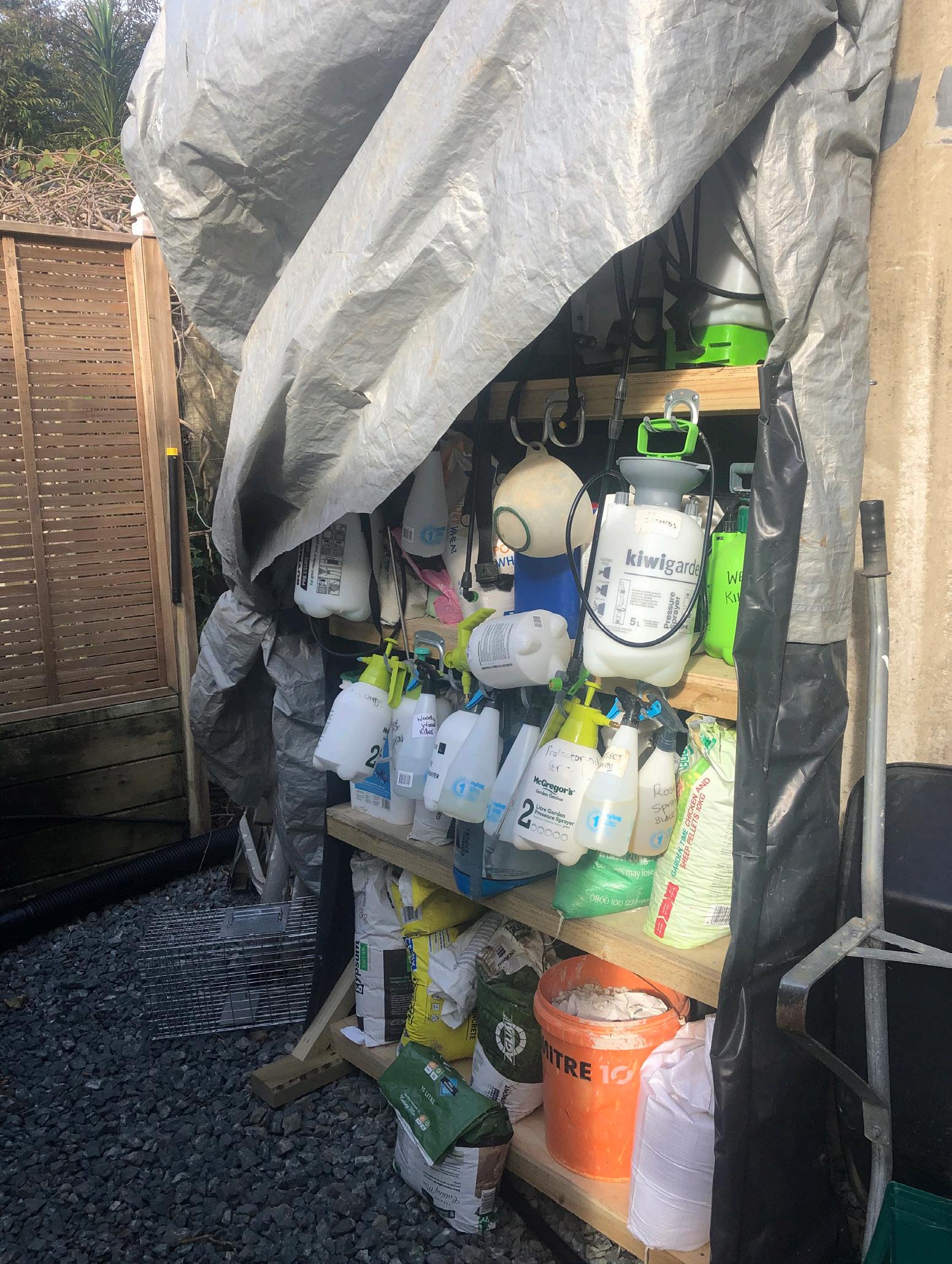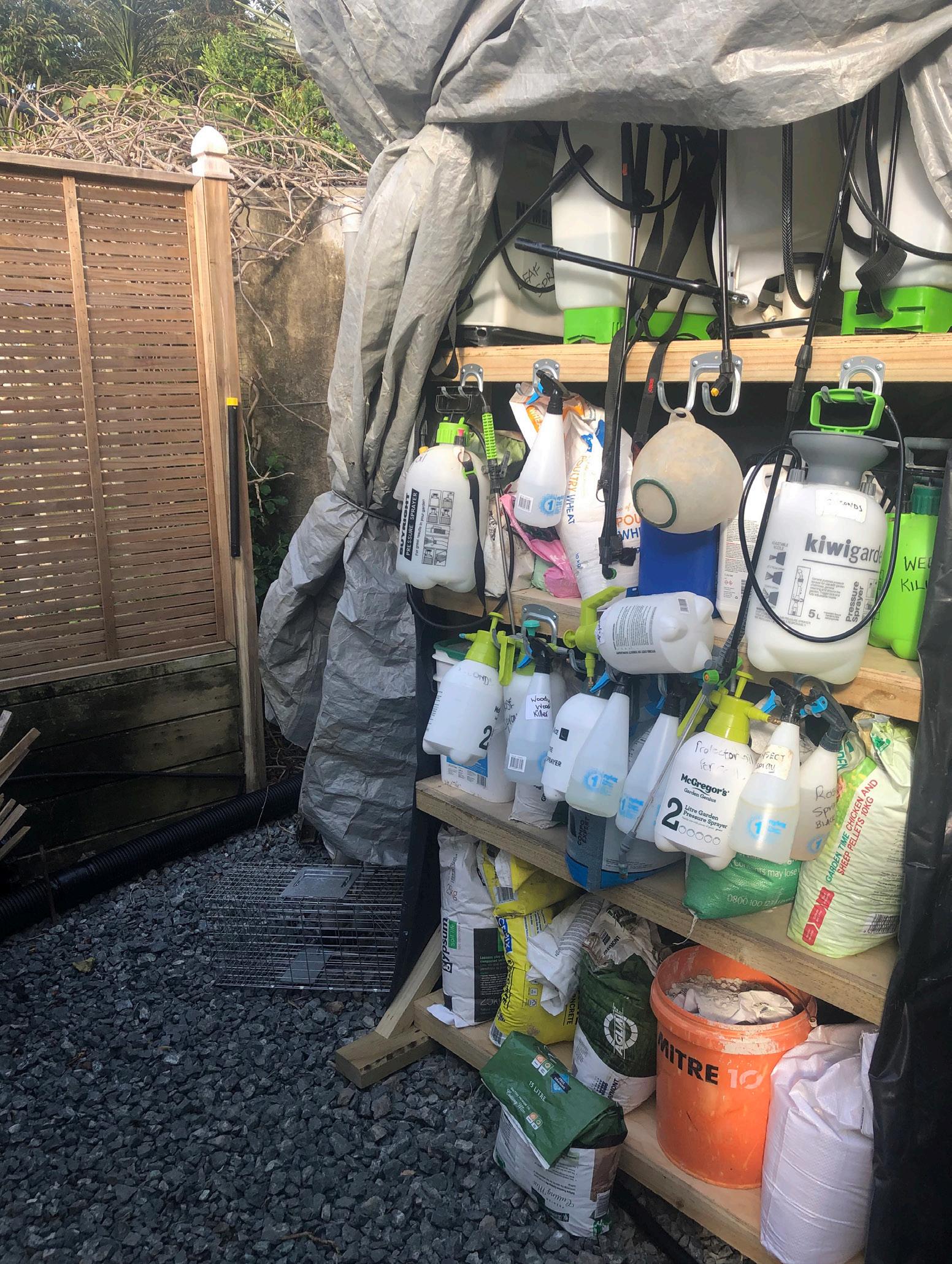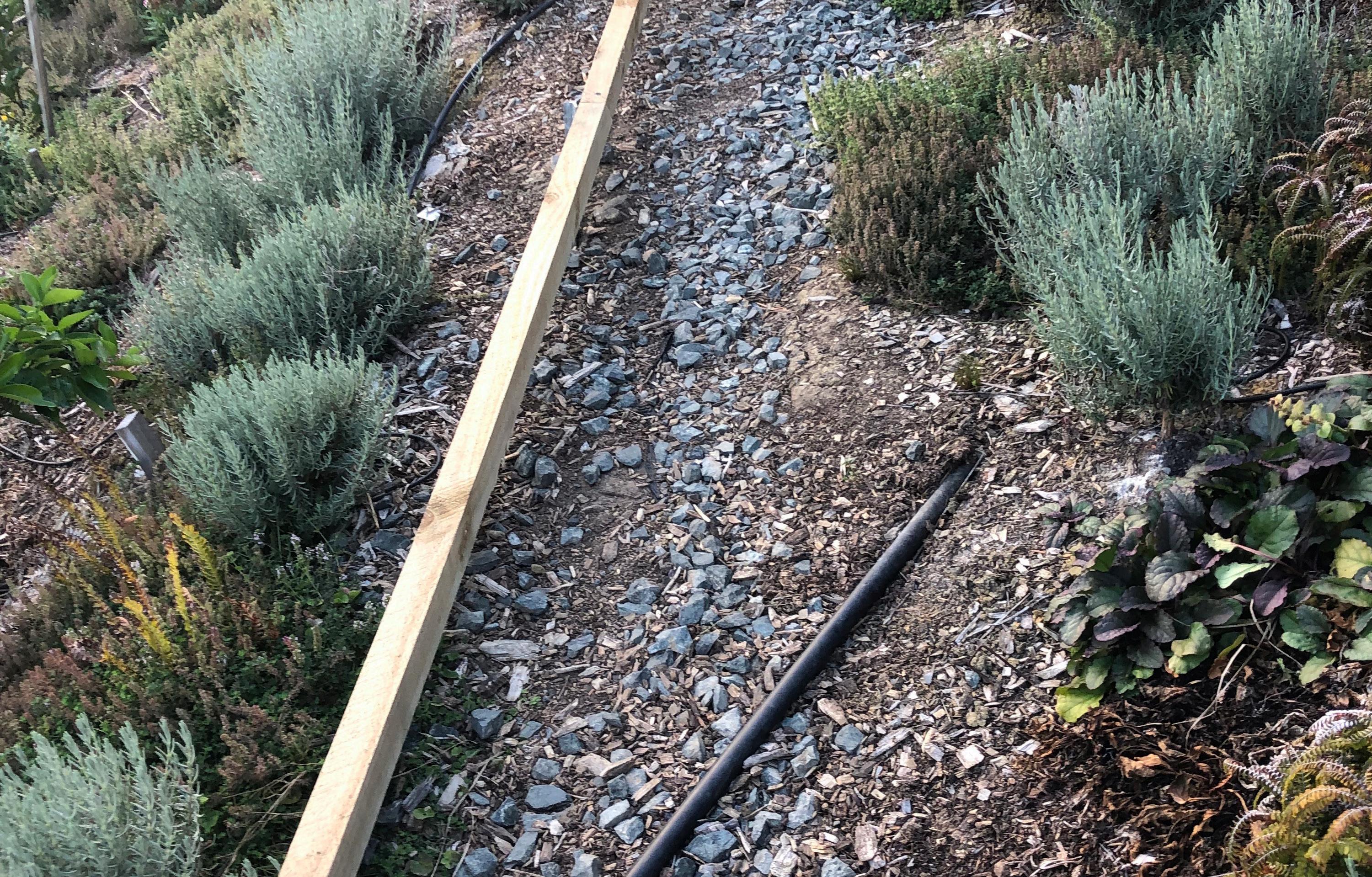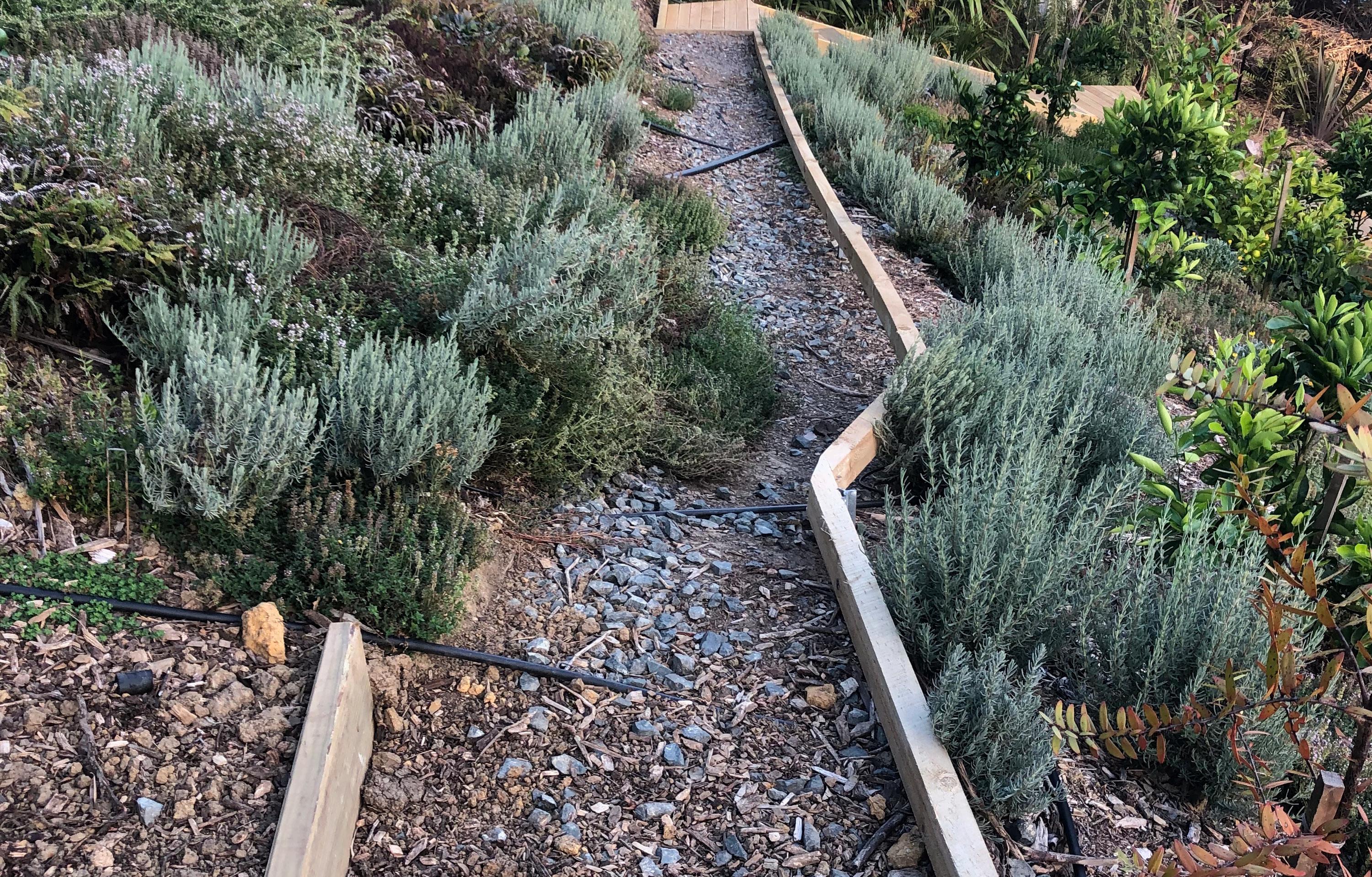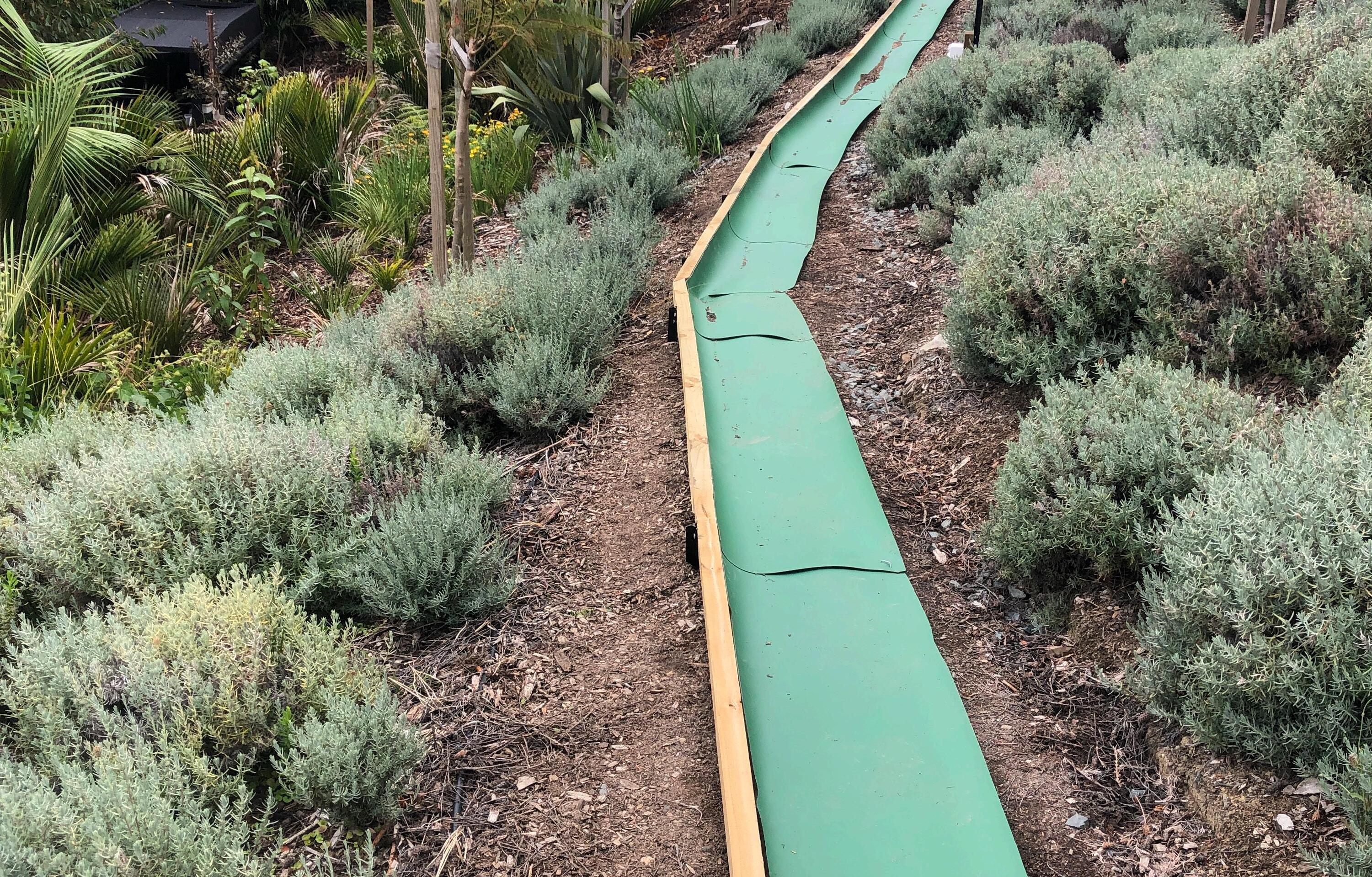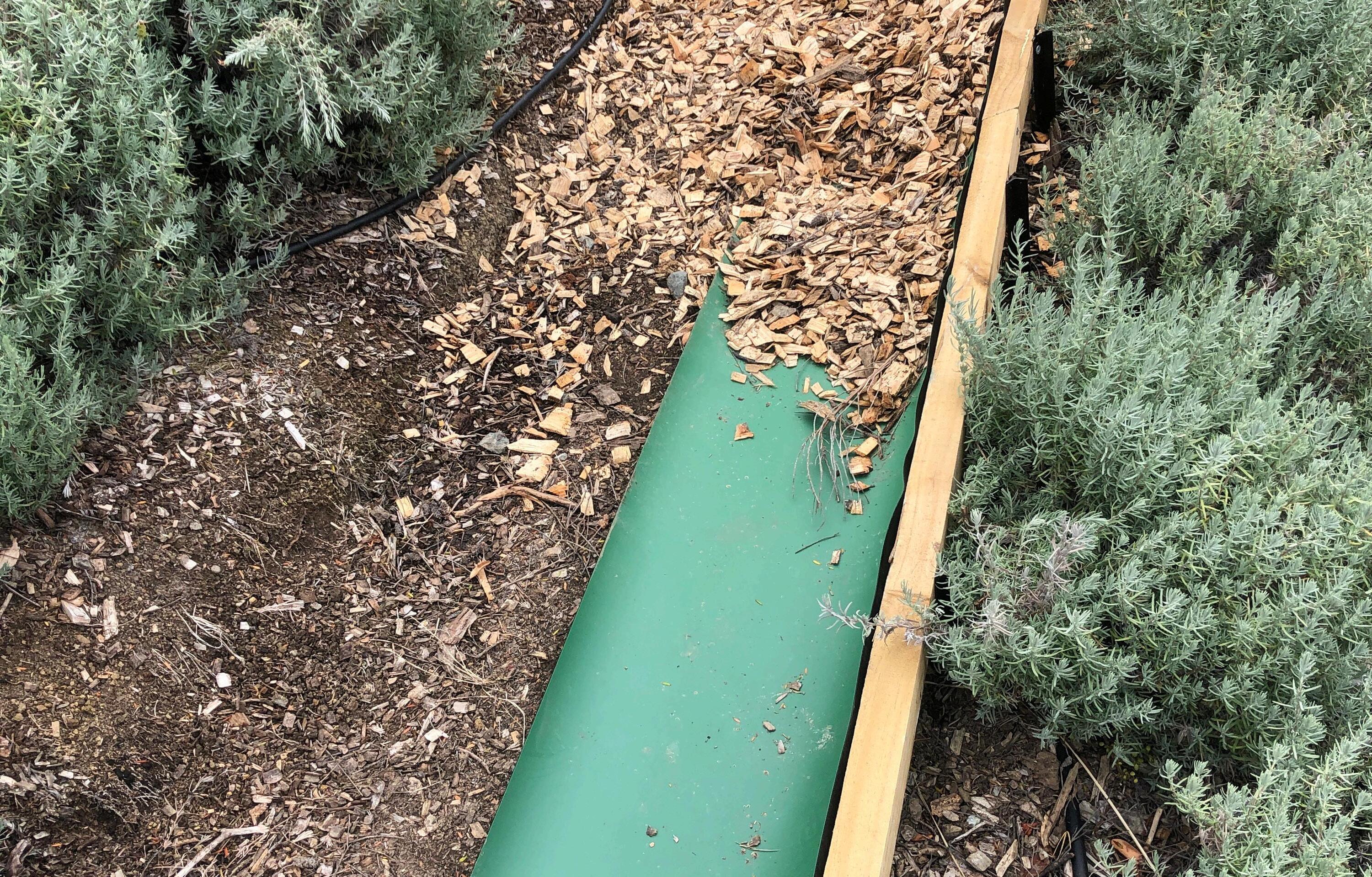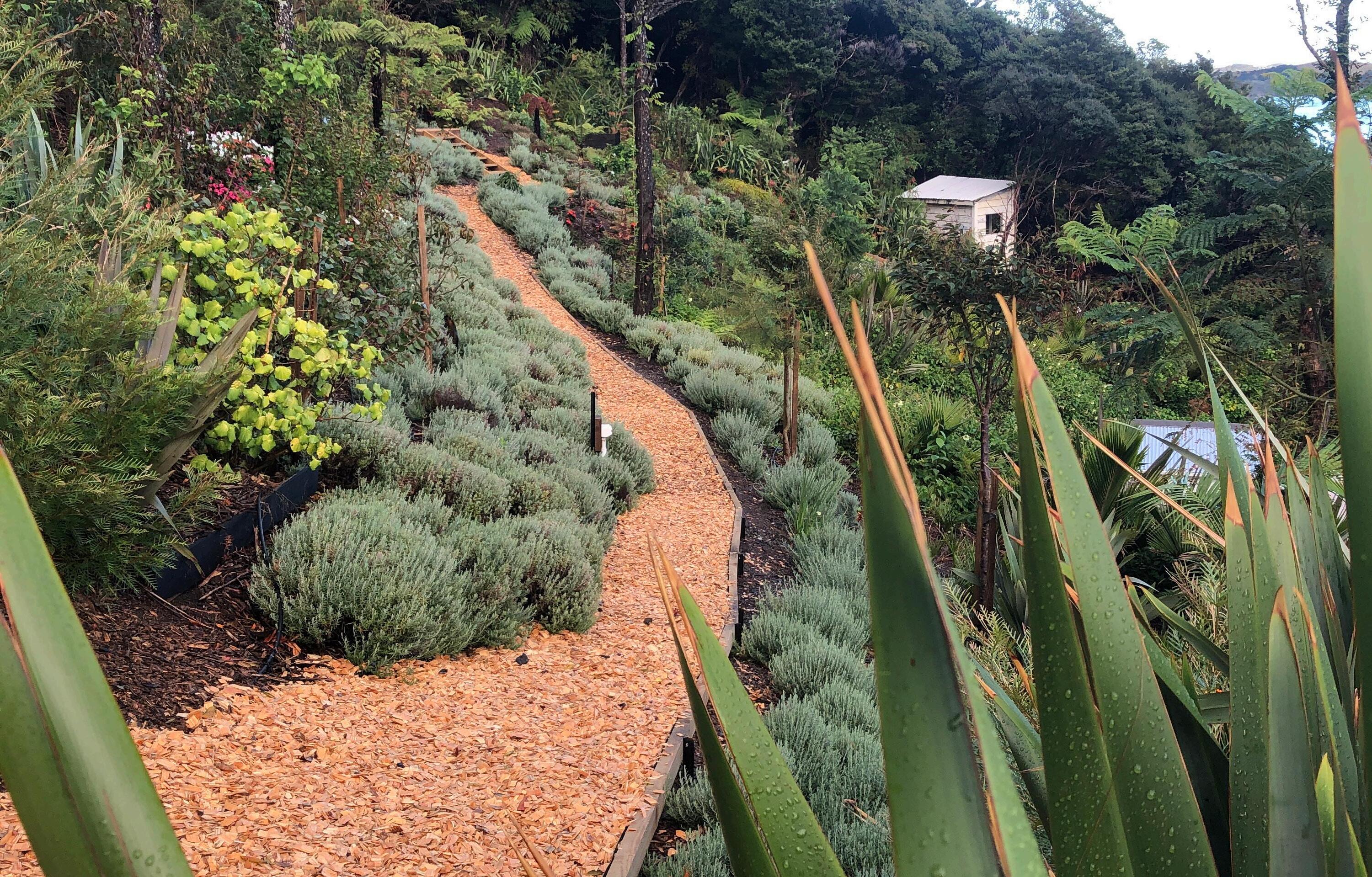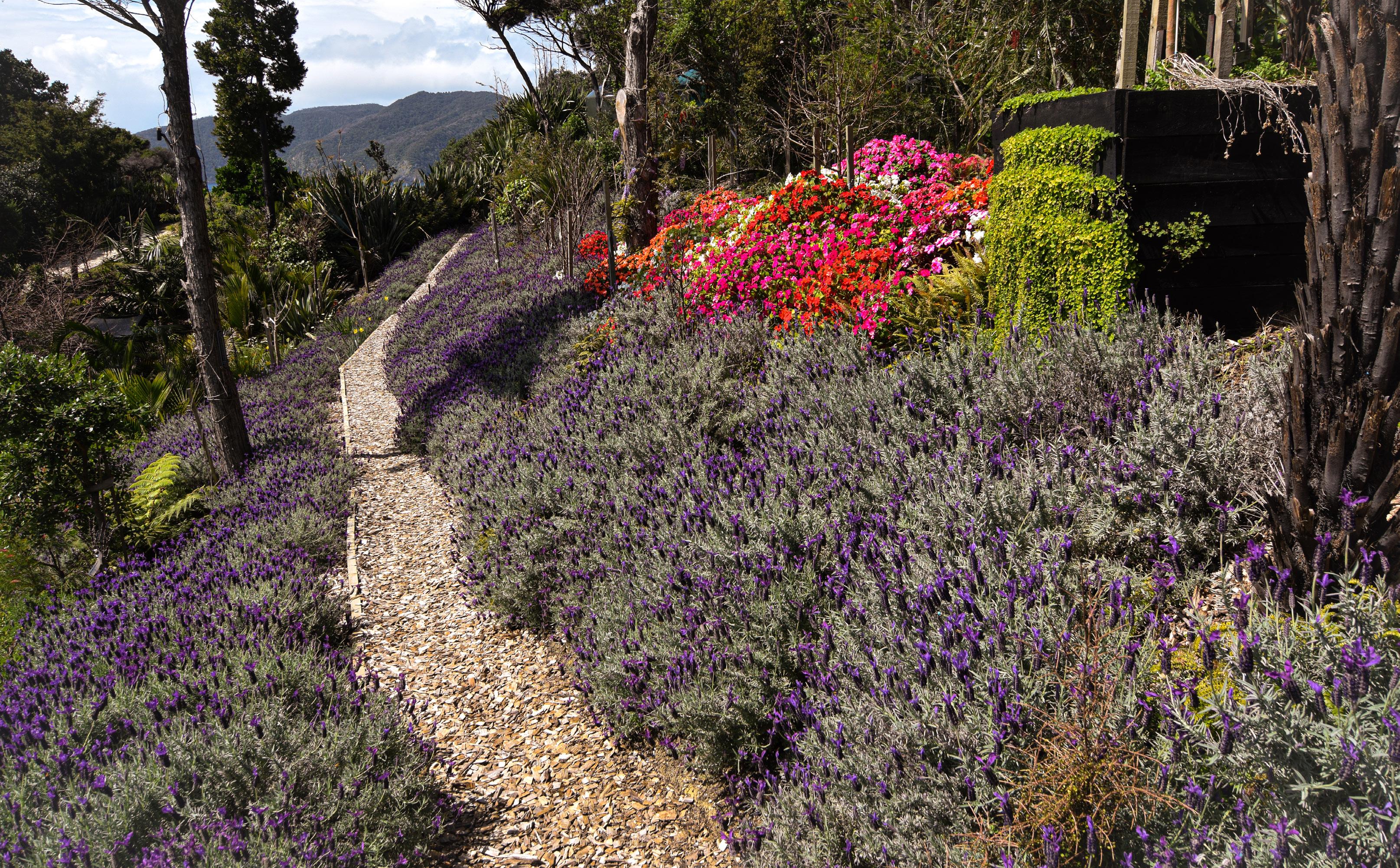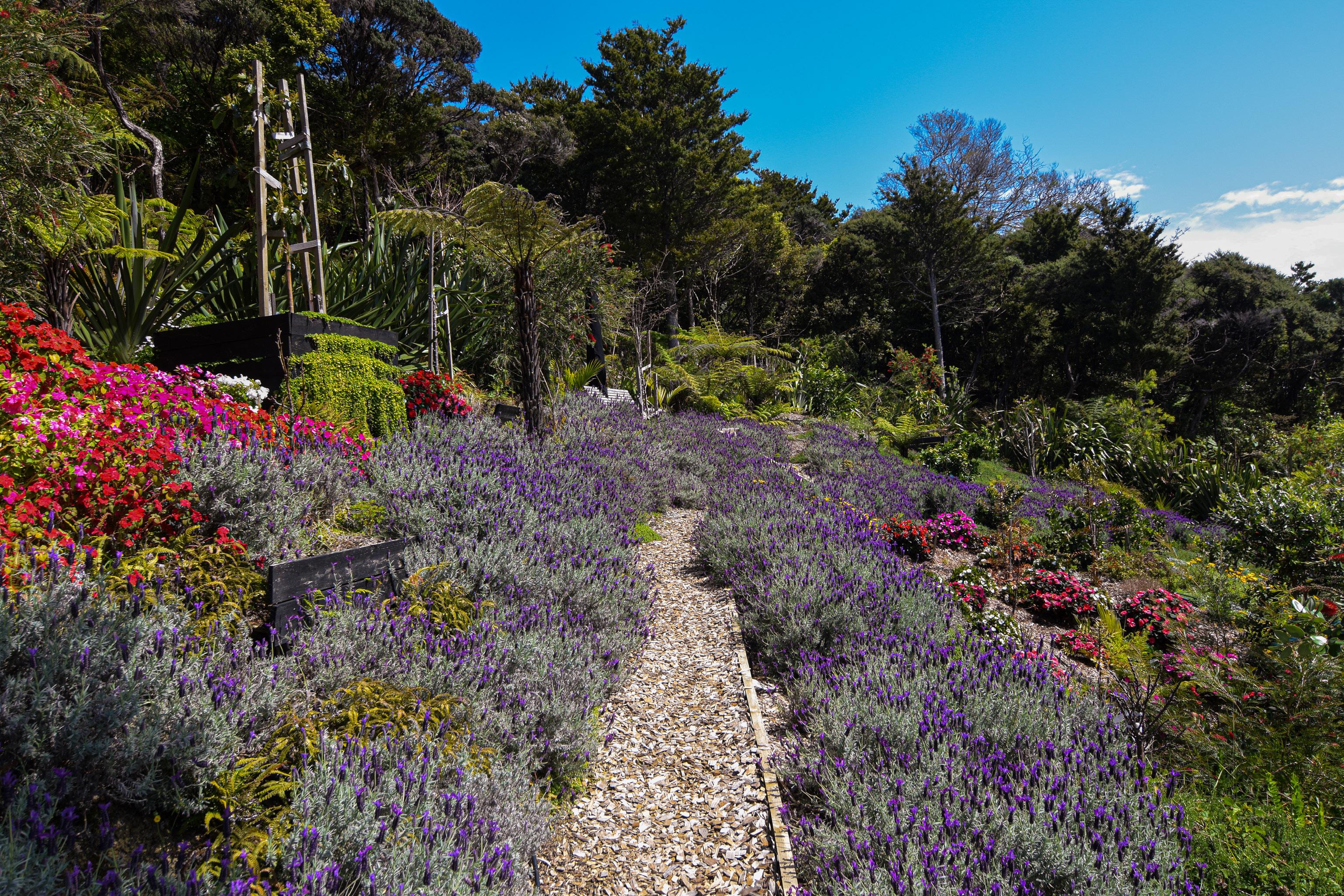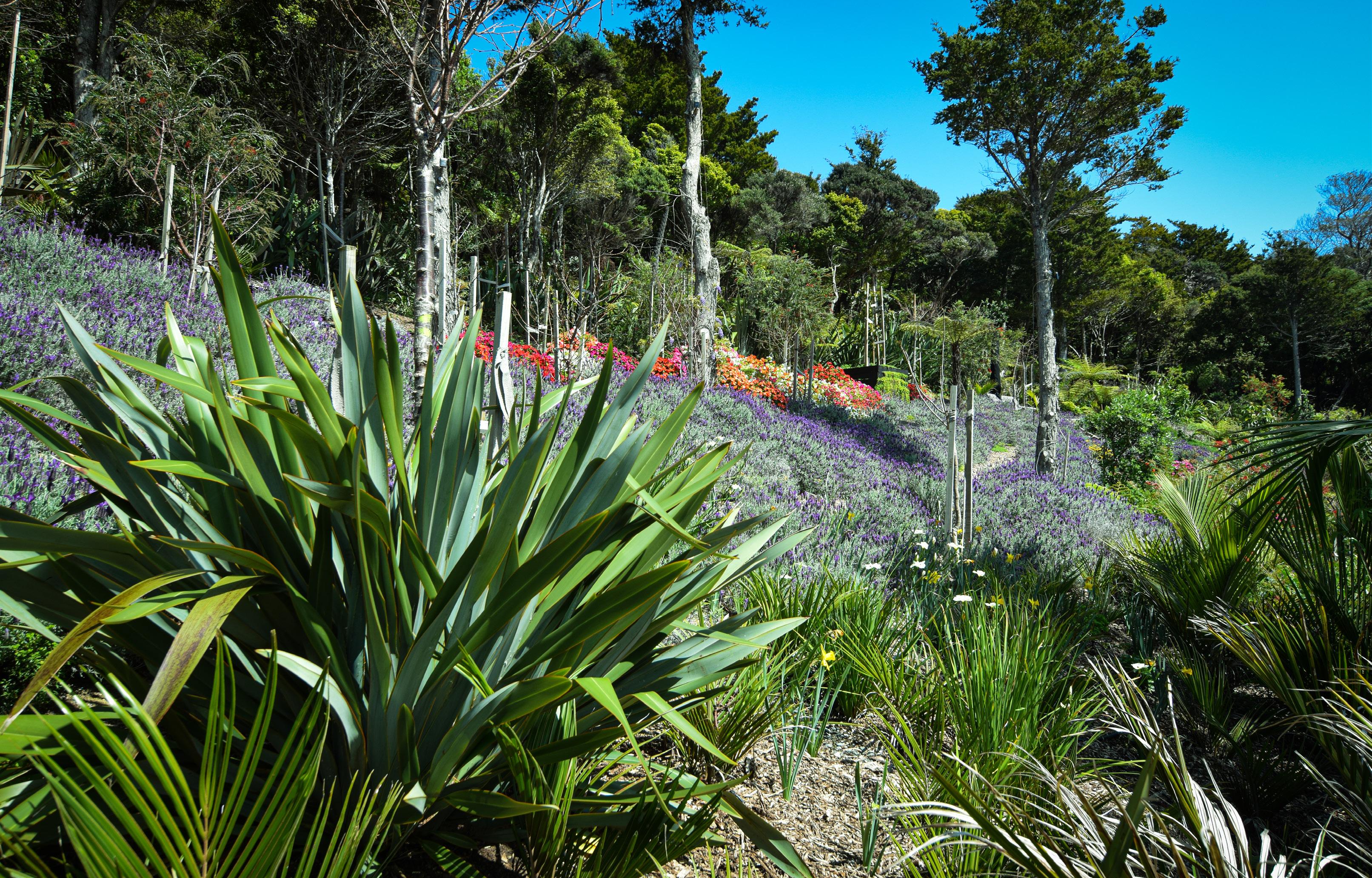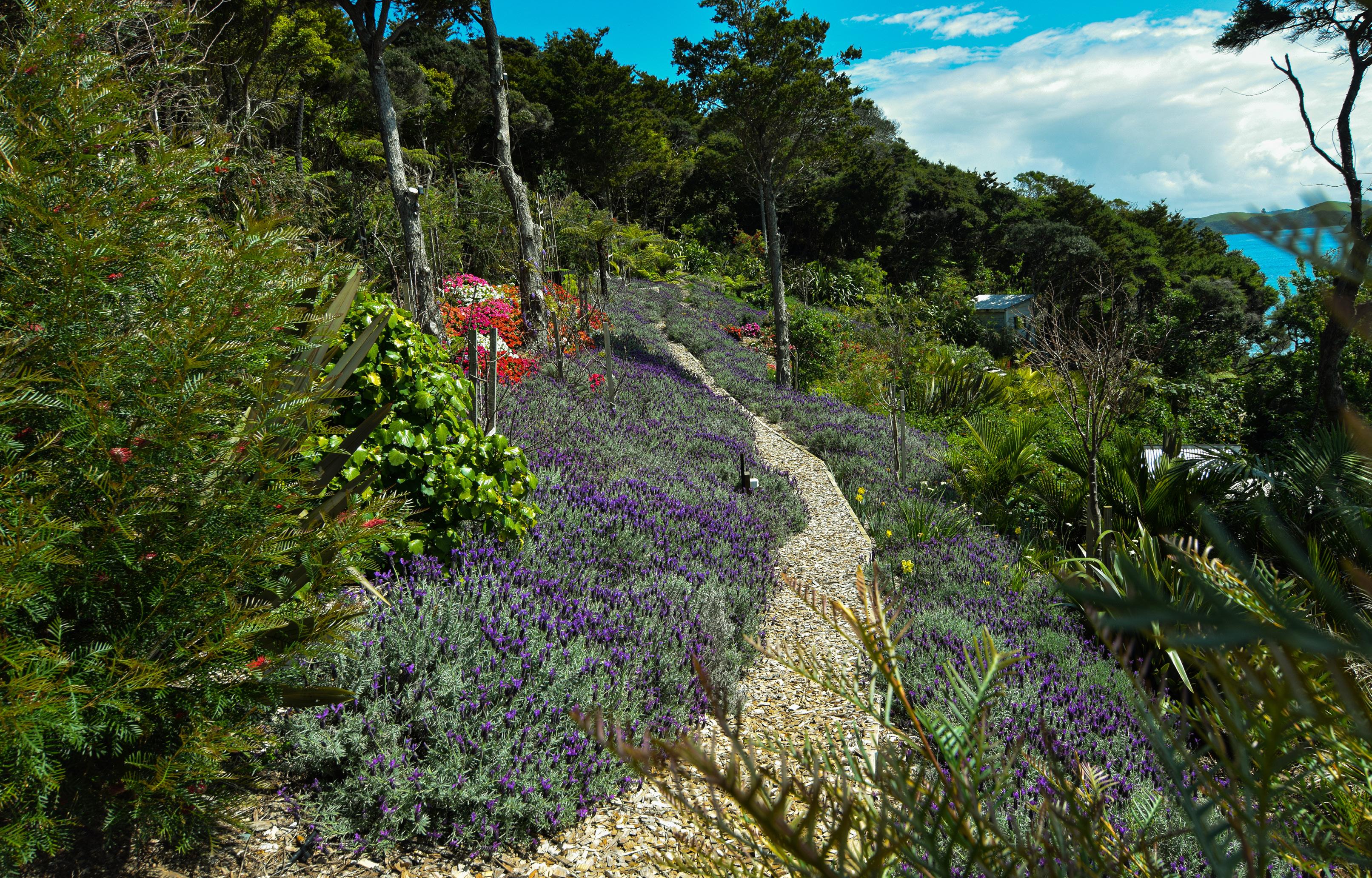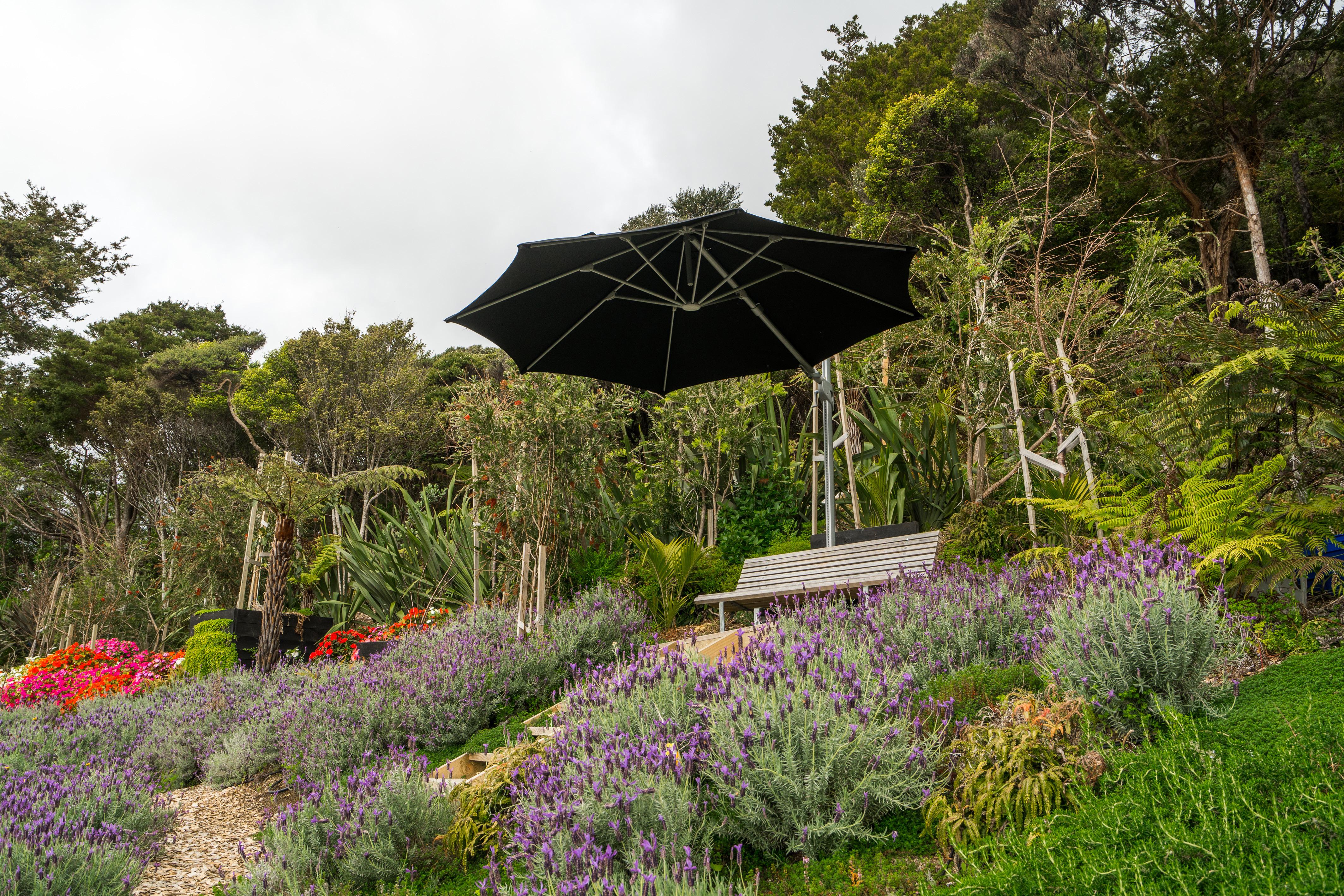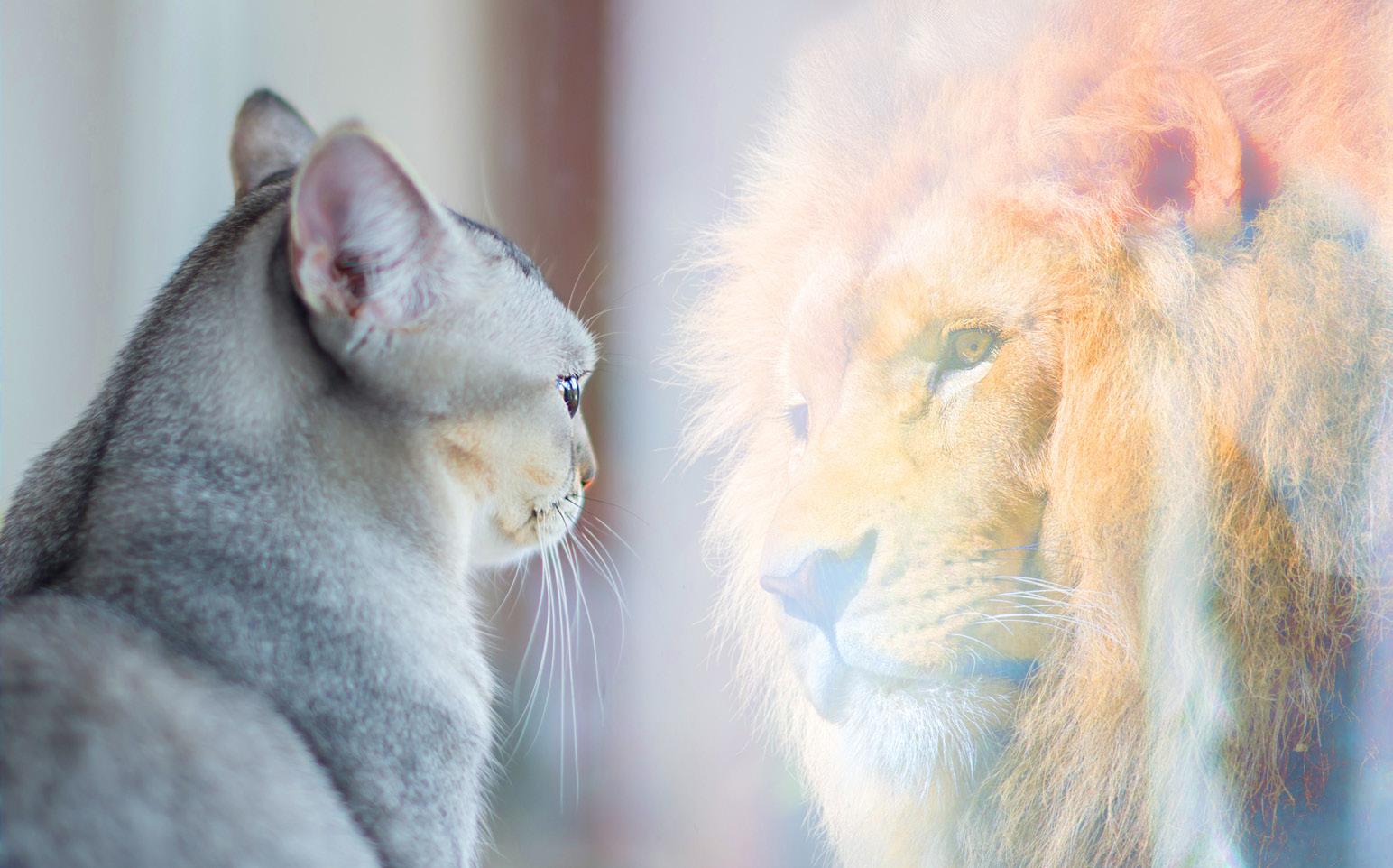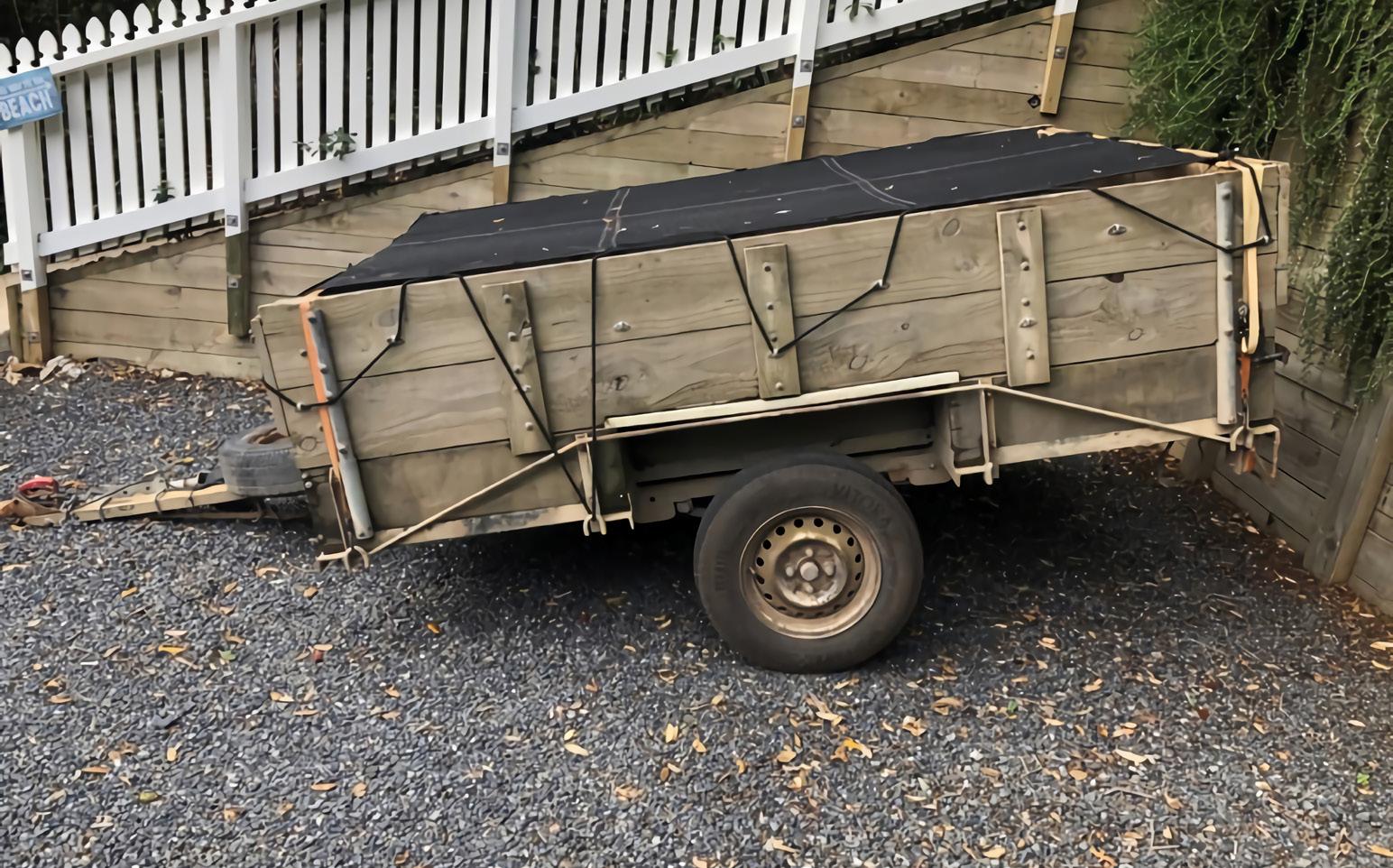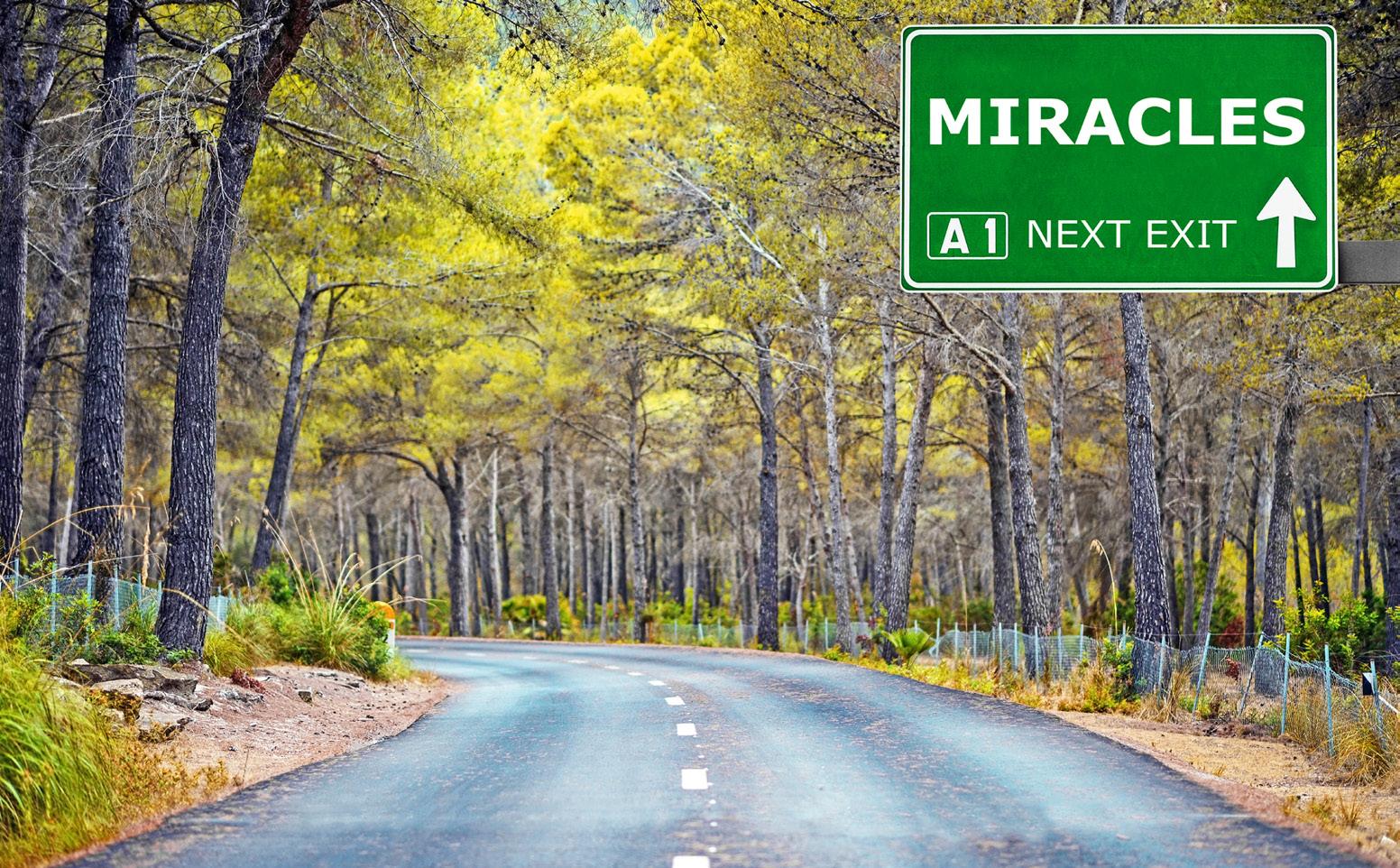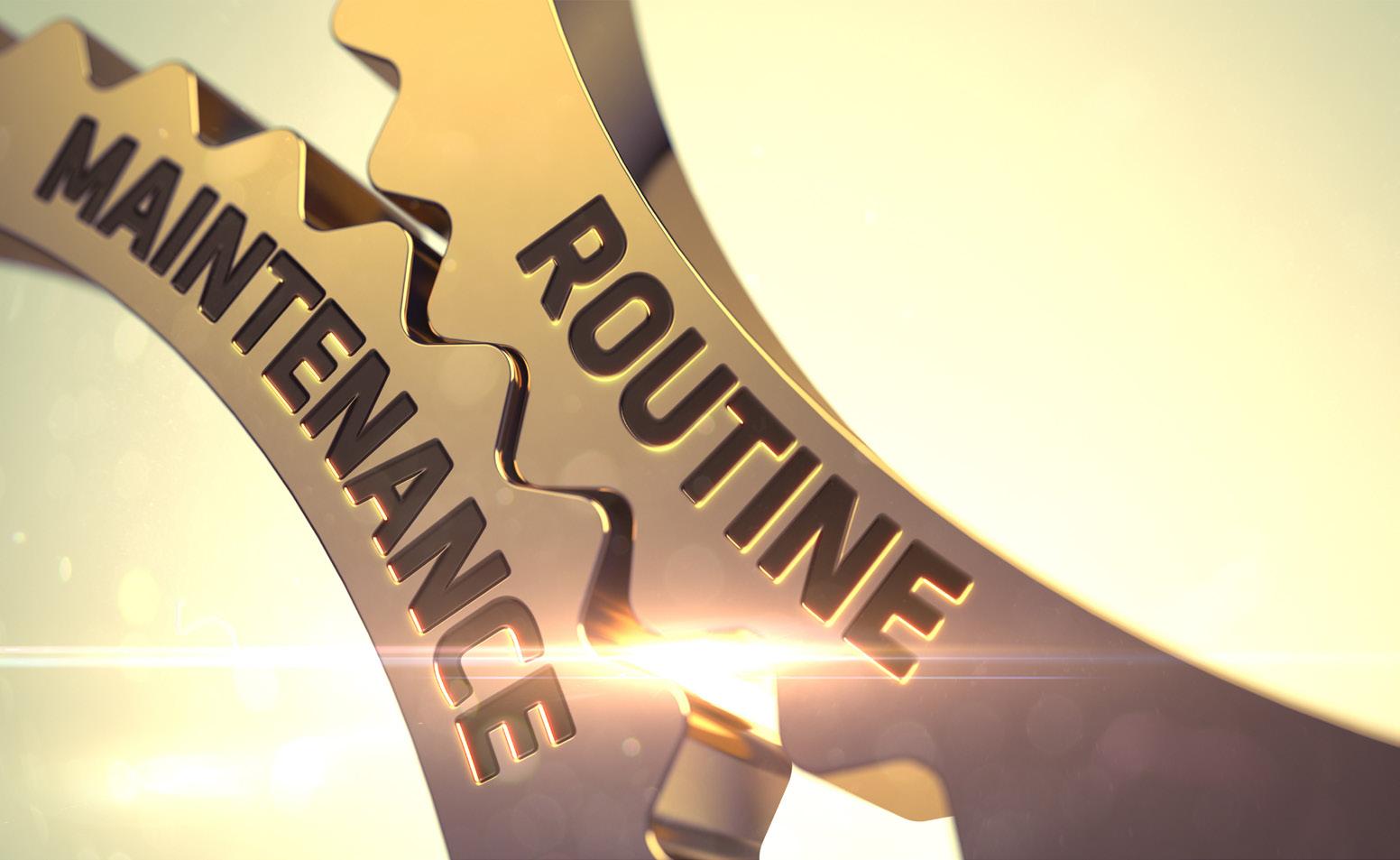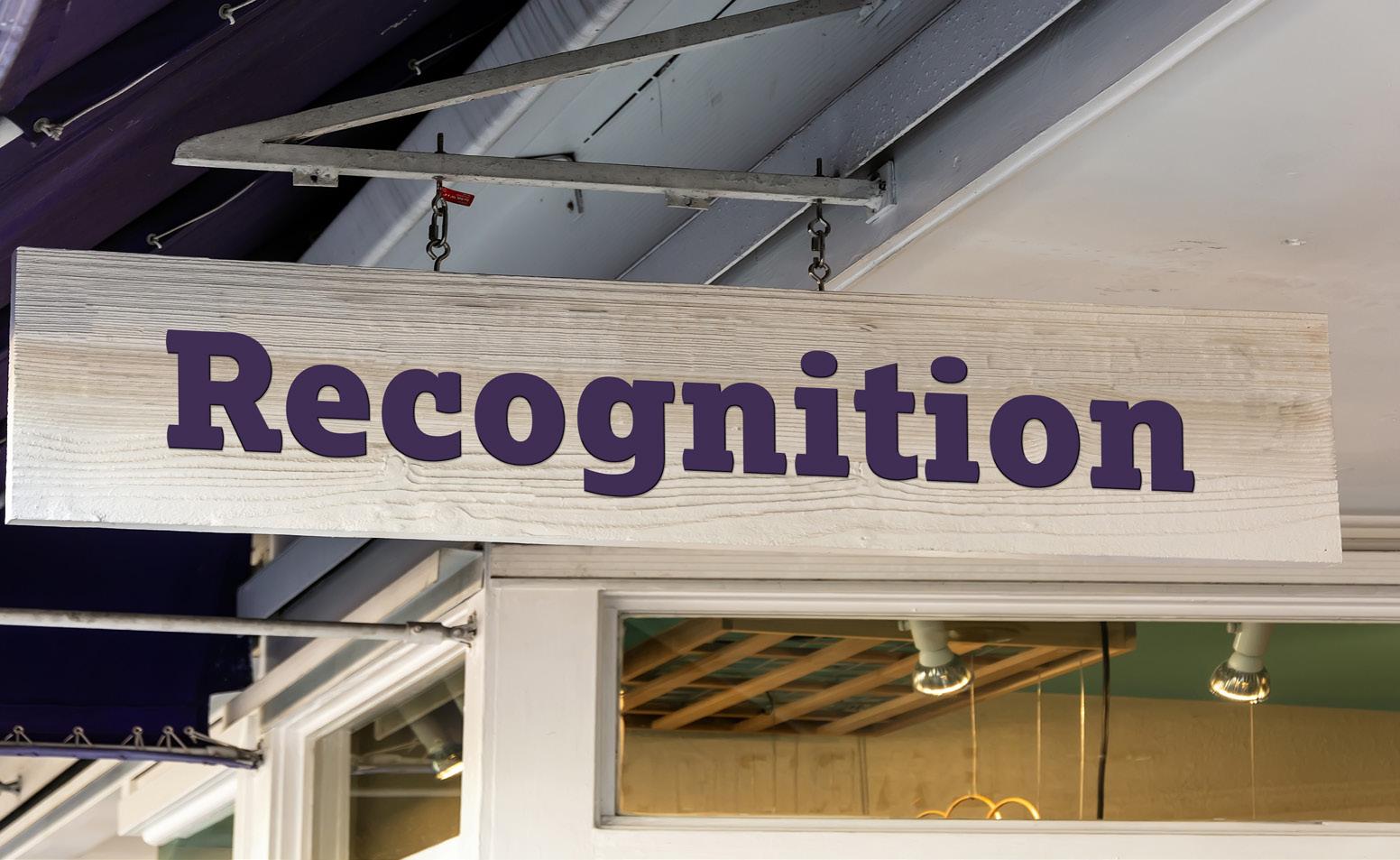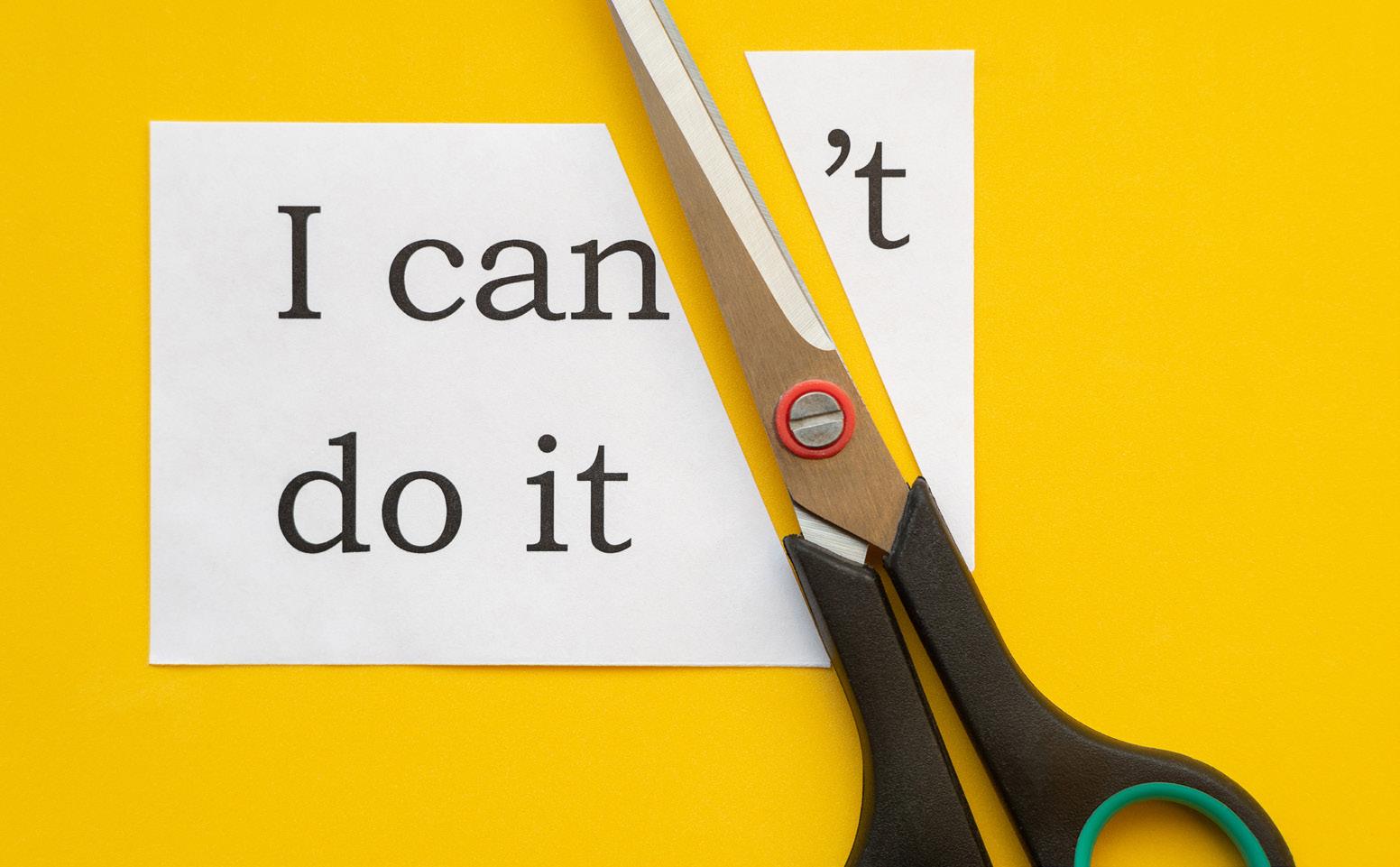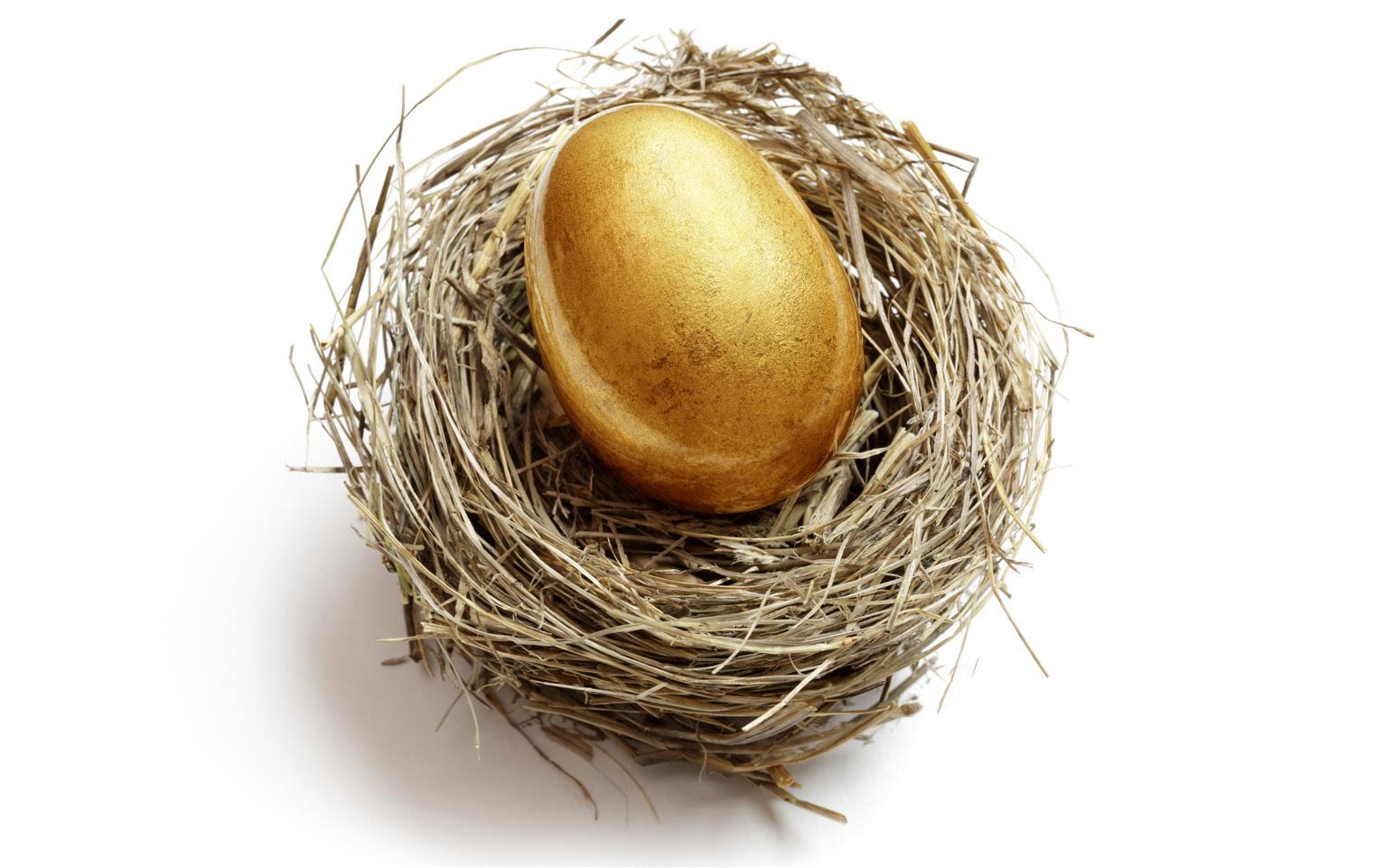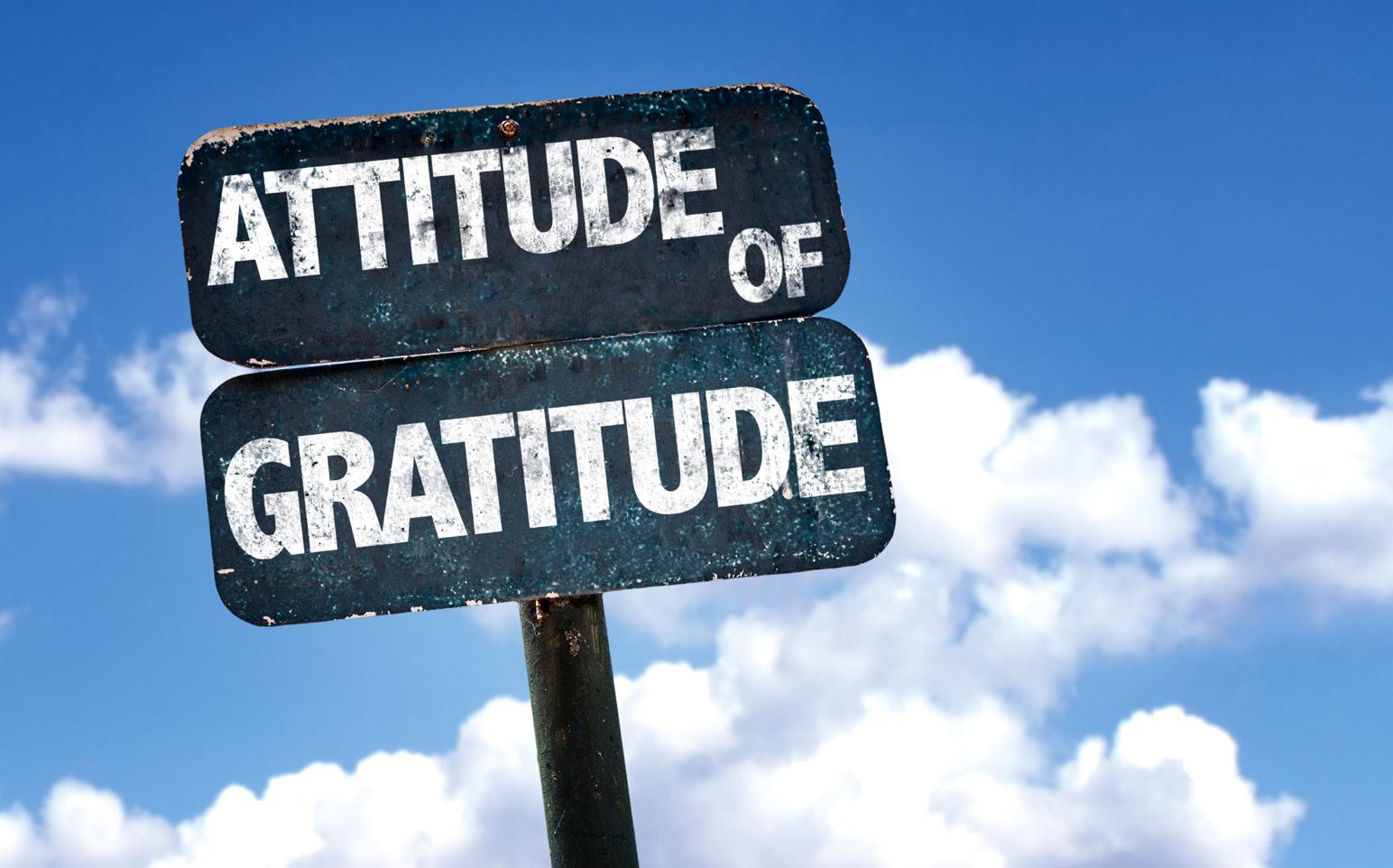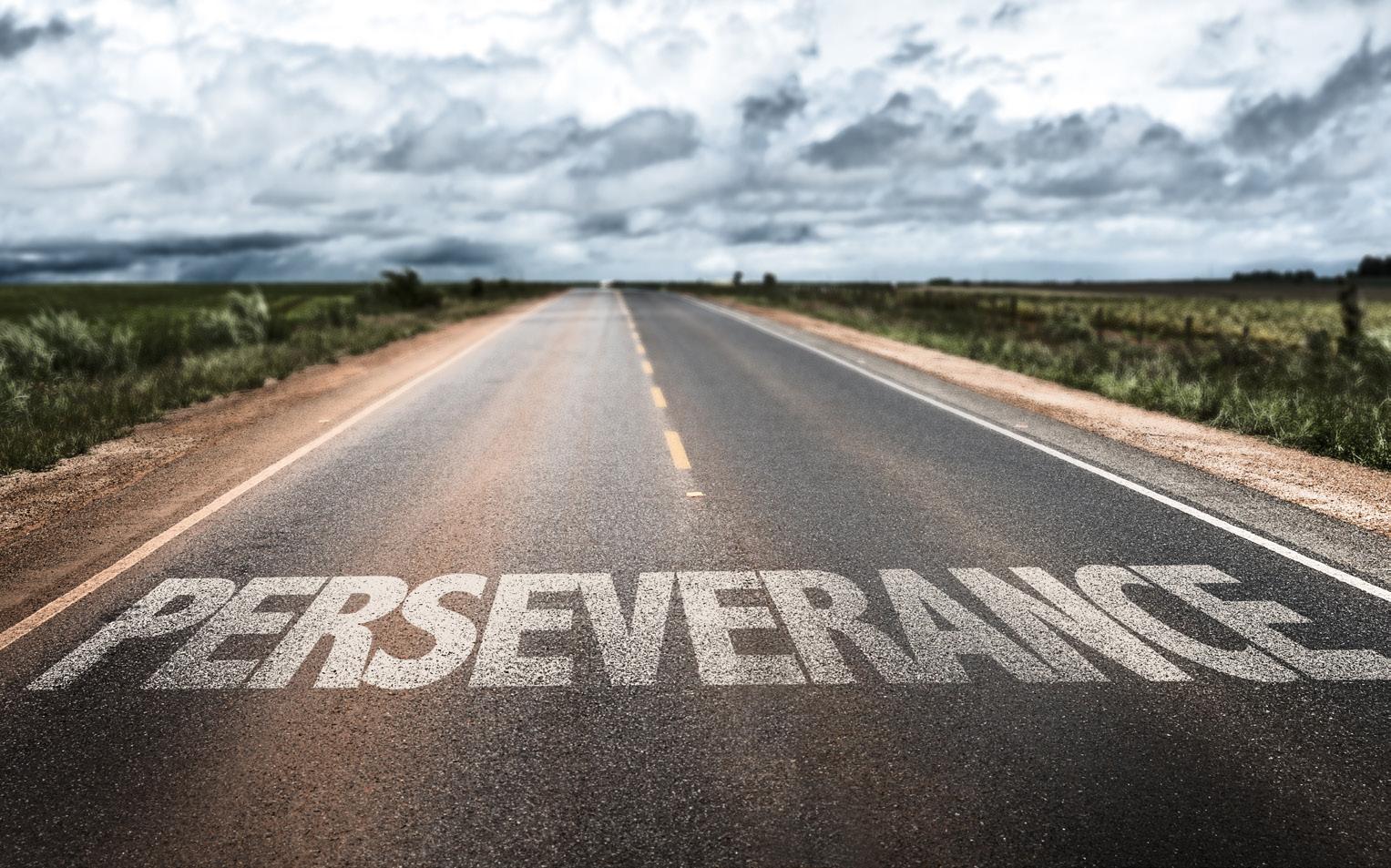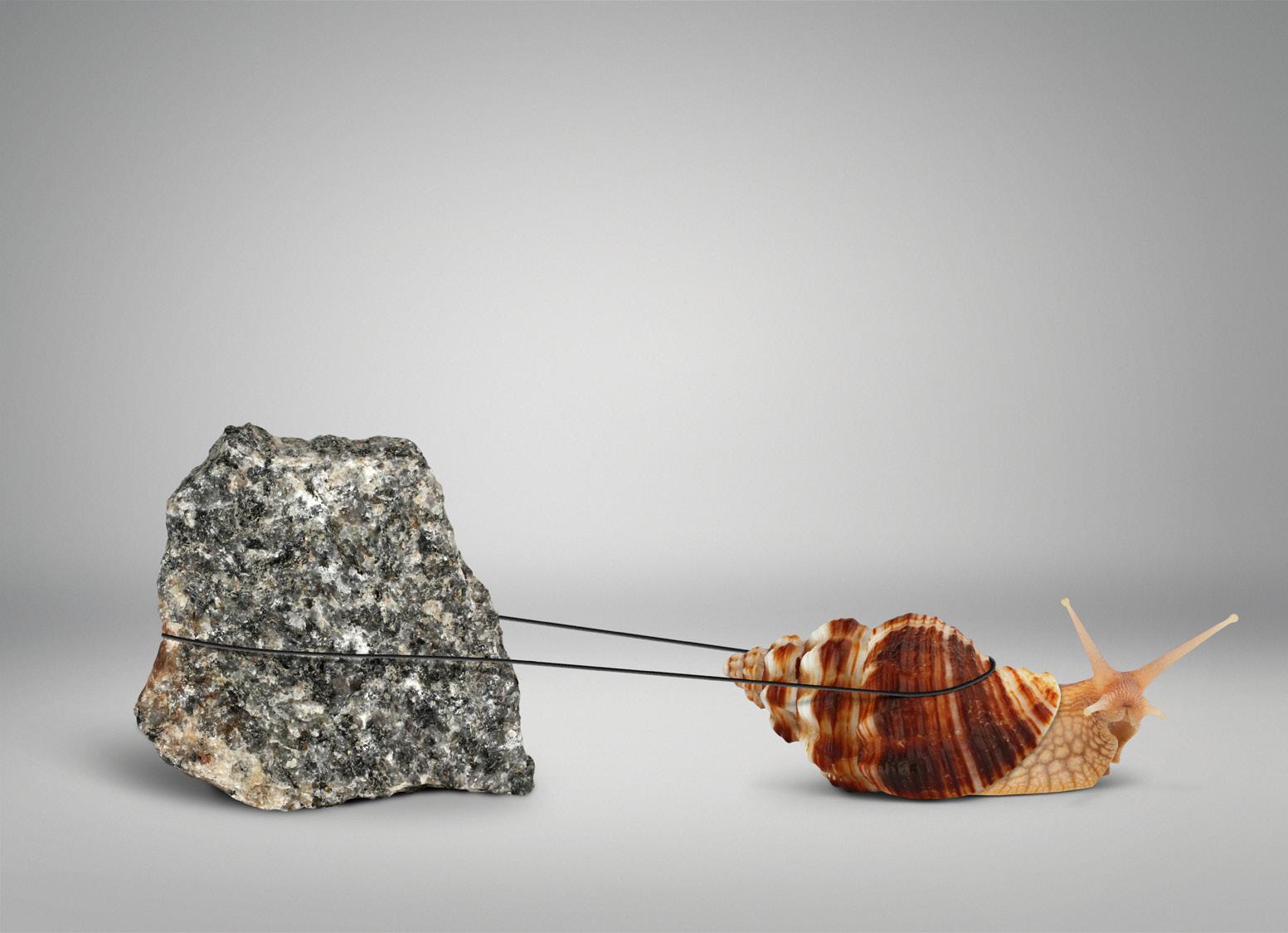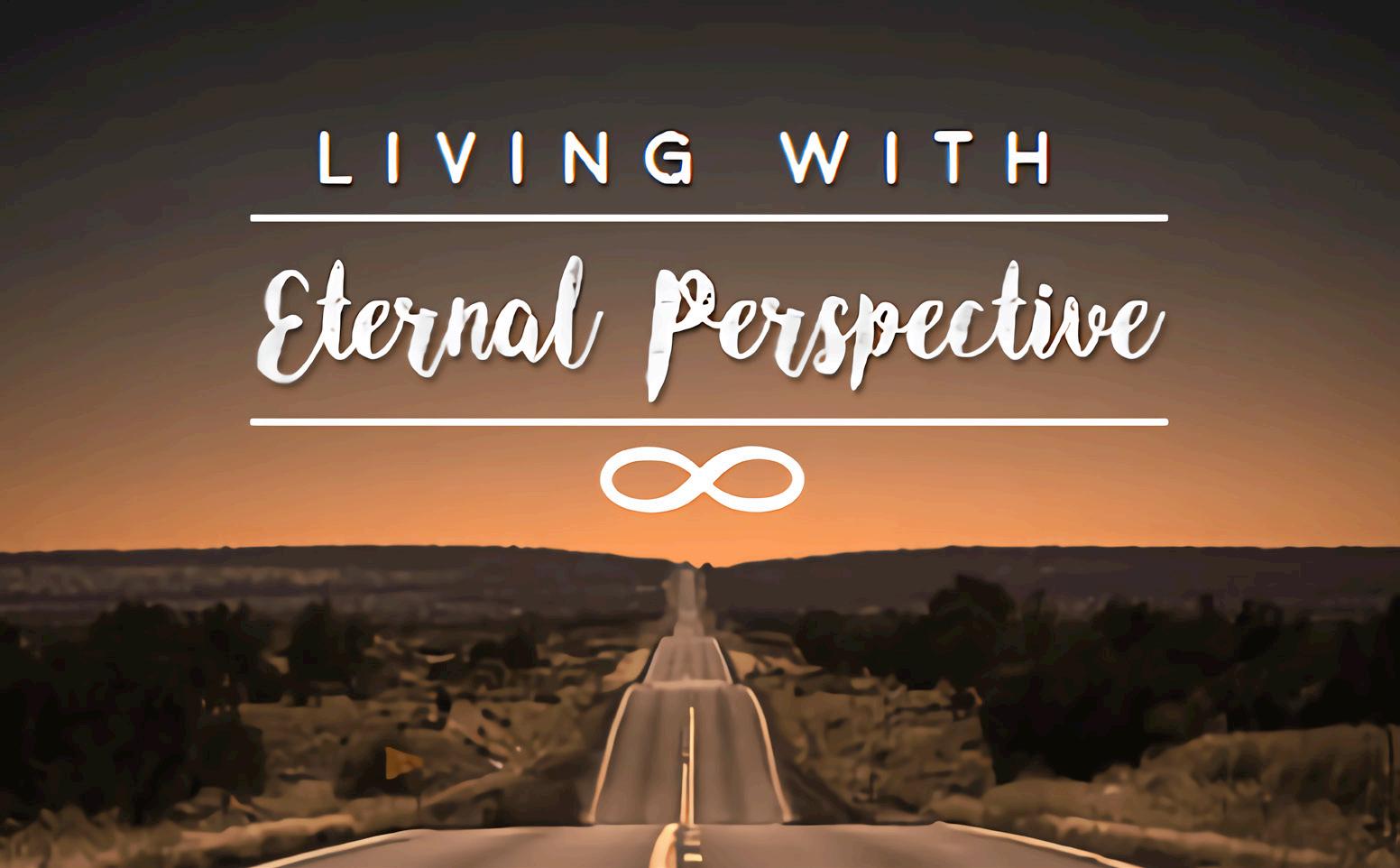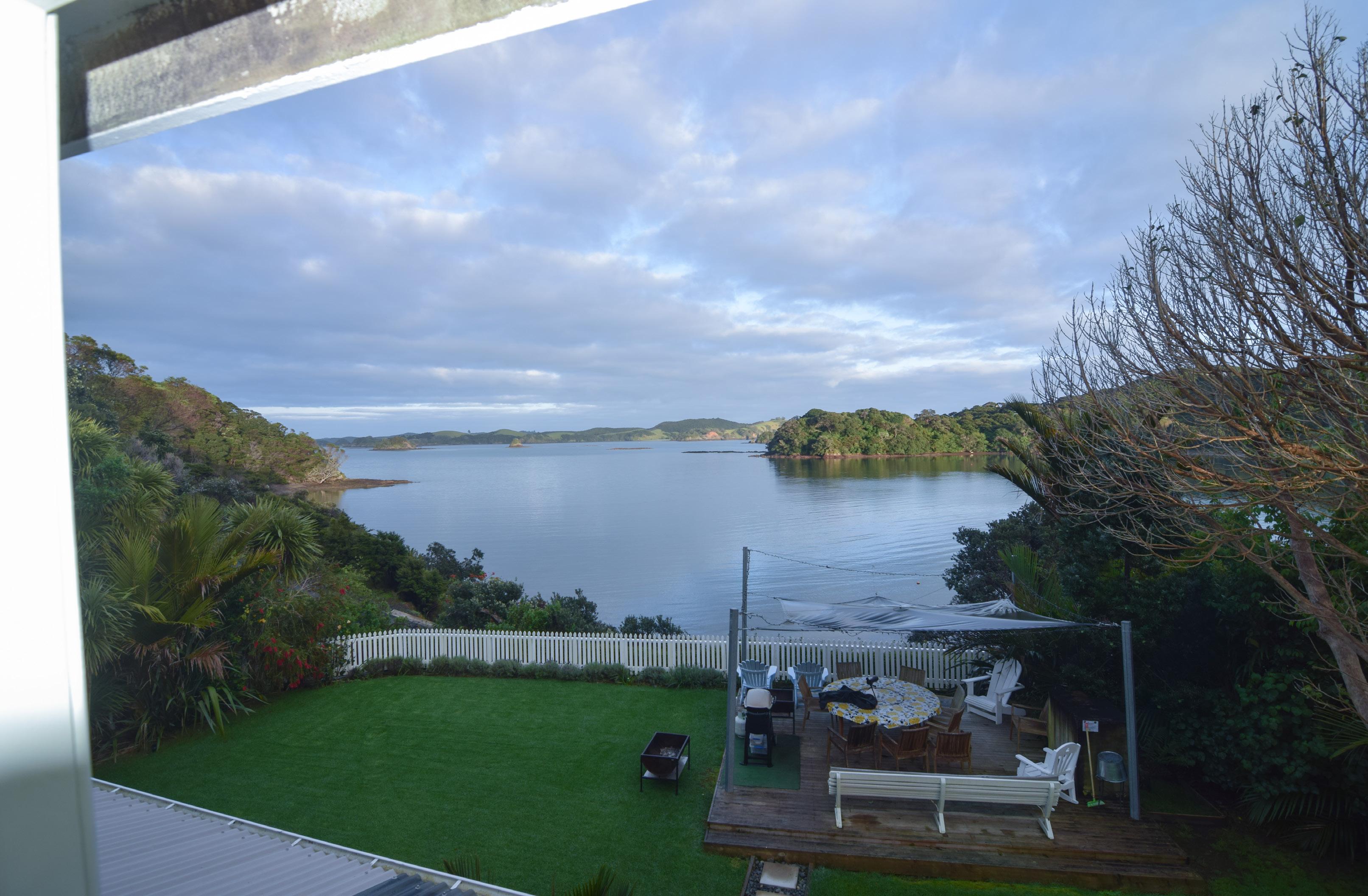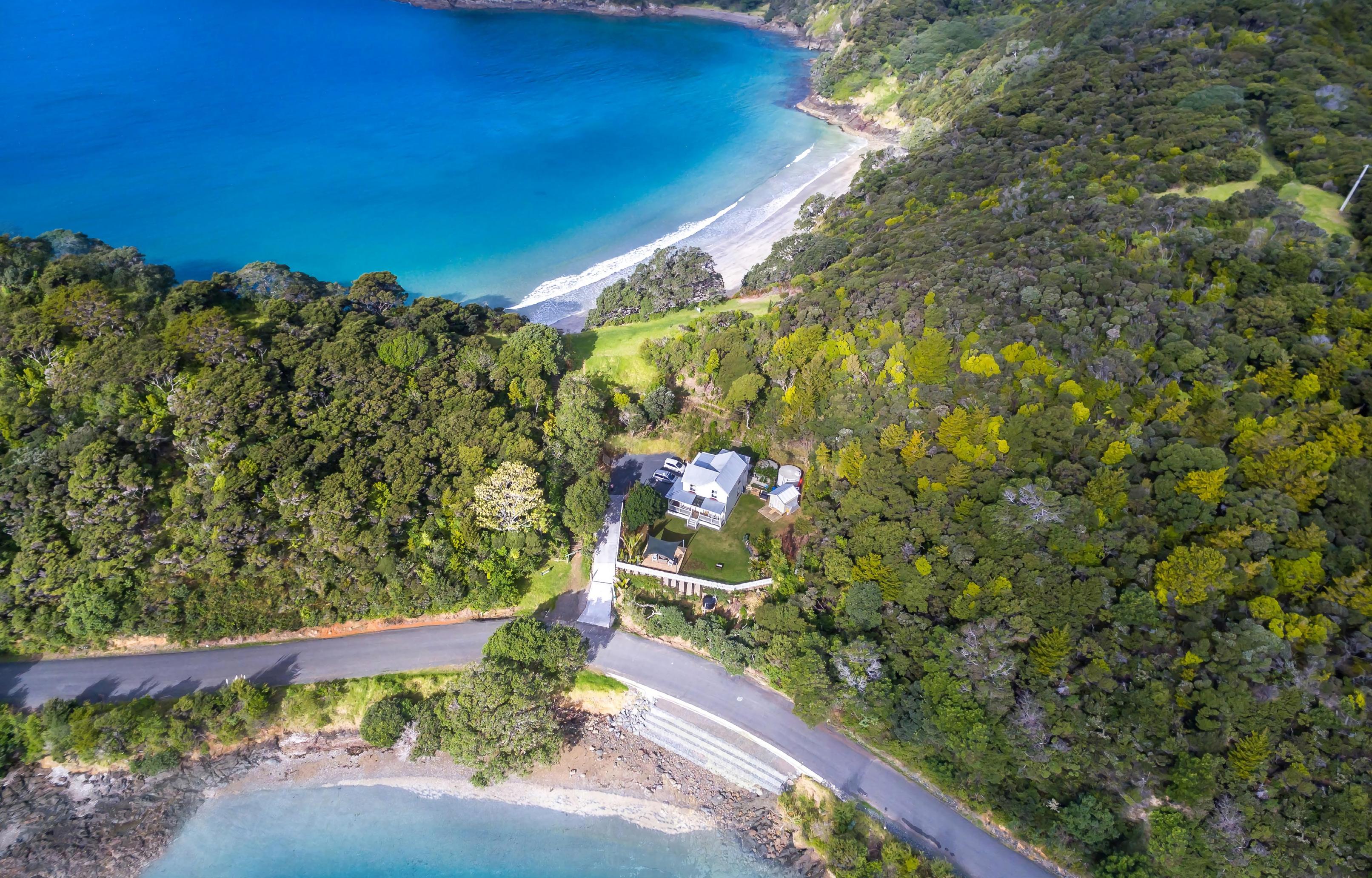Thirty Six Reflections and Lessons
It’s 2022, and the restoration of Oke Bay Lodge is pretty much finished now. Over the last year, a number of people have asked me to write up the story of the restoration, how it happened, what it took to do it, and what I have learned. After thinking about it, especially how such a record might help others, I pushed play. I believe the lessons I have learned are transferable. That is to say, they will help anyone anywhere with where they are at in their own lives. This has been my chief motivation for writing what you are about to read. So my prayer is that you find it both helpful and challenging.
When I purchased this 3.5 acres of land and the Lodge in 2008, really I had no idea what was ahead i.e. How hard things would be and how challenging the project would be. Perhaps if I had known at the start, I would never have purchased in the first place. But now that it’s done, I am so glad we started, and kept going. So often in life we only look at the result of something, the final product, which in this case is a restored building and landscaped gardens. Sure, it gives me great joy when other people enjoy

it. This is hugely satisfying, for sure. But this is not the main thing. As I have already said, the main thing is the lessons I learned on the road to getting the result. It’s this that can help others. It’s what I have learnt about myself, about others, about life. It’s about relaying the principles of success which are universal to all life situations. In short, these lessons, these principles which I am about to share will help you in your life, no matter what you are doing or what stage of life you are at. This is my prayer.
So here is the first lesson.
When you have a vision for something - some great thing - something you want to do or accomplish, and you picture the finished product or the final reality in your mind (in our case, the Lodge fully restored) and it burns in your heart to do it, whatever it is, you must set out. You must start. Many people have a great plan or idea, but they don’t ever start. At the beginning, you won’t see the 10,000 steps or things you have to do between the start and the completion of your vision. Maybe you will only see one or two steps. But when you set out to complete those first two steps, and you complete those first two steps, steps 3,4, and 5 will be revealed. And once you complete 3,4, and 5, steps 6, 7, and 8 will come into view. And so on. Some steps will be hard, some easy, some painfully difficult and tedious. But once you do them, complete them, your heart will be filled with joy and satisfaction because you’ll realise you are getting somewhere. Without a doubt, starting a project is the hardest part. Once you have started, you have overcome a great obstacle.
A man is happiest when he starts and makes progress. This is a true saying.
You need not know where the money is coming from, or the people to help you, but you must trust. God will provide. When we started restoring the Lodge in 2012, I only had just enough money to complete steps one and two. When this money ran out, the money for steps 3,4,5 came in, either by donations or the fruit of my own labour (i.e. teaching or selling Real Estate), or someone’s kindness in donating their skills and time. Either way, God provided.
One of the great challenges with this restoration was balancing earning money to fund the restoration, and actually doing the restoration. You see, when I was earning money, the restoration would stop while I earned money. That is to say, when I was up
at Oke Bay actually doing the restoration, I was taken away from earning money. Phew, what a journey. This constant flipping between earning and restoring slowed things down, but it was the only way forward.
The second lesson is to never give up.
You have to keep going. I used to have this saying “If you improve one or two or three things by 1% each minute, each hour, each day, and you do this for many days, even years, then you will accomplish your vision.” And sure enough, this was a true saying. I love the words and works of the great preacher Charles Spurgeon. He was witty and funny. He said “By perseverance the snail reached the ark.” I was the Oke Bay Lodge restoration snail. Even when I had no money to do anything more, I looked around the property to find things - anything - that I could improved by 1%. Sometimes half a percent. And when I looked hard enough, there were always many things - even simple things like weeding the garden, or sweeping the drive, or pruning some trees, or cleaning the inside of the Lodge - whatever it was, I was relentlessly, daily, hourly, committed to improvement. To keeping going forwards. I like what Martin Luther said “If you

can’t fly then run, if you can’t run then walk, if you can’t walk then crawl, but whatever you do you have to keep moving forward.” That was me. Sometimes flying, sometimes crawling, but always going forwards.
So when there was no money available, I was faithful with the little things.
When money was available, we could switch back to doing the big things - the things that cost money. So over all the years I have been relentlessly committed to improvement and to never giving up. It was Theodore Roosevelt who said “Believe you can and you’re halfway there.”
Albert Einstein had similar thoughts - “Life is like riding a bicycle. To keep your balance, you must keep moving.” With the restoration of Oke Bay Lodge, I had to start, to believe that I could finish, and to just keep going until it was done. I had to keep riding my bike. I had to remember I was a snail. There is a Proverb in the Bible which God used hugely to motivate me. It says “Little by little, great gain is made.” This is another true saying.
Third lesson? I had a huge work ethic.
When I was at the Lodge by myself, whenever it was, I would rise early (e.g. 4:30am), work all day, and finish when it got dark. I worked 7 days a week. I know this is not Biblical, as we are taught to have one day of rest each week, but I just wanted to get things done. Sorry. I didn’t just work. I pushed myself as I worked. And when I felt like I had reached my limit, hit a wall, this is when I pushed harder. When you push through exhaustion and extreme tiredness, you increase your capacity to handle exhaustion and tiredness next time you come to it. You build character when you keep going when you feel like you don’t want to keep going.
I developed a mantra. When I was exhausted and felt like stopping whatever I was doing, I would keep walking, or chopping, or digging, or whatever I was doing, and I would say with each step, or chop, or dig “push through, break through, push through, break through” over and over.
This helped me keep going with whatever I was doing. And what was the result? My ability to endure gradually increased - the size of my fuel tank grew. This helps to explain why some people can work long and hard, and others cannot. It’s something you grow into. You have to learn how to do it. You learn how to endure.
It was Ralph Waldo Emerson who wisely said “What lies behind us and what lies ahead of us are tiny matters compared to what lies within us.” The development of my character was hugely important to me. I didn’t just want the Lodge to change. I wanted to change for the better too. I wanted the restoration of the Lodge to be a gymnasium where I worked to develop character.
I wanted to be transformed from being a kitten into being a lion.
So two things were like wind in my sails to complete the vision of the Lodge - the development of my character and the completion of the restoration. These two aspects were like breathing - my desire to develop character was like breathing in, and getting closer to completing the restoration was like breathing out. As a person is kept alive by breathing in and out, so the vision of the lodge was kept alive by developing character and making progress with the restoration.
No one will accomplish their vision without hard work, and without putting into practice the 36 lessons I have outlined here.
A vital part of developing a good work ethic was setting goals. Each day I would set goals for what I wanted to achieve. I would write them down. They had to be specific and achievable. I have an app on my phone to do this. Goals have to be written down, not floating around in my head. And here’s the interesting thing. The more you accomplish, the more you will want to accomplish. That is to say, progress has its own rich reward - it will fuel you, inspire you, energise you, to make more progress. So when you tick off all the jobs you planned for the day, you feel good. And here is another great truth - I made sure I worked harder than anyone else when volunteers were in the house. I wanted to be a good example in that respect. I couldn’t expect others to work hard if I was not working harder than anyone else. That wouldn’t be right.
Did I ever become discouraged? Yes, often. Did I ever experience failure? Yes, often. Did I ever procrastinate? Yes, sometimes. With procrastination, I learnt how to overcome it. It’s a beast which must be hunted down and destroyed.
Discouragement, failure, and procrastination are three great enemies on the road to
completing a vision or a project.
In my opinion, procrastination is one of the most deadly of all character weaknesses. This is another true saying.
For example, when I walked around the property, and saw things that needed doing, I trained myself to do them straight away. The natural tendency in all of us is to say to ourselves “Oh, I will do that later”. I learned to refuse to listen to that voice. It’s a deadly voice. So each day, whenever I see something that needs doing, I do it STRAIGHT AWAY. I had a saying which I lived by - “Do it now.” And when we obey this small voice over and over each day, we find at the end of the day, we’ve done a lot a thingswe’ve accomplished a lot. Now when you string a whole lot of minutes together when you’ve accomplished a lot, and those minutes become days and those days become months, and those months become years, then suddenly, the vision you had at the start becomes a reality. This is, literally, how it has happened at Oke Bay Lodge.
In my development of a good work ethic, I also discovered something about fear and courage too. Many many times on this project I have felt fear- sometimes a lot of fear. Mainly because I didn’t know how things would go on what was coming up next. For example, when we installed the huge retaining wall at the front of the property, I had to order 10’s of thousands of dollars worth of materials. I had to hire people. I had 12 volunteers coming from all over the country, all of whom I didn’t know. What if it all went wrong? So I felt fear. But I pushed on anyway by faith, believing it would all be OK.
When I put an advert on Trade Me in 2015 for people to come from all around NZ for a free working holiday in the Bay of Islands to help build our big retaining wall (because I couldn’t afford to pay people to help), which cost $200k to install, and I was swamped with replies, and eventually chose 12 people, and we didn’t know each other, and we were all going to be working together for two weeks, and living together, and eating together, and I had to get all the materials that we needed to the site and on time, to keep them all occupied, and fed, and I had to have a detailed daily plan which could change at any minute of every day - when the number of unknowns increased, then fear also increased. I was also keeping my real estate job going ‘after hours’.
I had to muscle up on the inside, tell myself God was with me, and helping me, and guiding me, and that He would give me new strengths and abilities - then I launched out in spite of great fear. That is to say, I felt great fear, but just kept going anyway.
Many people don’t attempt great things, or even little things, because of fear of failure. But I have discovered that when I launched out in spite of great fear, it always worked out.
Sure, I had to plan meticulously, but even after a lot of planning, I felt fear. Many times there were complications and challenges, make no mistake. But through God, I overcame. A verse from the Bible which helped me a lot is John 12:1. Here Jesus said to His disciples “Do not let your hearts be troubled. Trust in God. Trust also in Me.” This verse taught me that I had control over my fears - that there was a part that I could play. What I learnt was that the greatest antidote to fear was to go and do the very thing I feared most.
Here is another example of overcoming fear. Many times I picked up huge loads of timber on my old trailer (picture on the next page). Each time, I knew it was massively overloaded. But I had no alternative. I didn’t have the money to pay a truck to bring whatever I was carrying all the way out to Oke Bay. So I would drive slowly, praying the entire way home. Sometimes I would think my car was going to split in
half going up a hill pulling the huge weight. One time, the trailer axle did break, and the axle and springs were replaced and I just kept right on going.
I remember picking up 6 massive retaining wall timber poles from Auckland. The guy I bought them off, who loaded them on my trailer, thought I would never make it to Oke Bay. He advised me not to attempt it. The load was so heavy the tires were nearly touching the frame of the trailer. Surely the springs on the trailer would cave in (again)! Fear gripped me.
But I set off anyway from South Auckland at about 4pm, right in the middle of rush hour traffic. The poles were poking out way beyond the legal limit at the back. Sure, I had a flag on but they were still way over the legal limit. I drove on.
Every time I got to about 50km per hour, the trailer would start to sway. So I was restricted to that speed, all the way from Auckland to Oke Bay - normally a four hour drive. It became an eight hour drive. Everyone who passed me, and it was literally hundreds of cars, would look in my window as they passed. So embarrassing!
So I put on my dark sunglasses and just kept driving and put on a fake smile and a little wave when people looked in my window as they passed. I must have looked so goofy.
I would have pulled over 20 or more times to let huge lines of traffic which had built up behind me pass. I was certain I was going to be stopped by the police somewhere sometime. “Surely” I thought “someone somewhere it going to phone the police and tell them about me”. Then the police would stop me from going any further and I would have to hire a trucking company to come and get the poles and take them the rest of the way to Oke Bay. Then I would have a budget blowout. But it never happened! I made it, arriving at nearly mid night. Courage. I had to learn about how to have it.
So
what’s
the
fourth
lesson?
Exercise courage by keeping going when you feel great fear. This is a true saying.
What
is another great
lesson- the
fifth
lesson?
God provides. Let me explain. Before purchasing the land at Oke Bay, I served God for nearly 30 years, the prime of my life, forfeiting family and children, traveling the world doing His work. I never earned more than $25k a year in all those years. So where did I get the money to
buy Oke Bay Lodge and the land, which is now worth upward of $6m.
I started buying properties when I was very young. So on the side, along side my charity work, I was accumulating property. They were all rented and the rent covered the mortgages and the expenses of each property. I believe strongly that God led me into this when I was young. My work in the charity was what I loved to do, and what I was called to do. My investment in property was a sideline, and a very small part of my life. Maybe 1% of my time in a year was dedicated to it. It just ticked over in the background for 30 years. When the Oke Bay Project popped up, and I put all my money into it, and I had run out of money, I had to literally just trust God, as I had done all my life. Again, the Bible says “The Lord does not delight in the legs of a man or the strength of a horse. The Lord delights in those who fear Him, who put their hope in His unfailing love.”
Miraculously, people came to help when they heard what I was doing, and the vision I had. Not just any people, but the best people. Quality. Wow!
Just like Jesus turned water into wine. It was not just any wine. But the best wine. When Jesus does it, it’s the best. 95% of the people who came I had never met before I purchased Oke Bay in 2008. I believe, without doubt, God laid it on their hearts to come and help. That is to say, He put desires on their hearts to come and help. Proverbs 21:1 says “The king’s heart is a stream of water in the hand of the Lord; he turns it wherever he will.”
Psalm 37:4 says “Delight yourself in the Lord, and He will give you the desire of your heart”). In other words, the cry of my heart was “Oh God, please send people to help me!” He said in reply “Well, you have delighted yourself in me for 30 years, so I am going to grant you the desires of your heart. I am going to place desires inside the hearts of the best people to come and help you.”
Yes, I believe the hearts of all those who have come to help have had hearts which are like streams of water, and God directed that water to help me. Why did God do this?
Well, I can’t know for sure, but I guess it’s God saying “You’ve given the best of your life to me and my work, so I am going to honour that by giving you the best helpers.” This is how I see it. Mark 10:29-30 says it best “Truly I tell you,” Jesus replied, “no one who has left home or brothers or sisters or mother or father or children or fields for My sake and for the gospel will fail to receive a hundredfold in the present age— houses and brothers and sisters
and mothers and children and fields, along with persecutions— and in the age to come, eternal life.” God is basically saying in these verses, “If you honour me, I will honour you.” I have found this to be true.
The people who have come to help have come from all over New Zealand, and from overseas as well. Great friendships have been made. Some have even told me outright that they have sensed strongly God saying to them “Go and help Julian”. When I heard them say this, I felt such joy and peace, not because of their help, but rather because it gave me assurance that God was with me. And that this vision is God’s vision, not my vision.
We have seen so many miracles too, which also affirm that it’s God’s vision.
For example, we had a non-Christian electrician who came and did a month’s work at the Lodge. He had workers with him too. I knew the bill was probably going to be about $20,000. Money I didn’t have. As a group we used to have devotions each day, studying the Bible for 15 minutes or so, and our electrician joined in with them. He seemed to enjoy them. He was a deep guy anyway. He often used to talk about how
much he enjoyed reading about the mystics, like Thomas A Kempis.
When our electrician finished at the Lodge, I took a big gulp, and asked him to send me his account. A month went by and no account came. So I phoned him to ask for it. He told me he felt strongly not to charge us for any of the work he did and that it would be his delight to just donate his time and materials. I couldn’t believe it. I was so grateful.
Wow! That’s a miracle. This experience with our electrician is another example of the outworking of Proverbs 21:1 “The king’s heart is a stream of water in the hand of the Lord; he turns it wherever he will.” The heart of the electrician was in God’s hands, and He was directing it. I can absolutely say without a doubt that God will do things for the electrician to make up for his $20,000 loss at our place, whether it’s blessing his family, or providing him with lucrative jobs, or good health, or making him just happy. God is no man’s debtor.
So here is another great lesson - the sixth lesson - honour God, and watch what happens. I have tried to make Him number one. This does not mean only blessings and good things will happen when we honour God. No. Not at all. We have had many heart breaks and disappointments. We have had terrible trouble with the council, constantly over charging us, persecuting us, requiring things of us that they required of no one else, making things difficult. This is because we are Christians. This is also because Maori want the land we own and Maori in council and local Maori colluded. Truly, in combination, they have been a nightmare. We’ve been misreported by the media. We’ve had local Maori post fake / negative / defamatory videos on Youtube and Google. Maori won’t take them down.
Local Maori, apart from a handful (who are great), have been hostile and racist. Their motive? As I said, they want the land we own and they have been up to all kinds of skulduggery to get it. Truly, their behaviour has been appalling. As I have said before, I had to research and write a 200 page book on the history of the land to make sure nothing dodgy ever happened with land sales in the history of this land. Maori had claimed the land was stolen from them way back in history. And what did I find? Nothing dodgy ever happened. Ever. I now know more about the history of the land more than any Maori in New Zealand. As I said, we believe Maori in council, the police, Heritage NZ, DOC are all colluding with locals to try and force us off this land. But they never will. Ever. I am a very determined guy. I won’t crumble when I

am bullied and intimated. These things only make me more determined. I also believe strongly that our place is Tapu. It’s sacred. If people touch us or our house, God will get them. 2 Chronicles 20:17 says “You will not have to fight this battle. Take up your positions; stand firm and see the deliverance the LORD will give you, Judah and Jerusalem. Do not be afraid; do not be discouraged. Go out to face them tomorrow, and the LORD will be with you.”
“The eternal God is your refuge, and underneath are the everlasting arms. He will drive out your enemies before you, saying, ‘Destroy them!’” This is a true saying.
So where else is God in all this? If it’s God’s vision, why all the trouble? Good question.
In the Old Testament, after Israel left Egypt, they were headed for Canaan, the promised land. It was called “the land of milk and honey” which is a metaphor for “heaven on earth”. Yet, God told them that to acquire this land, there would be battles to fight, and giants to overcome. I used to wonder how “heaven on earth” could be littered with “battles to fight”. “Heaven on Earth” and wars / battles seem incongruous.


Well, now I know why they are not incongruous. Wherever there is something stunningly beautiful and lovely, fallen human beings, being what we are (e.g. Covetous, envious, jealous, greedy, resentful etc) will also want it. This is another true saying. The land at Oke Bay is heaven on earth too, yet there are giants to fight and battles to be won. What I have observed is that the better we made the Lodge, the more beautiful we made it, the more stunning it became, the more the giant activity intensified i.e. Jealously, envy, covetousness etc all reached new heights with local Maori. That is to say, the better things are, the more beautiful you make them, the more you will have to fight for them. As someone wise once said,”Insecure people only eclipse your sun because they’re jealous of your daylight and tired of their dark, starless nights.” Wow! Great writing. That explains it perfectly. Thankfully, the good Maori in the community who we relate well to are keeping the radicals at bay.
So here is the seventh lesson.
In my heart I say to myself, “Whatever happens, me and God can handle it.” So often the tendency of the human heart is to fear the worst, imagine the worst, and this anxiety, this projection into the future, can cause our hearts to melt and make us feel
like giving up. I know the feeling well. This is why I can write about it. The antidote is to say to yourself “No matter what happens, God and I are going to handle it, and we are going to keep going.” This is like a safety net to never give up, never throw in the towel, never entertain failure or doubt. Sure, these thoughts and feelings will come, they will involuntarily float through our minds, but we must never dwell on them or let them reside in our minds. The great preacher Charles Spurgeon once said, very humorously, “You can’t stop the birds flying over your head, but you can stop them nesting in your hair.” So true. This is what I am talking about.
The eighth lesson?
I’ve been very committed to keeping the property clean and tidy, with everything in its place.
You’ll never see rubbish and junk on the property, except when we are working there. I can’t function if things are untidy and disorderly. I have tried to keep everything tidy, orderly, and junk free. Rubbish is put out on the road regularly. I have developed systems and protocols to ensure the Lodge runs smoothly.
Why? Well, when junk, and disorder, and rubbish come, I feel agitated and anxious. And when I am agitated, I don’t think straight. And when I don’t think straight, I don’t make right decisions. And when I don’t make right decisions, I make mistakes. And when I make mistakes, I waste time and money. And given that time is my most valuable asset, I don’t want to waste it. So what’s the lesson? Be committed to orderliness, tidiness, good systems, and the elimination of junk and rubbish. Clutter.
At the lodge, everything has a right place, and everything is kept in order. For example, the driveway and decks are blown with the leaf blower each day. The lawns are kept cut. Weeding goes on every day. Things in the shed, generally speaking, are in boxes and labeled so they are easy to find. And if we use something, it goes back into its right place, straight away, so that it can be found straight away when it’s needed again. There is nothing more frustrating and annoying that going to look for a tool, and it’s not there, because someone either did not put it away or they have put it away in the wrong place. Frustration is another enemy of progress, so set things up so that you don’t become frustrated.
And here is another great key - if anything malfunctions/ breaks down, I try and fix it straight away, not ‘do it later.’ So orderliness, tidiness, good systems and a junk free / rubbish free environment, where everything is in good working order - these are all extremely important. The sooner you get these things established, the sooner things will go better for you. When I see an untidy property as I am driving along the road, and there is junk everywhere on the property, I know straight away the state of mind of the owner - it’s a mess too. This is a true saying.
The ninth lesson?
Eat good food and stay fit. For decades I have gone to the gym and gone running most days (except when I have been working at Oke Bay for 3 weeks before we had the gym at Oke Bay ha ha). I am committed to eating healthy food. I have never compromised on food. That is to say, if quality / healthy food is expensive, I buy it anyway. Quality food is an investment, not an expense. It’s a priority. Why this commitment to health? Well, my body carries my mind, my will, my emotions, my Spirit, my Soul. So if my body falters, everything falters. If my body is fit, I will be able to handle whatever life throws at it.
For example, some mornings when I wake up, the first thoughts that enter my mind are yesterdays troubles. Or troubles I am imagining in the future. While I am in the
horizontal position in bed, lying there thinking, those troubles seem to snowball. I am sure you can relate. But when I get up, go to the gym and go for a run, and after I have done these things, my troubles and worries seem to have miraculously shrunk. My mind is clear. My heart is joyful. My body is energised. I am better with myself and I am better with people.
So, I am committed to exercise and good food. Radically committed. This is one of the reasons I installed a gym at the Lodge. It’s vital to the success of the vision.
It’s like this - either you commit to working on your body and you control it by working on it (resistance exercise, cardio exercise, eating high quality food) to keep it strong and fit, or your body will eventually control you. By this I mean that you will develop diseases and aches and pains and more and more of your time will be spent with doctors and specialists and pills. “Fixing” your body will get more and more of your attention and time which means less and less time for achieving your goals. The choice, ultimately, is mine and yours. Yes, prevention is better than cure.
To work hard and long each day, and to handle daily challenges, one has to be fit. And
here’s the thing - 100% of mornings I don’t feel like running or going to the gym, but I FORCE myself to go anyway. I shut off my emotions which are telling me to rest and have a day off, and I just start dressing for the gym and walking towards the gym.
Often my mind is literally screaming at me with all the things I ought to be doing / could be doing / should be doing, but I just throw my watch away (figuratively speaking) and I say to my self, “just focus on getting this workout done and keep going until it’s done”. Believe me, it takes tremendous discipline to do this.
I really believe that if we do something each day that we don’t want to do, knowing that that ‘thing’, whatever it is, is good for us and will benefit us, and move things forwards, then we are well and truly on the road to developing good character.
You see, when the gym session is done, I always heavily congratulate myself on getting it done! Always, always, always, throughout the day, I thank God I got my run in and my workout in. They make such a big difference to how the day goes, especially how I feel. You see, fitness CREATES energy - sure, while in the gym and while out running, we are expending energy. But what’s interesting is that this use of energy creates more energy.
After I had had a good gym session and been for a run, my energy levels for the rest of the day increased dramatically. I felt more upbeat and energised. This is what I have found.
What’s the lesson? Invest in your own physical fitness. It pays great dividends. And here is another great lesson? Don’t miss meals.
Eating good food regularly increases energy. I have tried the theory that says “only eat when you are hungry” but I found this led to weight gain. Some days I would force myself to eat lunch, even though I didn’t feel hungry.
I also drank lots of water during the day when I was working and kept away from anything with sugar in it. Sometimes I would reward myself with a machine made coffee and a biscuit! So it’s good to have rewards and intermittent down times to celebrate and reflect on victories and jobs well done. Balance. This is a true saying.
The tenth lesson?
I always try and read my Bible each day, even for 10 minutes. This grounds me, or
centres me. Because the Bible says of itself that it is “living and active”, and therefore not an ordinary book, it feeds the soul. Listen to this - Hebrews 4:12 “Indeed, the word of God is living and active, sharper than any two edged sword, piercing until it divides soul from spirit, joints from marrow; it is able to judge the thoughts and intentions of the heart.”
As I feed on it, God works through it to calm me down / give me balance / ground me which in turn helps me to think straight and feel peace in my heart. The Bible also talks about itself as ‘washing’ those who read it (Ephesians 5:25-26 25 “Husbands, love your wives, just as Christ loved the church and gave himself up for her to make her holy, cleansing her by the washing with water through the Word.”).
What does this mean? We are fallen human beings which means that inside us there is muck. What is muck? It’s thoughts and ideas, anxieties, worries, doubts, fears, etc which all seek to pull us down, all designed to bring us to a place where we are fruitless for God. Ultimately, muck will cause us to give up on life and become depressed. Muck comes from many sources, such as TV, radio, the internet, media of various kinds, our interactions with people. Have you ever woken up one day, and just felt

low? I have. That’s the effects of muck. What’s most dangerous about muck is that often it’s subconscious, and we are not even aware we are carrying it. So as we read the Bible, this muck is washed out, like the dirt in clothes is washed out when they go though the washing machine. Some days when I miss reading the Bible, it feels like something good has been missed from my day. This is because I have not been washed on the inside by reading the Bible. No wonder, year in and year out, the Bible is the best selling book in the world. Now you know why.
Not only did I try and read my Bible each day, but as I walk about the property doing things, people float through my mind, and I try and shoot up a quick prayer for those people. I never have a set time for prayer each day. I just pray as I go.
The eleventh lesson?
When I am working on the property, I try to have Christian radio playing too. There is no neutral in the gear box of God. We are either going backwards or forwards in our walk with Him. Christian radio helps me go forwards. The songs they play, the verses they read, the sermons they announce - all these things help keep my Spirit “up”. Filled.
And when my Spirit is up, I work better, and harder, and more intelligently.
So what am I saying? I am saying that to have a victorious day each day takes deliberate effort. Intentional effort. Self discipline is huge. And I have to be organised. I have to make sure my iphone is charged because I play the radio through an app on my phone. I have a portable speaker which amplifies the radio. I have to
make sure this is charged too. I had to have special internet installed at the Lodge so that I could get signal all over the property so as to get radio reception. All these things took time, effort, and money, just so I could hear Christian radio during the day.
Listening to Christian radio is just one part of growing what I call ‘my inner man’.
I spend the first few hours of the day working on my inner man - my body (in the gym and running and eating healthy food), my Spirit (reading the Bible and Christian radio / sermons from You Tube), and my mind (reading books). Only when these three are fortified will my day go well. During the day, I try and never let negative thoughts about anything or anyone nest in my mind. To monitor ‘self talk’ one has to be good at self evaluation. Self evaluation is being able to assess what’s going on inside our minds and hearts, and respond accordingly.
Sure, I have negative thoughts, as everyone does, but I try not to dwell on them. It takes discipline to do this. Listening to Christian radio helps.
It’s like this. At the start of a day, our mind is like a drinking glass. When we wake, we involuntarily start thinking. This is a sign the glass is partly full of worries and problems we are facing, or things we have to do, or appointments we have to keep that day. So when we start the day with weight training, running, Bible reading, reading positive things, our glass starts to fill up with the good things, the good thoughts, displacing the negative, the worries, the unwanted, up to the top of the glass, and over the side. This is called cognitive replacement theory.
For example, exercise fills your blood with endorphins which the body produces when its exercised. Endorphins flood our blood and make us feel happy, victorious, and energetic. This does not mean the worries and anxieties and troubles just miraculously go away. No no. They don’t. But they become less powerful, less intense, less dominating. Instead, the good, the positive, the encouraging, the uplifting - these things dominate. So each day, displace your worries, anxieties, problems by filling your glass up with the good, the positive, and the encouraging. Listening to Christian radio and sermons on Youtube just keeps my glass topped up with the good, the positive, the pure, and encouraging all day long. As I say, if your glass if filled with these things, you’ll find that your worries, fears, anxieties, and troubles will be far less dominating. Philippians 4:8 says “Finally, brothers and sisters, whatever is true, whatever is noble, whatever is right, whatever is pure, whatever is lovely, whatever is admirable—if anything is excellent or praiseworthy—think about such things.”
The twelfth lesson?
Do everything with excellence, and tastefully. With Ken the builder at the helm, this
was easy, because everything he did was of the highest standard. Seriously high. But when I was doing things, I wouldn’t be able to get to the same standard as Ken, but I tried to get as close as possible. If you do something with excellence first time, it never has to be done again.
When you have to do something twice, you lose time. And time is your most valuable asset. So doing things properly and to a high standard first time saves time. Take water pumps and equipment as examples - even though we couldn’t really afford it, we bought the best. Why? Because cheap stuff breaks down, and break downs result in lost time, because you have to go and buy another one. And the price you pay for two cheap pumps is about the cost of one high quality one, which you should have bought in the first place! The thought that you are wasting money and time on junk equipment creates stress and worry, and stress and worry makes things harder. And I don’t like “hard”, so I try to prevent it in the first place. The lesson? Invest in the best. We have always done this. As a result, the Lodge looks fabulous, and this is not just cosmetic. Everything at the Lodge, whether seen or unseen, is top of the range. It’s quality. It’s been done properly.
Sometime, you have to insist on the best, to fight for the best. Here is an example.
When we built the stairs in the garden, they were built in stages. Each stage is a set of stairs, with each set joined together by a platform.
Ken set to and built the first stage. I was so excited. It looked great, and it was better than what I had imagined. He had obviously visualised it, and then built what he had imagined. He didn’t tell me what he’d imagined so I had to wait and see what came out!
When it came to stage two, the second lot of stairs, Ken and I were on our own, and Ken got tired, and he decided that stage two was going to have to be a change in style. It was plan B. This style was much more simple than the stage two that you see there today. It was budget. To be honest, it was awful. Whereas what you see today for stage two was top of the range. What happened? After Ken had completed stage one, like I said, he got tired, and for stage two he compromised, and opted for a simpler style. It was less work, and less involved. I insisted that we continue with the style of stage one. Ken was not keen because it was just the two of us working, and, according to Ken, keeping up the standard of stage one was too much work. Oh dear, a problem!
I was not happy! I just knew we had to keep the standards high with those stairs, and insisted we go back to plan A. We were at logger heads. Then a miracle happened. Ken phoned a builder who used to work with him, a guy called Rob, who had a son called Aaron, who was also a builder. Dianne, Rob’s wife also came. They just happened to be in the process of moving from Tauranga to Whangarei, and Ken invited them to the Lodge for a week for a working holiday, and, miraculously, they accepted. Help was on the way. The timing was perfect.
This put Ken’s tail up, and we went back to plan A. What’s the lesson? Keep to plan A. Insist on it. Don’t compromise. If we had settled on plan B, I would forever have regretted it. And probably, hypothetically, I would have called in other builders to pull down the plan B stairs (if we’d gone ahead and built them, which we wouldn’t have done), and gone back to plan A. This would have wasted a lot of time and money, and thankfully I didn’t have to do it. So always keep your expectations and standards high. Go for what you are dreaming, and imagining, and stick to your guns. Don’t compromise.
The thirteenth lesson?
Maintain, maintain, maintain. Literally everything at the Lodge needs regular
maintenance - the irrigation drippers need checking annually to make sure they are not blocked. And there are about 600 on the property. The water tanks need regular annual cleaning. The filters on the water pumps need 6 monthly renewal. The outside of the house needs to be touched up every year when paint starts to peel or crack. The entire outside of the Lodge needs cleaning twice annually to get rid of dust and dirt on the paintwork. This takes half a day. Then all the walls on the outside need to be sprayed every six months to stop spiders from making nests in the cladding. And of course, there is weeding and weed spraying, which is almost a daily activity. Then there is fertilising of all the plants, which is done every month through summer : November - April.
I walk around the property regularly to look for pests which might be attacking the plants, like vine hoppers. These are controlled with spray. Then there is pest control - possums, rats, stoats. The rat bait stations need to be serviced every two months, topping up the bait. Then there are weeds like acacia trees, moth plants, and tobacco plants. These three plants-weeds- seem to pop up miraculously so the effort to get rid of them is constant. The lavender has to be pruned twice a year. Each time it takes two days. If you don’t prune the lavender twice a year, it grows woody and will need to be
replaced because it stops flowering. I have 200 or so lavender plants which cost $5 each. So replacing them would be expensive and would take SO much time! No thanks. I opt for maintenance.
Every year I have to go and get trailer loads of mulch to top up the existing mulch in the garden. Mulch needs to be topped up because it rots, and becomes soil.
It’s good getting a property looking fabulous - the trick is to keep it that way, and the only way to do that is to be committed to daily/weekly / monthly/annual maintenance. To succeed with a project, you have to balance looking forwards and going forwards with looking back and maintaining. The two are constant.
The fourteenth lesson?
Exercise patience. Learn patience. I am a terribly impatient person. Often I would feel grumpy with people who are slow. Sometimes I would show it, other times I would keep it in and try to not show it. My impatience played out in so many ways.
When I planted flowers or trees, I wanted them to grow or flower or spread out straight away. Of course they didn’t. These things take time. Sure, I would water and fertilise, and that helped, but ultimately I would have to wait, to exercise patience. This was hard for me, because I like to do everything quickly, and to see results quickly. Now here is a great truth. I know that many people will visit the Lodge in 10 years time from now, and they will be amazed at how beautiful and magnificent the trees are. i.e. They will all have grown by then. Yet they won’t go home to their place and plant trees because they can’t be bothered waiting for 10 years to get the same result at their home. They don’t have patience. They also don’t have faith or vision
for what their home could look like if they planted their trees now.
You see, every time I planted a tree or a flower I could see clearly in my mind what that tree or flower would look like in 10 years - patience would be the bridge that I would need to wait for those10 years. All I needed to do was buy the tree, plant the tree, fertilise and water the tree for 10 years and boom! The tree was there! As I said, when I planted a tree, I could see in my mind what it would look like in 10 years time, and this motivated me to keep planting. The vision in my mind gave me the power and the energy and the motivation to go to the effort of buying the plant, planting the plant, watering the plant, and fertilising the plant! “The best time to plant a tree was 20 years ago. The second best time is now.” — Chinese Proverb
It’s all important to “see in your mind” the final result, because the vision you get, the picture you get, is hugely motivating. But you have to have patience. So what’s the lesson? Get a vision or a picture of what your home would look like if you planted certain flowers and trees today, in preparation for 10 years time. Then start planning and planting. Don’t put it off. As Nike says, “Do it now!” Then exercise patience to wait for the result.
I would also need patience in other areas. Sometimes, many times, when volunteers were visiting to help, our morning teas, or lunches, or breakfasts, would go on and on. After eating, we were just talking and goofing around. I enjoyed building relationship and engaging in robust discussion. Don’t get me wrong. Yet at the same time, I would want to get back to work. They wanted to keep talking. I had to exercise patience. For example, when we built the stairs going up the hill in


the garden, it took about 5 days to do it, with four of us working on it. We could have done it in one day if we had really ‘gone for it’. But it took five days. This is because sometimes the guys would think it was too hot to work during the day, so they only worked for an hour or so at the beginning and end of the day. I had to live with this. I had to learn to be patient. They wanted to combine ‘work’ with ‘holiday’ (which is entirely reasonable) and I only wanted to complete the stairs. So learning to calm down and be patient was crucial for me. I still have not learnt the lesson, but I am working on it.
Sure, during the heat of the day, when they didn’t want to work, I went about doing other things on the property which needed doing, things I could do on my own. I worked in the heat. So I was careful to use ‘their down time’ making it my productive time. I had to be flexible as well as patient. I had to work with their timetable and make the most of it.
Patience with trees, patience with projects, patience with people. Patience. It would be easy to be patient if everyone did everything according to my plans and timetable.
That is to say, if everyone was exactly like me. The true test God has given us is being patient with those who are not like us. This is a true saying. And its the same with trees and plants.
Proverbs 16:32 says “Better to be patient than a warrior, and better to have self-control than to capture a city.”
The fifteenth lesson?
Eliminate distractions. I try not to watch telly or surf the net. They can be great great time wasters. Sure, the internet is full of interesting videos and reads. And I do surf the net, for sure. It would be so easy to surf the net all day! Those who design the news and videos and articles are trained to capture their audience! Sure, it’s good to be informed. But I had to ask myself “Is what I am watching / reading helping me achieve my goals?” If the answer was ‘No’ then I needed to stop doing it. It’s far better to read books which align with my vision because they exercise the mind. Now here is another great truth. If a person doesn’t have a great vision for their life, doesn’t have goals, they are more vulnerable to wasting time on the internet. Surfing the net has
replaced the space in their heart that ought to be filled with a great personal goal or vision. Can you imagine Jesus spending time surfing the net if it had been available 2000 years ago? I don’t think so.
Isaiah 50:7 says of Jesus “Because the Sovereign LORD helps me, I will not be disgraced. Therefore have I set my face like flint, and I know I will not be put to shame” Jesus had a definite, defined vision for his life. He had a goal. He was like a heat seeking missile, setting his face like flint, heading for the Cross. We ought to be like that with our goals and visions too. We can only be like this when we eliminate distractions and when we have our own goals and visions. We too need to set our faces like flint. Generally speaking, I try and only surf the internet when I am looking for something that helps me complete my vision / goal. i.e. I harness the internet. I don’t let it harness me. Well, I try not to.
This is why the Bible says “Without a vision, the people perish.” “Perishing” means wasting one’s life. This is a true saying. Life is not supposed to be about filling in time. It’s about discovering what God has called us to do, and doing it with all our heart,
mind, soul, and strength. Mark Twain said “the two most important days in your life are the day you were born and the day you find out why you were born.”
Vision and goals keep us focused, and help us eliminate distractions. You see, as I have said, our most valuable asset we have is not money but time. If we lose money, we can get it back. If we fall out with people, we can reconcile. If we lose our health, we can (with some exceptions) get it back. But if we lose time, we can never get it back. All my life I have been so terribly conscious of this great truth. Therefore, I try and treat every day like it was my last.
“It is not that we have a short time,” writes Seneca, “but that we waste a lot of it.”
Seneca, the great Stoic, wrote these words two thousand year ago. He’s one of the first stoics of this world. His writings might be old but in this age of constant distraction of smart phones and tablets, they are more relevant than ever. His writings focus on time — the most precious resource.
He also said “People are frugal in guarding their personal property; but as soon as it comes to squandering time they are most wasteful of the one thing in which it is right to be stingy.”
In the Bible, in Ephesians 5:15–16 in the King James Version it says, “See then that ye walk circumspectly, not as fools, but as wise, redeeming the time, because the days are evil.” The phrase redeeming the time is also found in Colossians 4:5: “Walk in wisdom toward them that are without, redeeming the time” (KJV). In both passages, redeeming the time is related to wisdom in how we “walk,” that is, in how we live.
To redeem something means to buy it back, to regain possession of it. Time is a gift from God, and none of us know how much of it we are allotted. Only God knows how much time each of us has on this earth to make decisions that will impact eternity (Psalm 139:16). “Your eyes saw my unformed body; all the days ordained for me were written in your book before one of them came to be”. When God says we should be “redeeming the time,” He wants us to live in constant awareness of that ticking clock and make the most of the time we have. In fact, the NIV’s translation of Ephesians 5:16 uses the phrase “making the most of every opportunity” instead of “redeeming the time”. Rather than waste our days on frivolous pursuits that leave no lasting imprint, Scripture instructs us to be diligent about that which lasts eternally (2 Corinthians 4:18).
It was Benjamin Franklin who said wisely “The way to wealth is as plain as the way to
market. It depends chiefly on two words, industry and frugality: that is, waste neither time nor money, but make the best use of both.”
The sixteenth lesson?
Try and honour the volunteers who come. Recognise them. Cook their meals, wash their dishes, wash their clothes. Give them the best rooms in the Lodge. Have Christian devotions together as a team each day. By this I mean read a portion of the Bible each day, and discuss it together. Then pray together for the day ahead.
On occasion, we have failed to do this, and I’ve felt the negative impact of missing. I have already talked about how reading the Bible and prayer feeds the soul and calms the Spirit.
I have found that when an individual honours God at the start of the day, the whole day goes better. Well it’s the same for a group. When that group studies the Bible together, talks about the Bible together, and studies it together, and prays together at
the end, the day goes better - less arguing, less friction, fewer bad attitudes. More joy, more laughter, more progress. This is just the way it is. As Henry Ford said “A team that moves forward together, succeeds together.” And for Christians, moving forward together ought to mean doing devotions together.
The seventeenth lesson?
Be tough. What do I mean by this? Well, some days I might not feel so good. I might have the flu, or a cold or a cough or a sore hand, or some ailment. Or I might wake up just feeling dead tired. But I would get up at the usual time, get into the day, and keep going anyway. What I have found is that when I adopt a ‘just keep going anyway’ attitude, the cough or cold or flu or the tiredness or whatever the ailment was seems to get better during the day. I made my will power more powerful than my ailment.
Mahatma Gandhi said “Strength does not come from physical capacity. It comes from an indomitable will.”
As I said, every day when my alarm goes off at 4:30 am or whenever, I never feel like going to the gym. I always feel tired and that I don’t want to do it. But I do it anyway. And when I am finished at the gym, I feel amazing! Yes, a total 180 degree change in my emotions. When I am tough like this, when I exercise sheer will power, I also finish the day with a great sense of accomplishment and I pat myself on the back saying to myself “Well done, you overcame.” You see, our emotions can lie to us. They can mislead us, and often do. If we allow ourselves to be guided by our emotions, nothing would be achieved, I am sure.
Ultimately, as I said, we are trying to develop character. I try to never give in to excuses not to get into the day.
Paul in the Bible says “I beat my body into submission” (1 Corinthians 9:27).
We ought to follow his example too. Too often, our bodies beat us into submission. Procrastination, laziness, self pity, talking ourselves into NOT doing something we know we ought to do, putting things off until tomorrow - these are all signs that our body has beaten us into submission. They are signs our character is going in the wrong direction, and we’ve become soft.
And what is worse, we make excuses to give in to our bodies. Sure, there are times to rest and recoup, if we have some serious ailment, doctor verified, and it’s best to rest.
It’s Ok to have a nap. Don’t get me wrong. I am not talking about ignoring how I body can call us to rest. No no. I am talking about being aware of how our bodies, via our minds, can trick us into giving in way too quickly.
Now here is the key - when we don’t give in to our bodies, we develop character. When we give in, we develop weakness, which is the opposite of character. Or we could say we develop bad character, or we become a weak character. Whatever you call it, it’s undesirable. And if we don’t develop character, then when the next challenges in life come along, and they will, we won’t be very good at handling them because we will have developed a weak character. This is a great truth.
So when something comes along, some situation, that we don’t feel like doing, but we know deep in our heart that we should do it, and that it would be good to do it, and we go and do it, in spite of our feelings not to do it, we develop character.
Bad character comes with a whole set of feelings and thoughts - “I don’t feel like it” “Not now” “I’ll do it later” “I will do it tomorrow” “Not today” and so on.
Good character says “Just do it”. And good character just launches into doing it. All of us have a little voice inside our heads which is the voice of our bad character and it will try and talk us out of doing it, whatever ‘it’ is. Our good character voice talks us into doing it. And when we give in to bad character, we develop a bad character. But when we step up to good character, we develop a good character. This is a true saying.
The eighteenth lesson?
This is a big one. I call it the principle of progress. What do I mean? When there were no volunteers to help, and only me at the Lodge, I would dream and think about how I could improve the development. Then I would set to and do it e.g. Organising the carpeting of the inside, or hanging a new door, or clearing the land outside and planting fruit trees and flowers. That is to say, I would try and improve the Lodge inside and out, then when volunteers came back they would see that great progress had been made. This would encourage and inspire them. It also lifted a weight off them i.e. They would say to themselves “It’s not all up to me!”
I suppose this particularly applied to Ken McKay who has done most of the work. I didn’t want Ken to feel the burden of having to do absolutely everything. I wanted to lift this burden off him, so that when he arrived for a stint of work, and he looked
around at the property to see what had been done since he was last here, he would see great progress had been made in his absence. People, myself included, are inspired when progress is being made. Progress, you see, creates the desire in the hearts of men for more progress. This is a true saying.
Progress is a powerful, yet underestimated, source of motivation. Teresa Amabile and Steven Kramer, authors of The Progress Principle have found: “Of all the things that can boost emotions, motivation, and perceptions during a workday, the single most important is making progress in meaningful work.” In his book, The Double Helix, James Watson’s 1968 memoir about discovering the structure of DNA, describes the roller coaster of emotions he and Francis Crick experienced through the progress and setbacks of the work that eventually earned them the Nobel Prize. After the


excitement of their first attempt to build a DNA model, Watson and Crick noticed some serious flaws. According to Watson, “Our first minutes with the models…were not joyous.” Later that evening, “a shape began to emerge which brought back our spirits.” But when they showed their “breakthrough” to colleagues, they found that their model would not work. Dark days of doubt and ebbing motivation followed. When the duo finally had their bona fide breakthrough, and their colleagues found no fault with it, Watson wrote, “My morale skyrocketed, for I suspected that we now had the answer to the riddle.” Watson and Crick were so driven by this success that they practically lived in the lab, trying to complete the work. It’s been like that at Oke Bay Lodge. Great progress, and great success, led to the desire for more progress, and more success. This is a true saying indeed.
Sure, we have had plenty of ‘dark days and ebbing motivation’ but we have had many more days of success and breakthrough. As long as the latter out number the former, the vision of the restoration kept going forwards.
The nineteenth lesson?
Never lie in bed thinking too long, unless you are thinking about good plans, good ideas, and good thoughts.
I have found that while I am in the horizontal position, my problems and worries seem to snowball. They get bigger and bigger in my mind and anxiety and stress rise the longer I stay in the horizontal position.
But as soon as I get out of bed and get to the gym, and start working out, as I have said, and push through, my problems and worries start leaking and draining away. After a gym session and a run, my worries and problems seem tiny. So what’s the lesson? Get into the vertical position as soon as possible in the day and stick to your disciplines. This is a true saying.
Also, get to bed on time. I try and be asleep by 10pm each night so that I can rise early. Rising early has huge psychological benefits. It makes me feel like I have the jump on the day - that I have made a good start to the day, that I have made the best use of time, that I have overcome, that I am not playing catch up.
In combination, these psychological benefits result in a powerful flush of good emotions which help keep motivation high during the day. A good start usually leads to a good day. A bad start, a bad day. So, train yourself to get to bed on time, and rise early, and never lie in bed too long thinking. The benefits are huge.
The twentieth lesson?
Spend money when you have to. Never penny pinch. I saw spending on the lodge as investment. What do I mean? When Ken the chief builder was here, or other volunteers were working at the Lodge, and we needed tools or timber or whatever, and we didn’t have them, in order to go forwards, I just immediately went out and bought them. My motto was ‘never let anything stop the vision going forwards’. Most often the money was not there in the bank so I bought whatever it was on my credit card. Then a week or so later someone would phone or email to secure a booking for renting the lodge, and money would come in to pay the debt off my credit card. Or I would sell a house when I was selling Real Estate. The money would always come in somehow. What I am saying is never wait until the money is in the bank. Just spend and trust. Have faith.
Sure, there were / are limitations to this lesson. I couldn’t go out and spontaneously
spend $50k. Big projects like that would have to be planned, and I would save to pay for them. As the Bible says, a wise builder counts the cost before building the tower.
I don’t know where the money has come from to finance the restoration, but miraculously it’s come in, always, by God’s miraculous provision. For example, when my Mum died, she left a small inheritance, and this enabled me to go to Oke Bay for a few months to clear all the land and plant trees and flowers, install drains and paths, and steps, and irrigation. Sometimes Christians would make donations, not just of their time, but of their finances. Of course, I was employed as well, either school teaching or selling Real Estate, or whatever, just to keep the money coming in. To me, my employment, and every provision of someone’s skills or labour or money or time came from God, ultimately.
The twenty first lesson?
Be frugal. Nearly everything at Oke Bay Lodge is second hand (except my undies and socks ha ha), purchased off Trade Me or in Op shops. I never bought a depreciating asset brand new because as soon as you buy something new, it halves in value the moment you take it out of the shop. Some things I had to buy new, like the carpets
and the shutters in the bathroom, because they had to be tailor made. Most tools and things in the shed were either second hand, or donated, or purchased in an Op Shop. I sourced timber from unusual places and managed to get it half price, or for a fantastic price e.g. Half of retail.
Samuel Johnson by name Dr. Johnson, (born September 18, 1709, Lichfield, Staffordshire, England—died December 13, 1784, London), English critic, biographer, essayist, poet, and lexicographer, regarded as one of the greatest figures of 18th-century life and letters, said “Without frugality none can be rich, and with it very few would be poor.”
In lesson twenty, I said spend money when you have to. In this lesson, I said be frugal. So which is it?
The trick is to know when to spend, and when to be frugal. Everyone needs to exercise both. The general rule is spend to make progress, and when you are investing, but be frugal so that when the time to spend comes, you have the money to keep making progress and invest. Perfect! Plus, when I was spending, I was investing.
Every time something at the Lodge was improved, that was an investment made. I was not spending money on holidays and movies, and pleasures, and depreciating assets. I was spending on items which were investments. Investments are assets which appreciate in value as time goes on. Trees, for example, are appreciating assets.
Success in life requires a man to have self-mastery. I have failed many times in life with self mastery, and it’s cost me dearly, but I am improving.
Learning to control my spending is one way I could further develop my self mastery. The ability to distinguish between wants and needs and to postpone those wants until they are affordable is a huge skill. It is child-like to rush out and buy something simply because we feel we must have it now. I had to learn the self mastery to live within my means. Self mastery in our finances can translate to self mastery in other areas of our lives. This is a true saying.
The twenty second lesson?
Be an observer. Daily, I would walk around the property regularly looking at the plants, the irrigation, the outside and inside of the Lodge, observing. Becoming an
observer is something we have to do consciously. It’s much more than just looking. It’s studying something. It doesn’t just happen. We can walk around a property and look, but that is not observing. Observing is consciously looking. It’s intense. It’s becoming like a detective. When I did this I would notice all kinds of things.
For example, I would notice a $50 plant that was stressed because of lack of water. I would then fix the dripper which had become blocked. It only took a few minutes. In this way, the plant didn’t die. I rescued it. To plant that plant cost a lot of time and money - I had to go to Bunnings to get it, spend time planting it and so on. If it died, I would lose that money and that time. I would have to plant another one and go through the whole process again. Very time consuming. Wasteful.
So being an observer saved time and money. Prevention is better than cure. It was the same with the Lodge. I would observe the outside keenly, looking for paint starting to peel, or gutters filling with leaves, or rust on something, or spider webs building up, or trees that needed a quick prune, or something that had become dirty, or whatever.
If I saw a problem, I would fix it straight away.
Being an observer was not just about trouble shooting. It was also about enjoying the plants and surrounds. There was great reward in observing plants throwing out new shoots or flowers blooming. Studying the intimate detail of the colours of flowers drew me close to God and made me feel very connected to Him. This inspired me to plant more flowers because I wanted to see more of God’s designs and His brilliance with colours. So pick up the skill of being a good observer. In the long run, it will save you time and money. It will also increase your joy because you’ll be more in tune with what God is doing in nature. People visiting the Lodge would sometimes comment on how well it was maintained. This is because I had become a good observer, and constantly responded to what I observed. And it’s not enough just to spot something that needs attention. We have to do something about it, straight away. We have to fix the problem / issue immediately.
The twenty third lesson?
I have talked about this already but I want to expand on it here. Focus on character development. This journey of 14 years (i.e. The period I have owned the Lodge - 2008 - 2022)- it’s been tough - really tough. But I have asked God to make me stronger and
better through it. That I would come out of this a better, stronger, more disciplined, more resilient, closer to God, more trusting of God, better able to persevere in tough times, better able to handle conflict and pressure, stronger to take on injustice from council and Maori head to head, wiser, tougher on the inside. A warrior not a worrier. A victor, not a victim. A winner not a whinger. Thankful and grateful, not negative.
Really, through the tough / rough / gruelling times, I wanted to build my character.
Henry David Thoreau said “What you get by achieving your goals is not as important as what you become by achieving your goals.”
So rather than complain and baulk against exhaustion and challenges, which is fruitless and energy sapping, I asked God to help me harness stress, exhaustion, discouragement, struggle and challenges to develop character.
Character development is so absolutely crucial.
It’s the ability to triumph in tough times. And the only way to triumph in tough times is to triumph in tough times. When you triumph in tough times, you learn how to do it. You see, it’s a learned skill. It’s something you grow into. And here’s the thing - it’s not enough to learn one or two of these 36 lessons that I am detailing in this book and apply them to your life in tough times. The key is to combine all the 36 lessons and have them all going on simultaneously. It’s then, and only then, that great progress is made. It’s then and only then that character grows. This is a true saying.
Triumphing in tough time has enormous benefits. It’s massively fulfilling to see a vision completed - well, stage one at least which is the restoration of the Lodge and the landscaping of the gardens. Stage two will be building other properties on the property. I can’t wait. If I won lotto, I would have it done in a year.
The twenty fourth lesson?
Don’t become depressed and discouraged when you lose plants. This is an interesting lesson. I lost a lot of plants earlier on because I didn’t install a bore and commercial irrigation at the very start. In this respect, I made a big mistake. It hurt me, grieved me, to see my hard work planting plants come to nothing i.e. see them die. So if I had my time again, I would have installed a bore and commercial irrigation at the very start. Now I have one.

So what have I learned about flowers and trees at Oke Bay? I discovered that some flowers and plants grow well at Oke Bay, and others don’t. So I had to buy small numbers of different flowers, plant them, and see which ones took off. You’ll gain some, lose some. That is to say, I was prepared to incur small losses on the way to getting success. For example, I was told the flowers called Impatiens wouldn’t grow in direct sunlight. Not so. I planted some in direct sun, and they were watered regularly, and they just took off! So what you hear in garden centres is not always correct. Also, there is over 150m2 of mulch on the property. This is also a key to success because mulch conditions the soil, stops the soil drying out too quickly, and keeps the weeds down. So there you have it - experiment+water+sun+mulch = success. Try things and be prepared to incur losses. Losses are stepping stones on the journey to success.
The twenty fifth lesson?
Thankfulness. Sometimes I would go to Oke Bay Beach early in the morning and just give thanks to God, naming every little detail in the Lodge that has improved since we first started - and especially for the people who did the thing I was giving thanks for.
Seriously, I would go through EVERYTHING AND EVERYONE! There are just
so many things / people to give thanks for, especially when one drills down into the detail. I could literally spend an hour at the beach and not get to the end. At the end of my time, I felt fantastic too!
I have also read that giving thank helps us achieve our goals. Yep, it’s true. A 2009 study found that those who practiced gratitude, in this case through keeping gratitude journals, were more likely to make progress towards their various goals—academic, health-related, or interpersonal. This group also reported higher levels of motivation, attentiveness, determination, and energy compared to those who were not keeping gratitude journals. Additionally, research found that grateful people are more likely to effectively handle challenges by actively planning and finding growth in situations rather than avoiding a problem.
Improved relationships, health, and performance, as well as happiness, are all associated with the simple act of gratitude. The difference between me giving thanks and the thanks they talk about in the success journals is that my thanks was directed at
God. I believe He was the one who made the things happen that I was being thankful for. I am not sure who or what non-Christians direct their thoughts / words of thanks towards. It’s a mystery to me that they don’t give thanks to God because really, ultimately, it is God who provides what they are thankful for whether they realise it or not.
The twenty sixth lesson?
Think, dream, and imagine. Be creative. I spent a lot of time doing these three things. I would dream about what to do next and how to design things. Imagining is a very powerful tool. Virtually everything in the Lodge was imagined before it became a reality. Everyone uses their sight but few people use their vision.
God is a creator and He gave us our imagination, whether it be writing, or poetry, or music, or painting, or sculpture, or building, or inventing things, or whatever. Being made in His image, we are designed to create too. It’s in all of us. It’s the very fabric from which every piece of the puzzle that we call life comes together. Before anything is manifested into existence, it is first dreamed and nourished in our imagination. It was Albert Einstein who said “Imagination is more important than knowledge.
Knowledge is limited. Imagination encircles the world.”
Similarly, George Bernard Shaw said “Imagination is the beginning of creation. You imagine what you desire, you will what you imagine, and at last, you create what you will.”
There are few things as thrilling and stimulating as imagining something, some structure or building, or some design, then setting out to make it a reality, and then pushing through to see it completed. At the end stepping back, and saying “Wow!”
It all started in the imagination. Musicians must feel this in a huge way when they create a number one song, knowing that that song has made so many people happy. Or a writer when they create a best selling book. It’s the same with the Lodge. I feel great pleasure and joy when people come and stay, and the Lodge and surrounds give them great joy and pleasure.
So, the lesson here is to go into your garden, or patch of land, or bedroom, or kitchen, or whatever space you are working on, and dream and imagine what to do next. How you could improve it, make it better, create a ‘wow’ factor. Take your time. If the plan is not clear at the start, and it often isn’t, the more you dream and imagine, the more the plan of what to do will come.
For example, in each of the bedrooms, we now have shelves with coat hooks. These were imagined because none of the rooms had wardrobes. There was not room for wardrobes. Yet people needed somewhere to hang their clothes. So we had a problem.
I launched into dreaming about a solution. I wondered how to solve this problem. Eventually, after some time, sifting through imagined solutions in my mind, I imagined shelves with coat hooks. Next I went onto Google and searched for ‘bedroom corner shelves’ and surfed through what came up. Eventually, I saw a design I liked. The design had to fit the style of the Lodge, of course. I downloaded the picture off Google.
I measured up all the shelves we needed, going from room to room, and all the sizes for each room, and asked a friend to build them (Bill from Auckland). He had the picture I found on Google to use as a template. He did a marvelous job.
I painted them all, and screwed the coat hooks on each one. Then I installed them. This was the journey from imagining to reality for just one item in the Lodge - the
shelves in each room. The whole process took many many hours. But in the end, I gasped “Wow!” Problem solved!
Literally everything in the Lodge came about as a result of dreaming, deciding, planning, and executing. It all started with imagining and dreaming.
The twenty seventh lesson?
Self evaluate. This is about being honest with ourselves. It’s taking time to measure how we are going, measuring ourselves against these 36 lessons. It’s about asking hard questions like “How am I going? Am I improving? Am I going backwards or forwards?
Am I becoming weak in some area of my life?” “Is my character getting weaker or stronger?”
“Am I becoming a more loving / nicer person?” and so on. It’s often good to have someone, or even a group of people, who know us, and the Lodge, to speak into our lives, and give their perspective.
This is because we can all lose our way, and we don’t realise we are losing our way. We can drift off course. We can start developing weaknesses and flaws. The Bible says
“There is wisdom in many counselors”. This is a true saying. When we were wondering what to do at the Lodge with a particular piece of land, or space, we’d often have a discussion to brainstorm options. In this way, we came to the best solution. So when you add group evaluation to self evaluation, then you’ve got gold.
The twenty Eighth lesson?
Come to terms with the fact that life is hard. Embrace it. Step into it. Treat “hard” like a friend. Many people want to avoid or step around ‘hard’. They want life to be easy - no worries, no challenges, no problems. Cruisy. But life is just not like that. To embrace “hard” is to swim downstream with the current. To resist hard is to swim upstream, against the current. Looking for an easier life takes time and effort. This effort could better be harnessed by just accepting life if hard, and getting into it. To put all the lessons in this book into practice is hard. Really hard. Yet look at the results. Something great has happened. Something wonderful has been achieved. Something beautiful has been created which is going to bring a lot of people a lot of pleasure. To me, that’s a great result.
It started when I woke up to the fact that life is very hard and embraced it. It started when I said to myself one day “Right, life is tough, really tough. I am going to just face the fact and get into it !” What’s the lesson? The sooner we embrace the fact that life is hard, and embrace it, and treat “hard” like a friend, the sooner great things will happen in your life too. The sooner we’ll have something great to show for our lives. No one wants to end their life with nothing to show for it. So embrace ‘hard’ and you won’t be one of those people.
The twenty ninth lesson?
One of the great giants I have had to overcome is discouragement. Discouragement is a terrible enemy. It can make you stop dead in your tracks. It can make you feel depressed and down. It can make you feel like giving up. We can feel discouraged when things are going wrong, when our dreams and vision are not happening, when the desires of our hearts of not being fulfilled, when life is not working out how we would like it to. Discouragement feeds on our past failings, failures, and regrets. It feeds on our current challenges and problems. It feeds on our projected future, telling us that our future is going to be bleak. It’s like a cloud that descends upon us, but only
if we let it.
So I have had to learn to keep going even when I am very very discouraged. How? By putting the lessons that I am sharing here into practice, that’s how. No one lesson will do it. Discouragement can be so big, I have needed to activate all thirty six!
The thirtieth lesson?
Develop perseverance. This is a big one. The dictionary defines perseverance like this “persistence in doing something despite difficulty or delay in achieving success.”
On the journey towards restoring the Lodge, there were many many challenges / problems which required great perseverance in order to overcome the challenge or solve the problem.
For example, we have a commercial irrigation system set up so that literally all the plants at the Lodge are watered every two days. This is controlled by a computer which is outside in the garden. We also have a bore which we use all summer. This provides the water.
I have an app on my phone through which I can control the watering controller / computer and the bore remotely. By this I mean that I can monitor / change anything to do with the watering from my phone, anywhere in the world through wifi. i.e. the internet.
We have a camera at the top of the property which shows me the level of the water in the tanks which hold the water for the irrigation. Through a different app on my phone I can access this camera. The irrigation uses 5000 litres of water every two nights. One time, the irrigation app on my phone stopped working i.e. the wifi connection between my phone and the controller at Oke Bay broke down.
This was serious because I didn’t know whether the plants were being watered or not. So I drove to Oke Bay from Whangarei and back in a day to test everything / fix the problem. An hour each way. I couldn’t fix it. The only way to turn the irrigation off and on was to do it manually at the property. Like I said, I couldn’t fix this problem.
So I phoned experts. They couldn’t get there for two weeks. So for two weeks, every two days I had to drive from Whangarei to Oke Bay and back to monitor the watering. After two weeks, the “experts” came, but they could not solve the problem.
So we had to phone another expert, who could not come for another two weeks! So for another two weeks, every two days I had to drive from Whangarei to Oke Bay and back to monitor the watering.
During that month of waiting and driving, we had guests in the Lodge. I had to ask their permission to be at the property in order to do maintenance while they were there. It was a bit embarrassing.
One of the guests was an IT expert and he spent many hours trying to fix the problem but couldn’t. He advised me to change the whole system, and get another brand! At $20k, I didn’t take his advice.
I waited for the second expert to arrive. When he arrived, he fixed it in 30 minutes. Believe me, during that month, I was so frustrated with the controller I wanted to smash it with a hammer out of sheer frustration. In the end, the problem was solved, but my ability to persevere was really tested. There has been many many challenges / problems at the Lodge like this which required great perseverance.
Another example? When I cleared the bush by myself in 2022 to create the orchard and garden, just with a chainsaw and a chipper, it took five months. Every day I would go out there and cut more bush. Every tree I cut down had to be mulched and the stump ground out. I set myself a goal, day after day for five months. By this I mean I would mark out an area of bush that I wanted to clear each day. If I got to the end of the day and had cleared that bit, I would consider that I had had a good day.
Albert Einstein said “If you want to live a happy life, tie it to a goal, not to people or things.”
I had many equipment breakdowns. I had to battle the weather. I had to cook and clean and wash. I had to maintain the rest of the Lodge.
I was on my own which made clearing the bush dangerous. e.g. some days I would have to climb a six metre tree with the chainsaw in hand and cut it down one branch at a time, holding on with one hand, the chainsaw in the other. I had literally mountains of bush to put through the chipper. All the branches had to be dragged to the chipper and the logs which were too big for the chipper re-located somewhere else on the property.
All the wood chips then had to be wheel barrowed around the property. It was gruelling work. There is over 250m3 of mulch on the property. Just so you know, a big truck holds 20m3. At least half of this 250m3 has come via my trailer which takes 2.5m3 of mulch. That’s 100 trailer loads, Oke Bay to Whangarei and back.
Being on my own meant that sometimes I was lonely. I had no one to talk to, to cheer me on, to discuss plans with, bounce ideas off. This added an extra layer of challenge. This is why listening to Christian radio helped me a lot.
Without perseverance, I would never have done it. Many people have a plan or a vision to do something. They make a start, but they don’t finish it. They hit problems and challenges and obstacles, then give up. Half finished projects litter the landscape of their lives. What was missing from their character? Perseverance.
“It’s not that I’m so smart” said Albert Einstein, “it’s just that I stay with problems longer.”
Thomas Edison who invented the light bulb said “Many of life’s failures are people who did not realize how close they were to success when they gave up.” This is a true saying. I
like the following quote a lot - “Perseverance is the hard work you do after you get tired of doing the hard work you already did” (Newt Gingrich American politician, historian, and author). So true.
This pretty much explains what perseverance is perfectly! With perseverance, giving up is not an option. One time I watched a video about how they select people for the SAS - the special air service, or navy seals.
Those hoping for selection had to do massive physical activity for 3 days and 3 nights, with no sleep. The last thing they had to do in the three days of trial was run a full marathon in army boots and with a pack on their backs. Of the 100 or so who started out on day one, only 6 finished the 3 days.
What did this teach me? First, it’s possible to do incredible things physically. Second, our minds limit us. We say things like “I am tired” or “That’s enough” or “I think I will sleep in today” or “I don’t feel like doing such and such”. Watching this video helped me
with the restoration of the Lodge when things were really tough and hard because it helped me see that the human body can go three nights without sleep, all the time enduring great physical challenges. I thought “If they can do it, I can too”
The thirty first lesson?
Be resourceful. This is having bright ideas and making them a reality. Often times I would have problems to solve at the Lodge, and I didn’t have what was needed to solve the problem. For example, when I planted some baby Nikau palms, the sun was too hot for them. They needed a baby umbrella or something to shelter them from the sun. Nothing on the market existed like this. So I went to a shop and bought 20 old flat plastic trays at $1 each, some screws and washers, and I made 20 miniature umbrellas, each held up by a stick (that I cut out of some timber lying around), which I pushed into the ground next to the baby Nikau. These worked perfectly. One of my projects is to take this idea and start producing ‘plant umbrellas’ for sale. I have literally dozens of examples of where I had to invent something to solve a problem. This is what it means to be resourceful, and it’s hugely necessary if you want to complete a vision or a

project. You have to be creative, and think outside the box in order to solve problems.
Ken McKay taught me a lot about how to do this. He could create something out of nothing. So it’s a learned skill. If I can develop this skill, you can too. It was Ernest Hemingway who said “Now is no time to think of what you do not have. Think of what you can do with what there is.” I like this thought about resourcefulness too - “The amount of satisfaction you get from life depends largely on your own ingenuity, selfsufficiency, and resourcefulness. People who wait around for life to supply their satisfaction usually find boredom instead.” (William C. Menninger).
The thirty Second lesson?
Be prepared to go the extra mile. This too is a big one. Every piece of furniture in the Lodge had to be sourced on Trade Me, or somewhere like building restoration shops or outlets. Not only that, but it had to fit a certain space in the Lodge. So I had to search for not only the right looking furniture, but the right size furniture. Then I would have to travel great distances to go and pick it up. Yep, the cost of having it transported to Oke Bay was prohibitive. Ridiculously expensive. So I would just jump in my car with my trailer behind me, and drive to Tauranga or somewhere to pick whatever I needed up. It was a lot cheaper for me to spend money on petrol to get it myself than have carriers collect it and get it to me.
Many many times I have changed furniture at the Lodge too. That is to say, as I was looking around for things, I would see some piece that would be better than the piece that was already in the Lodge. So I would buy the new piece and sell the old one on Trade Me. This involved a lot of mucking around but if I wanted to make the Lodge look fabulous, I had to go the extra mile. I had to be relentlessly committed to improvement.
I had to suppress the voice inside me which was screaming “What a fag having to drive to Tauranga!” or “Sheesh, I have to drive all the way to Auckland and back to pick up such and such” or whatever.
Now here is an interesting thought. When we project into the future all the things we have to do, they seem hugely hard and onerous and we feel we don’t want to do them. For these reasons, we even put off doing them. And when we end up doing them, they might well be hard and onerous. But when they are done, completed, we soon forget how onerous and hard they were, yet we are so glad / pleased that we got them
done! So what’s the lesson? Just do the hard stuff, go through it, get it done, because when you do it, you’ll be so pleased you did it. You’ll soon forget how hard it was. It was only hard when you were actually thinking of doing the hard thing, and perhaps when you were actually doing it. So go the extra mile. Push yourself to do the things you really don’t want to do. You’ll learn how to do the things you don’t want to do. It’s a learned skill.
Zig Ziglar the great motivational speaker said “There are no traffic jams when you go the extra mile.” That’s clever. And so true. Most people don’t want to go the extra mile, so the traffic on ‘the extra mile road’ gets thin.
The thirty third lesson?
Be a finisher. Finish what we start before we start the next project. I become anxious and agitated when there are projects started but not finished. I like to start things but also to finish them completely before I start the next project. You won’t see me start something, not finish it, and start something else. There are no half finished projects at Oke Bay Lodge. Many people have projects all over the landscape of their lives
which are partly finished or in progress, and you visit them a year later and nothing has changed. I am not like this. I don’t ever want to become like that. If we start something at the Lodge, we finish it. Zig Ziglar said “Much about success is just the ability to show up, keep going, and finish.”
I have come to see that being a finisher tells a lot about a person’s character. You see, when you start a project, you don’t and can’t see all the challenges, problems, obstacles that are ahead. But as you progress, they will definitely surface. So to become a finisher, you have to have certain character qualities, namely that you can be relied upon, that you can overcome difficulties and challenges, that you can solve problems, that you have perseverance, that you don’t give up when the going gets tough, that you have an ability to stay focused on something.
Take the stairs in the garden at Oke Bay for example. I dreamed of having stairs like that, but I didn’t know how it was going to happen, or what the final design would look like. I just wanted ‘nice’ stairs. I didn’t know how to do it, yet the idea burned in my heart. Then Ken came up to build them. We talked about the design, and
when he built the first section of the stairs, the bottom section, I cried “That’s it! They are perfect!” But Ken got tired, as I have said, and changed the design for the second section, and I was not happy with the new design, or plan B. He said that carrying on with plan A would be too much work for the two of us. This was a problem, yet I was determined. Ken had shown me what was possible with stage one of the stairs, and I wasn’t about to not finish! No way.
As I have said before, Ken then phoned some friends, Rob and Aaron, to come and help, and they came. This was a miracle in itself, that they were even available. I mean, really, what are the chances? But they were available. Incredible timing. Incredible people. God’s miraculous provision? I think so.
At this point, everything changed. Me, Ken, Rob, and Aaron, got back to plan A, and the steps were completed! So what’s the lesson? If I hadn’t dreamed about steps, and driven the project, they would never have happened. If I hadn’t told Ken about the dream, they would never have happened. If Ken had not completed the first section of the stairs, displaying his genius, which gave me an idea of what was possible, they would never have happened. I was not about to accept plan B once I had seen plan A. No way!
If Rob and Aaron had not turned up, they would never have happened. And all the way through building those stairs, there were many challenges to overcome - pipes to avoid, roots to cut, soil to remove, angles to work out, lengths to measure, the heat of the sun to overcome, plants to move and transplant because they were in the line of the new stairs etc etc. At one stage we ran out of decking timber and I had to go to Whangarei to get more. Multiple challenges. Yet, as a team, we overcame. We started them, and we finished them, and now all the guests are enjoying them. Being a finisher is so so important.
The thirty fourth lesson?
Journaling. I have journaled for many years. I am really doing this for Eden, my daughter. When my dad died, I was so interested in learning more about his life, but he left absolutely nothing behind of his thoughts. Nothing. I felt very frustrated about this and wished it were not so. I wanted to know what he got up to each day, his thoughts about life and issues, the battles he faced, how he overcame them, what
he valued and didn’t value, and so on. I wanted to know all about him. I wanted to know him. So I thought I would not be the same with my daughter. So each day I write about what I did, and as much as I can, I record my thought processes and about the issues I am facing. While some can write for hours at a time, researchers say that journaling for at least 15 minutes a day three to five times a week can significantly improve physical and mental health.
If you’re new to journaling, the easiest way to begin is to find a time and place where you won’t be disturbed and just start writing. I write mine on-line on my lap top. I use an Adobe Indesign file which means I can type my entries which is much much quicker than hand writing. The only trouble is, if I died suddenly, no one else would know how to find it or where to find the diary. I should really be sharing the file with a brother.
If you don’t know what to write about, here are some ideas:
• Write about something (or someone) extremely important to you.
• Write about three things you’re grateful for today — and why.
• Write about what advice you’d give to your younger self.
• Write about a current challenge you’re struggling with and possible solutions.
• Write about 10 things you wish people knew about you.
• Write about one thing you did this year that you’re proud of.
• Write about 10 things you’d say yes to and 10 things you’d say no to.
The thirty fifth lesson?
Contra deals. I did a lot of them. What are they? A contra deal is where you exchange your skills as a trade-person or the product you are selling for accommodation at the Lodge. Trades people would charge me their usual charge for their work / product and I would give them the equivalent in value in time at the Lodge. So many good things were achieved like this. It was a win / win. And of course, the better the Lodge looked, and the more it was restored, the more leverage I had.
The thirty sixth lesson?
I have left the most important lesson until last. What’s the lesson? I have to ask myself, “What am I doing this for? What am I restoring the Lodge for? ” This is the ultimate question, of course. The Bible is clear in its answer “Fix your eyes not on what
is seen, but on what is unseen, for what is seen is temporary, but what is unseen is eternal”. (2 Corinthians 4:18).
One day, and hopefully soon, the Lodge will become an evangelism training centre. The original vision I had was to have people, evangelists, from all over the world coming to the Lodge to stay, so I could teach them, get to know them, build relationship with them, coach them, and send them back to the country where they came from, so that they in turn could start a great evangelism work in their own country.
What I am saying is this - if our work on earth has no eternal value, then it’s worthless. Jesus was really very clear about this. He clearly said “Do not store up for yourselves treasures on earth, where moths and vermin destroy, and where thieves break in and steal. But store up for yourselves treasures in heaven, where moths and vermin do not destroy, and where thieves do not break in and steal. For where your treasure is, there your heart will be also.” Matthew 6:19-21
What I am saying is this - if all the work I and others have put in at the Lodge does not sow into the eternal realm, if it has no eternal value, if it doesn’t result in growing God’s Kingdom, His work on earth, bringing glory to Him, then really, we are wasting our time. When I think of all the people who have come to the Lodge and expended time and money, I feel a tremendous responsibility, even a great fear, to make sure they are honoured by using the Lodge for God’s purposes.
They, all of the helpers and contributors, have given of their time and money and effort because they too, I know, are sowing into the eternal realm, into God’s Kingdom. This is the reason they came to help, the reason they gave money, the reason they gave their time. It cost them. A lot. So I feel a great responsibility to honour them. This is a very sobering thought. It’s a thought that is constantly with me. It drives me, empowers me, focuses me, purifies me.
I have created an extra page here, where you can rate yourself on the 36 lessons. See how you go! Doing this exercise will quickly show you where you can improve and grow stronger. “10” is “that’s definitely me” and “1” is “That’s definitely not me”.
1. I have no trouble starting things. I am not a procrastinator
When I work, I work hard.
Usually, when I feel fear, I don’t let it stop me
I see God providing for me during my projects
I do your best to honour God in all I do
When trouble or challenges come, I genuinely trust God to help me
I am committed to being clean, tidy, and organised
I am committed to regular exercise and good food
I read the Bible each day
I listen to Christian radio when I am working
12. I try to do everything with excellence and to a high standard
13. I am good at maintaining my property 14. I am a very patient person
15. I don’t get distracted by social media, devices, and the internet
16. I honour volunteers who come and help with the project I am working on
17. I am tough. I can push through difficulties and challenges
18. I make good progress when I am working on my own
19. I never lie in bed thinking about negative things for too long
20. I am not afraid of spending money in order to keep the project moving forwards
21. I am frugal. I know how to save money on purchases, and not purchase when I don’t need to.
22. I regularly go around my property observing things, looking for things that need attention.
31. I am resourceful. I can think of creative way to solve problems, and then go ahead and do them
23. One of the major goals of my life is character development
32. I am someone known for going the extra mile
24. I am happy to try things on my property, and incur some losses in the process
33. Being a finisher. I finish what I start. My life is not littered with half finished projects
25. I am a thankful / grateful person, and take time out to give thanks to God
34. Journaling. I keep a record of what I did each day which includes my thoughts, feelings, and values
26. I regularly dream and image how I can improve my property/project
35. I do contra deals
27. I am good at self evaluating, and regularly ask others to speak into my life to give their opinion about my progress
36. I live with an eternal perspective
28. I have embraced the fact that life is hard and am running with it
29. I have learnt how to overcome discouragement
30. Perseverance. I stick at things until they are finished
Now record your top three strengths
Celebrate your strengths, work on beefing up your weaknesses. Try and get all 36 lessons going at the same time, then you’ll be unstoppable!
Dawn at the Lodge, taken from the Brown Room window
